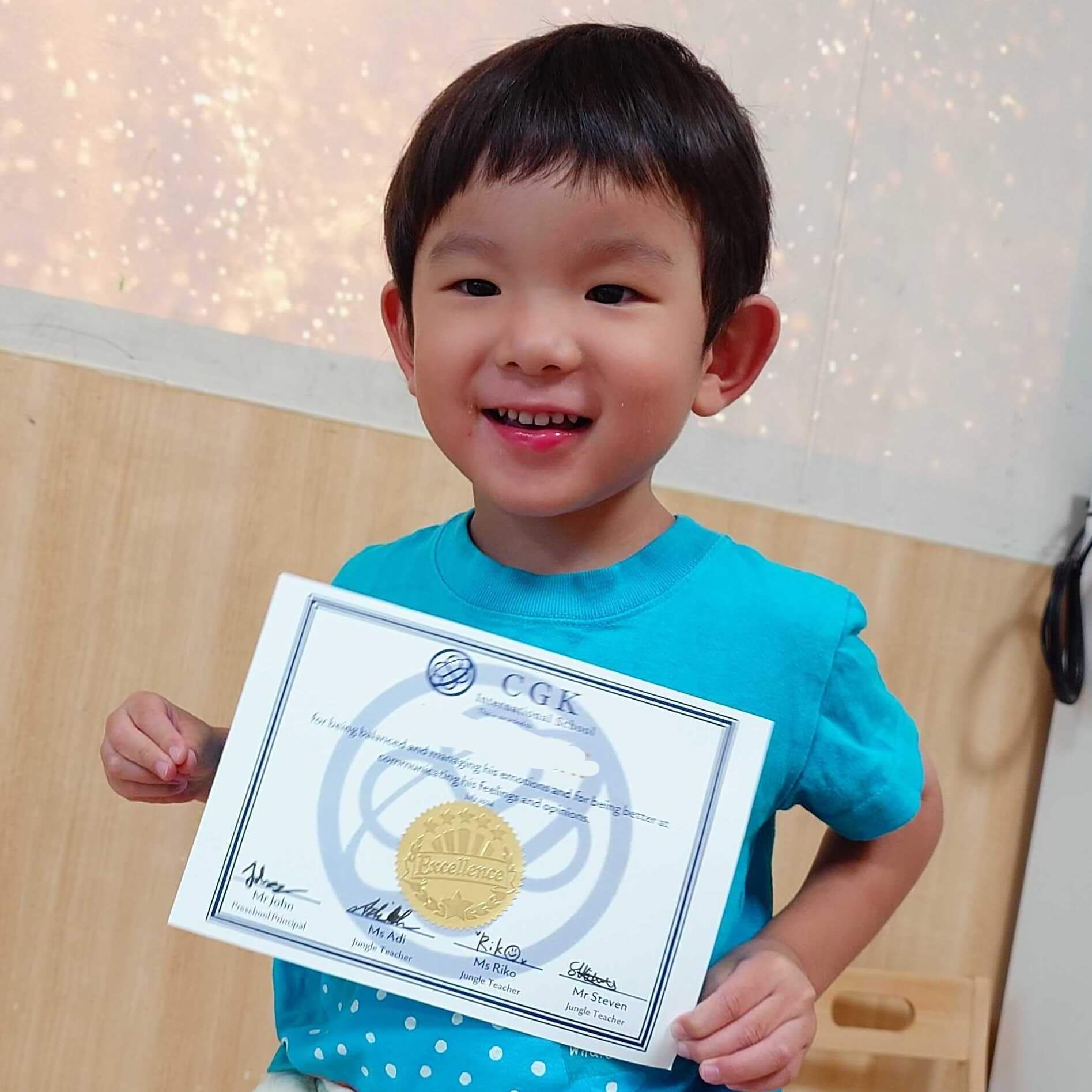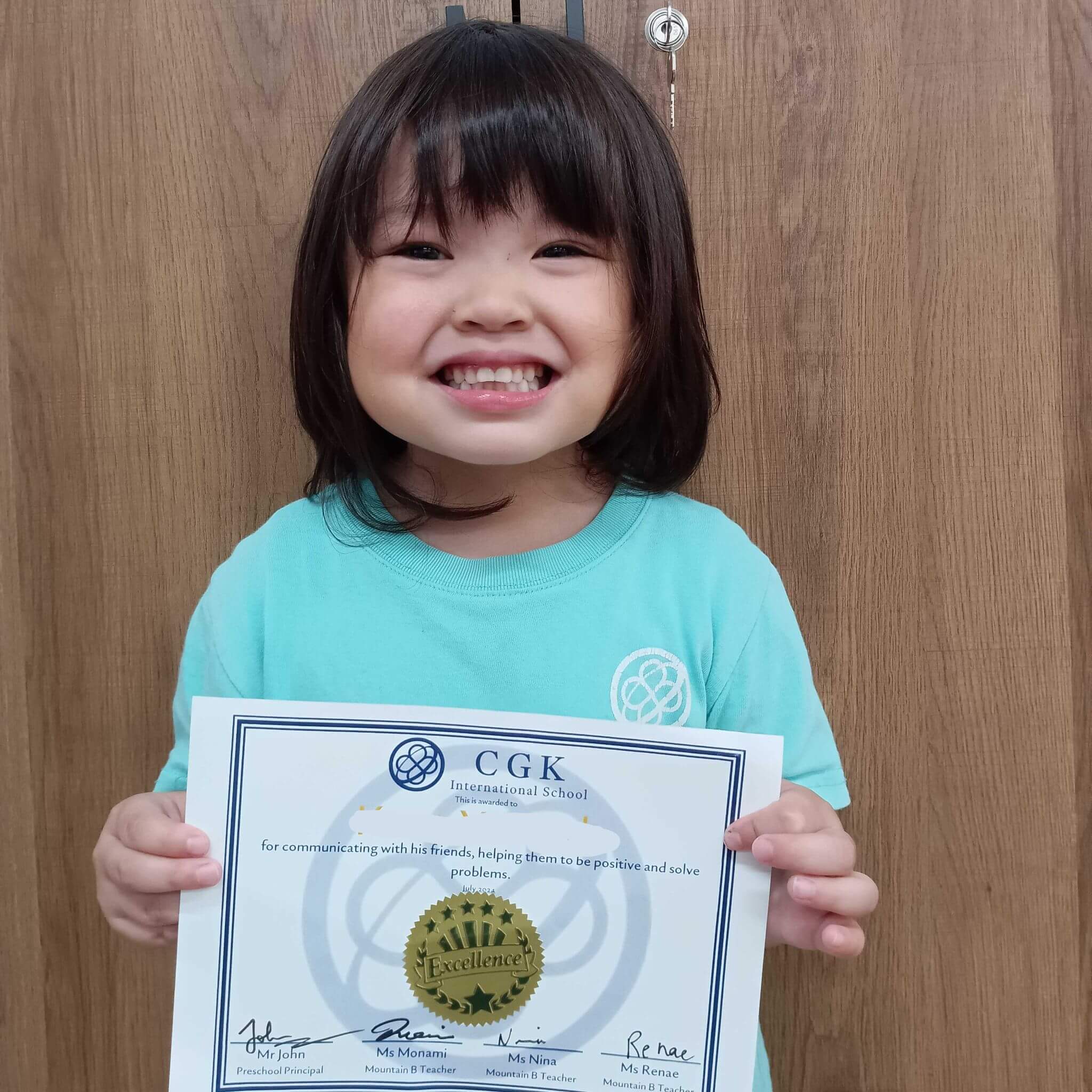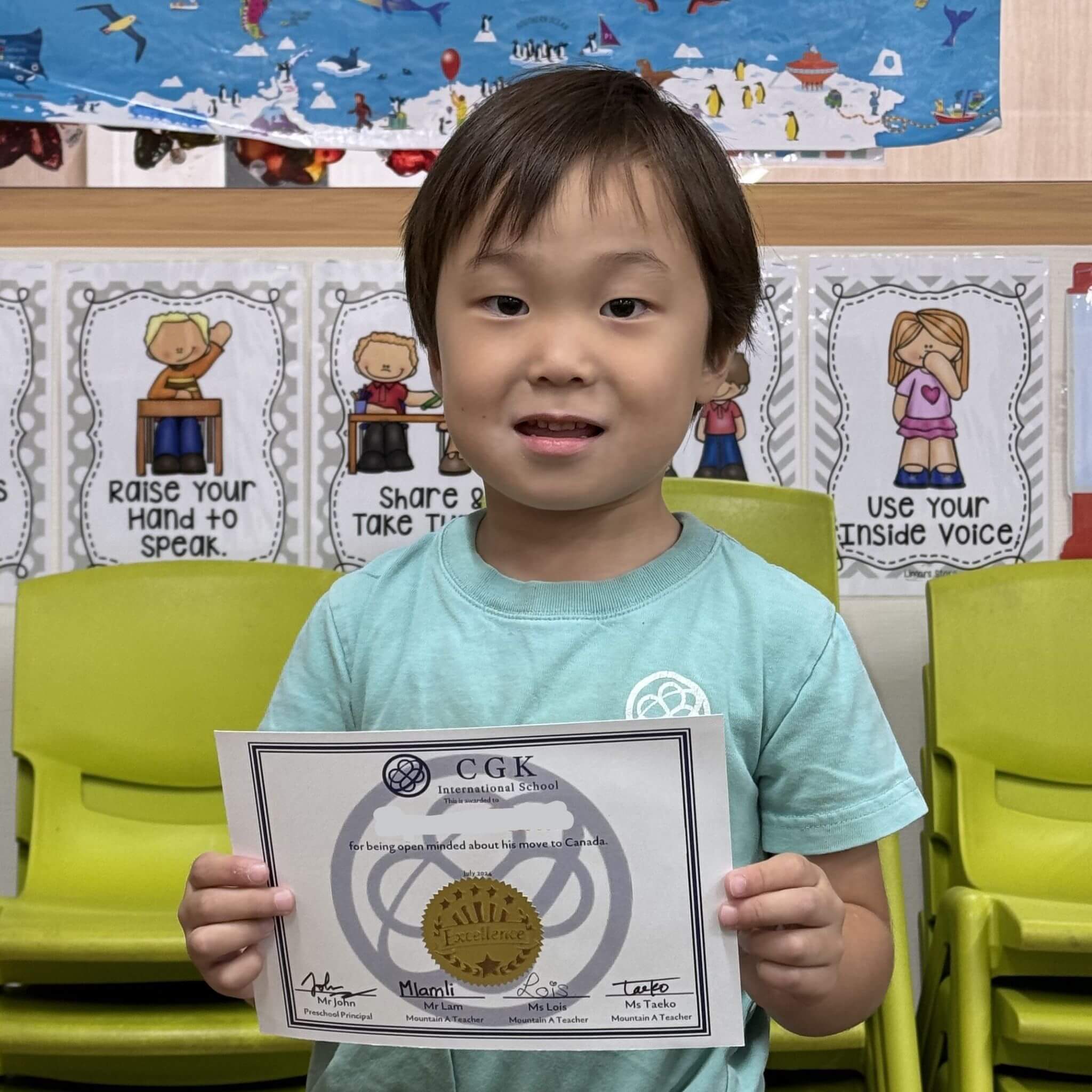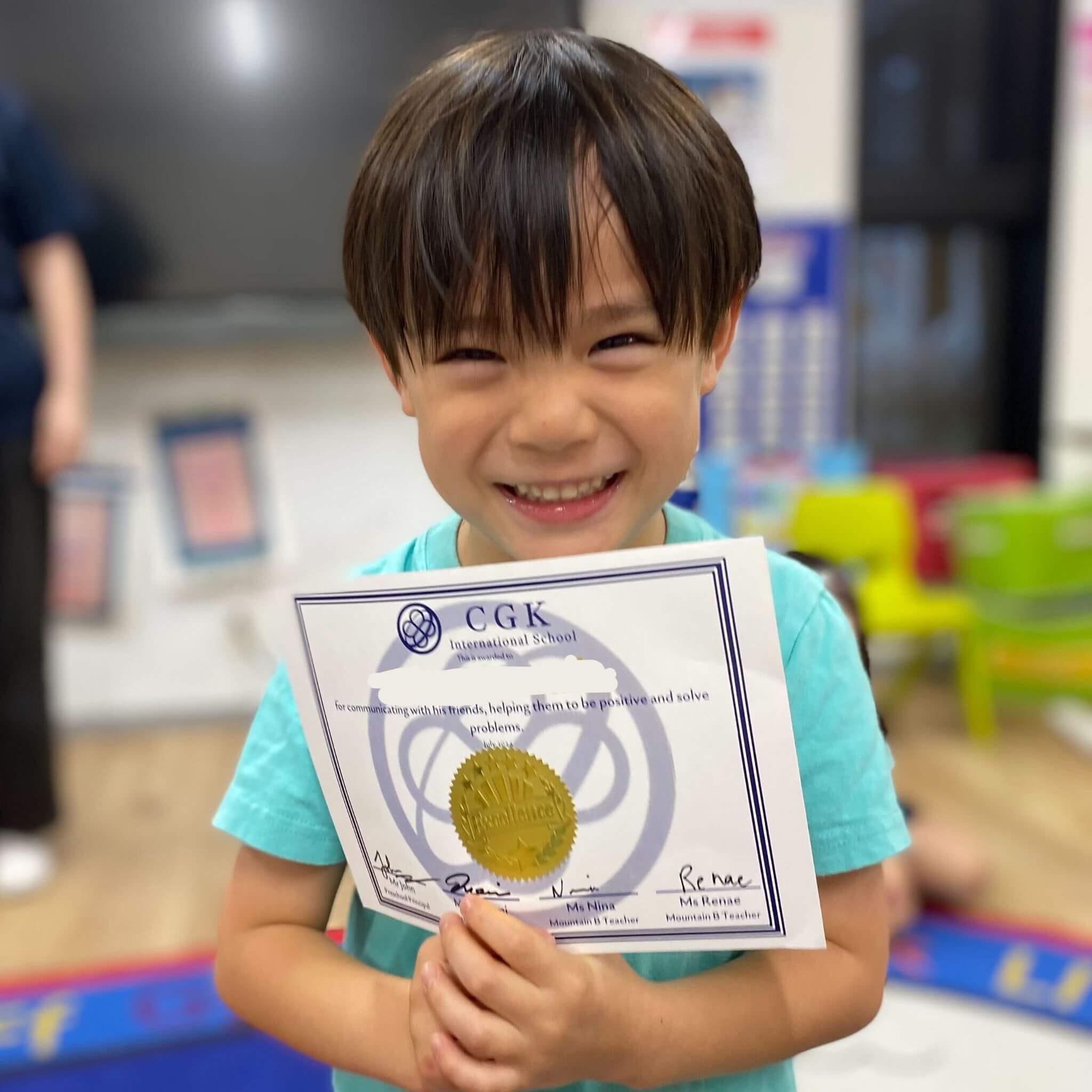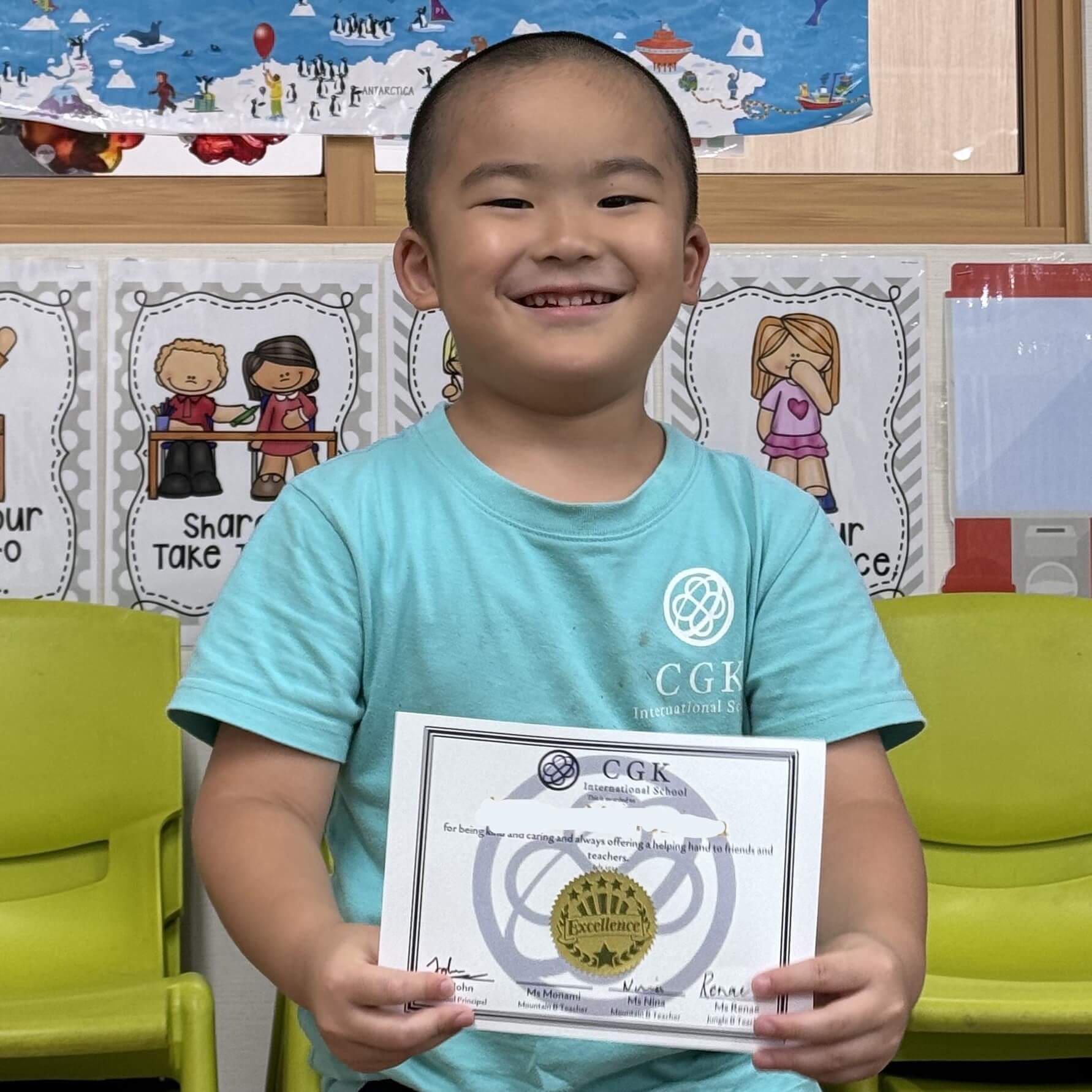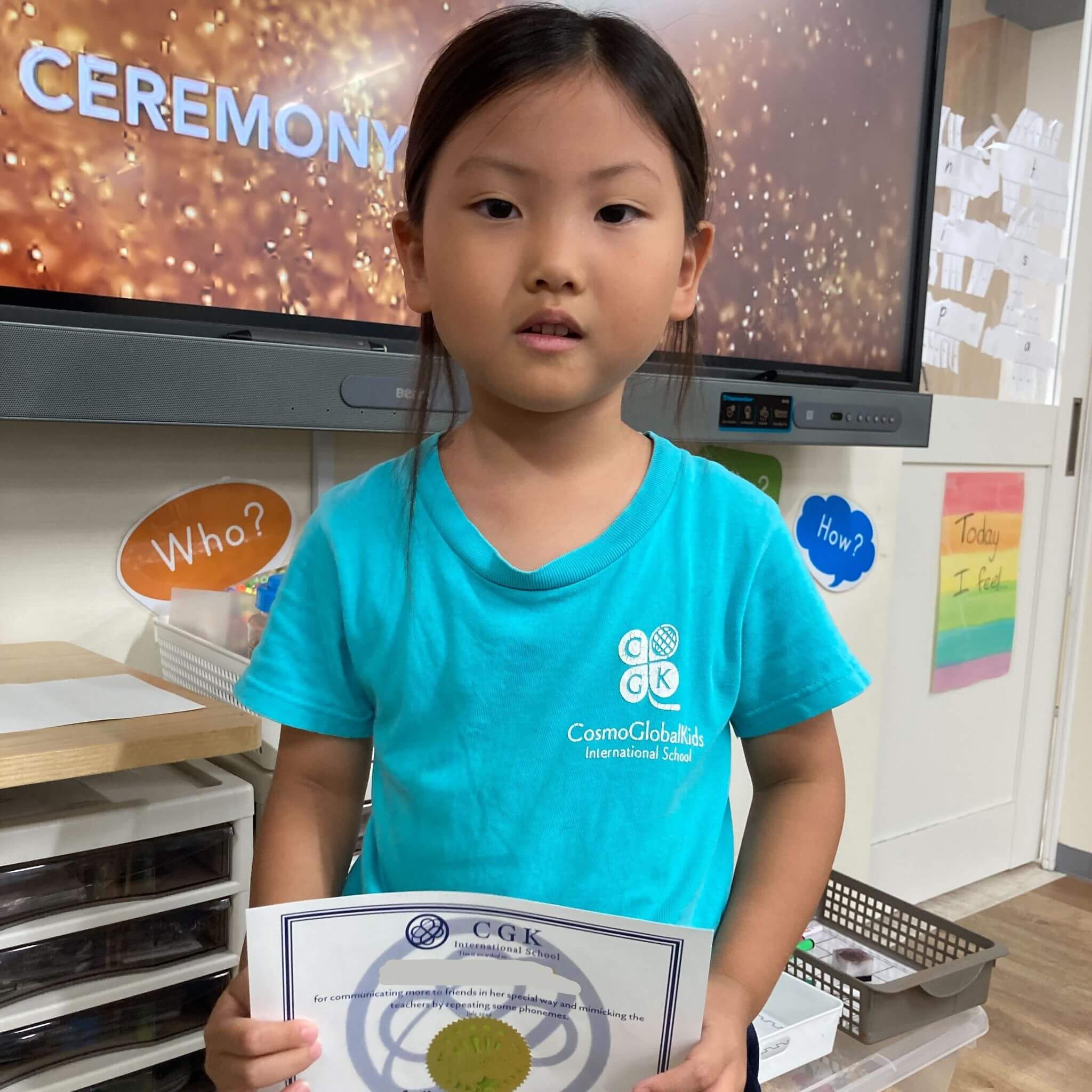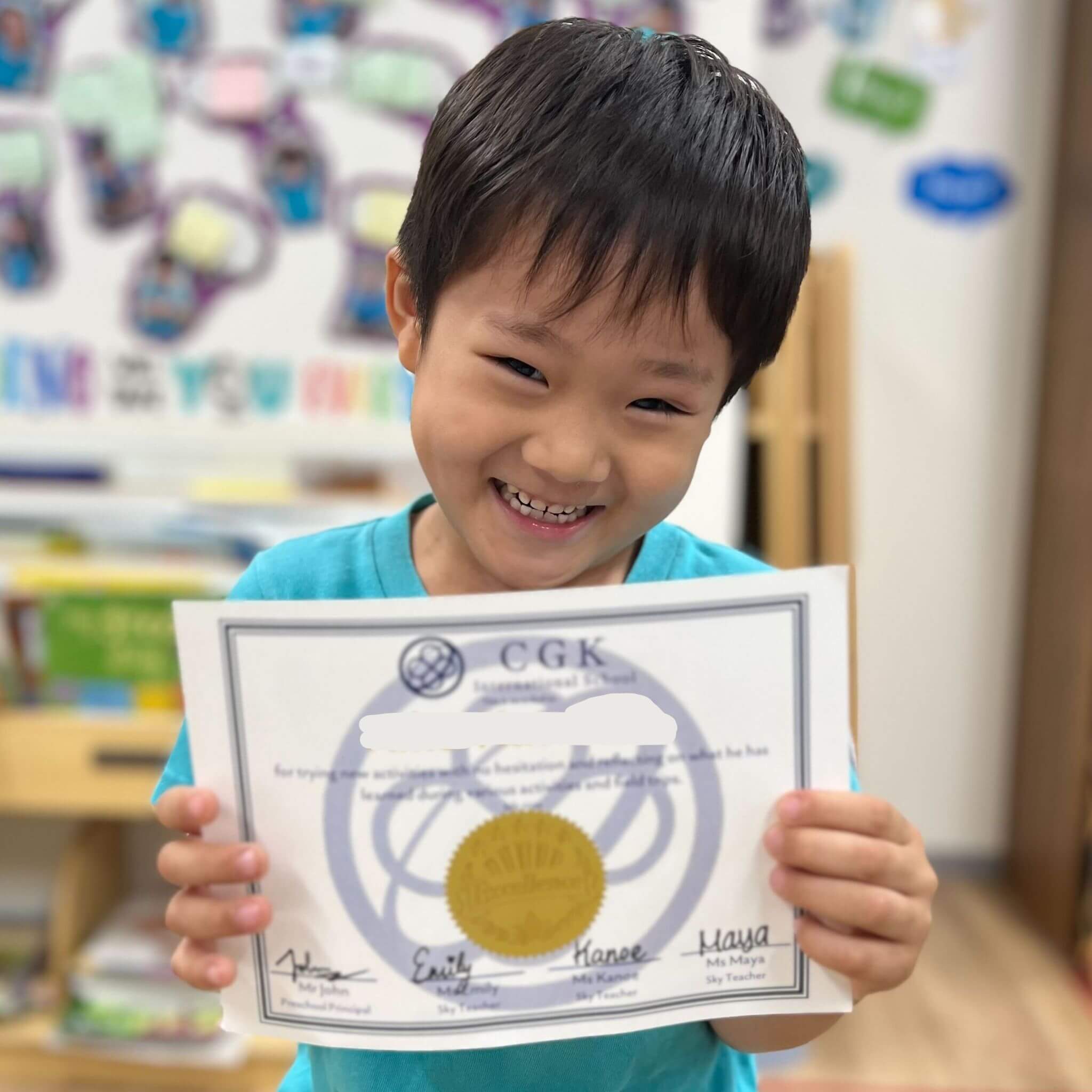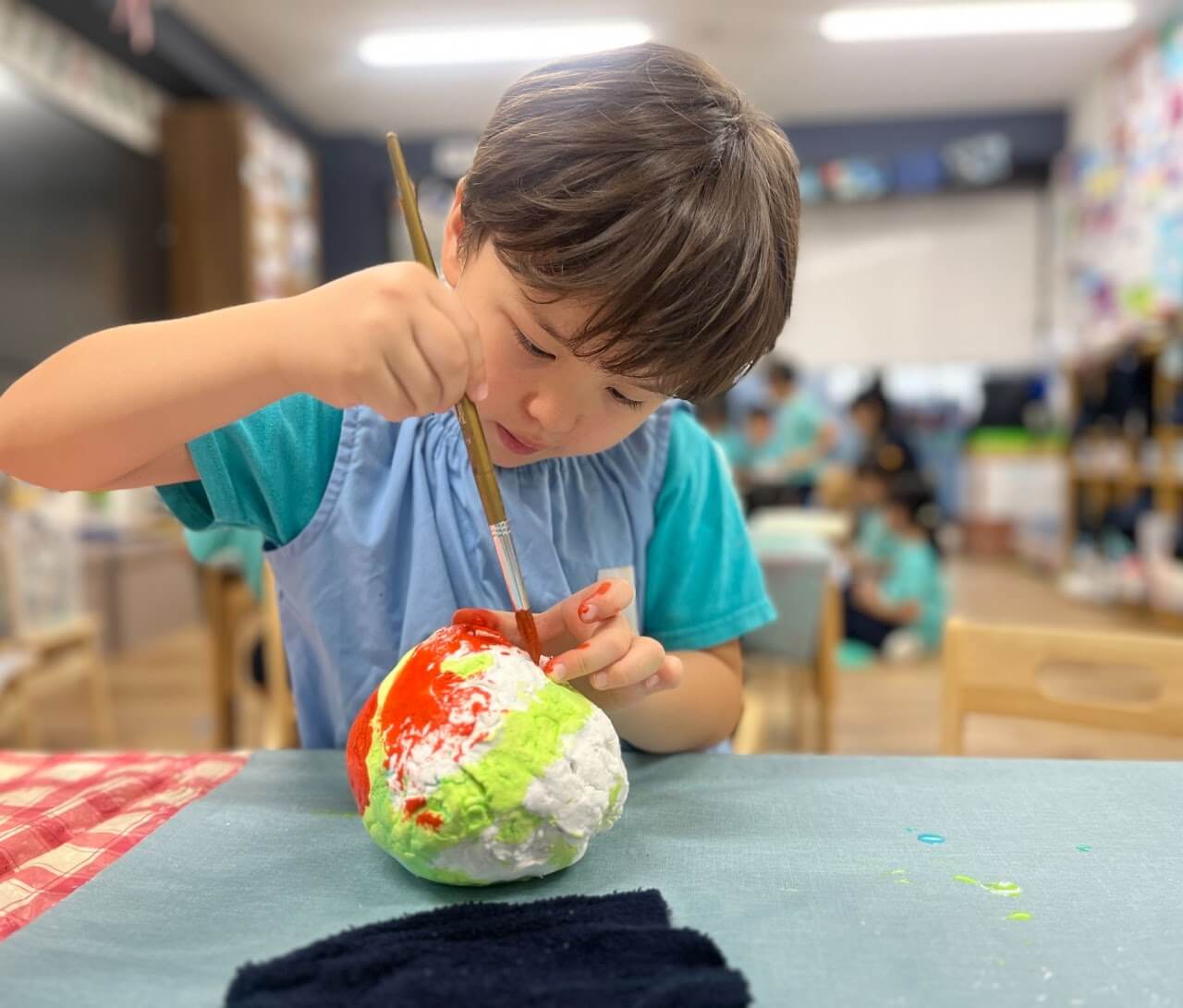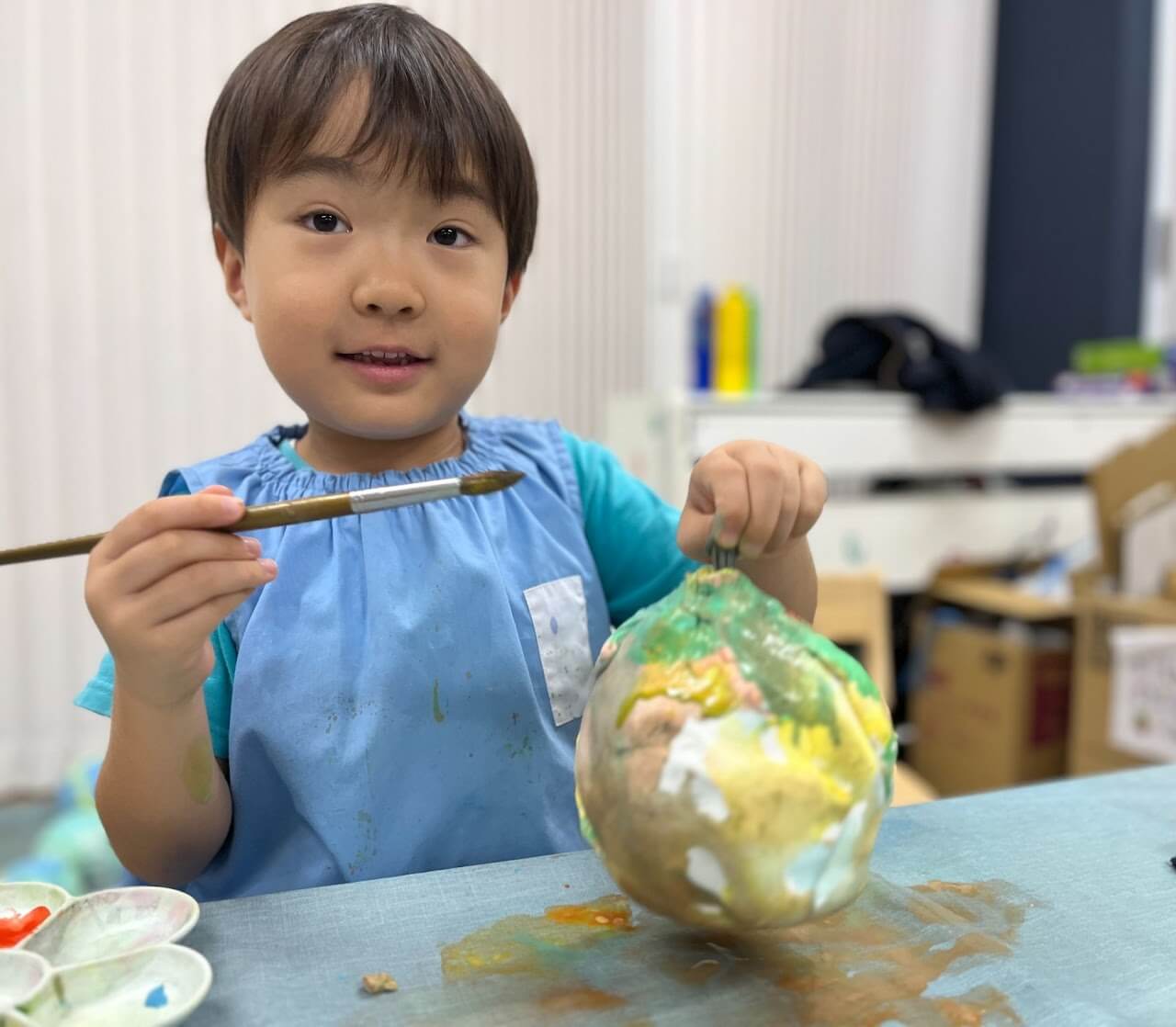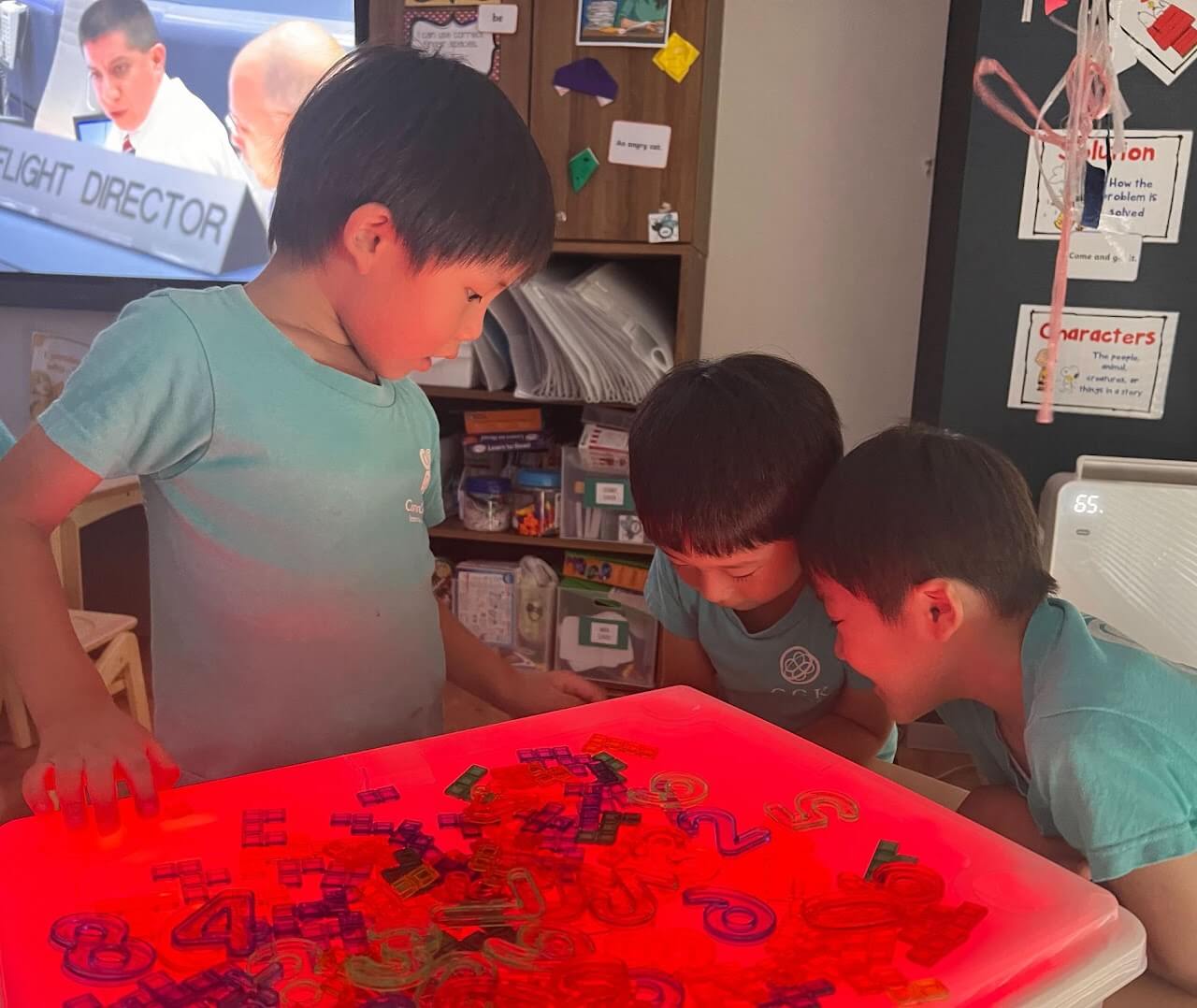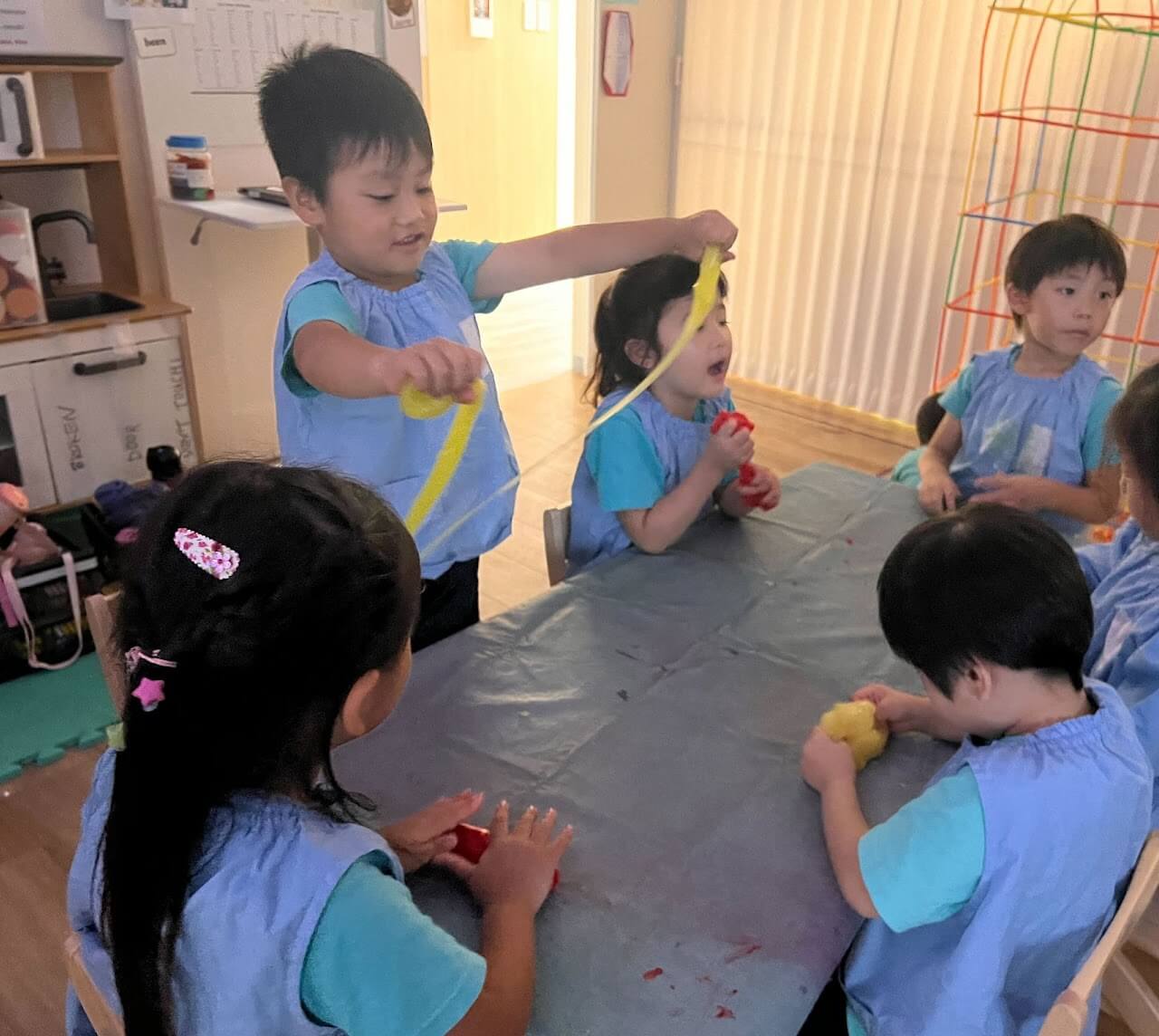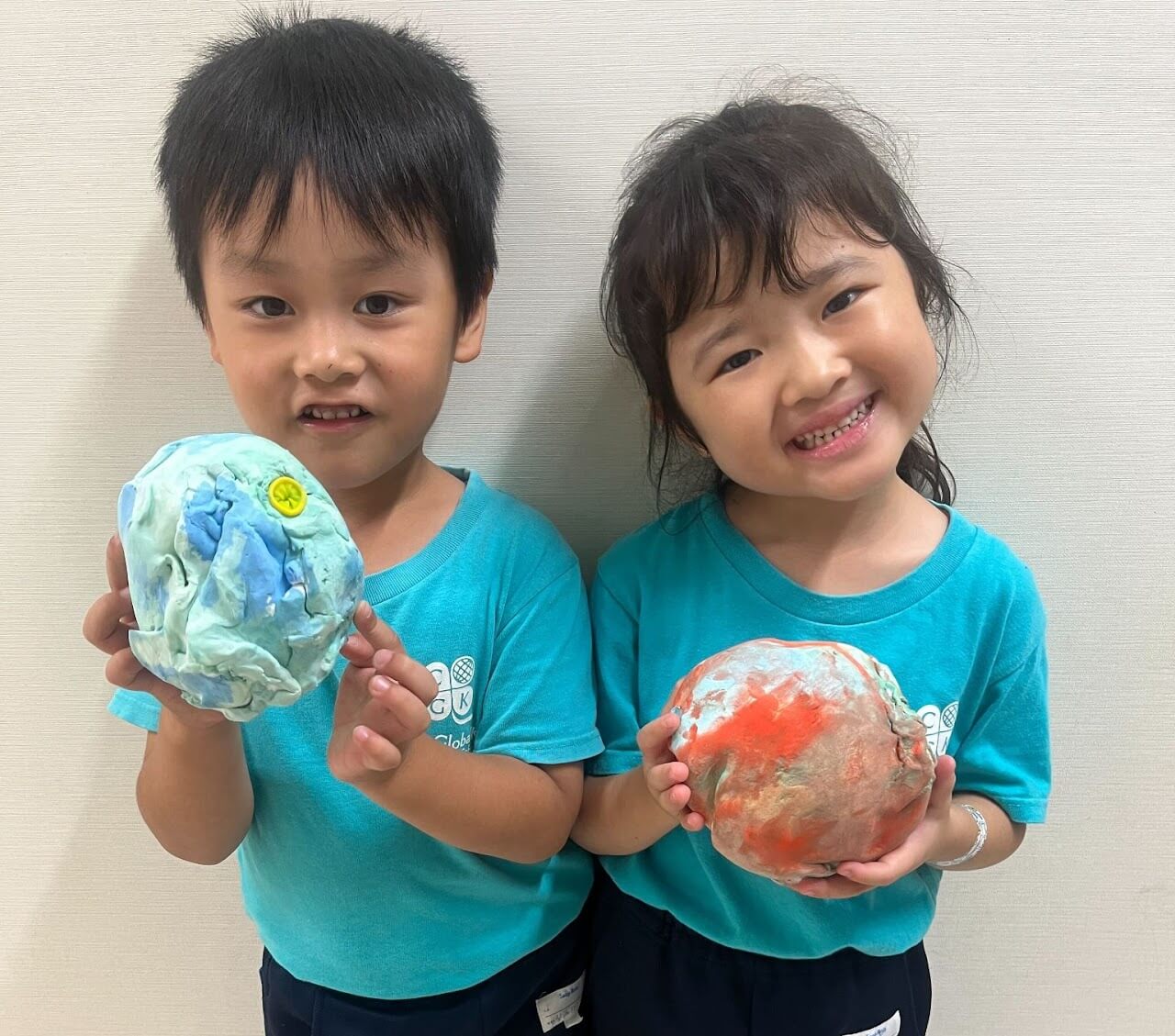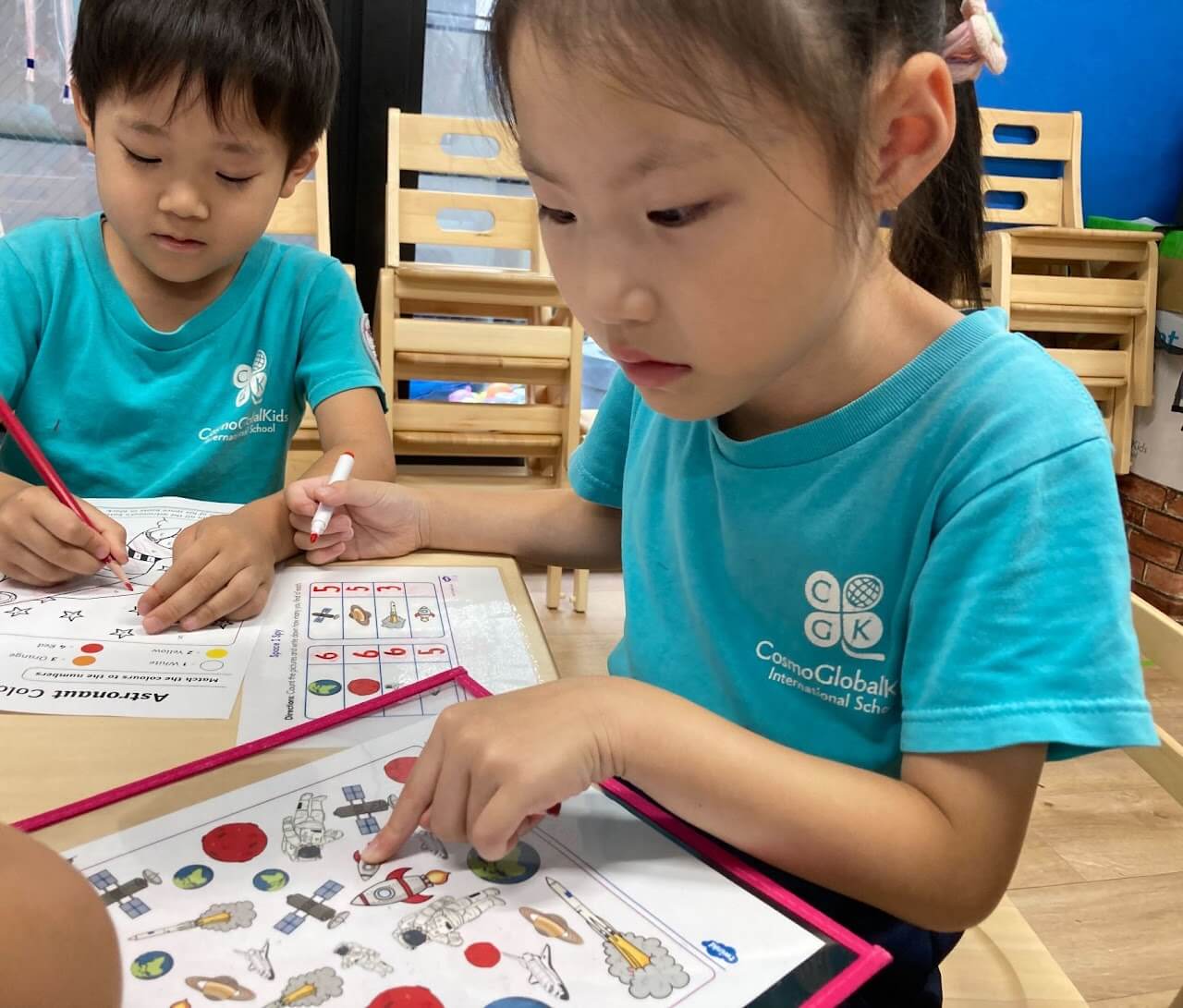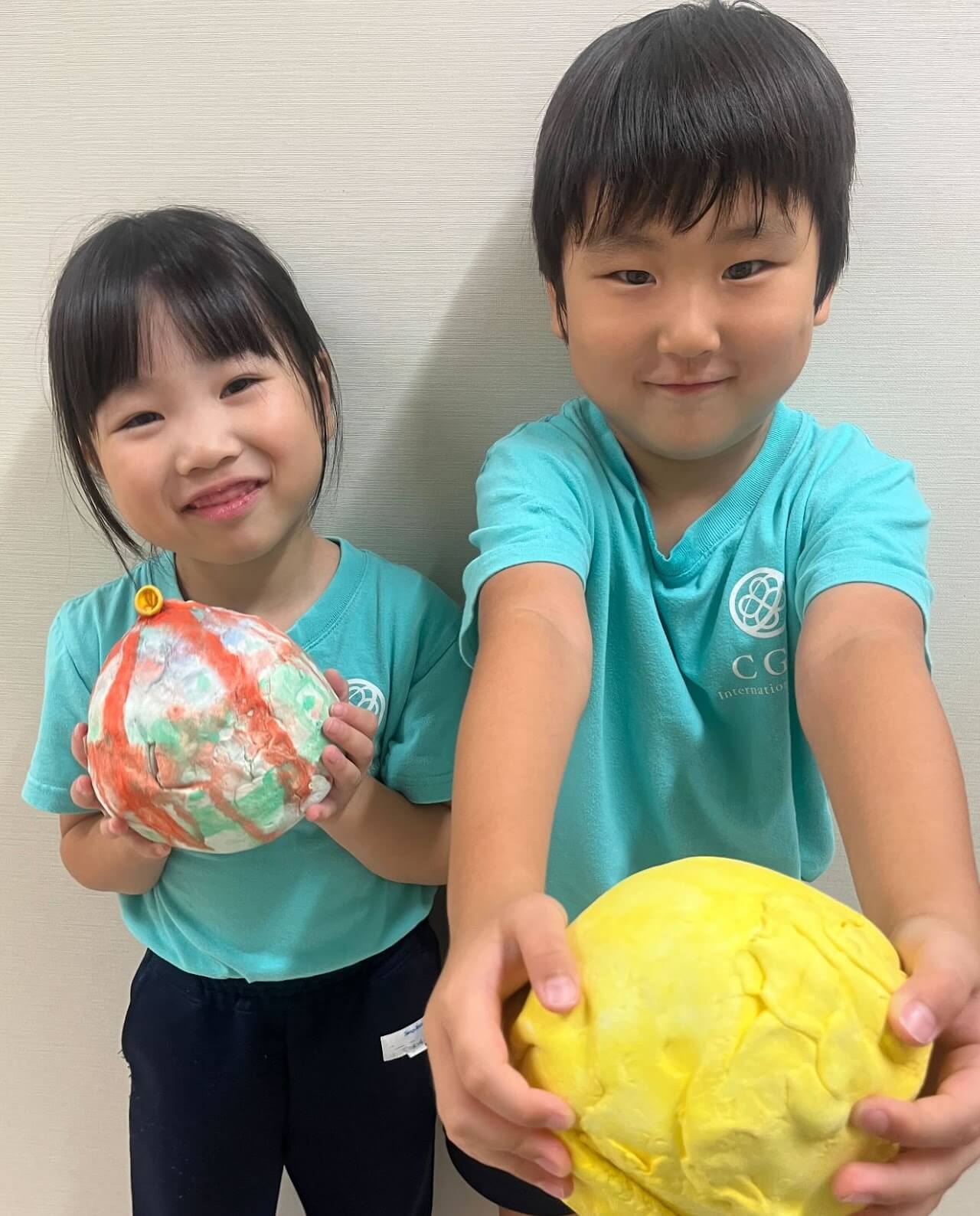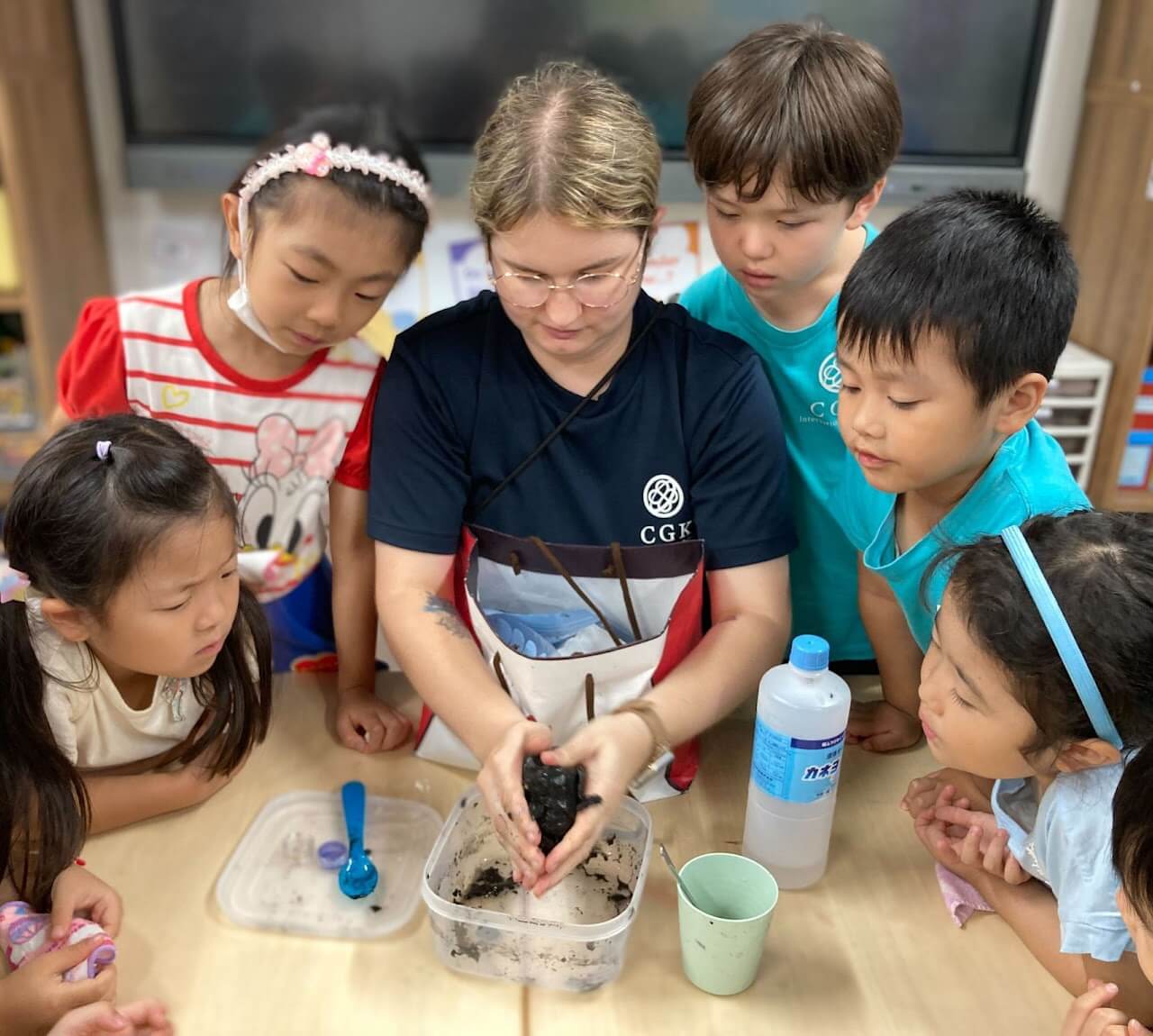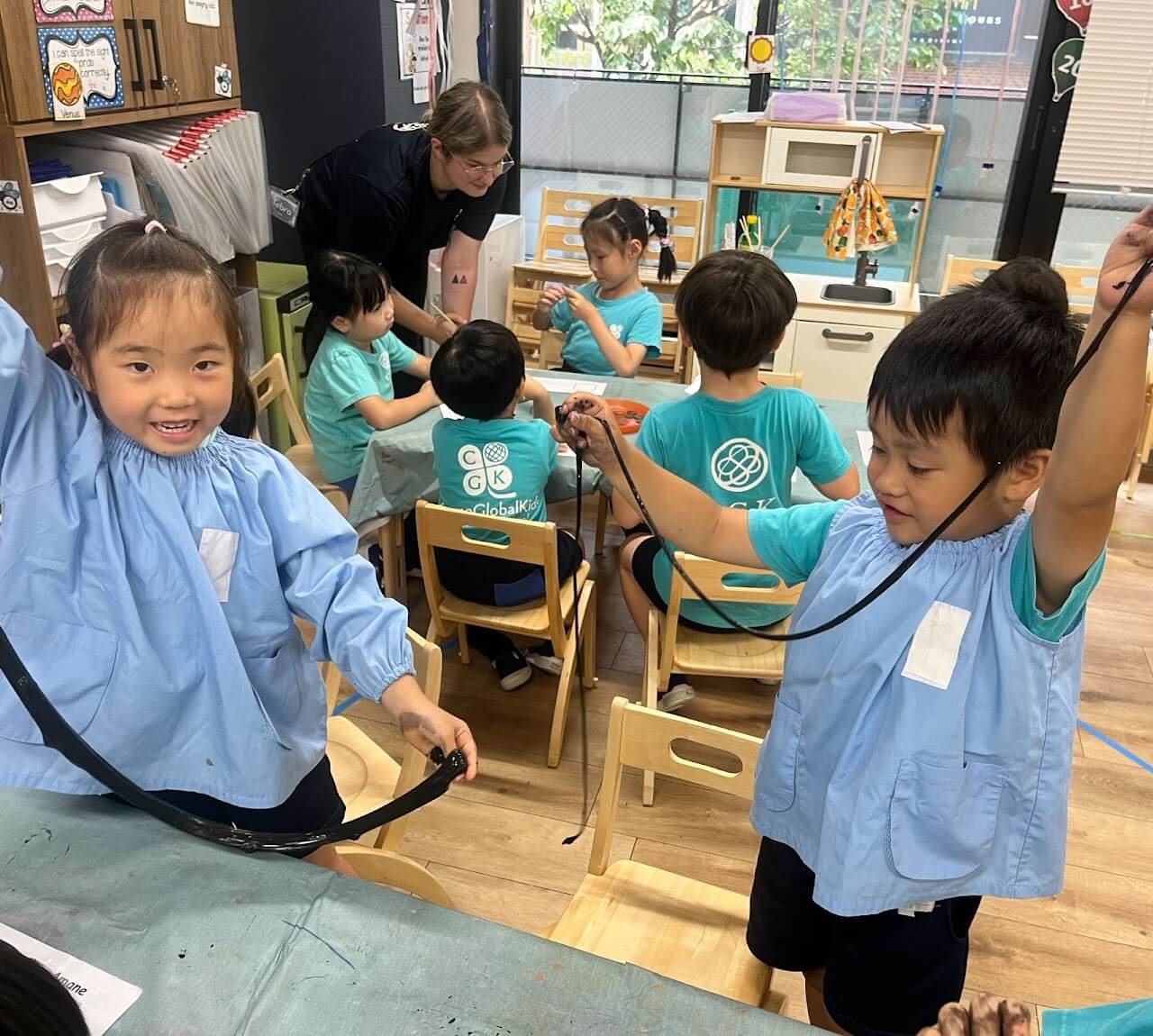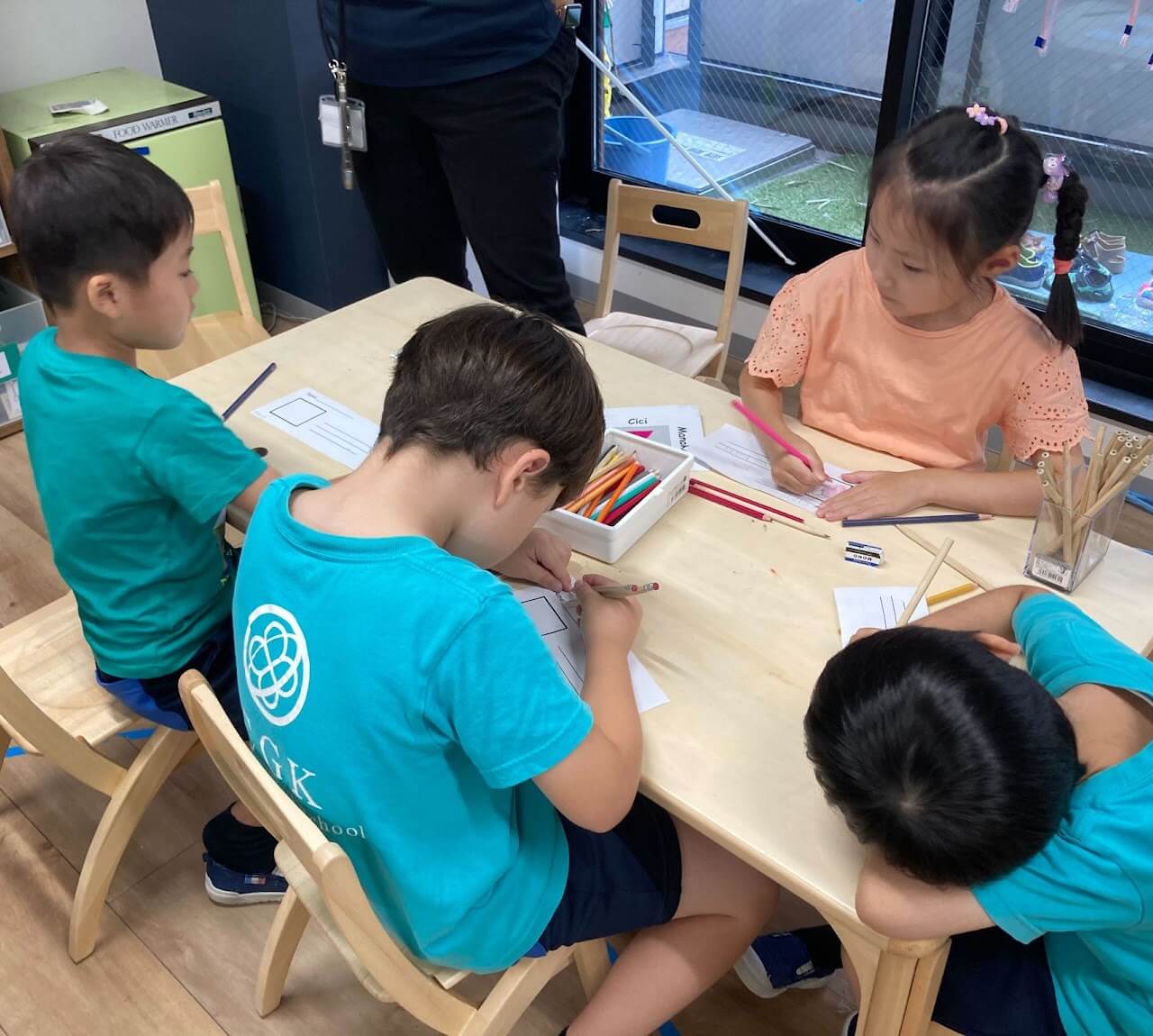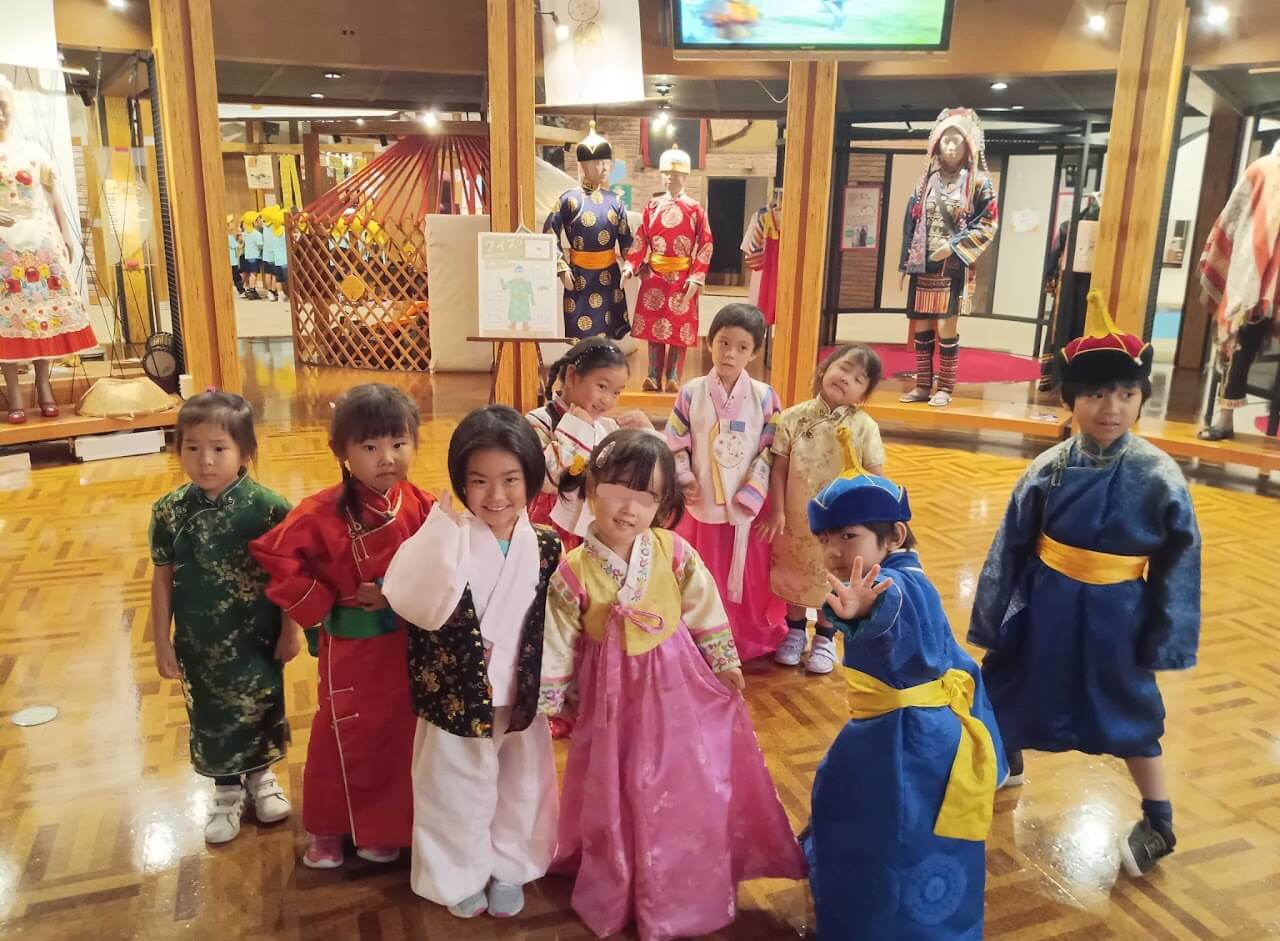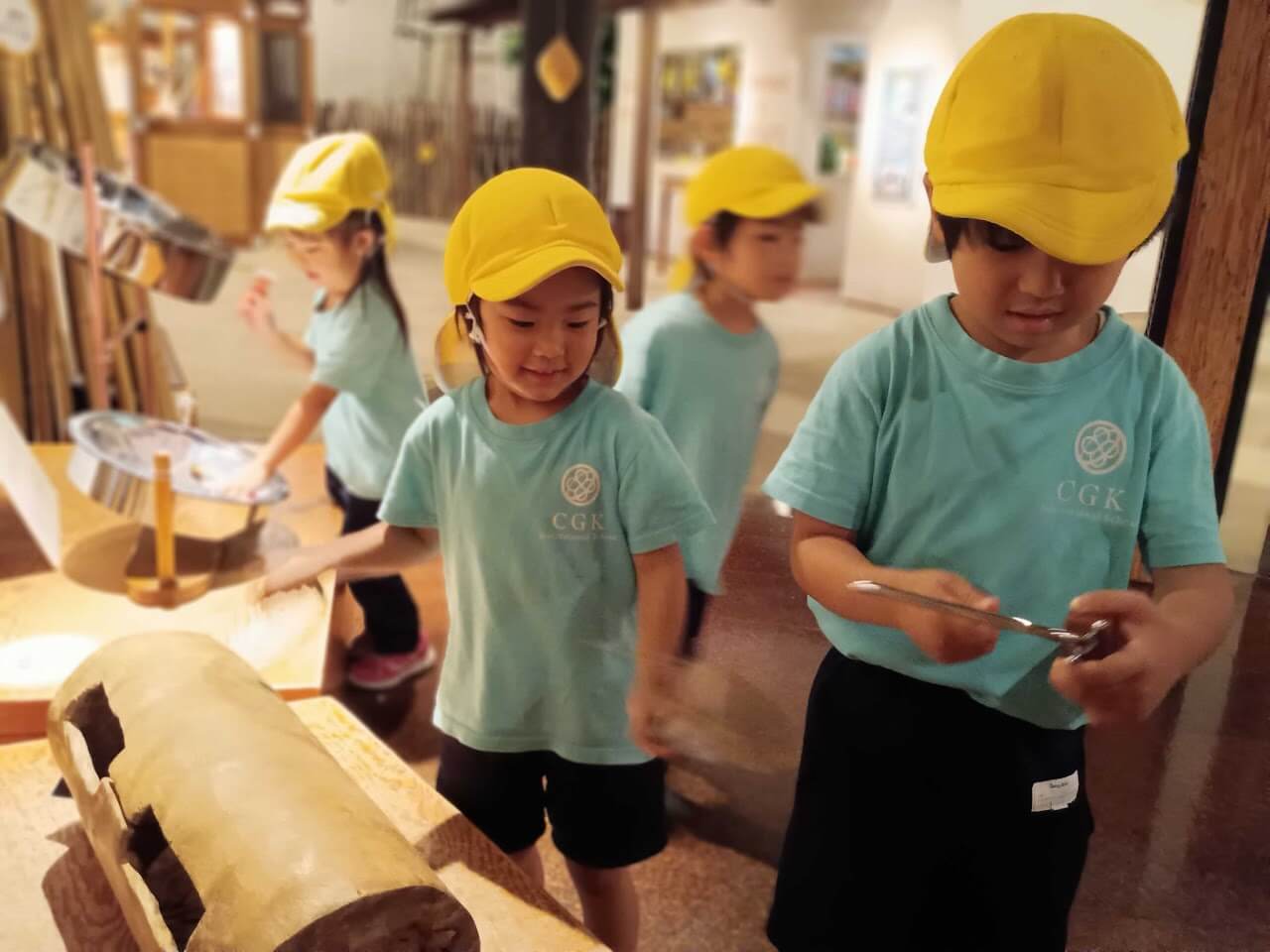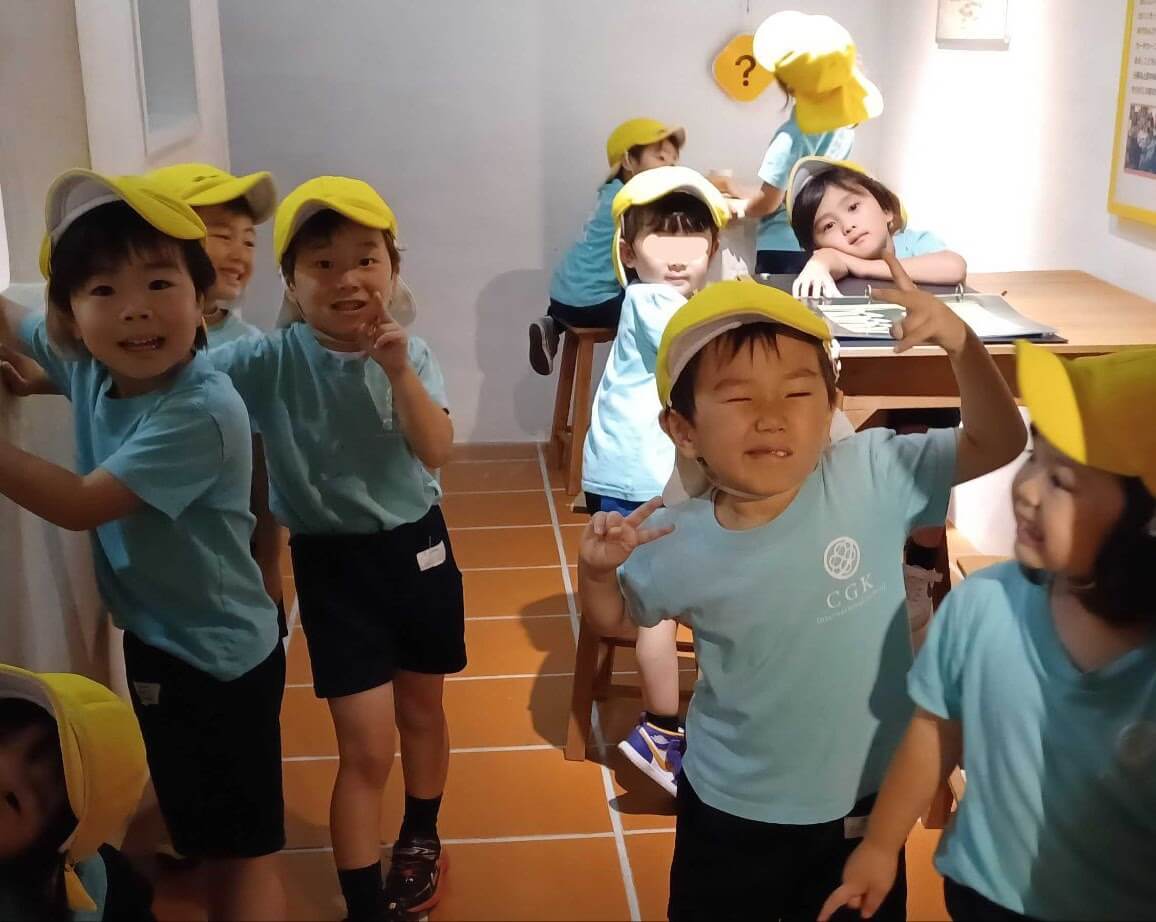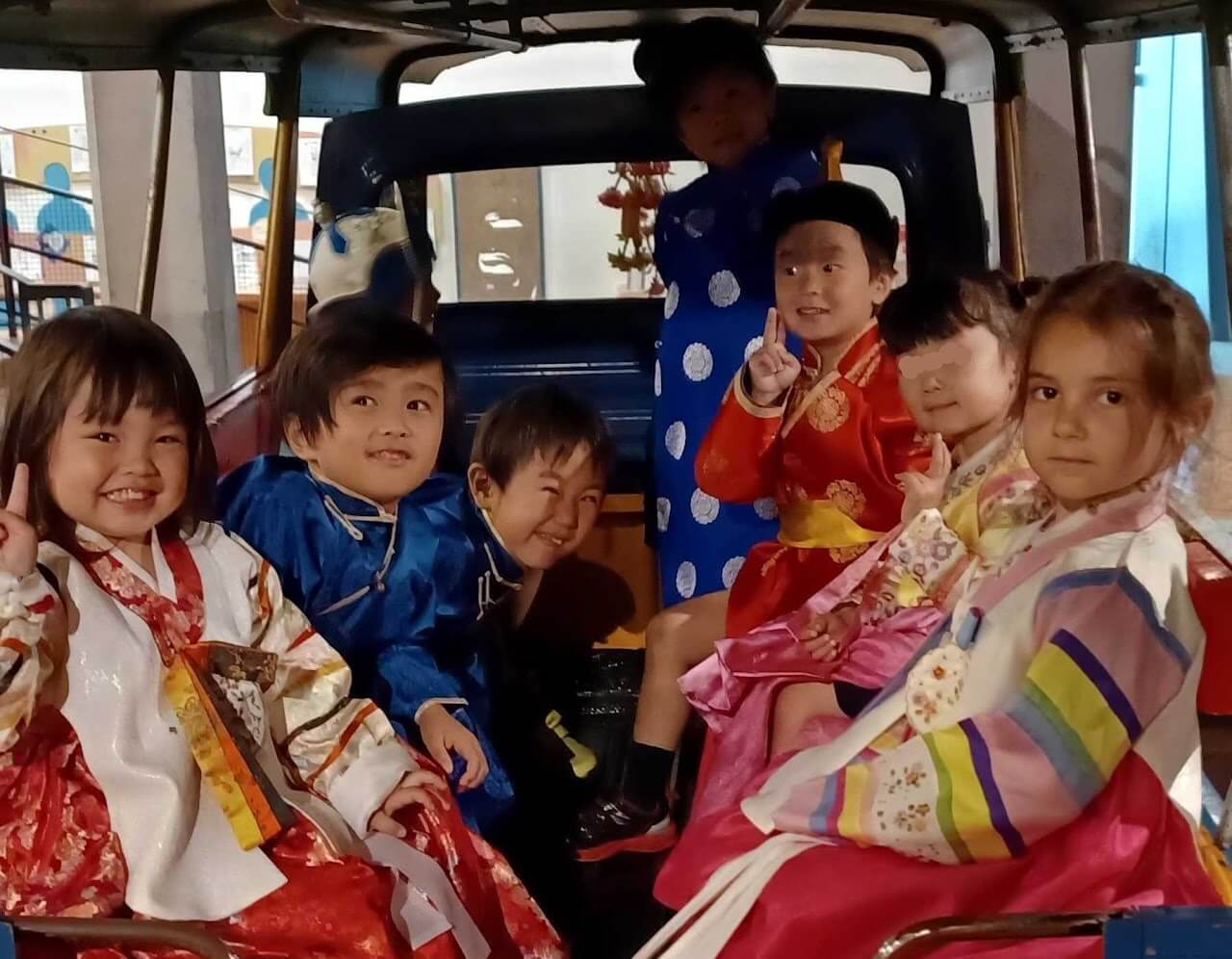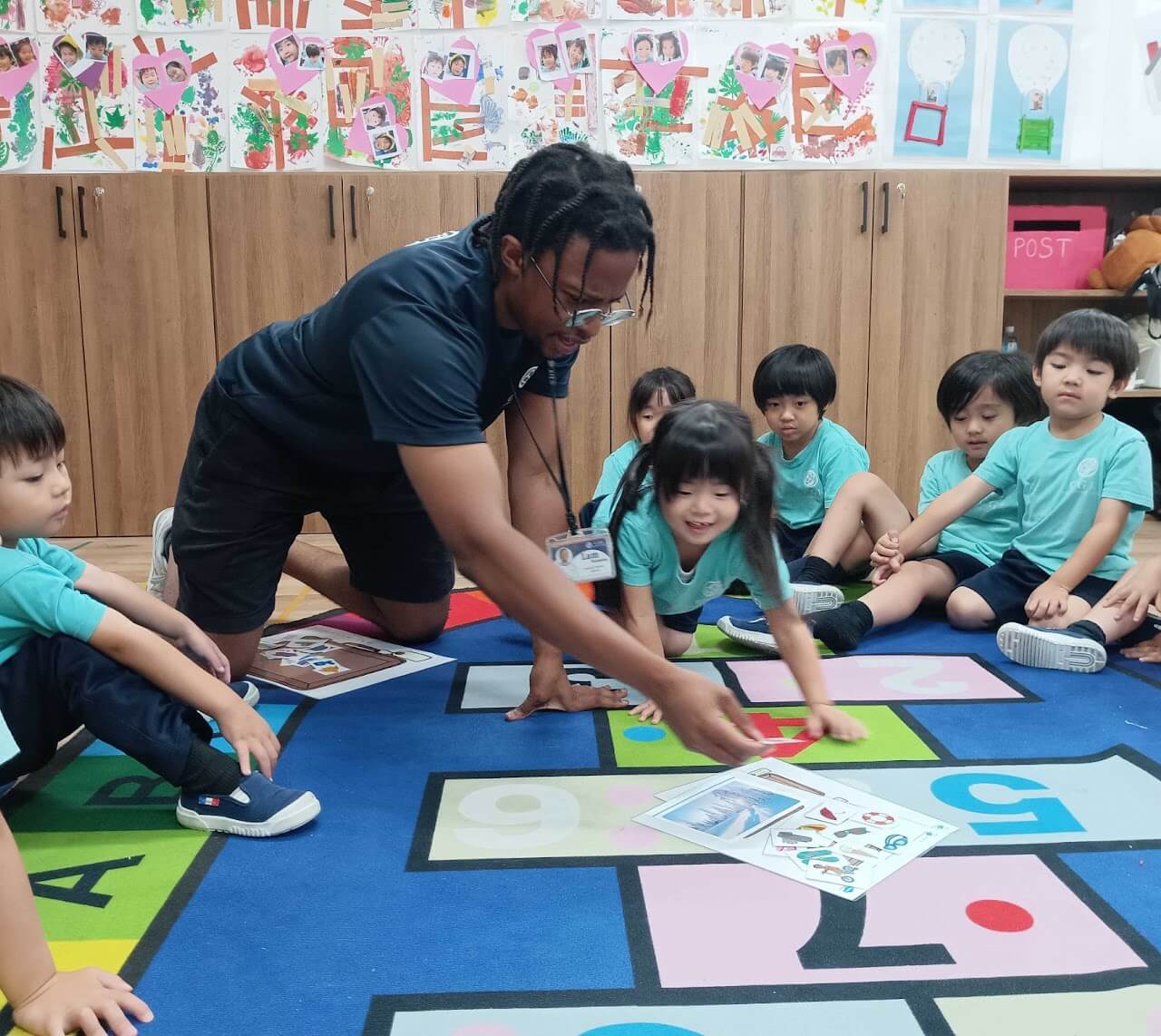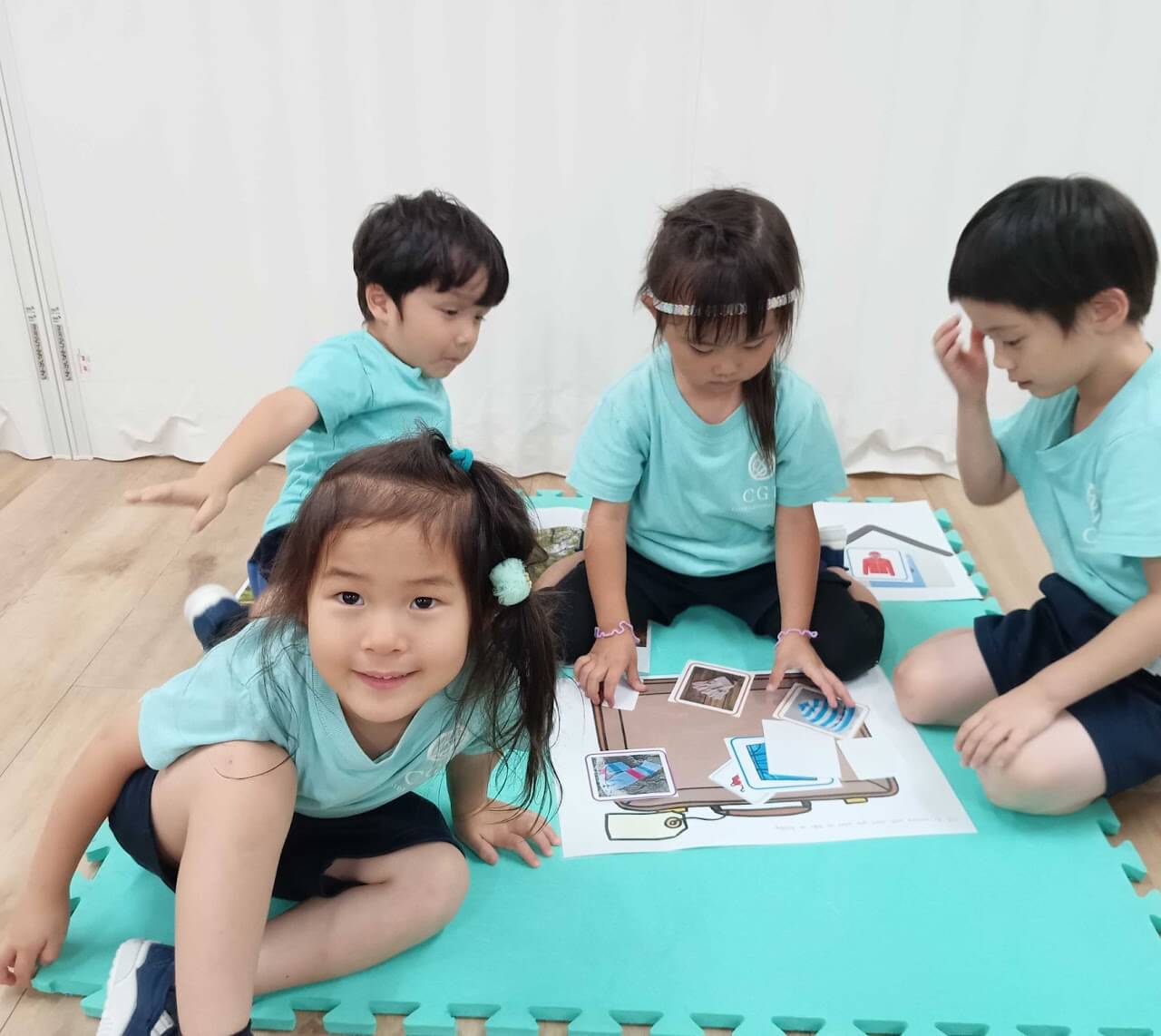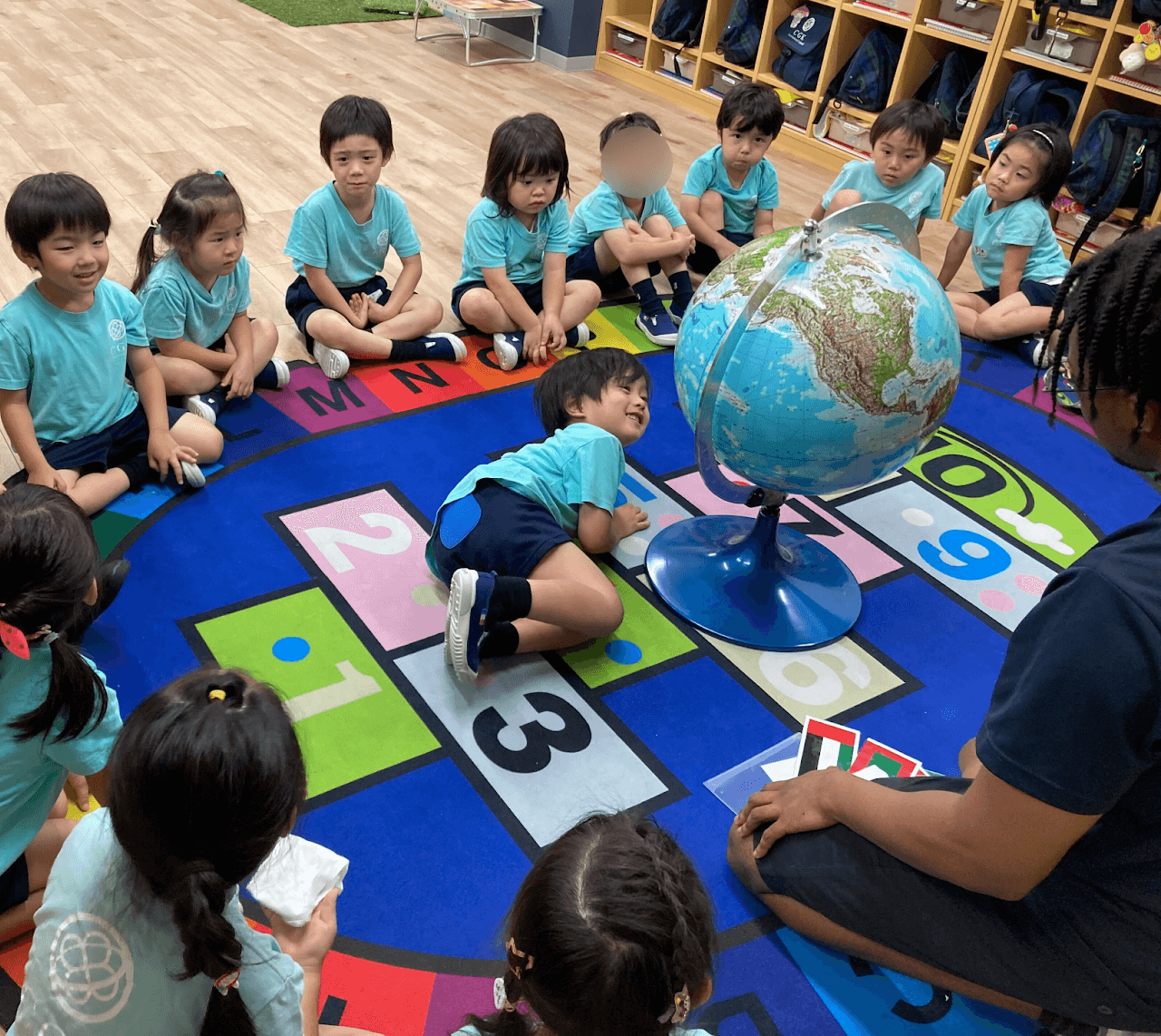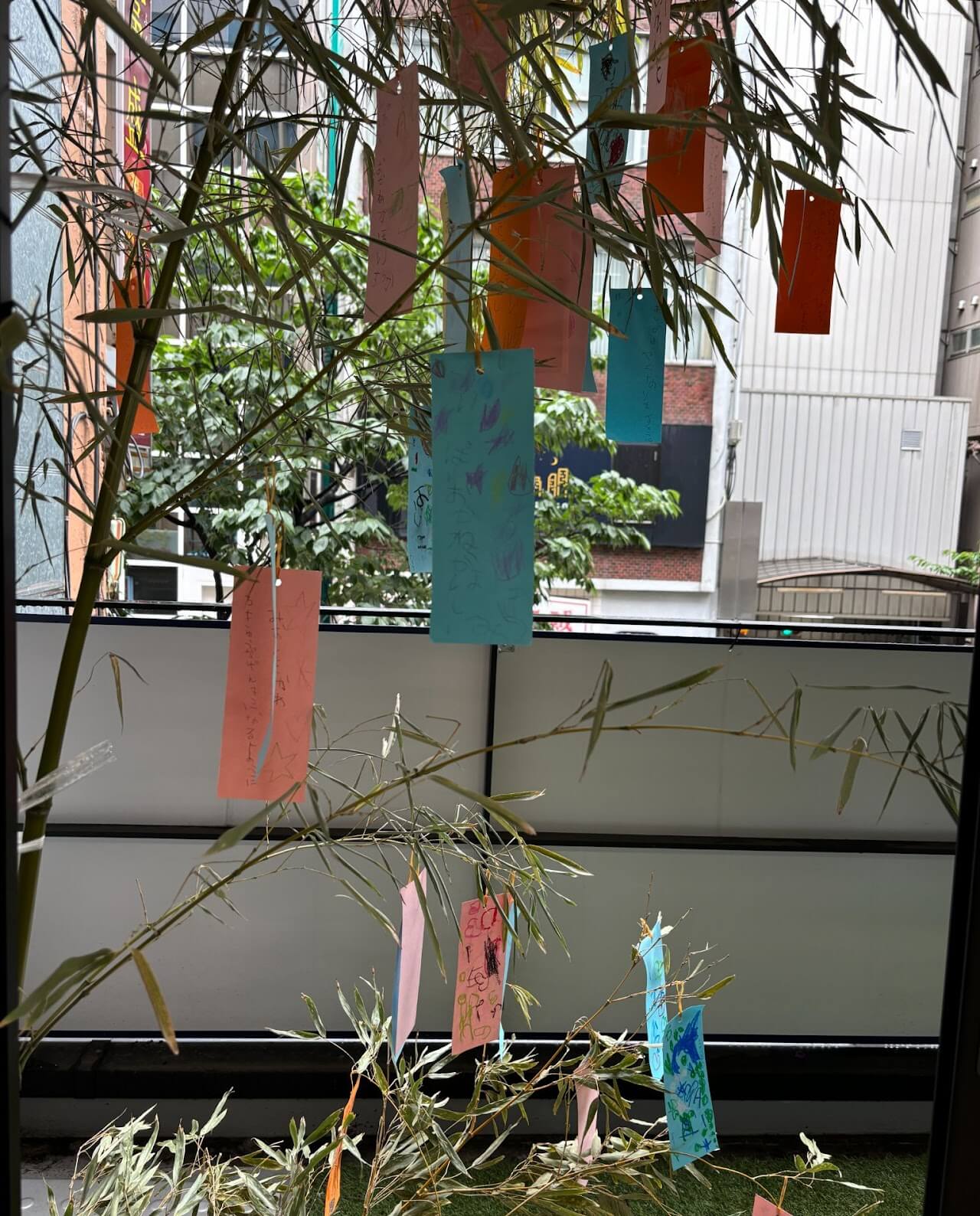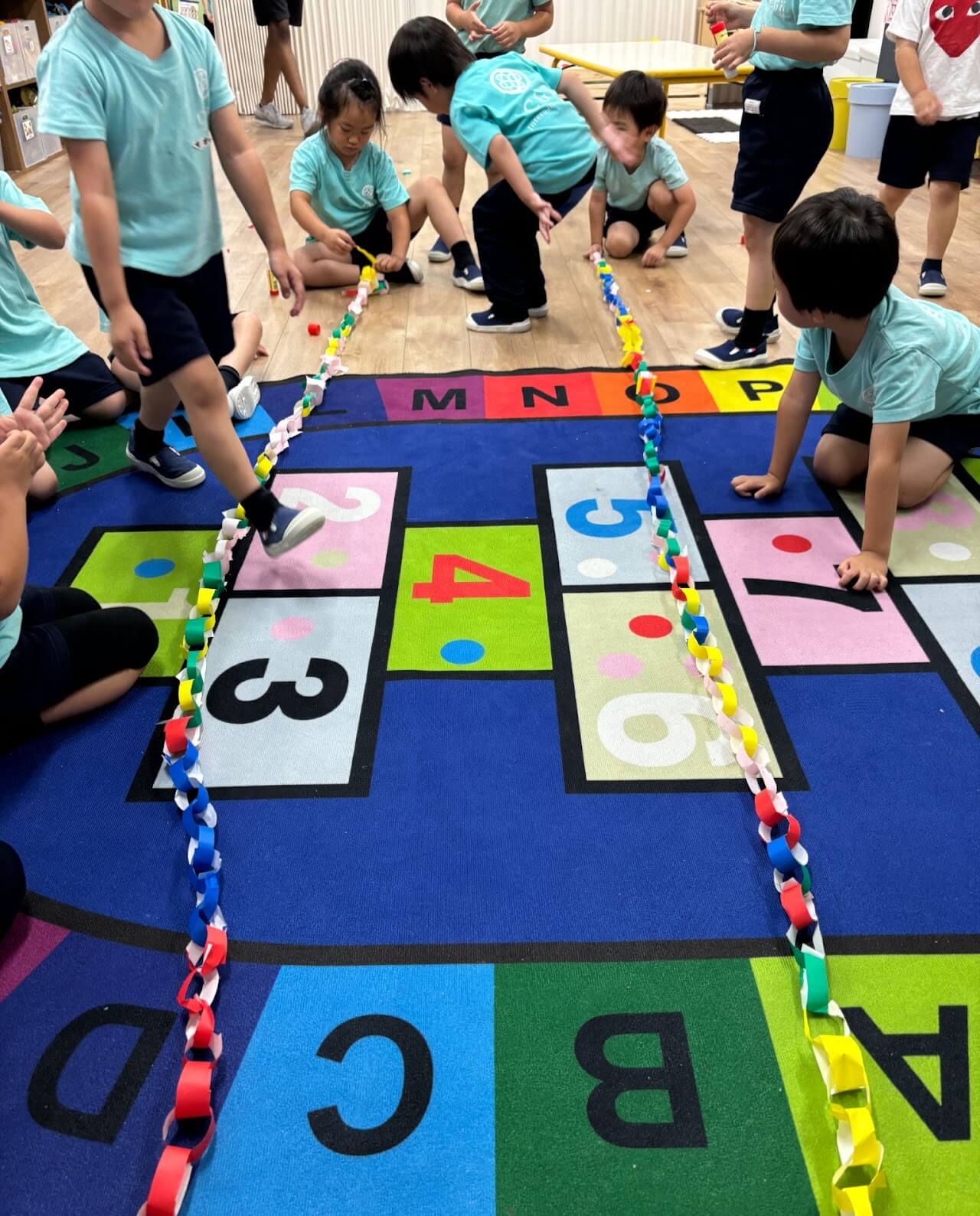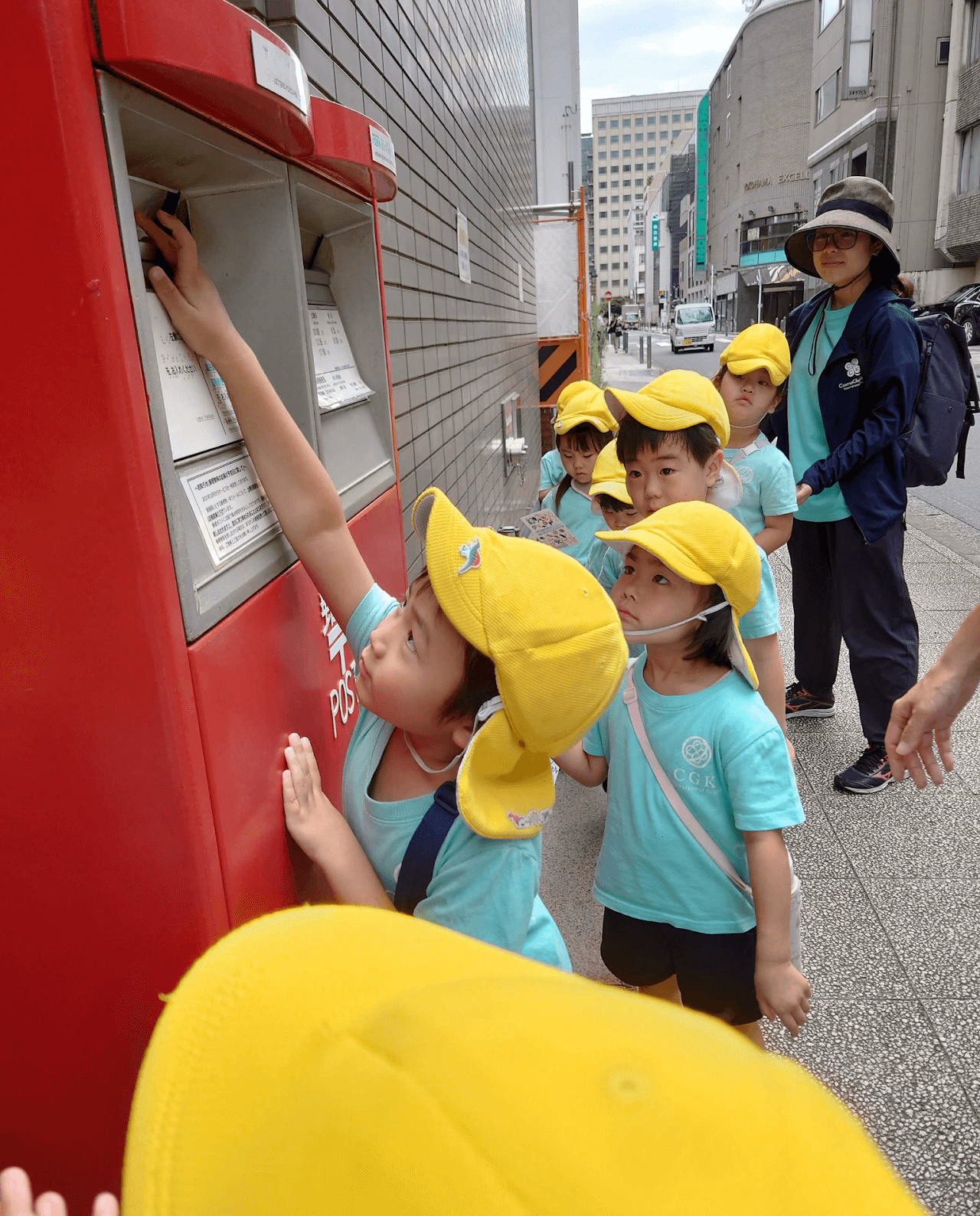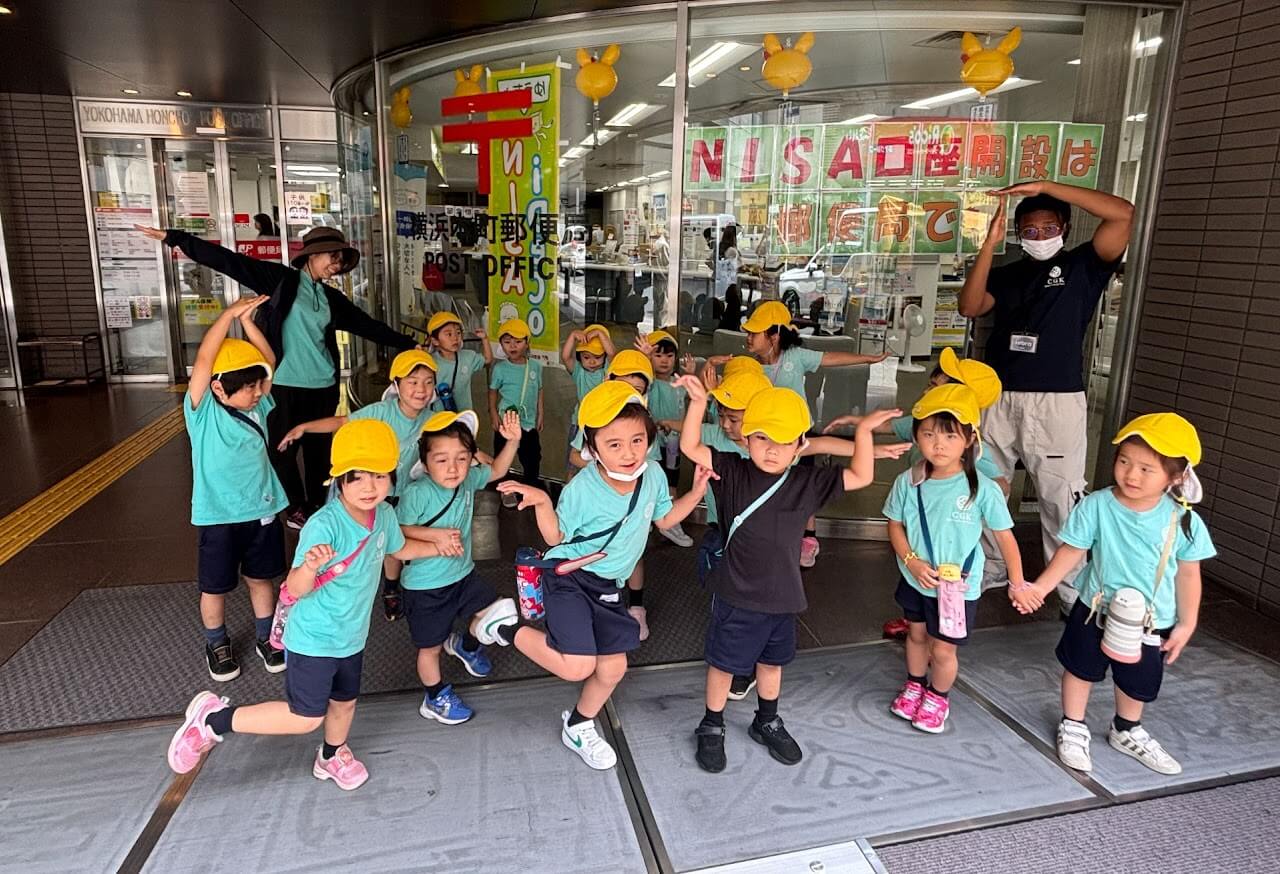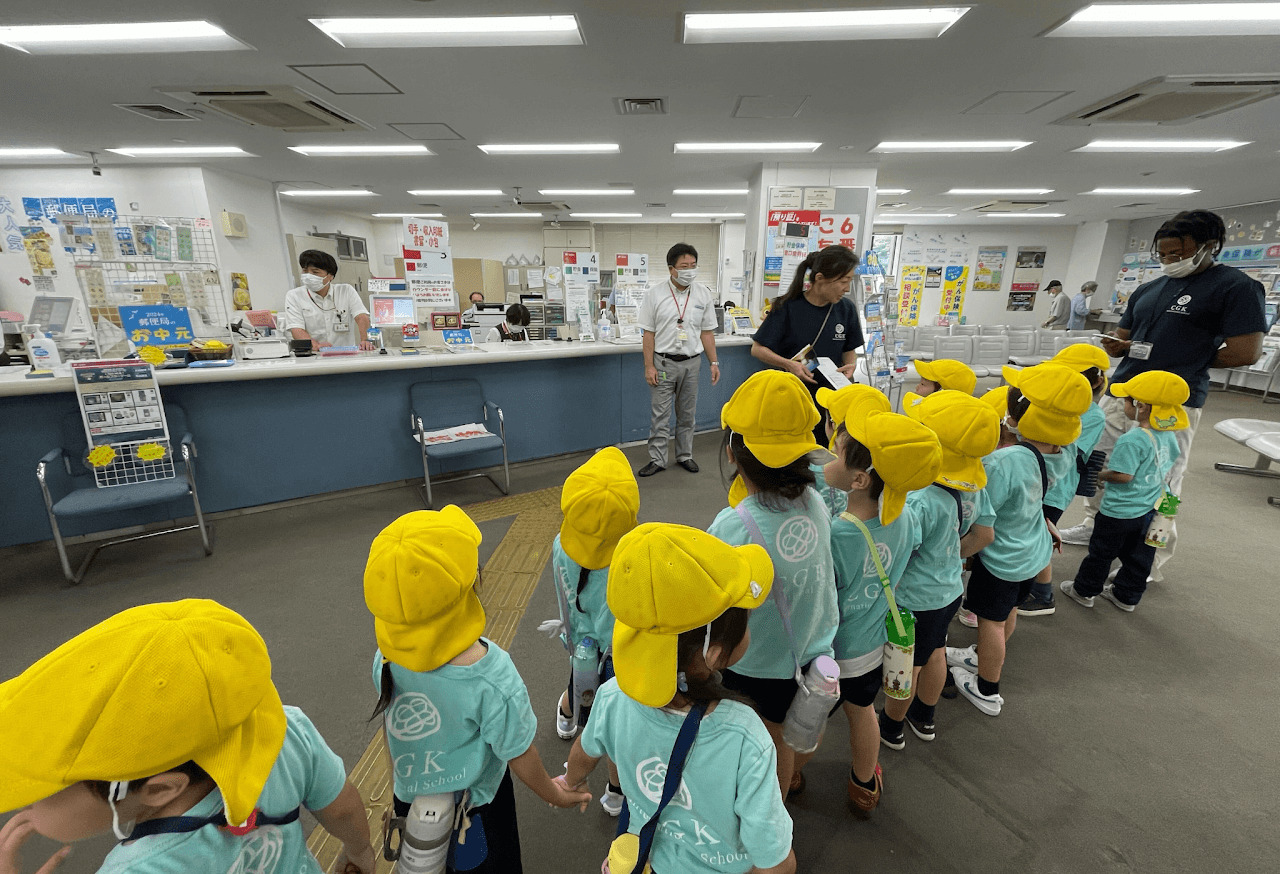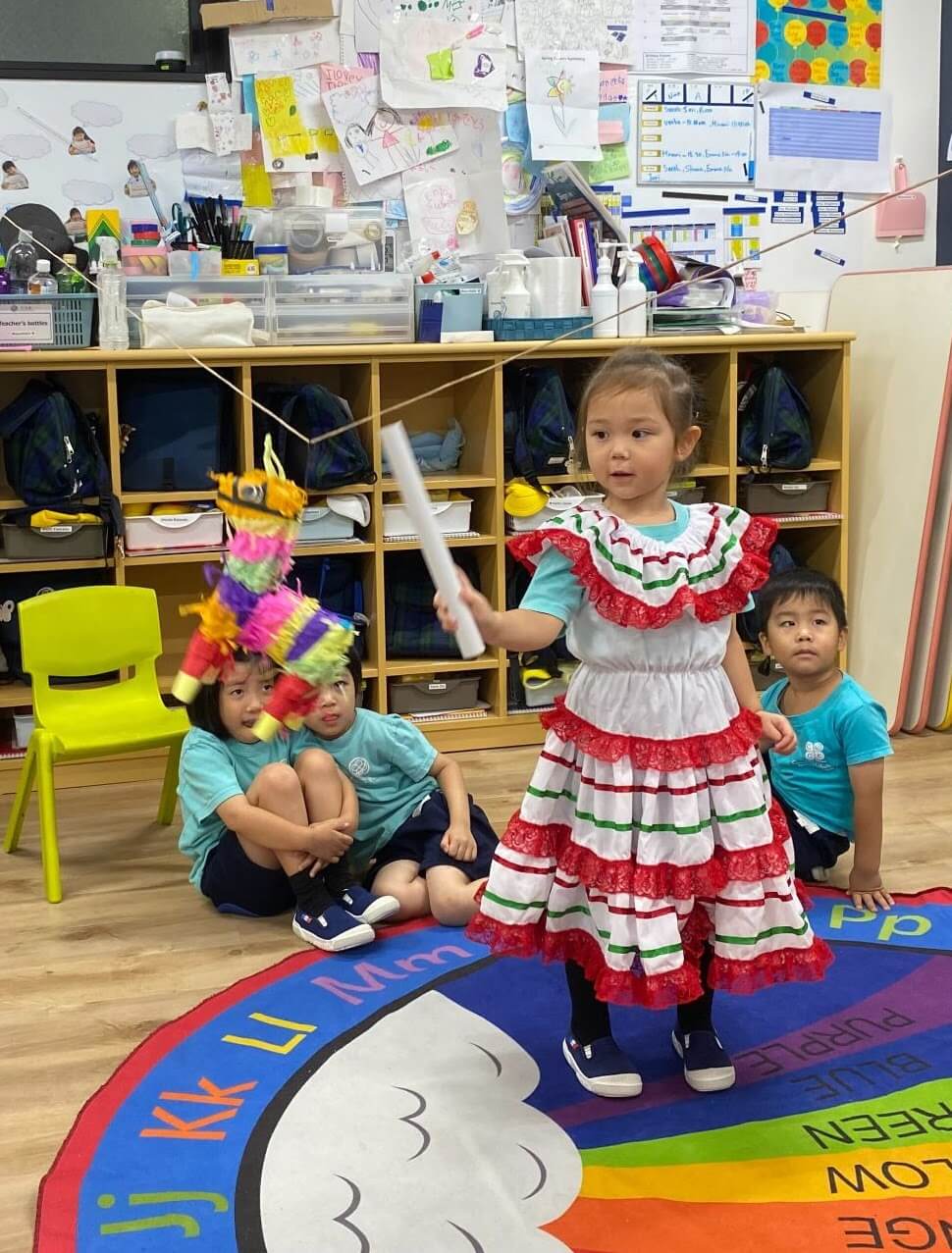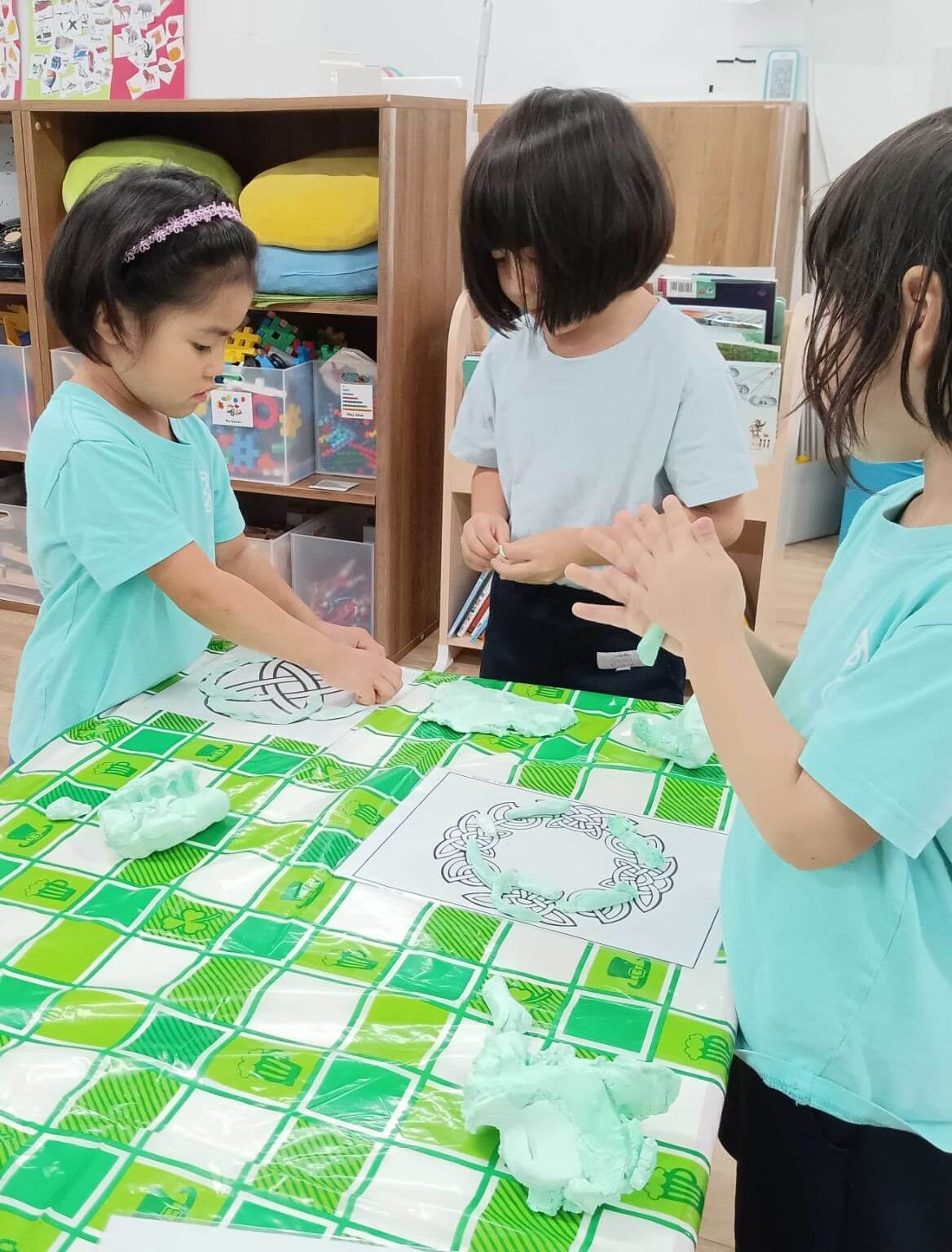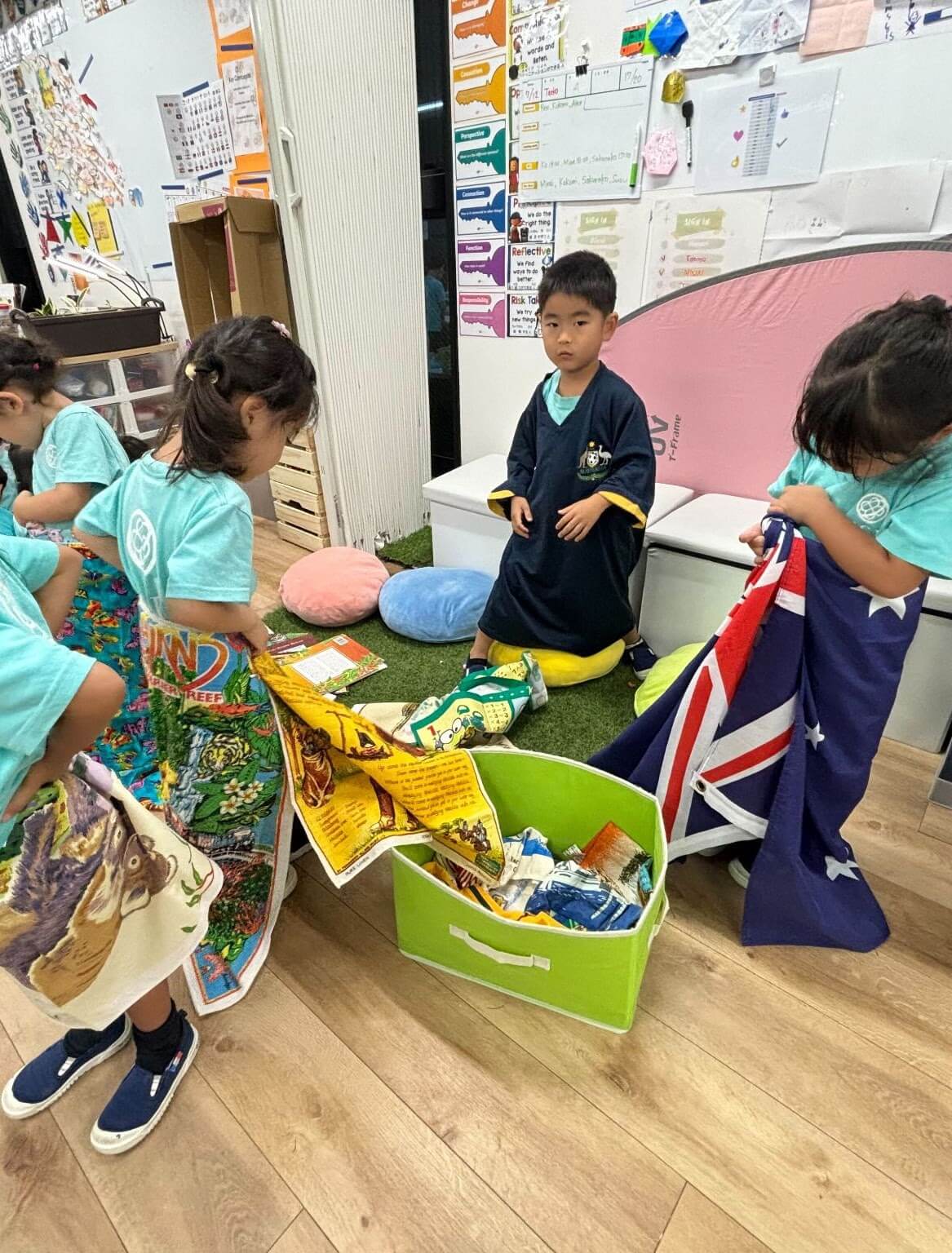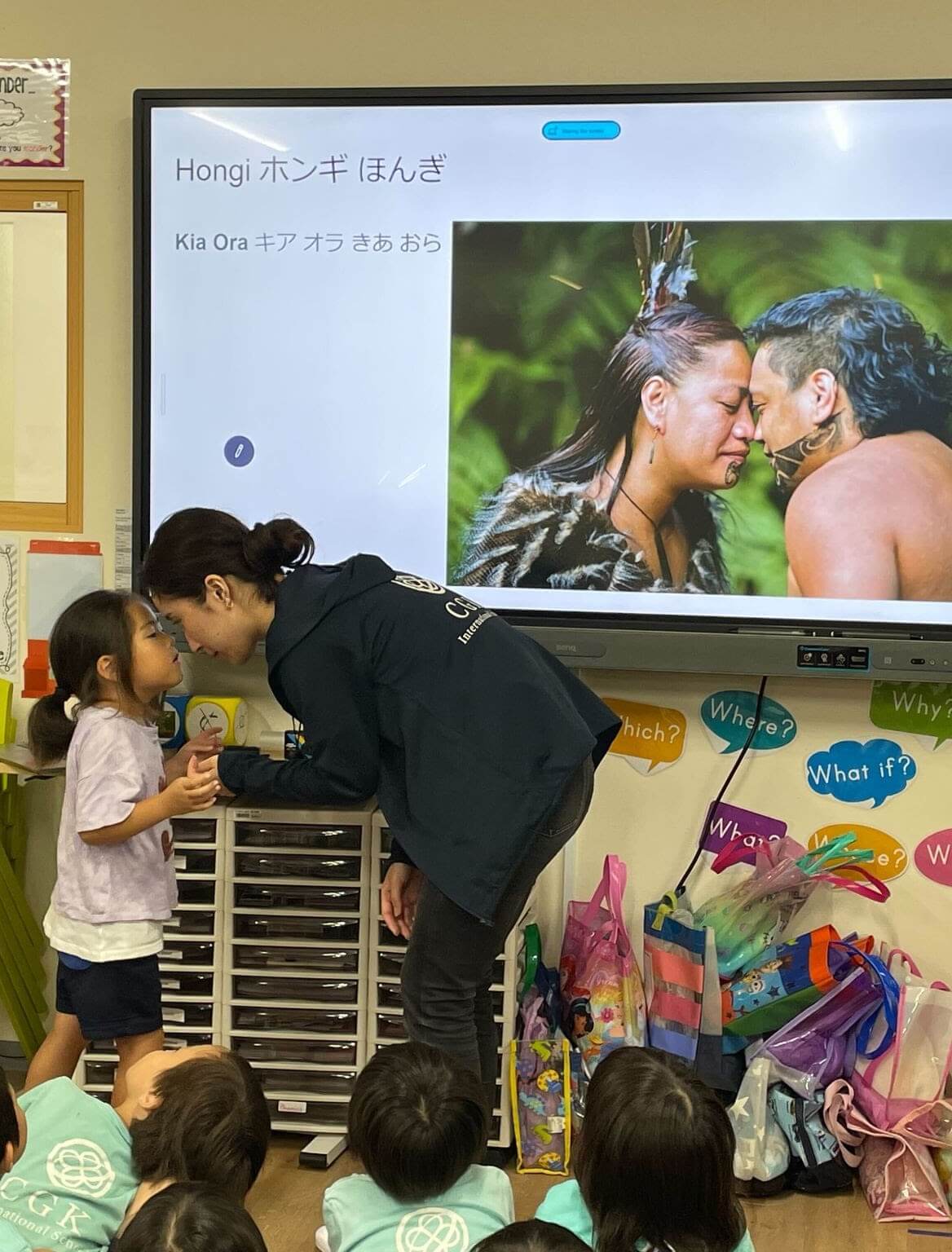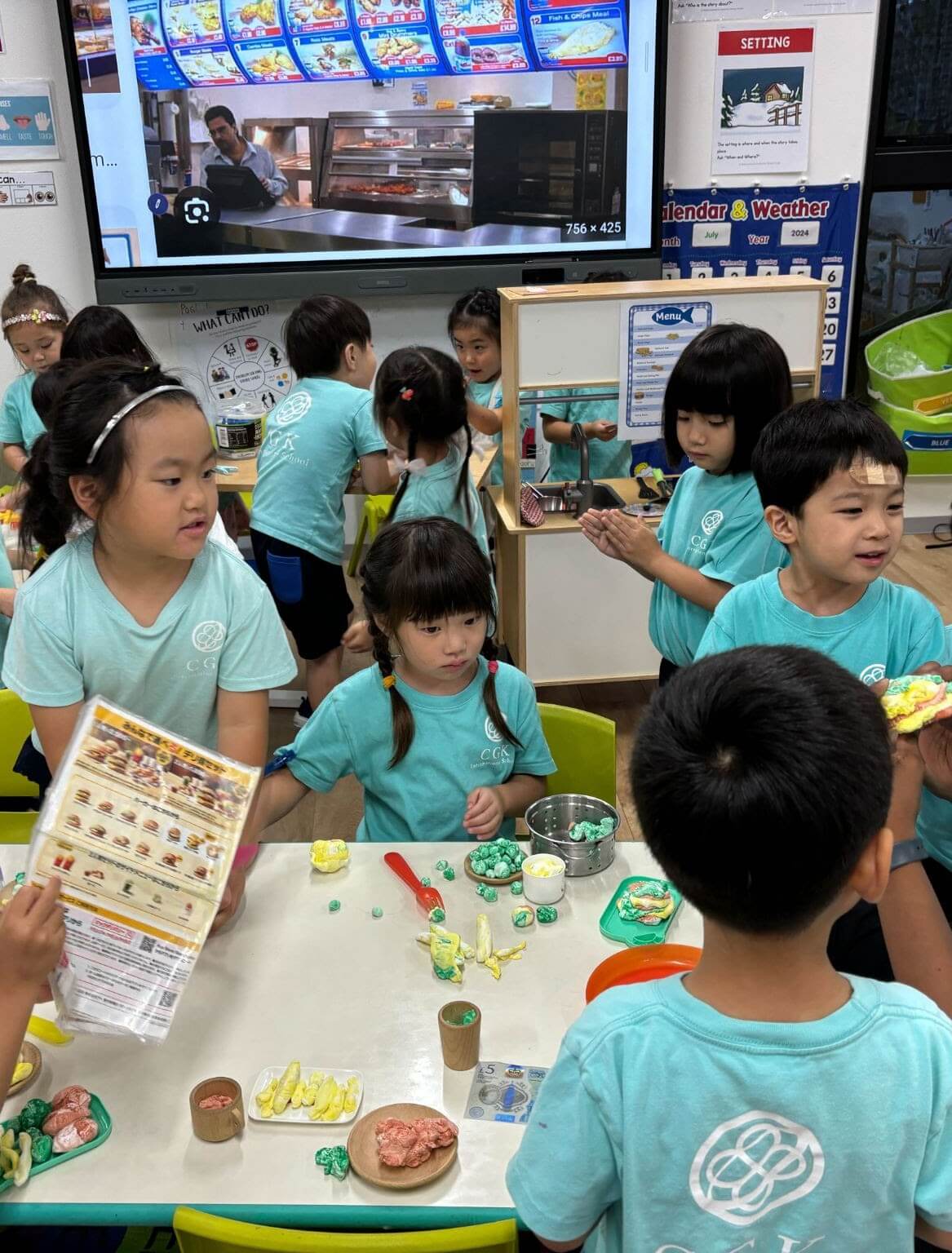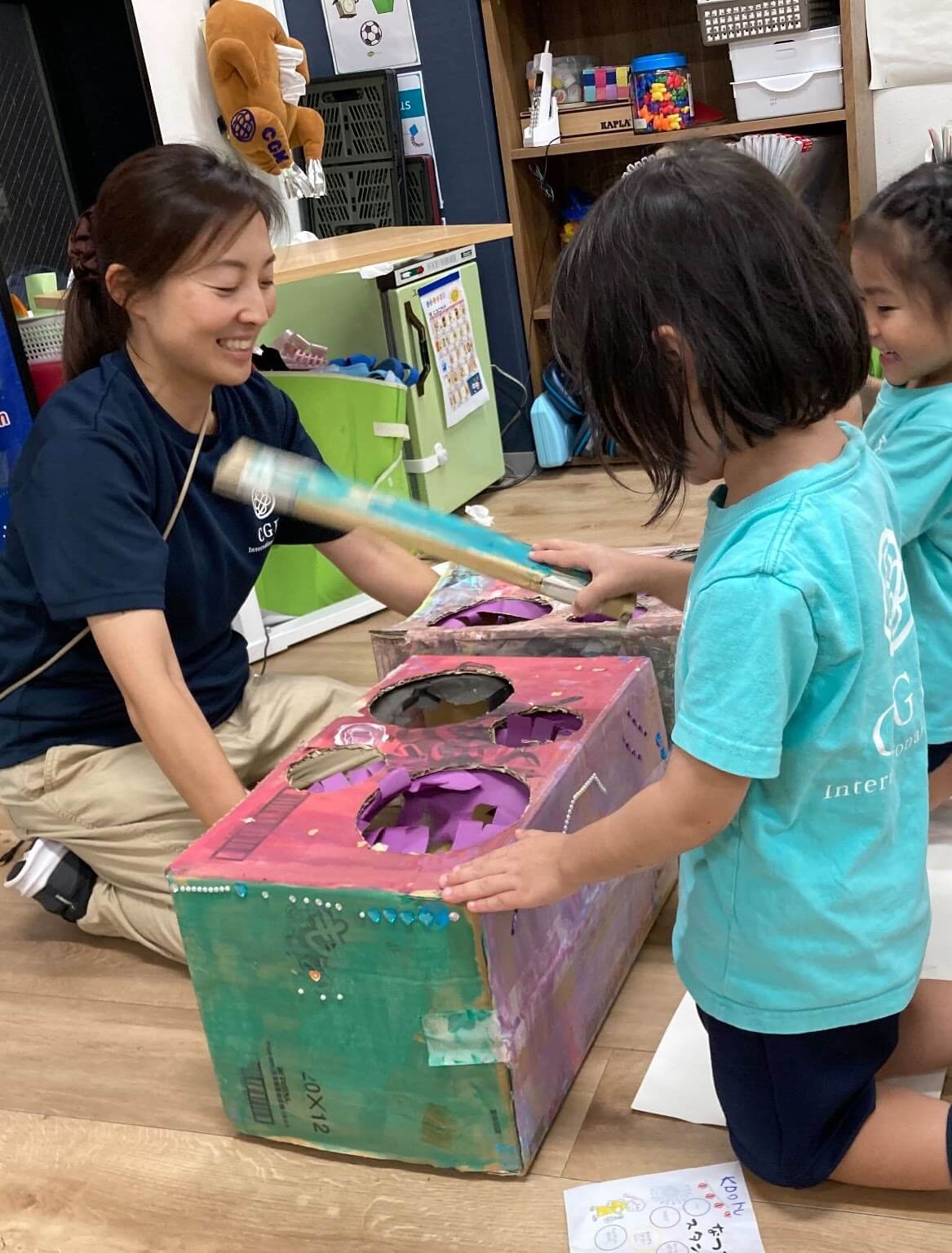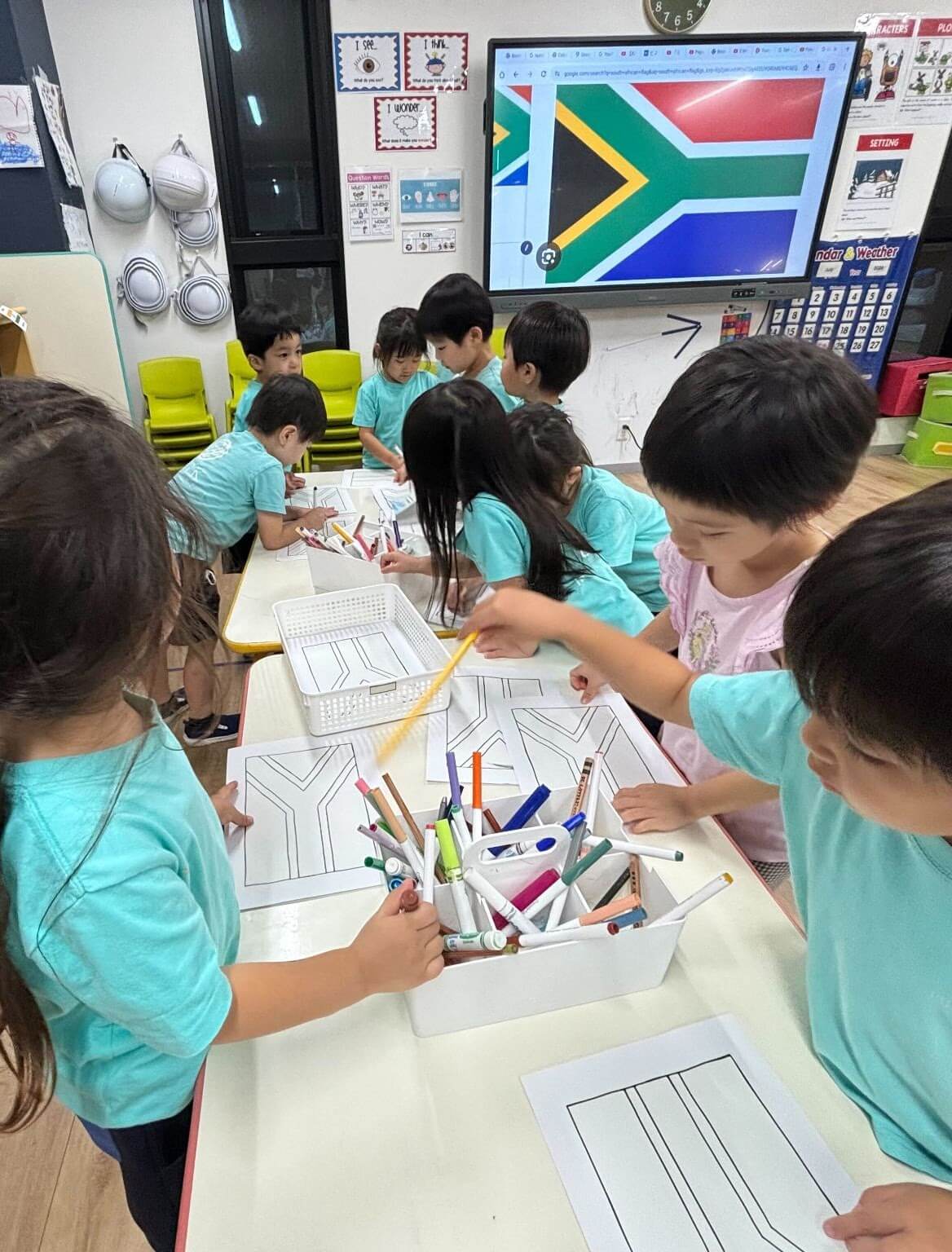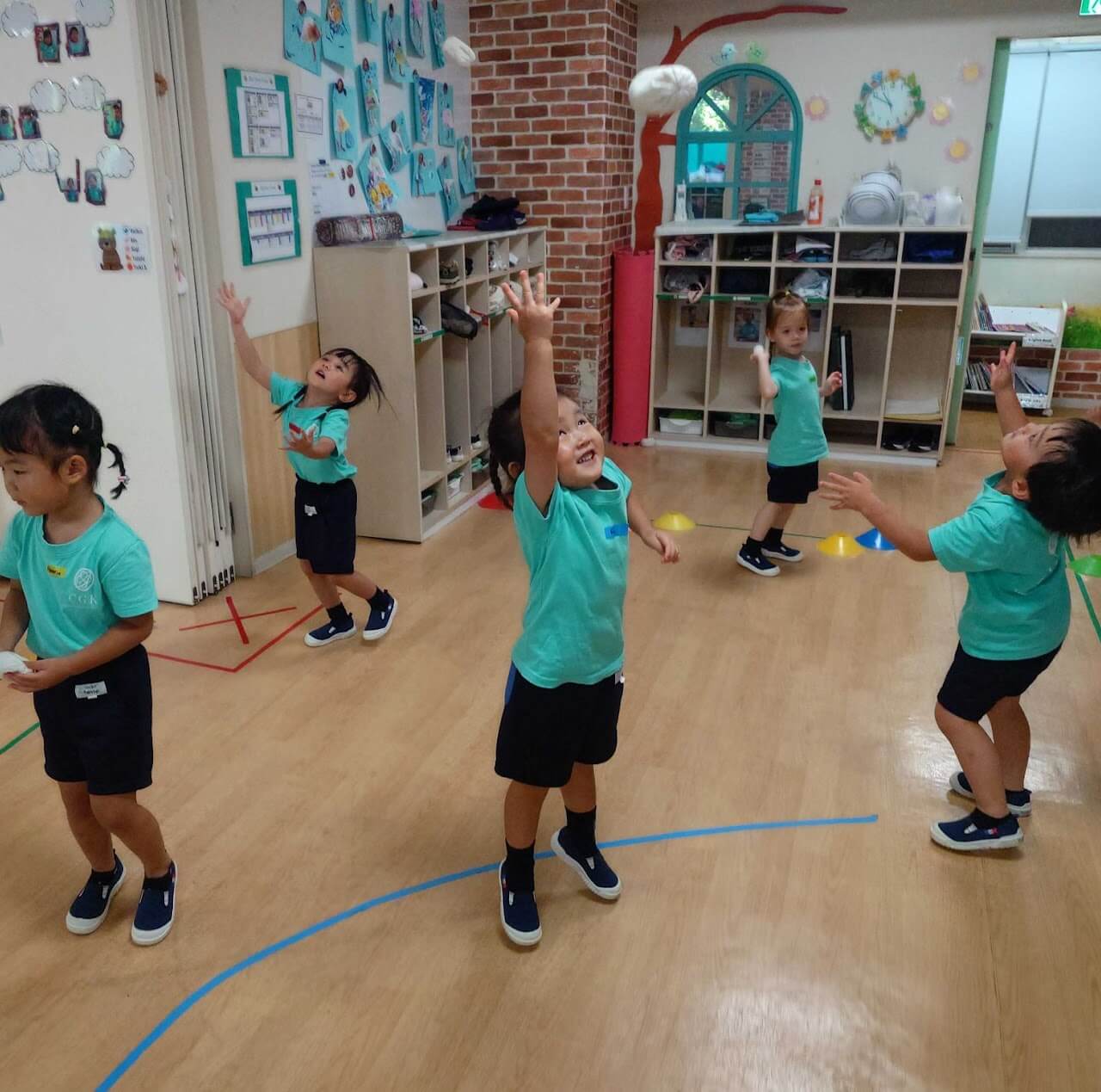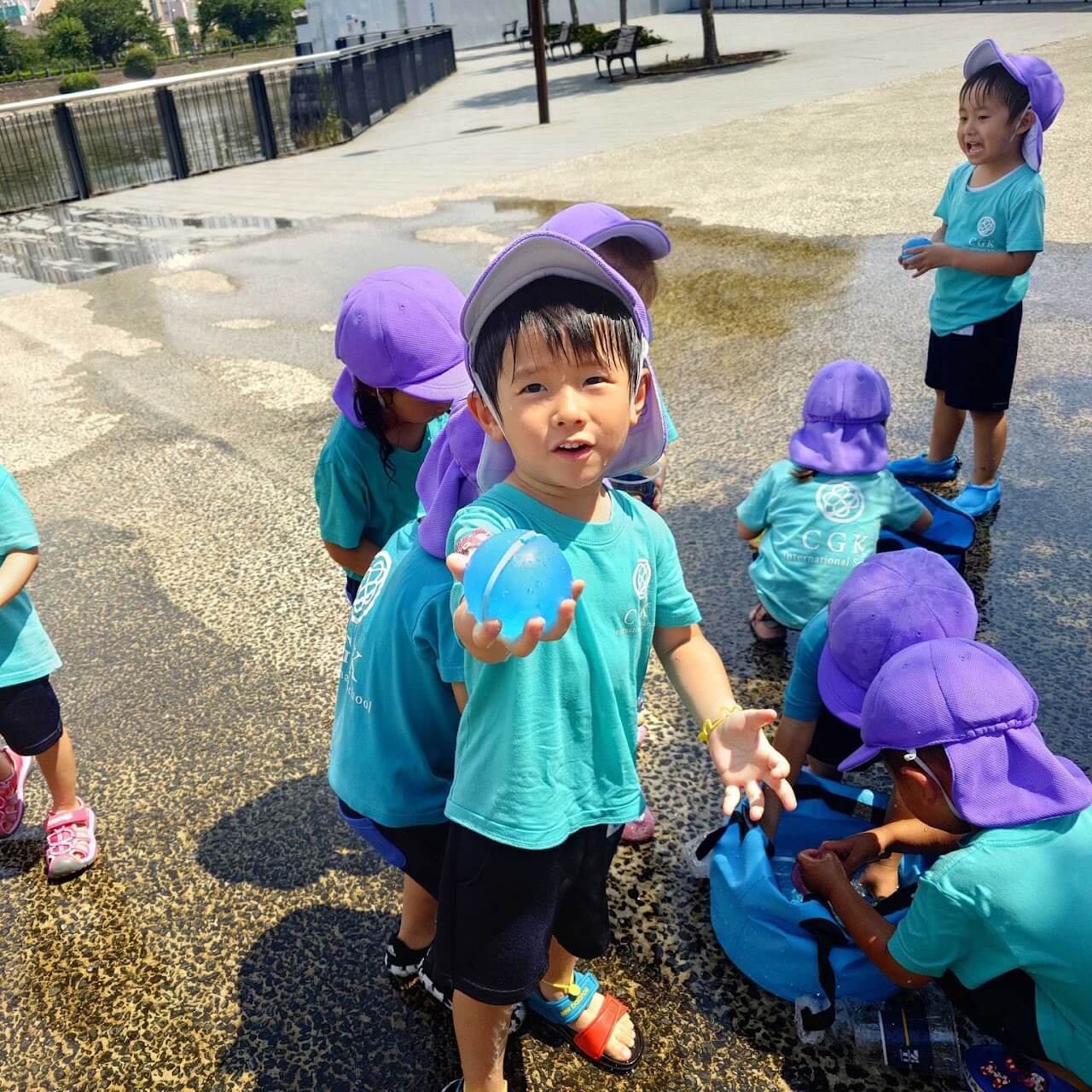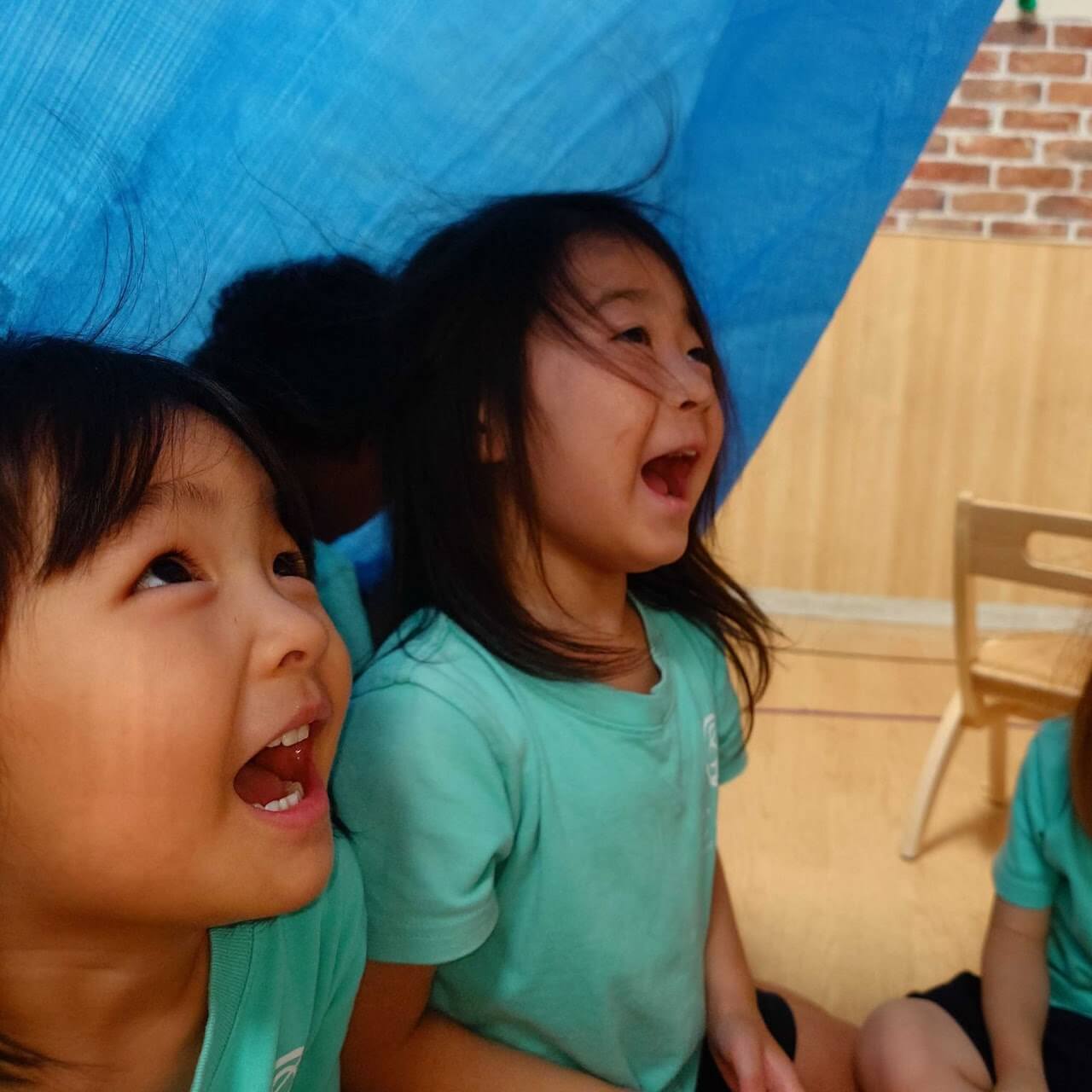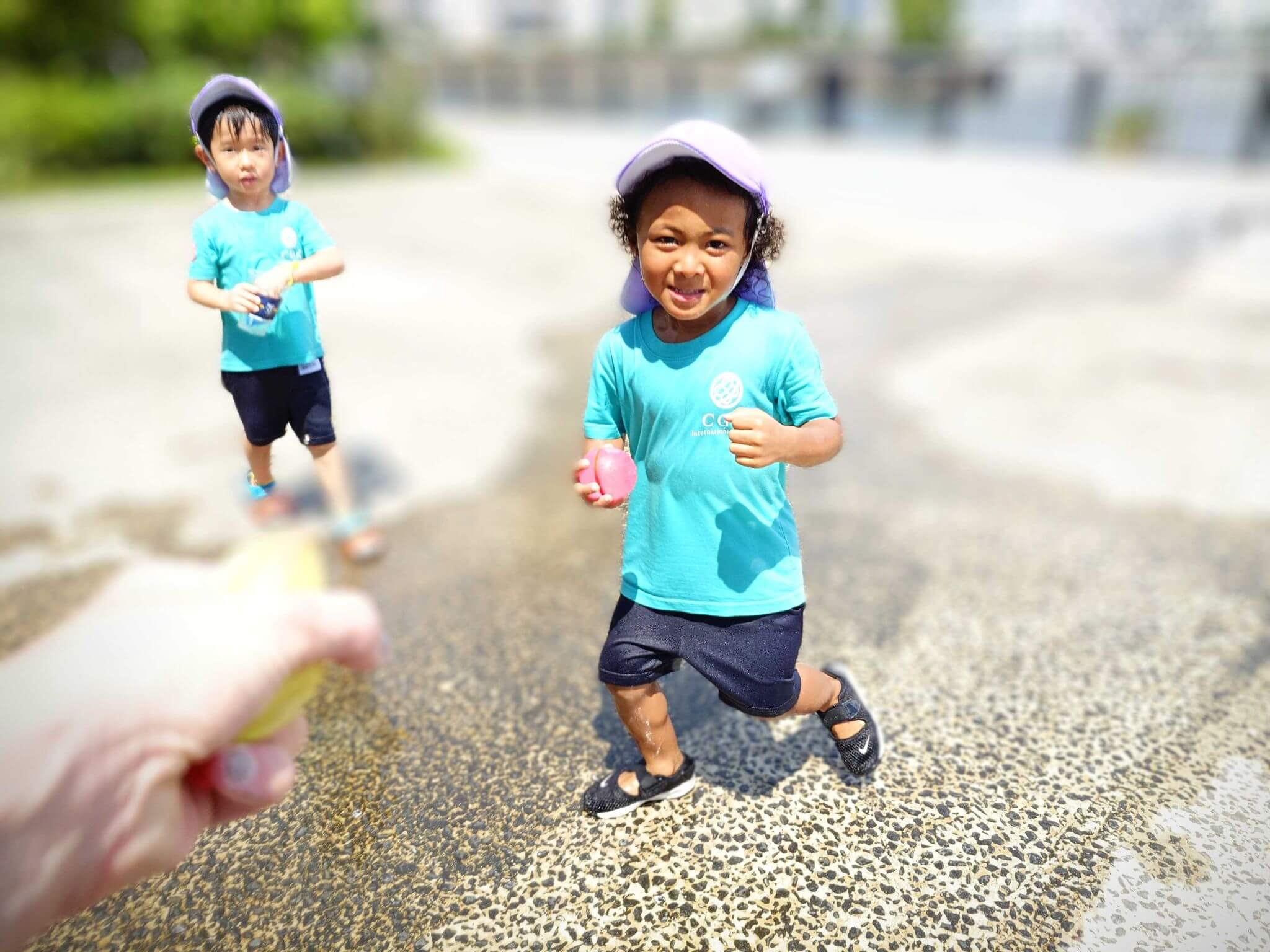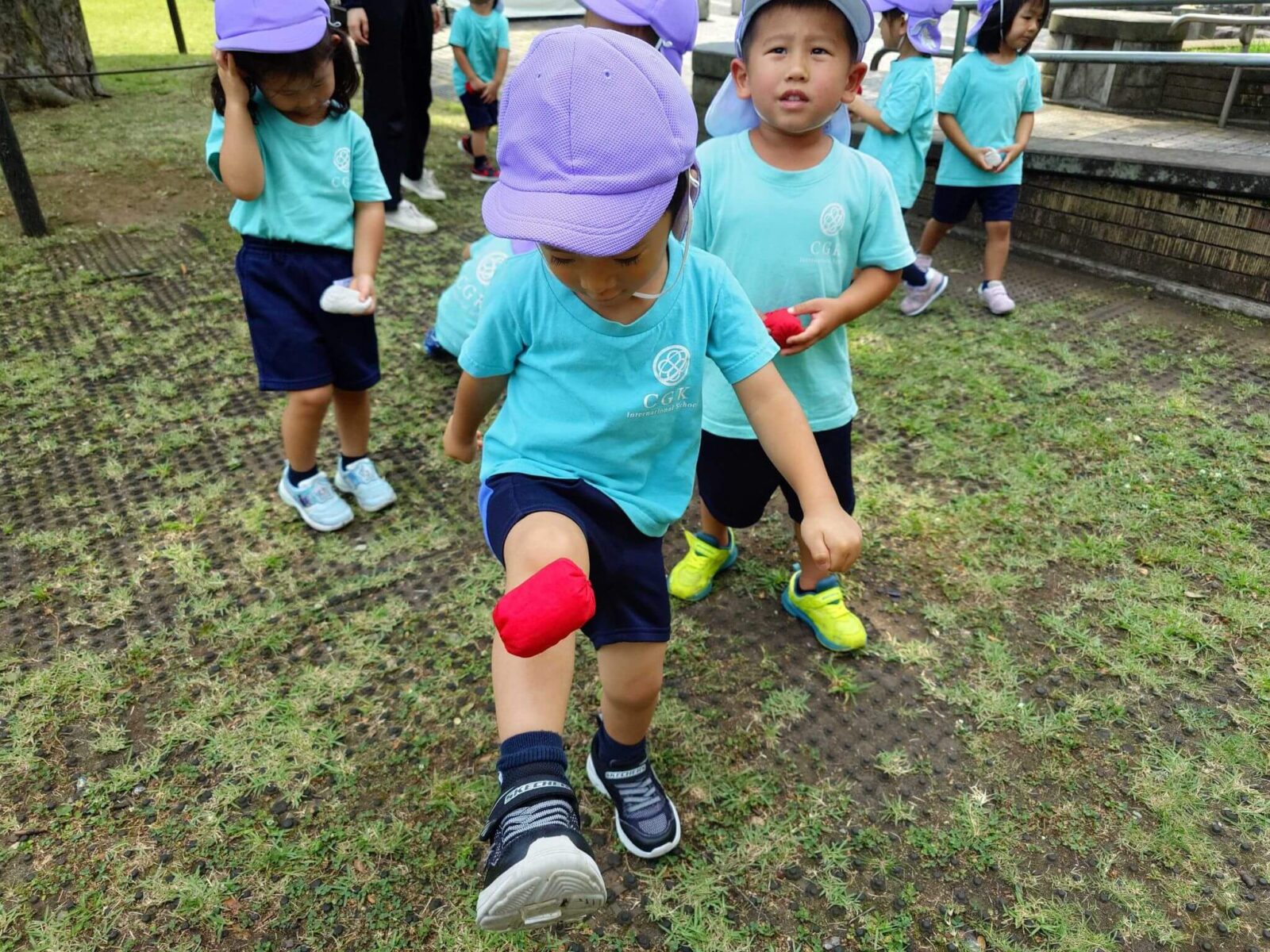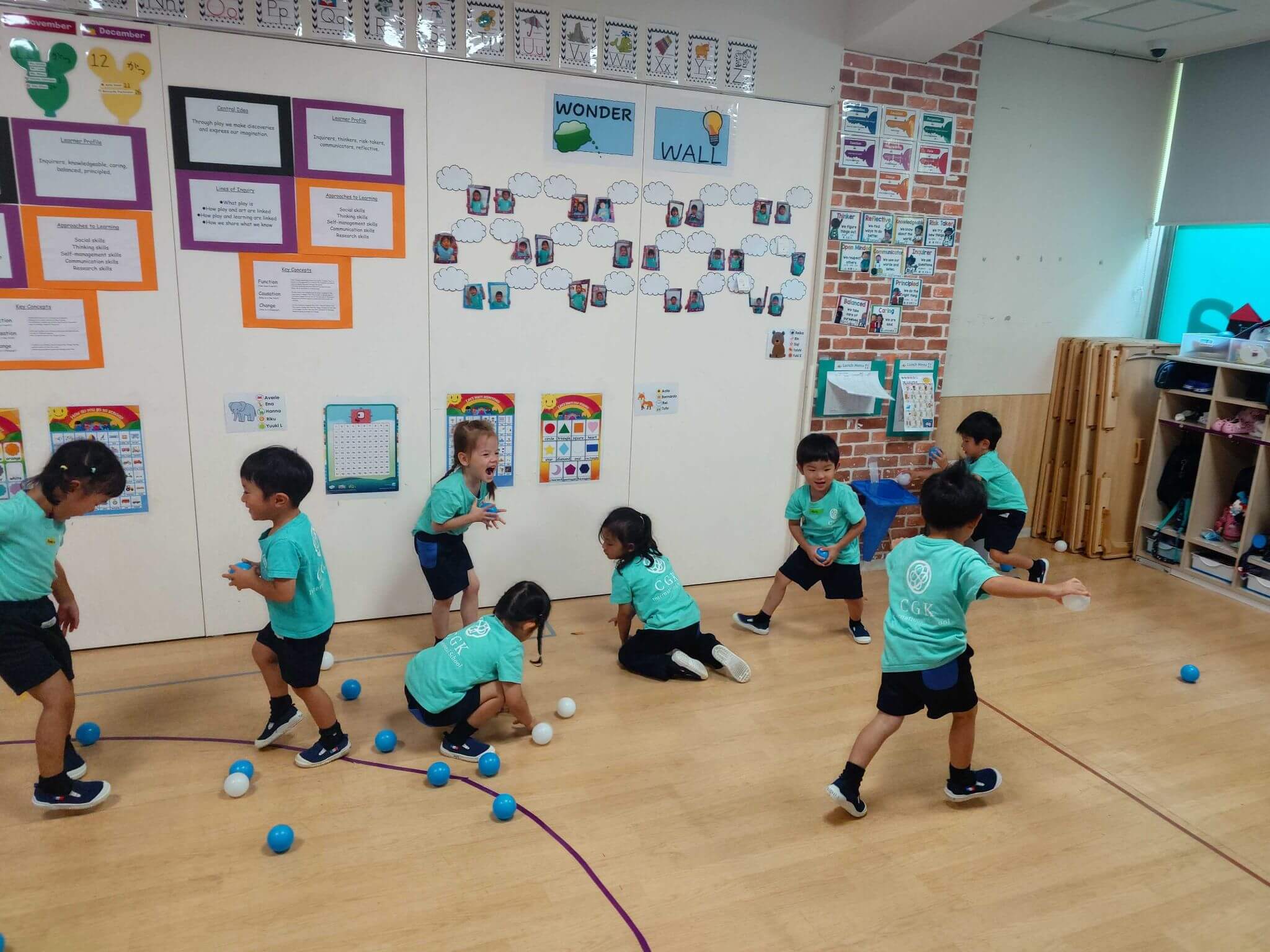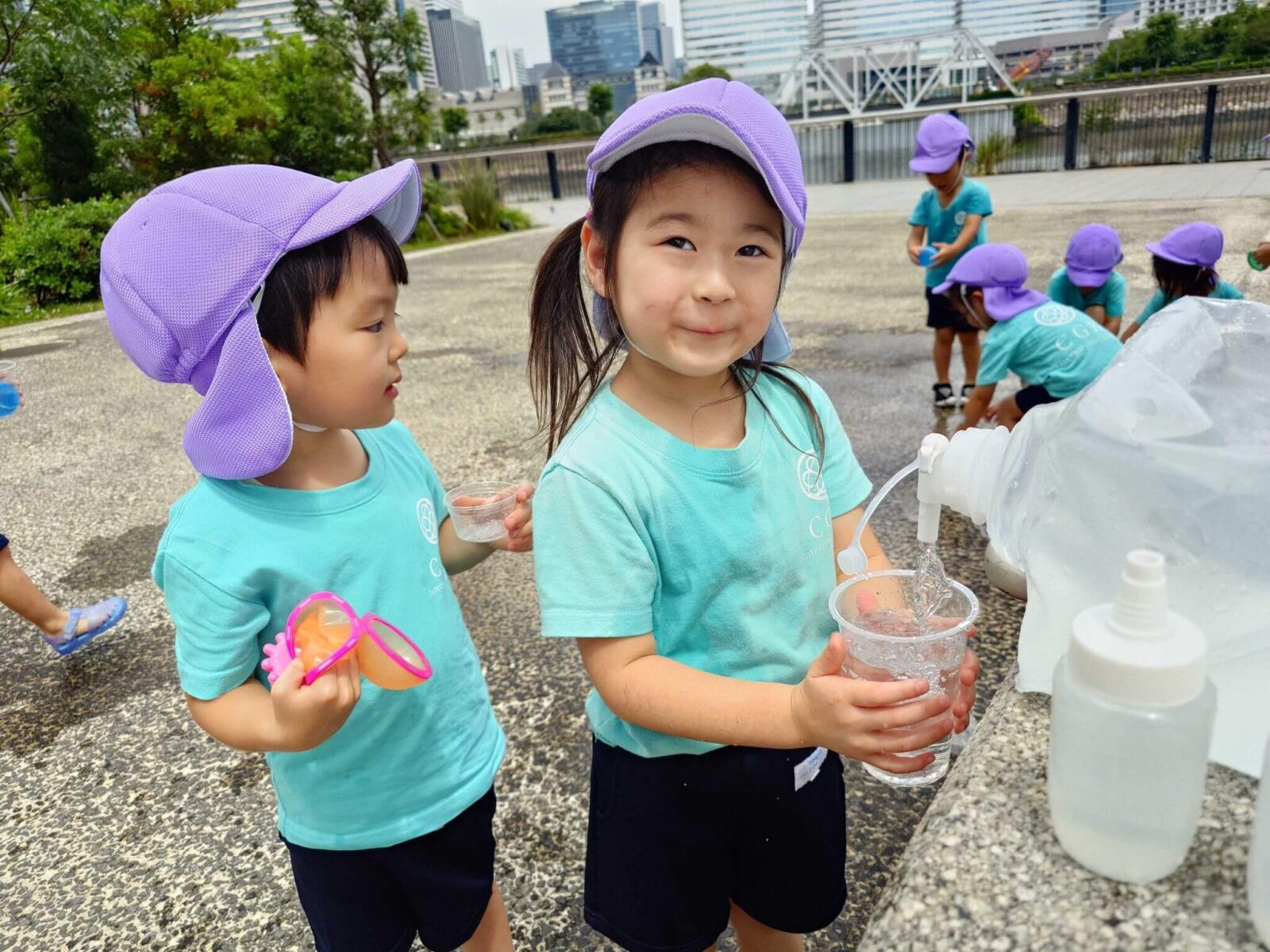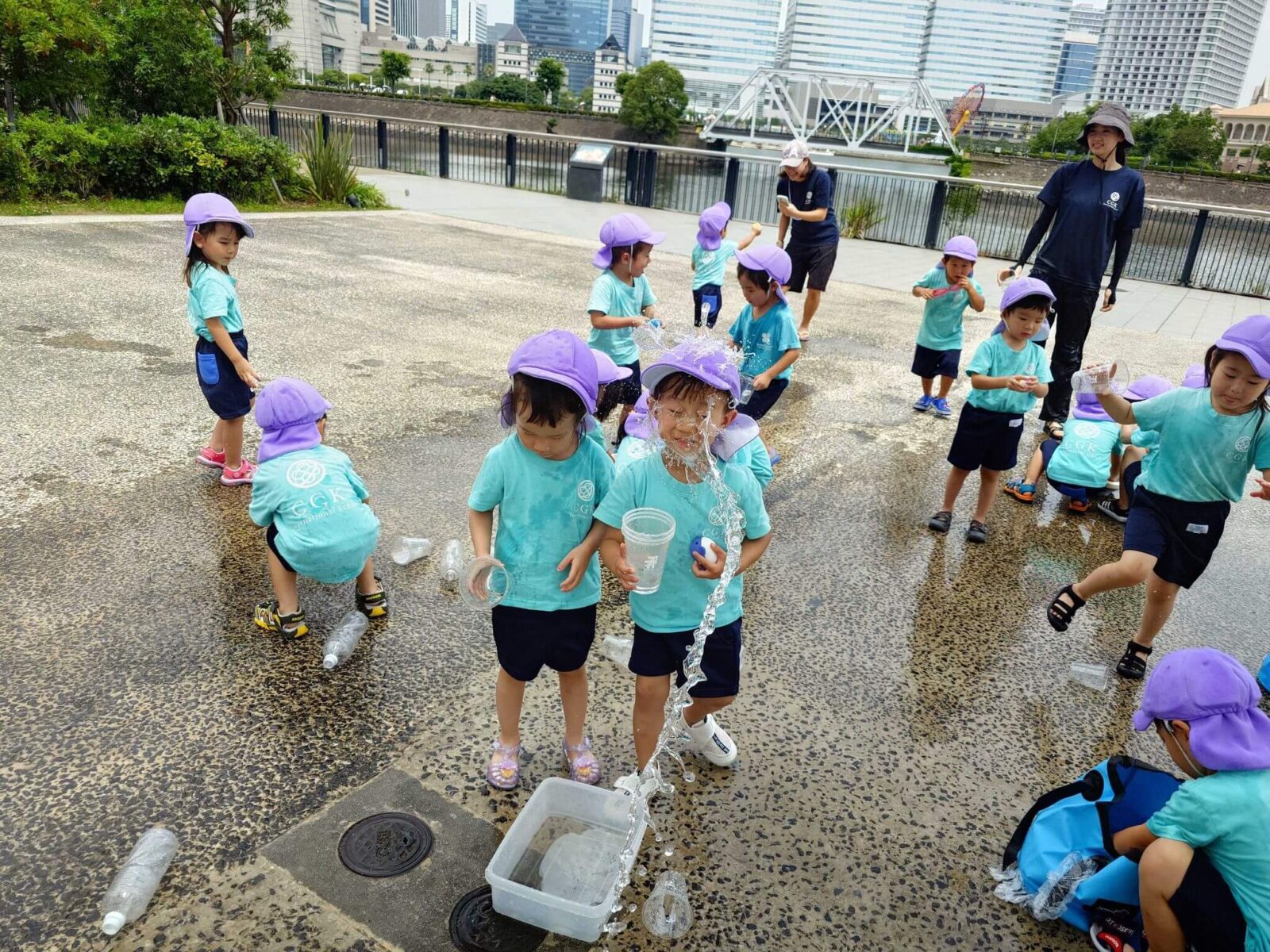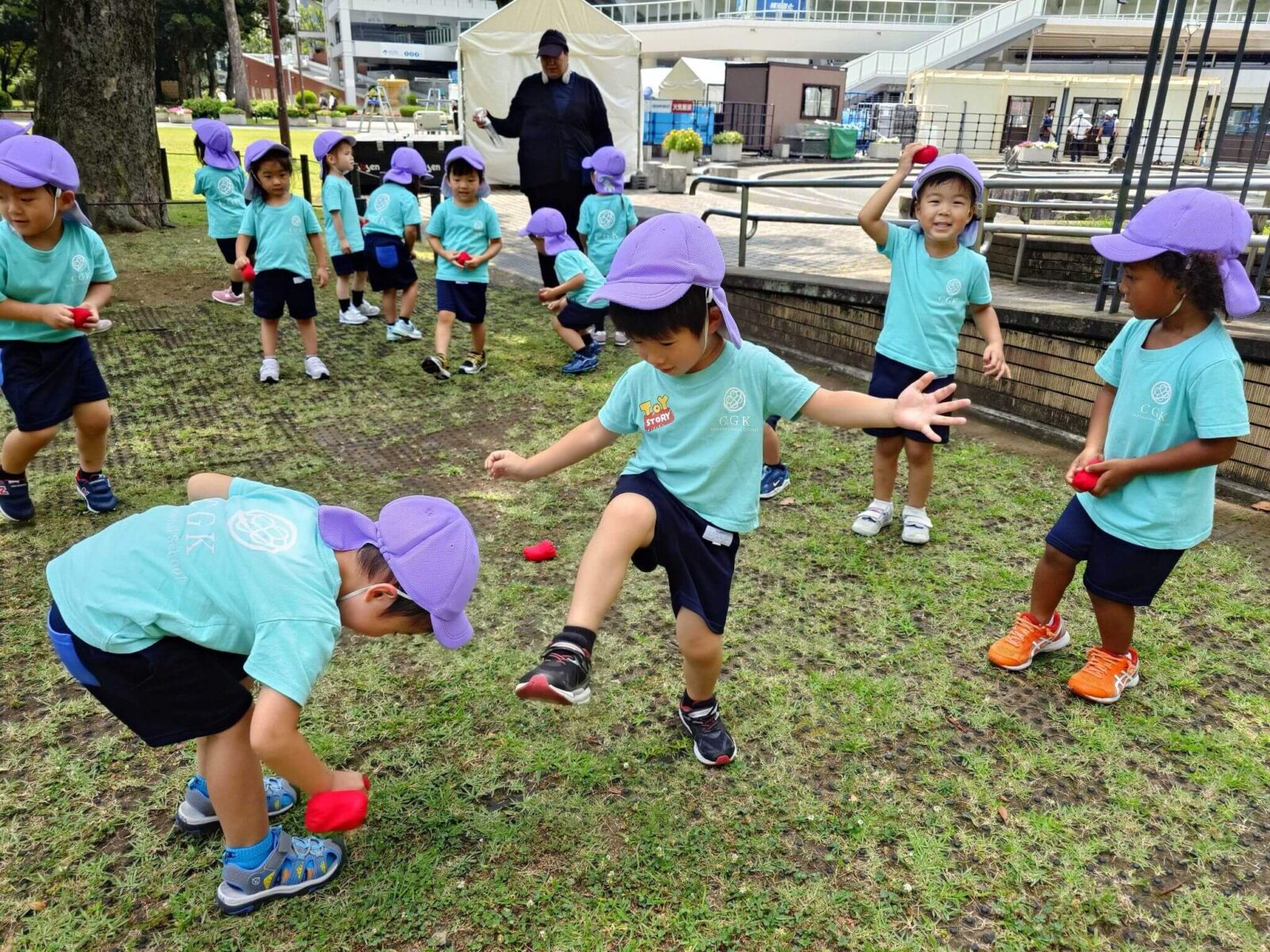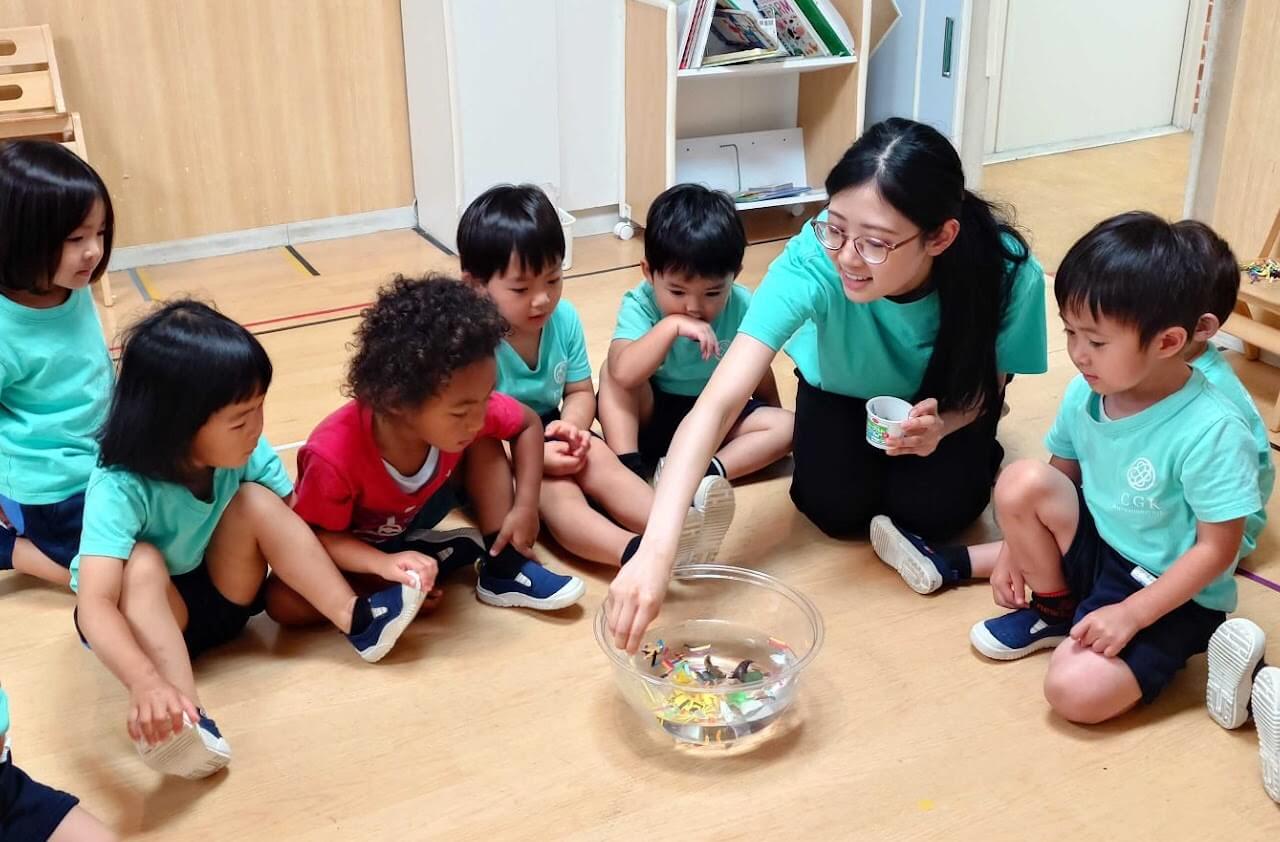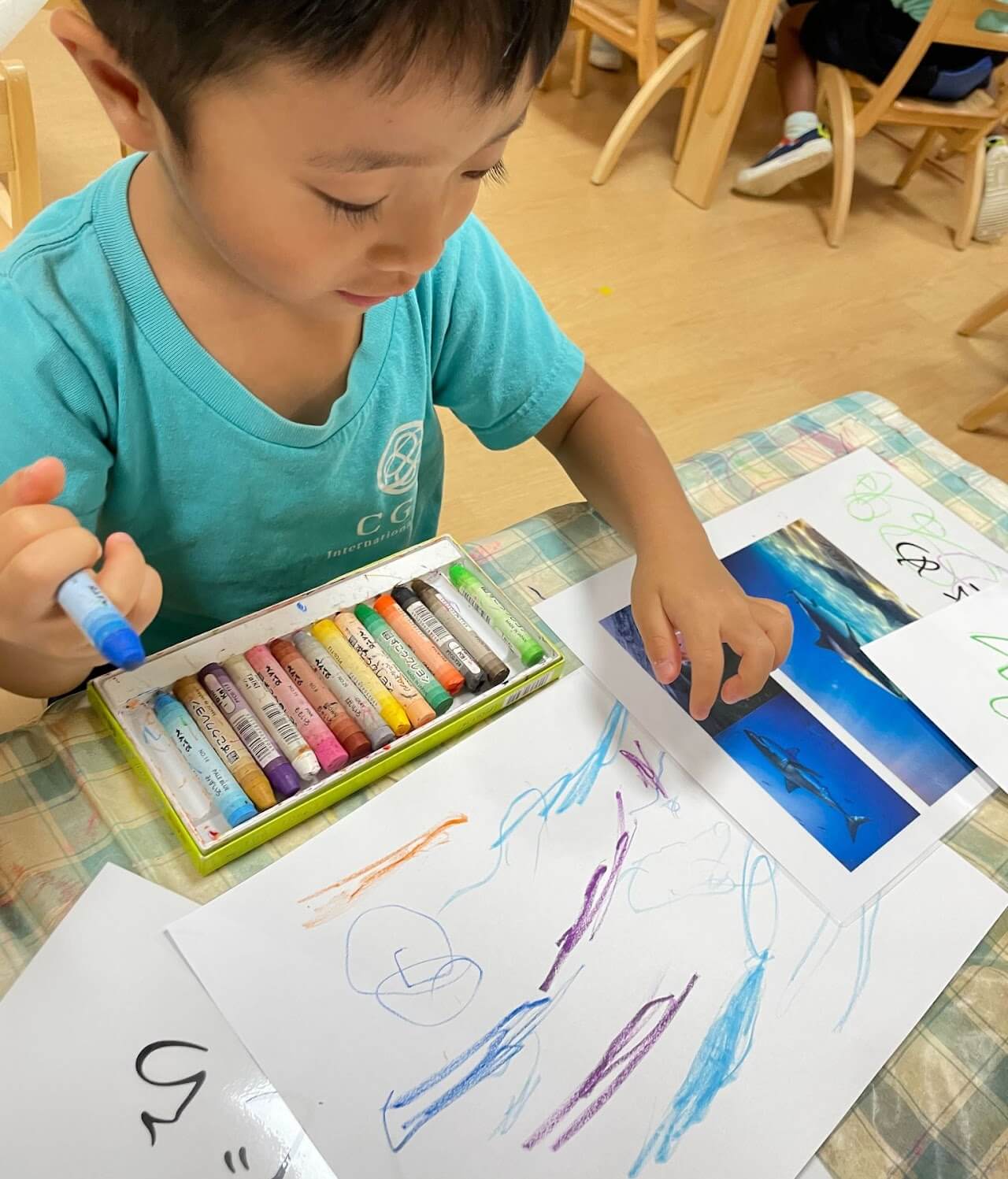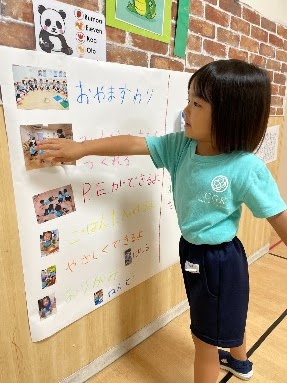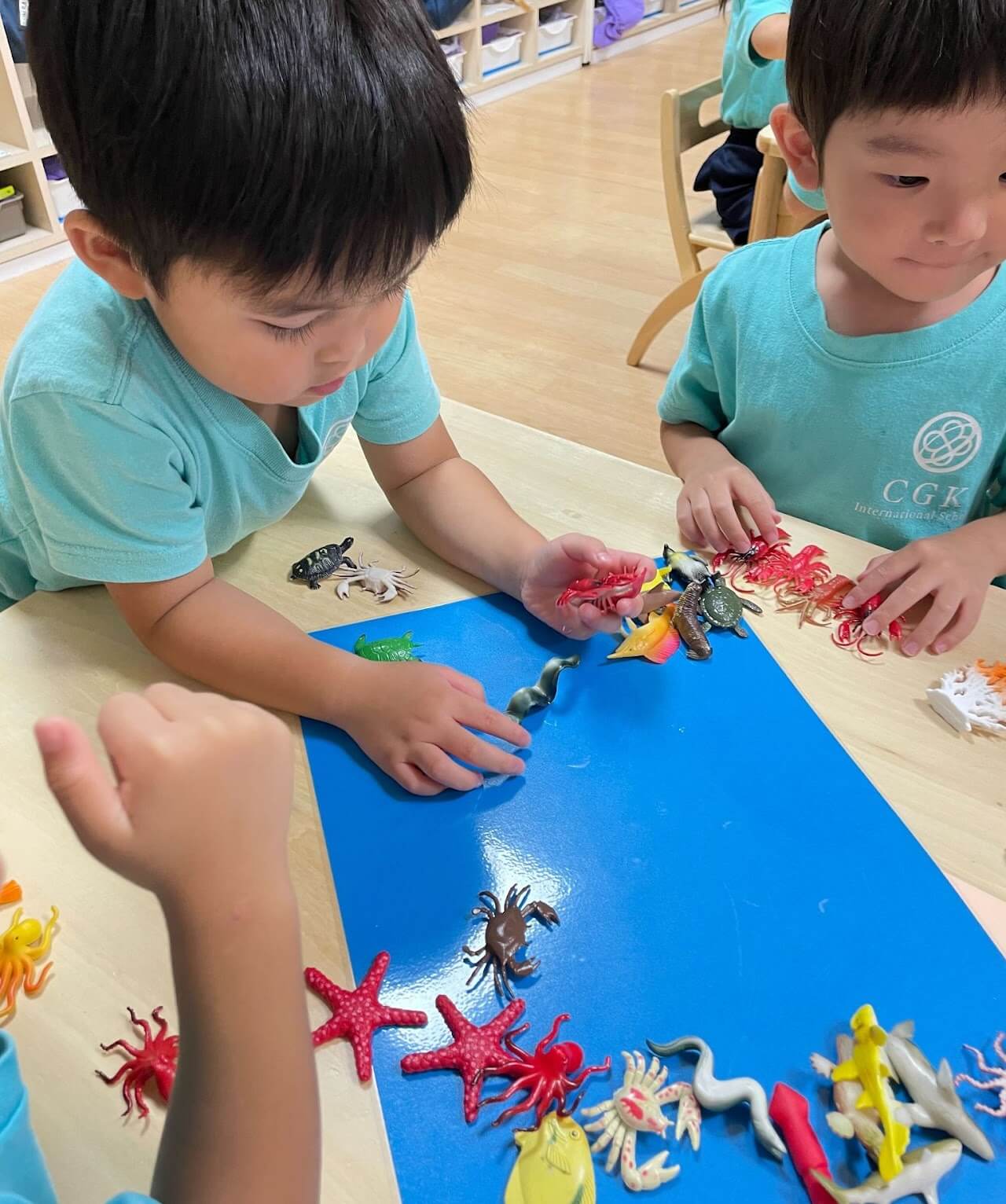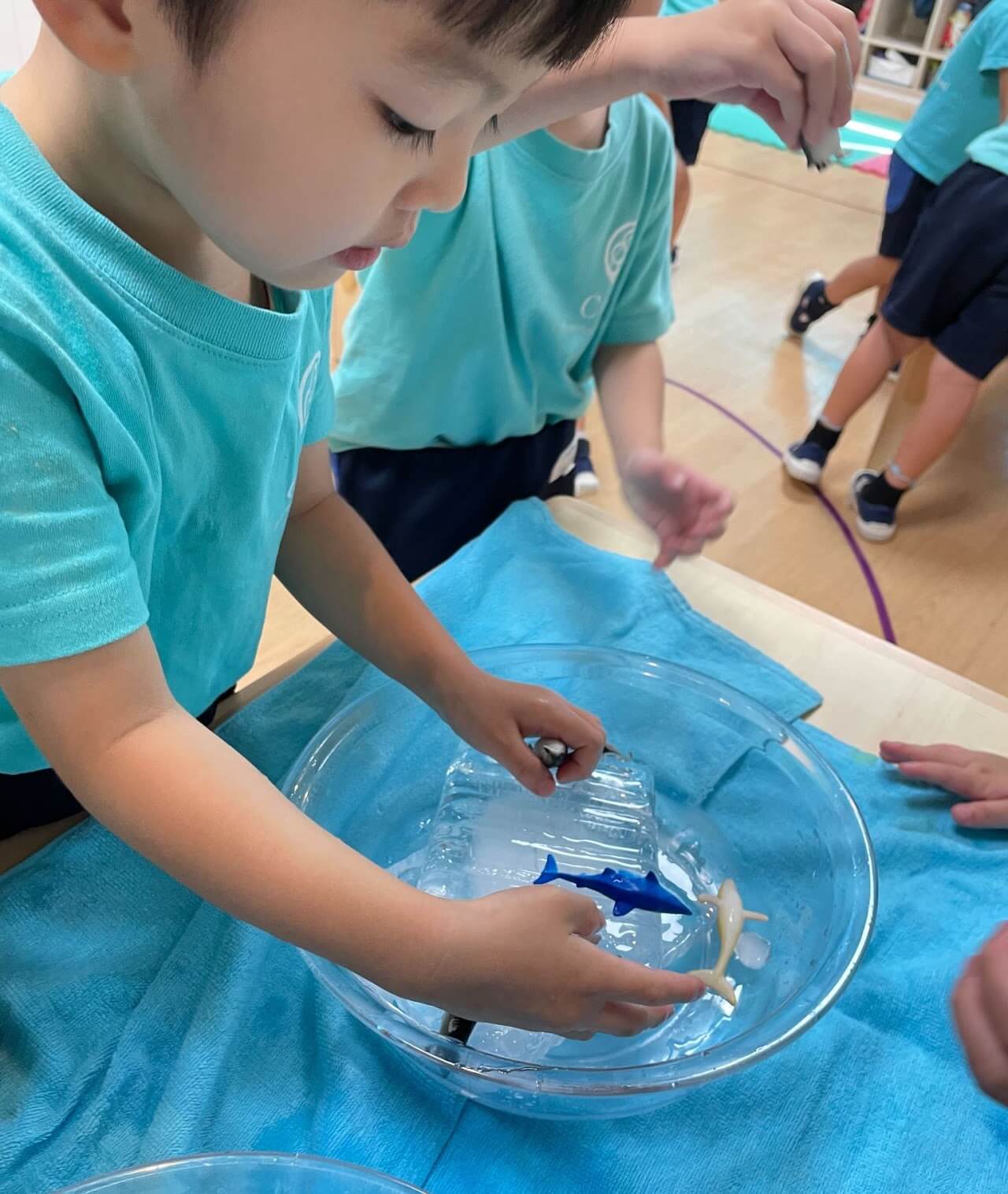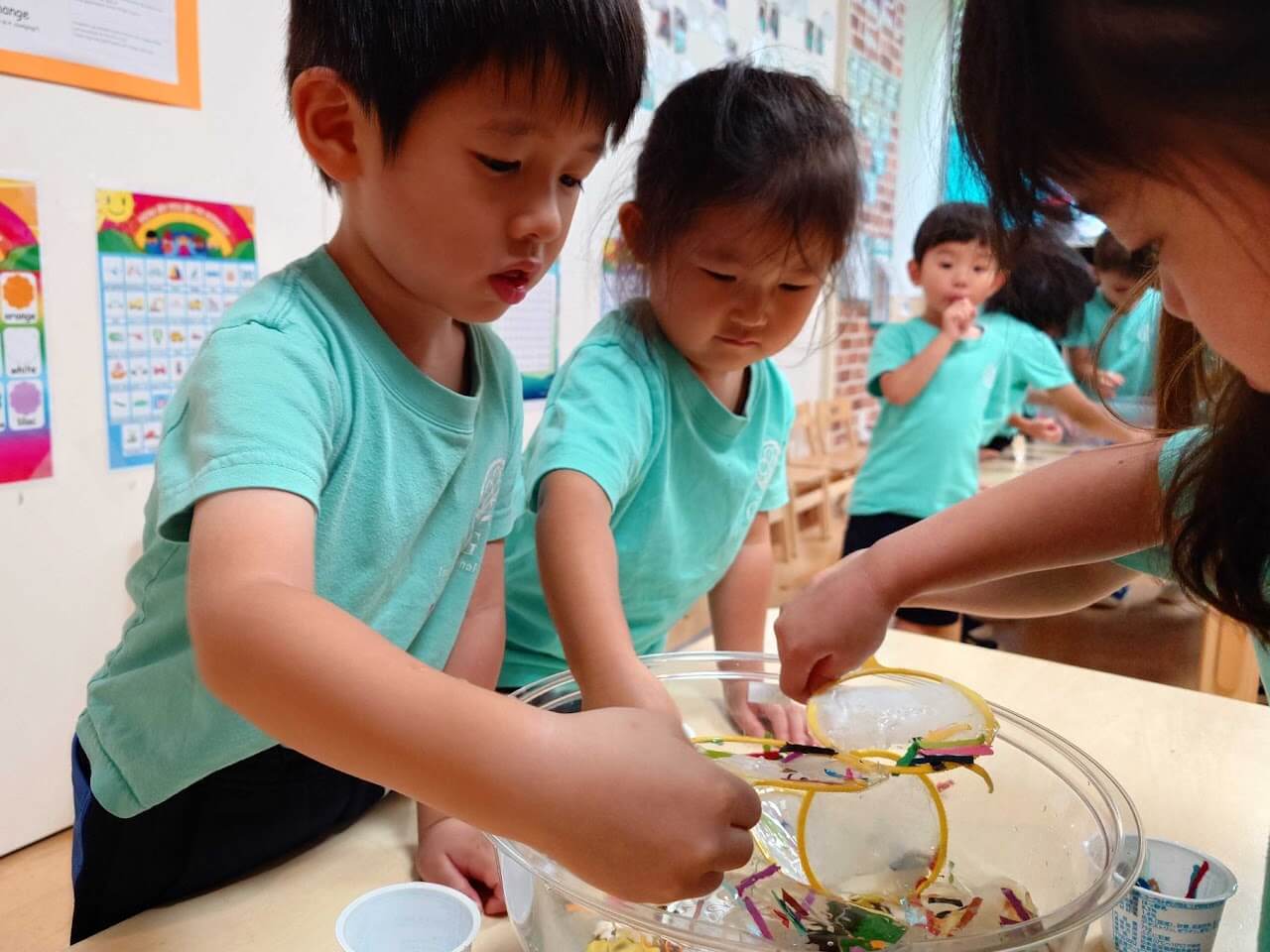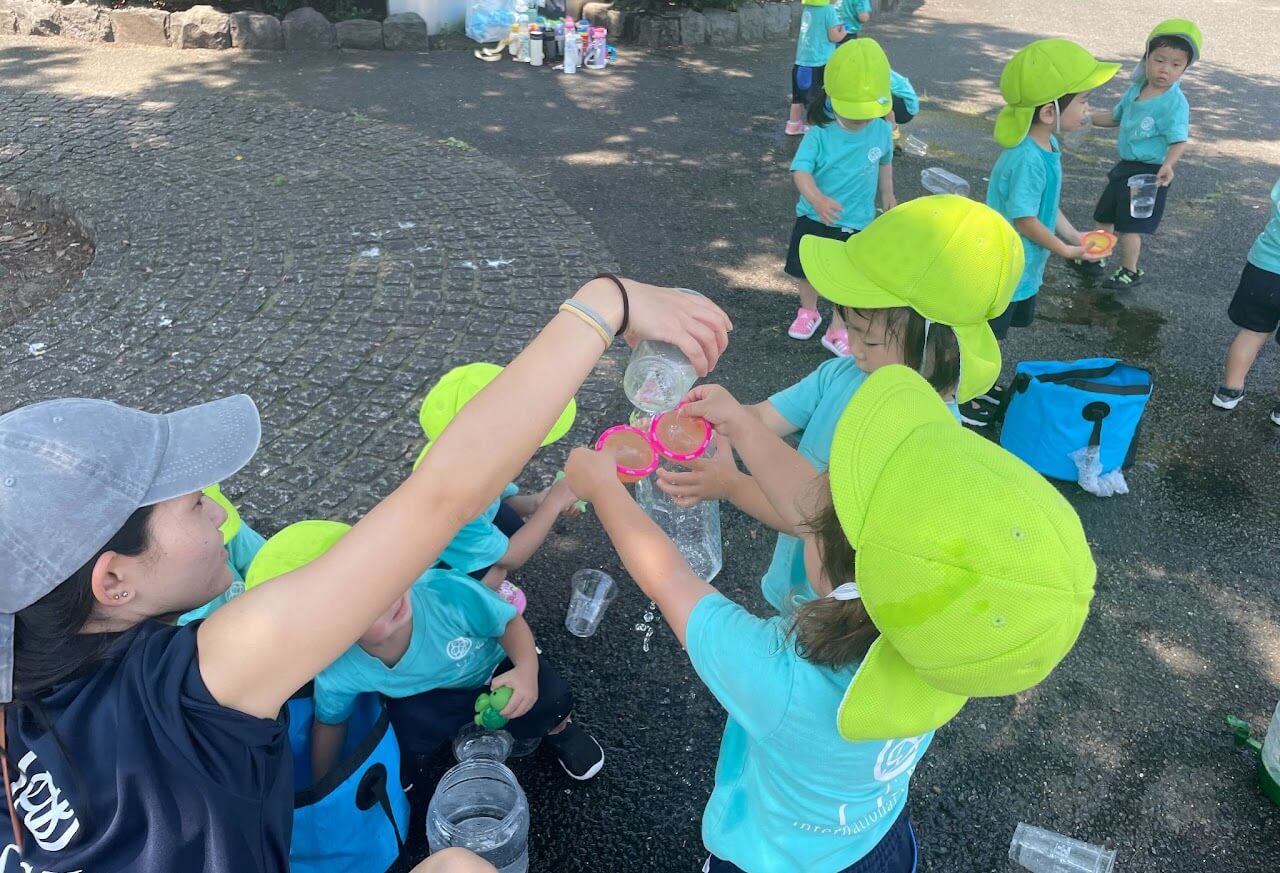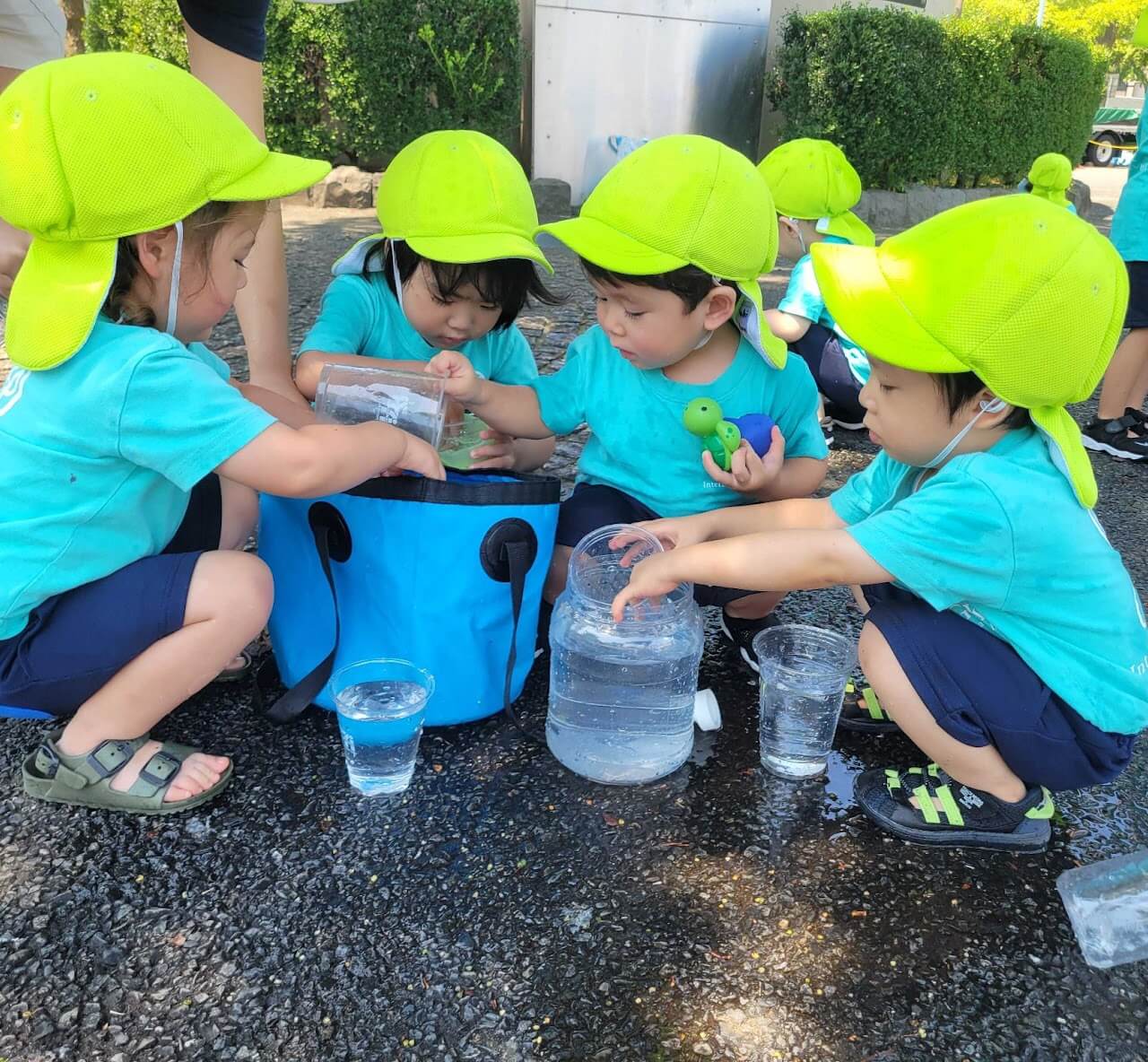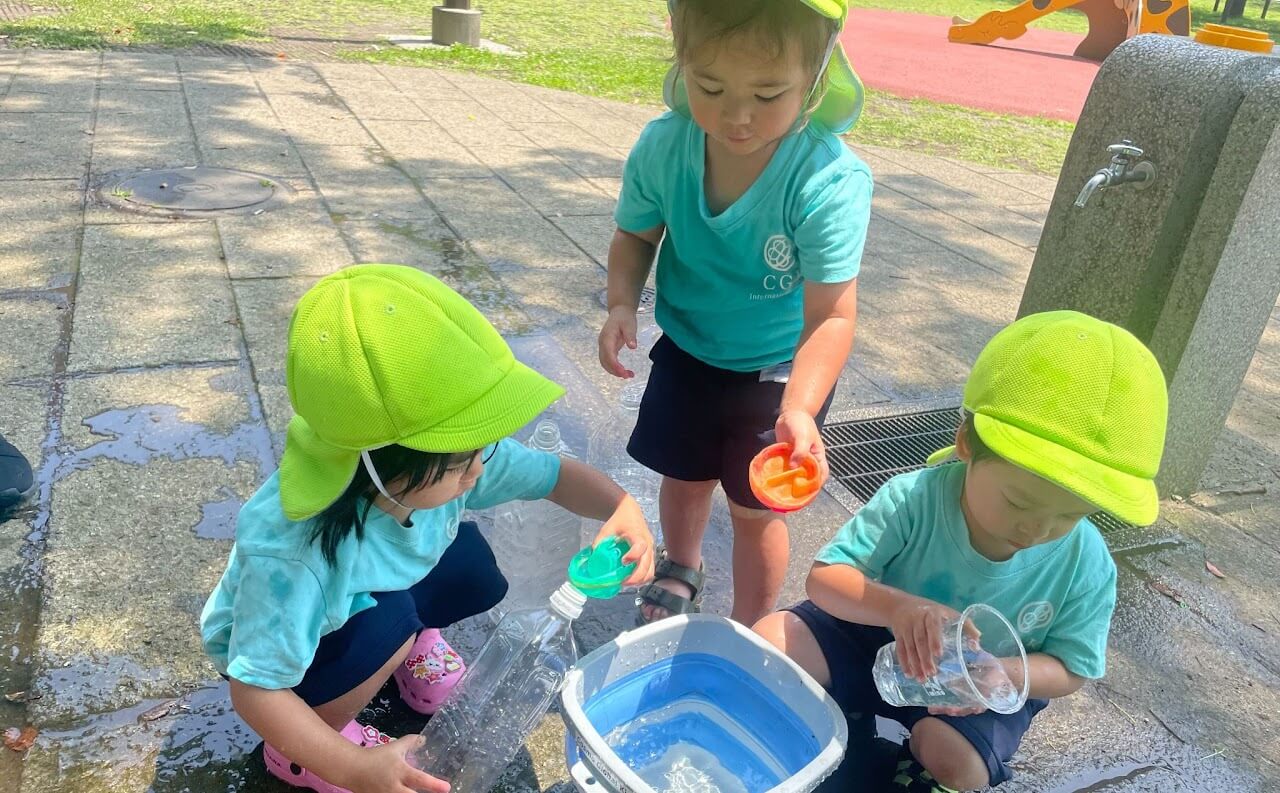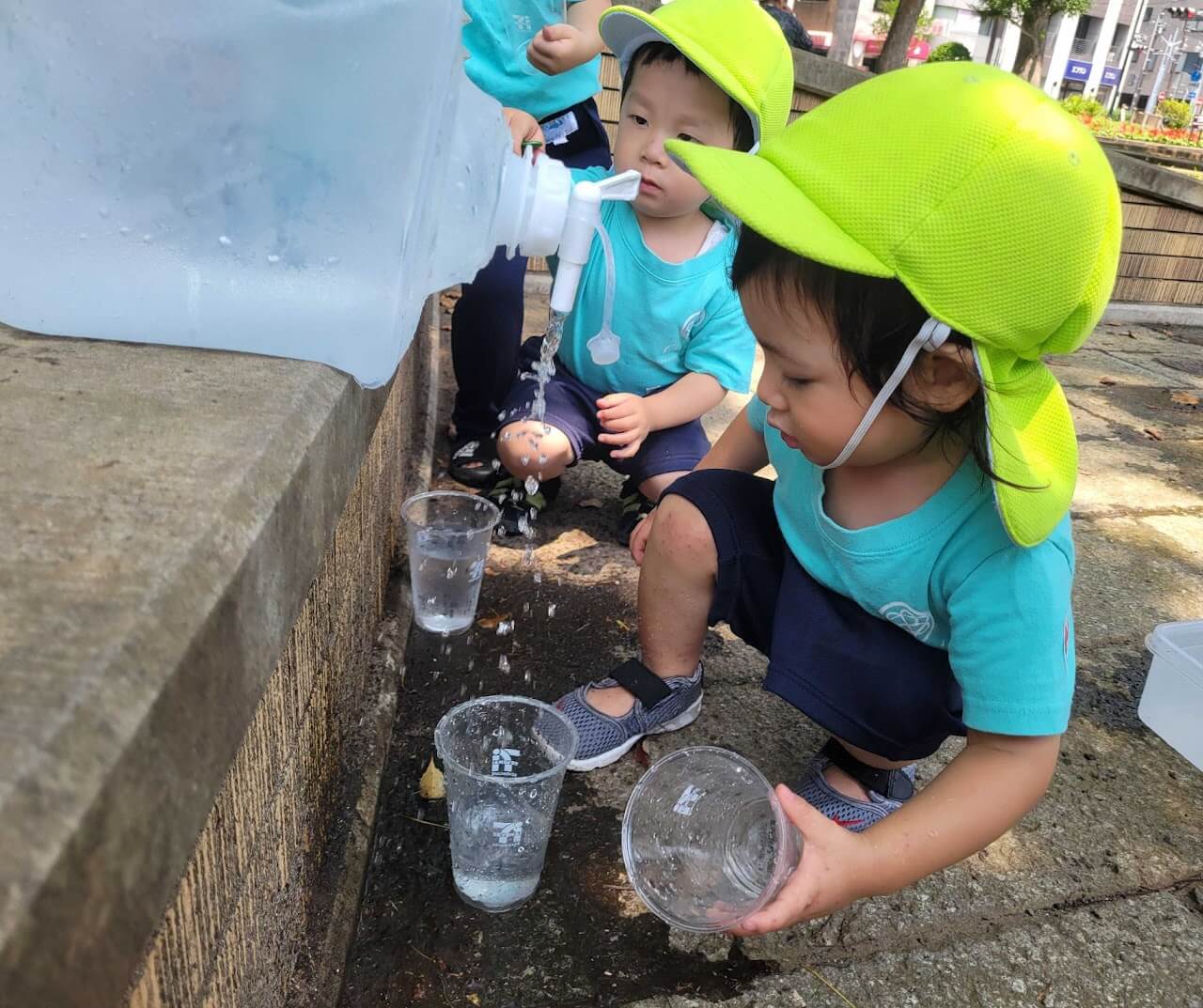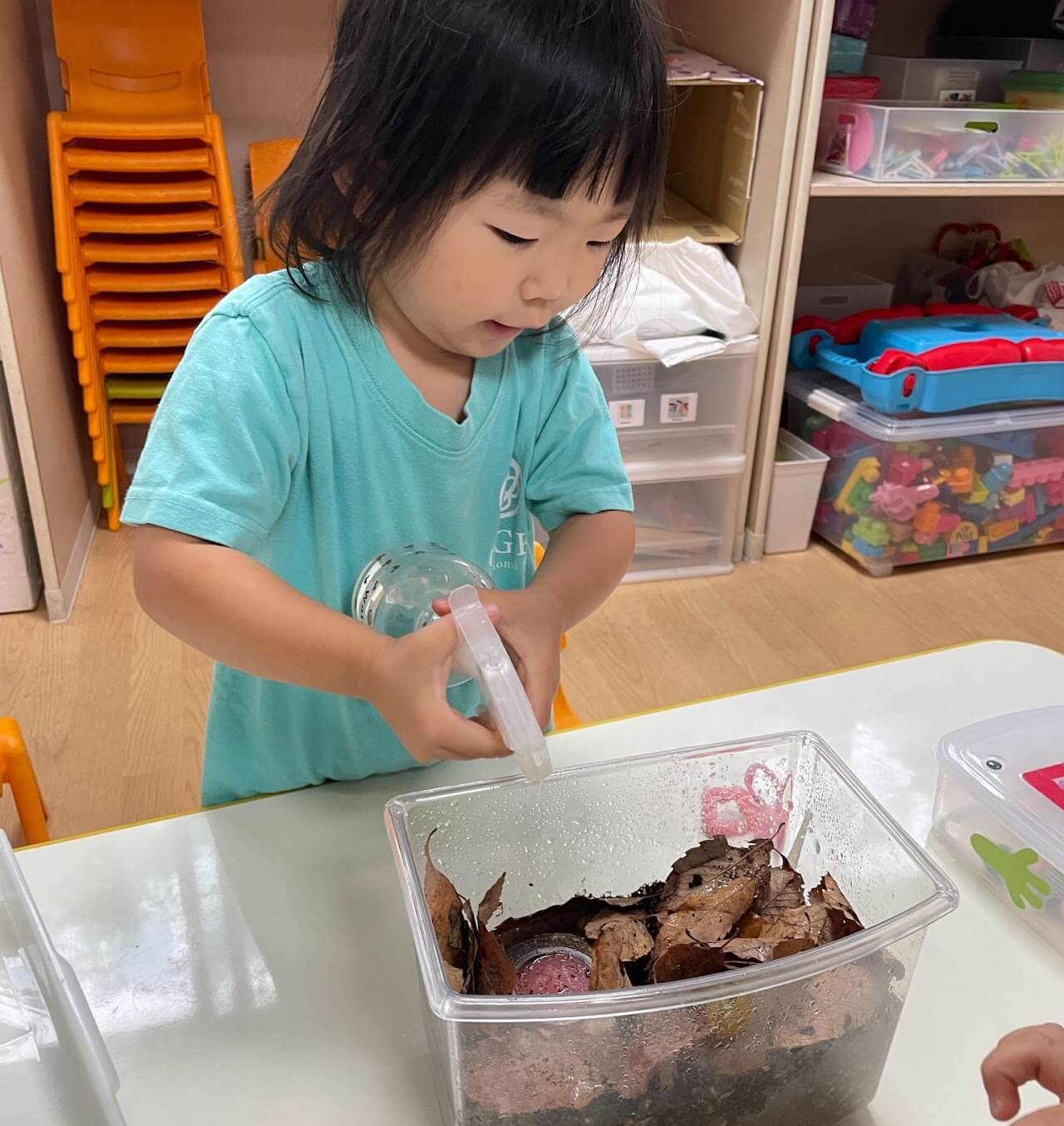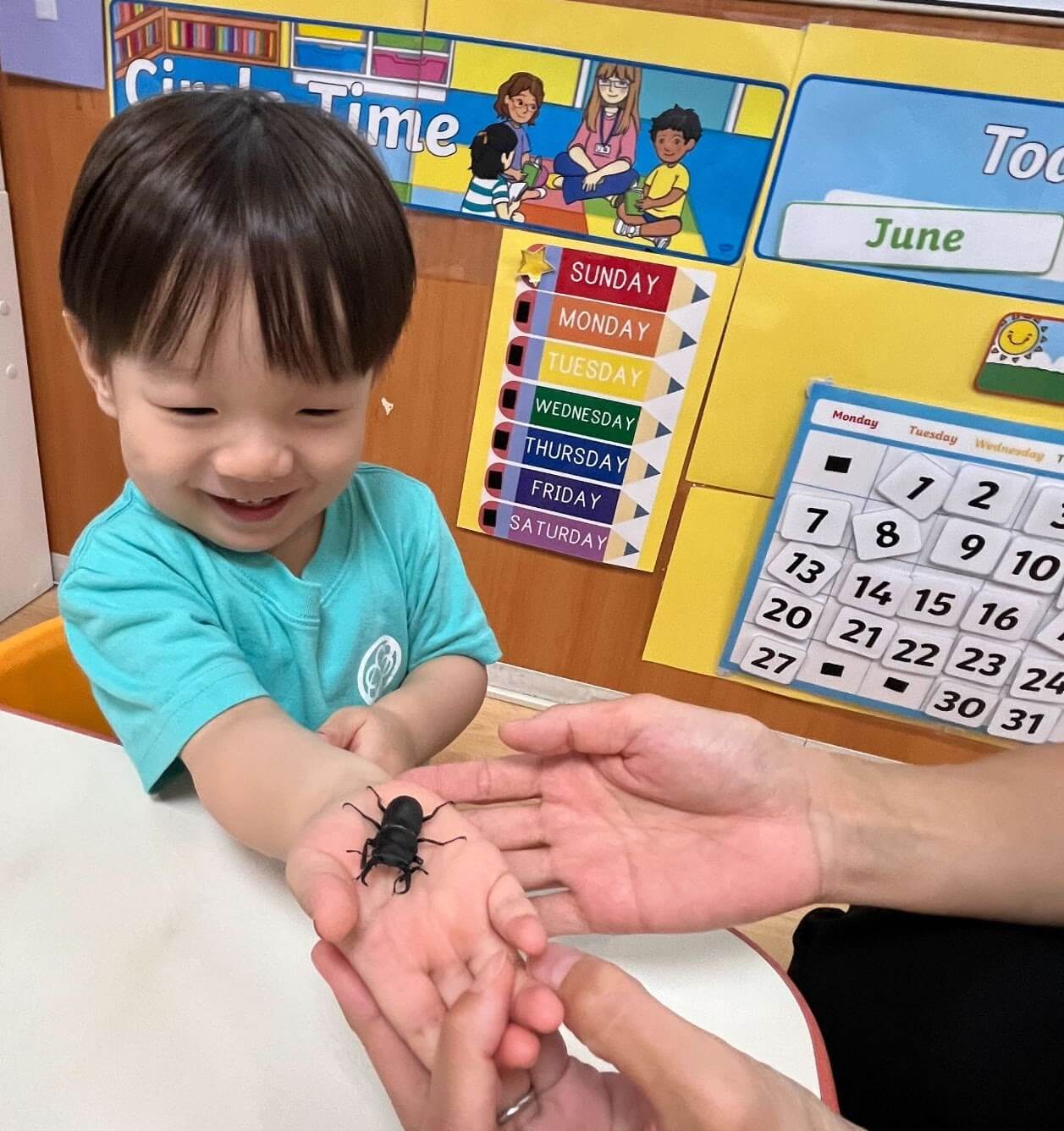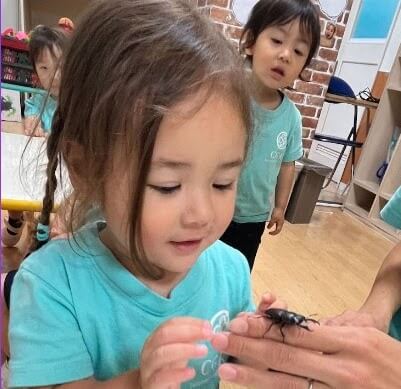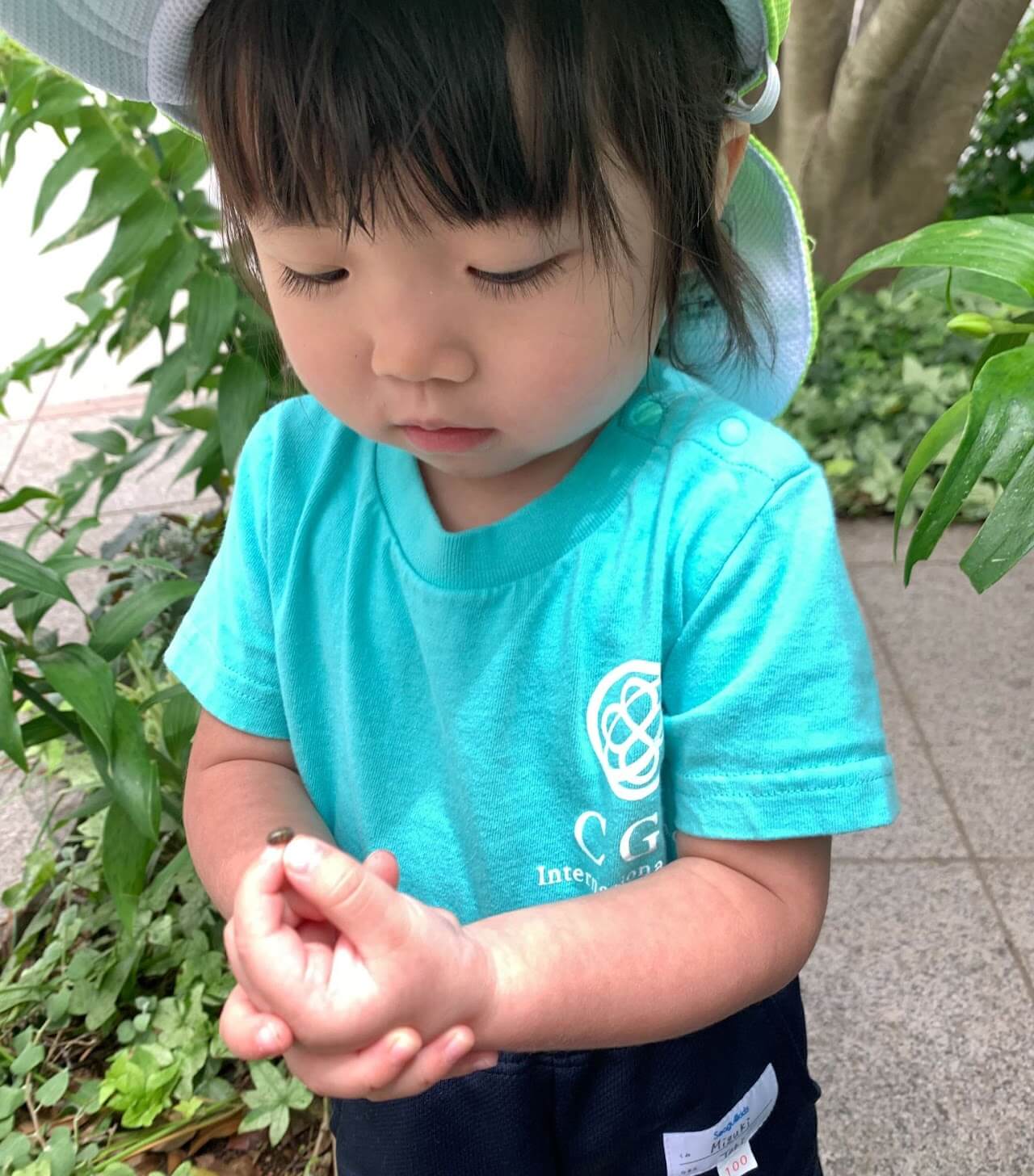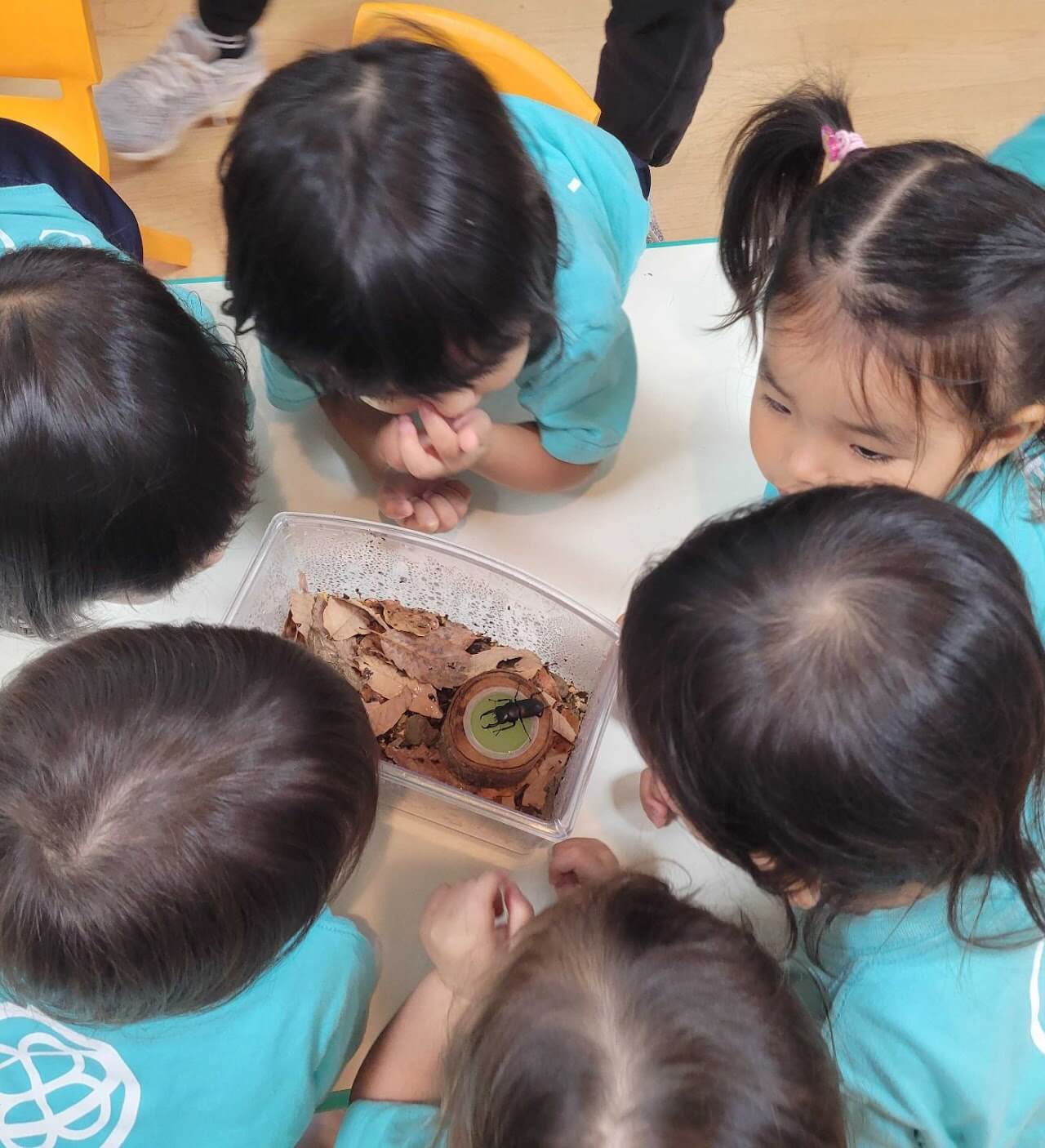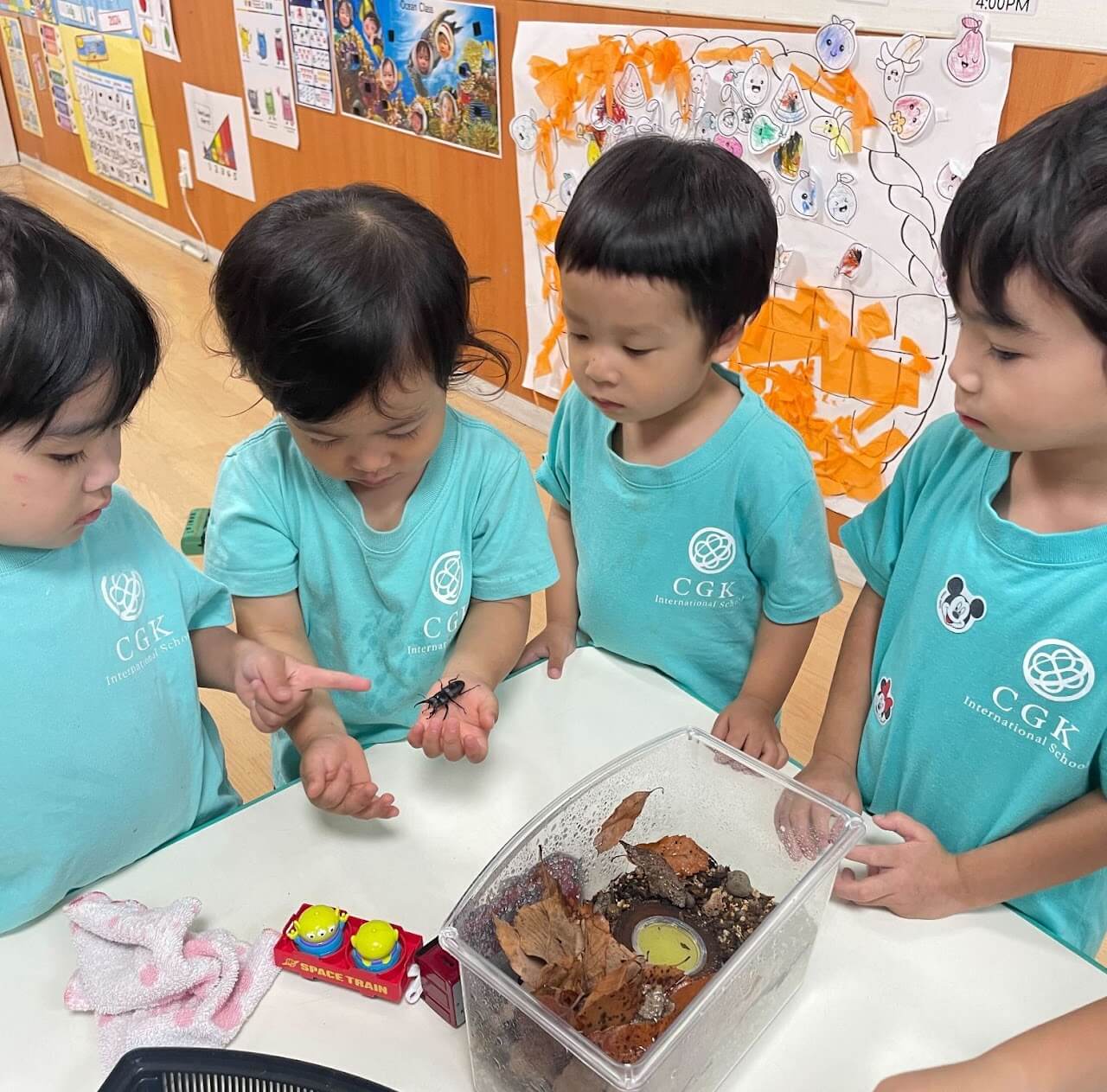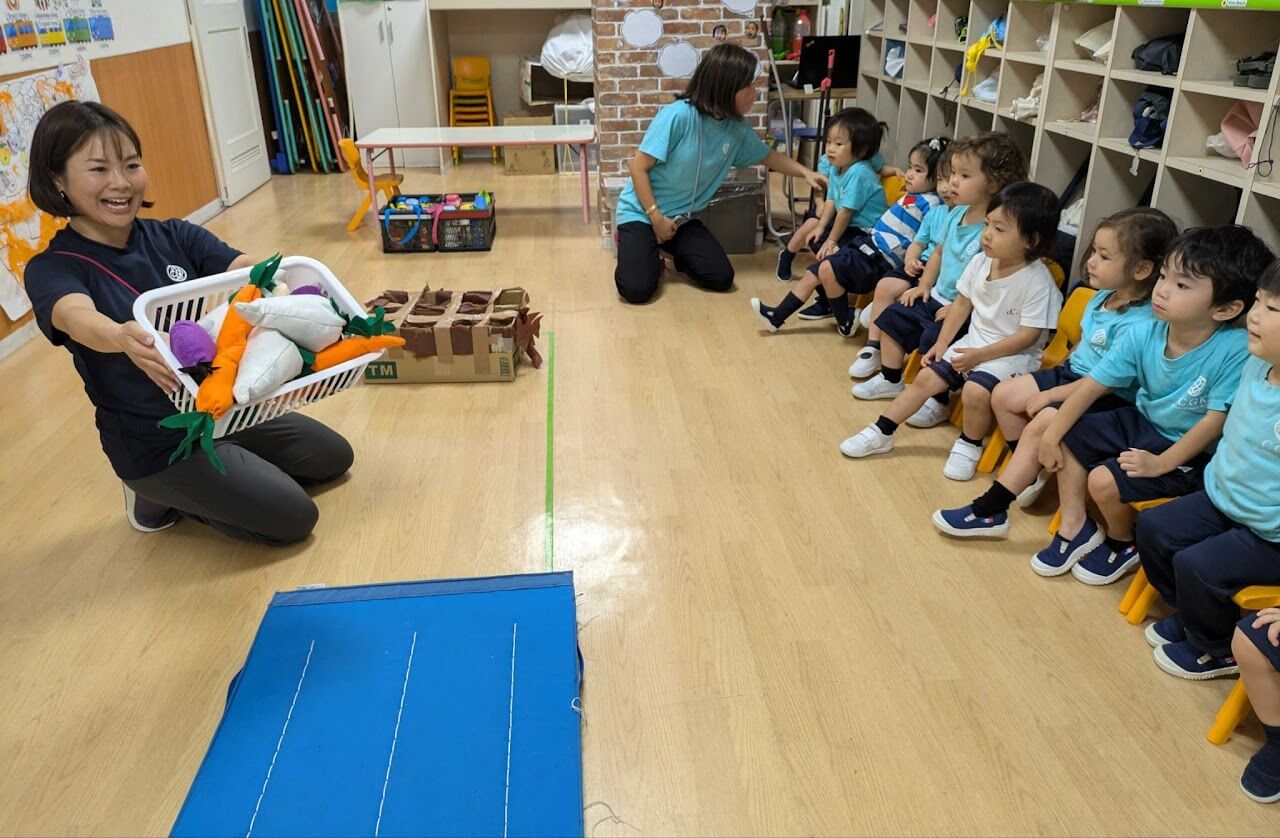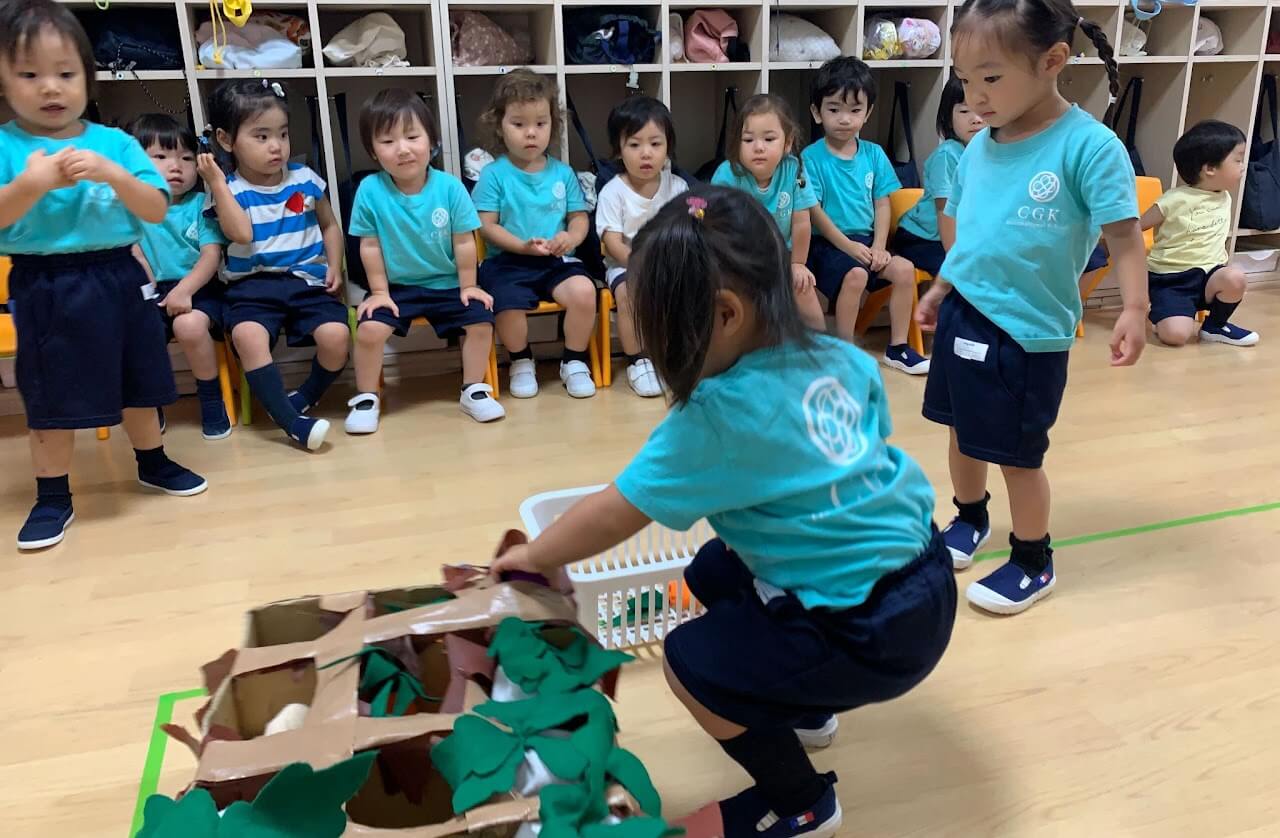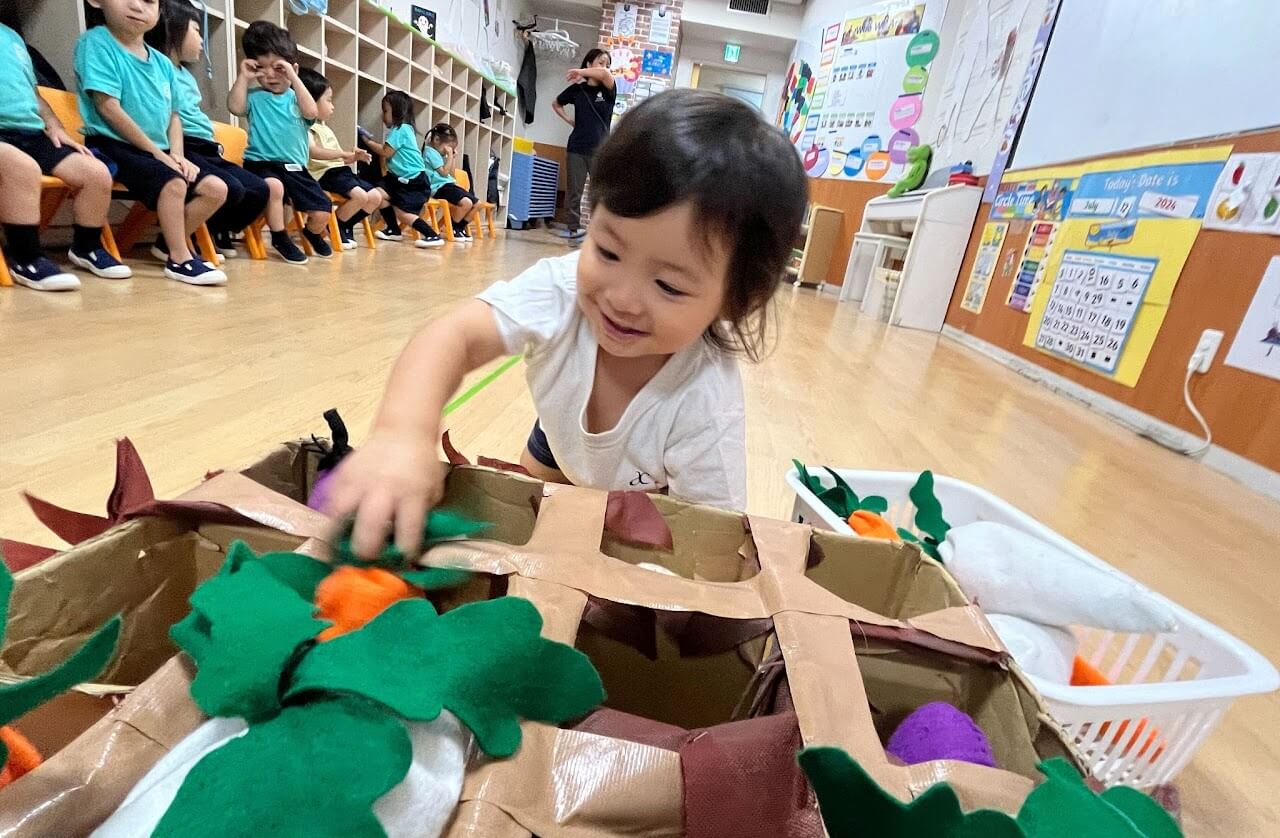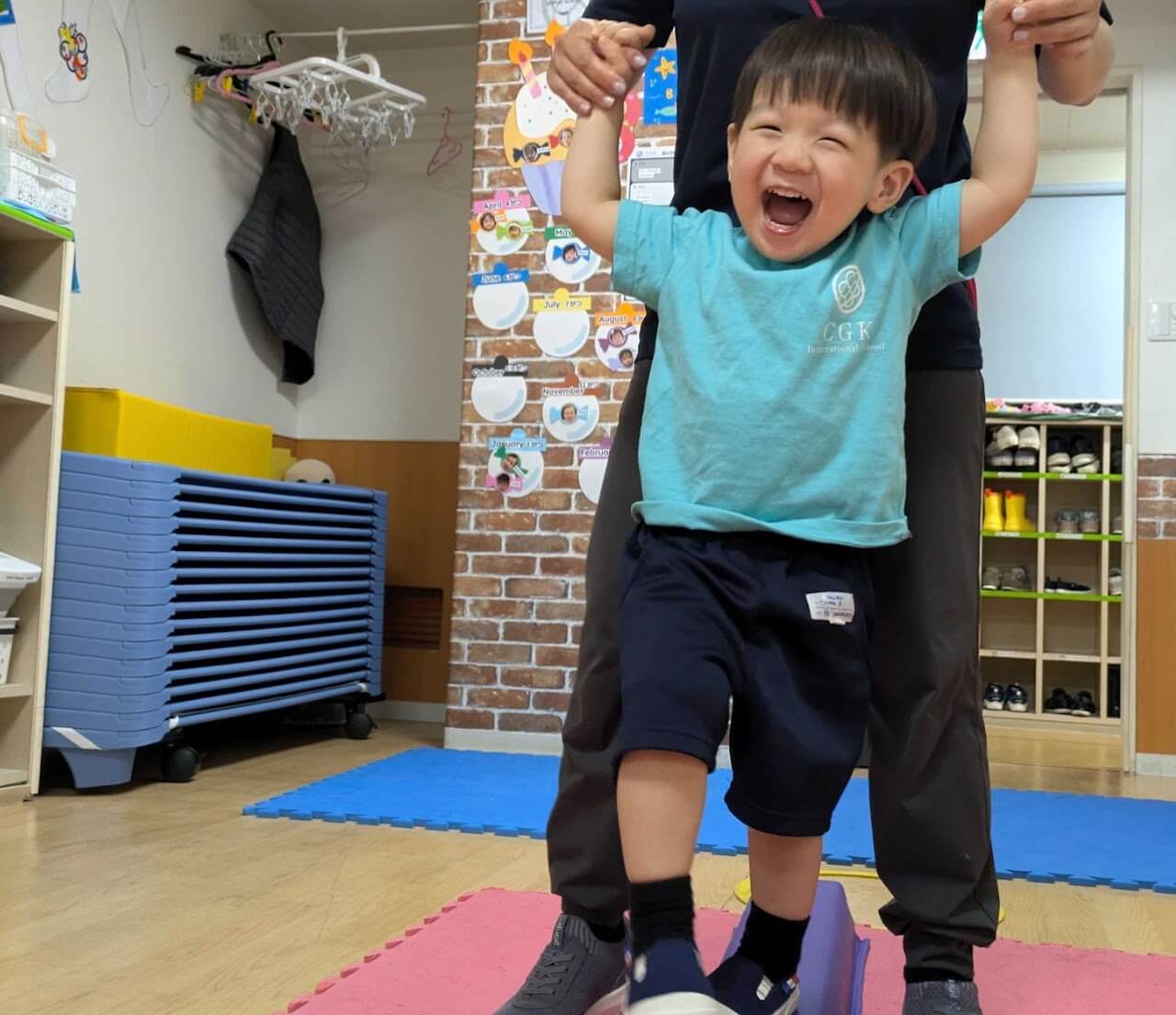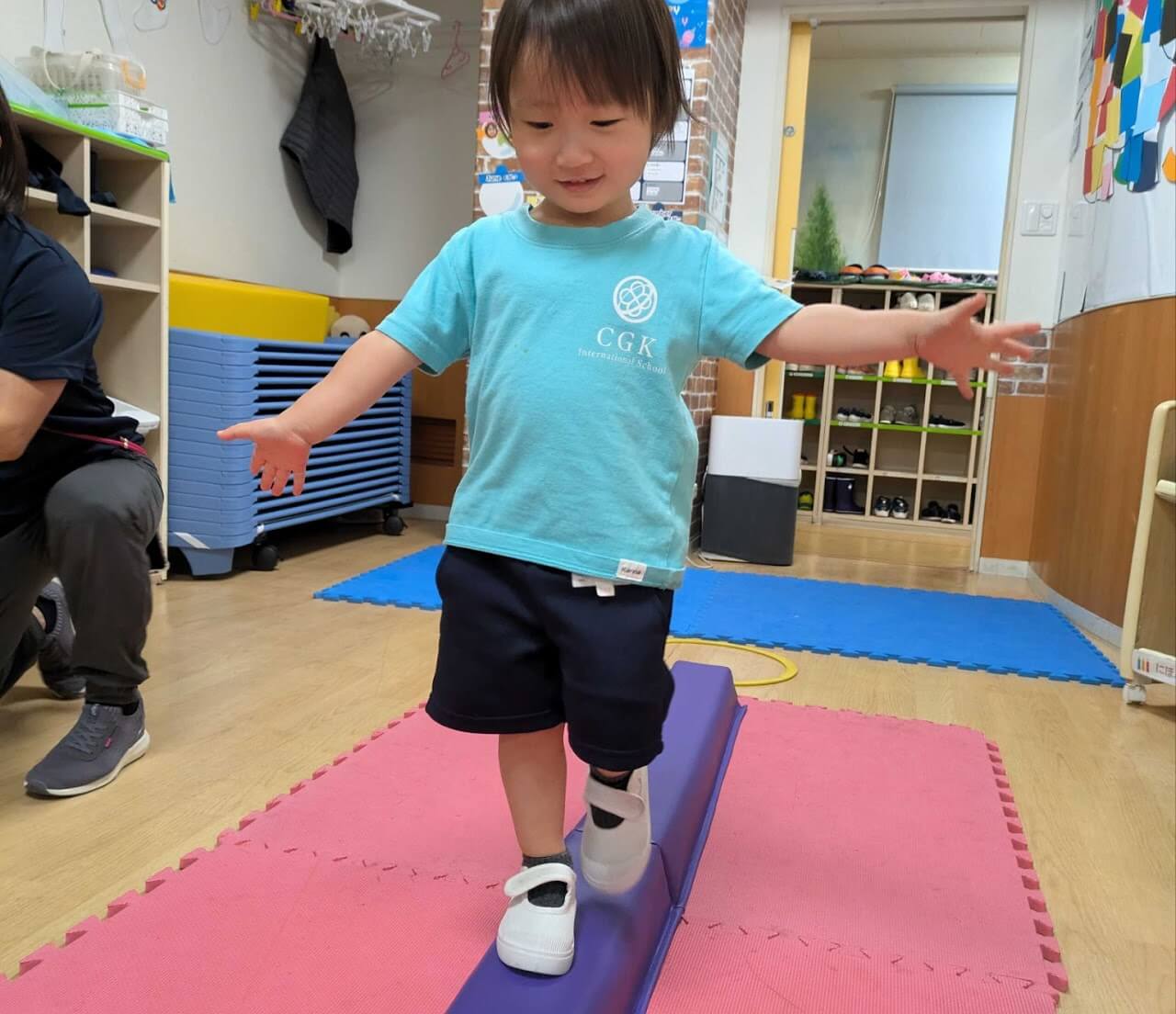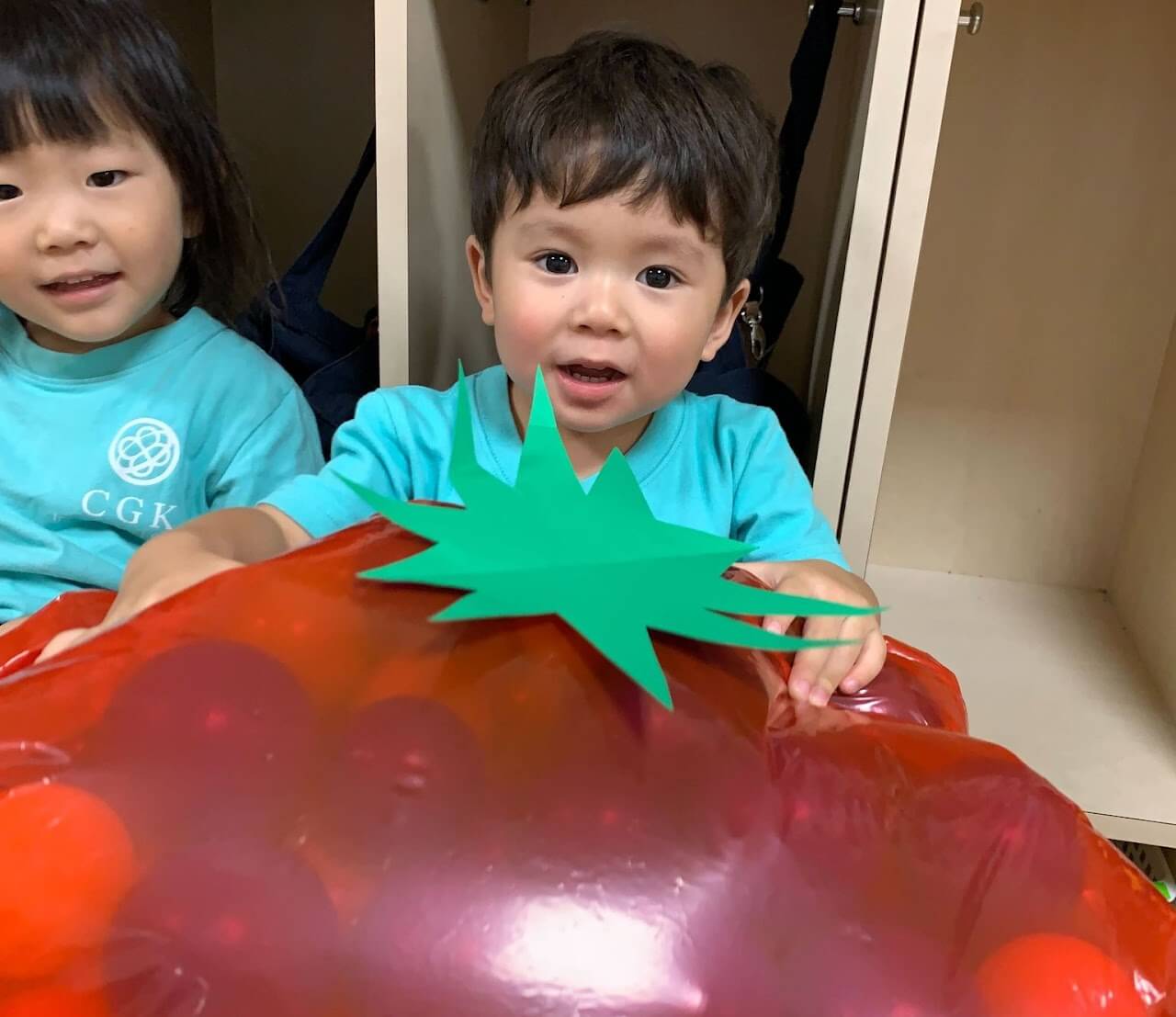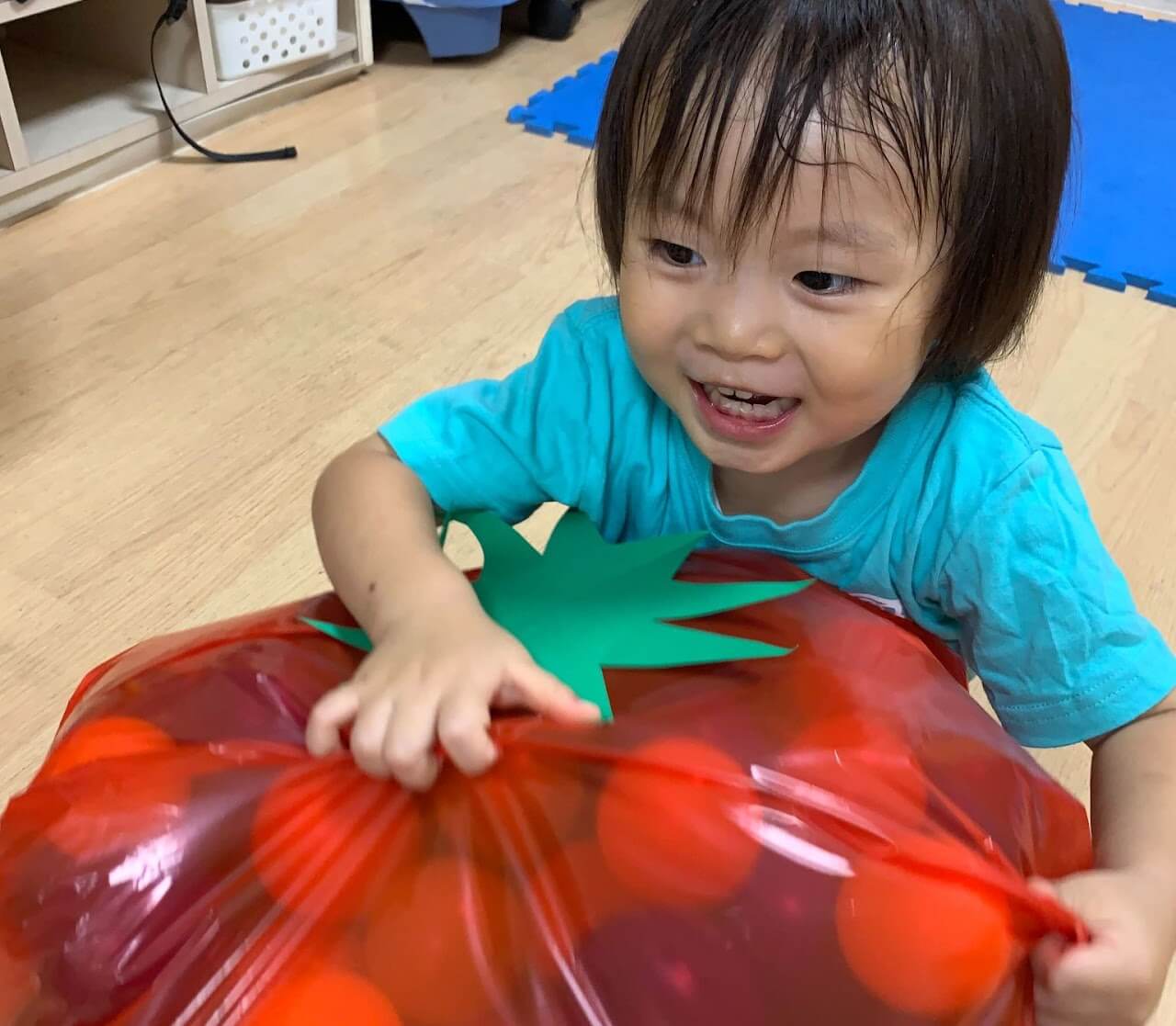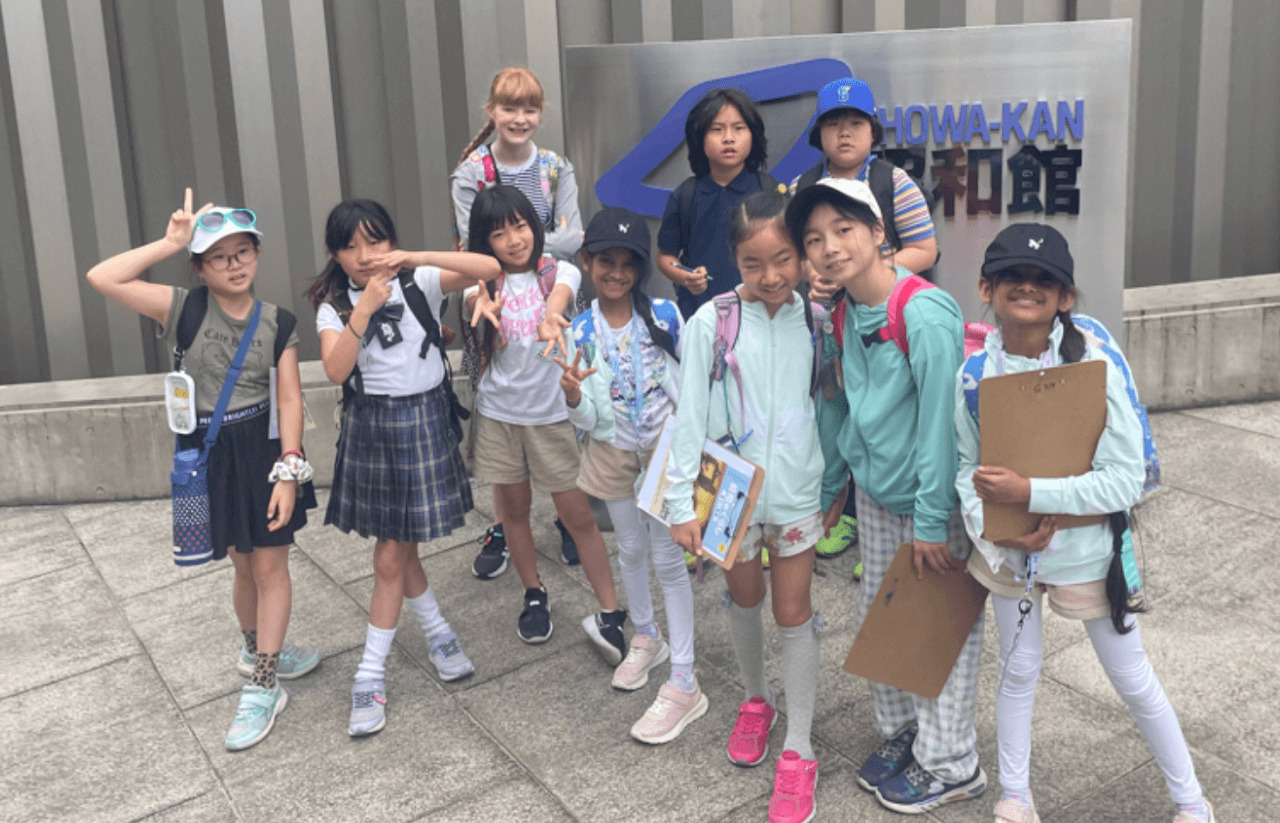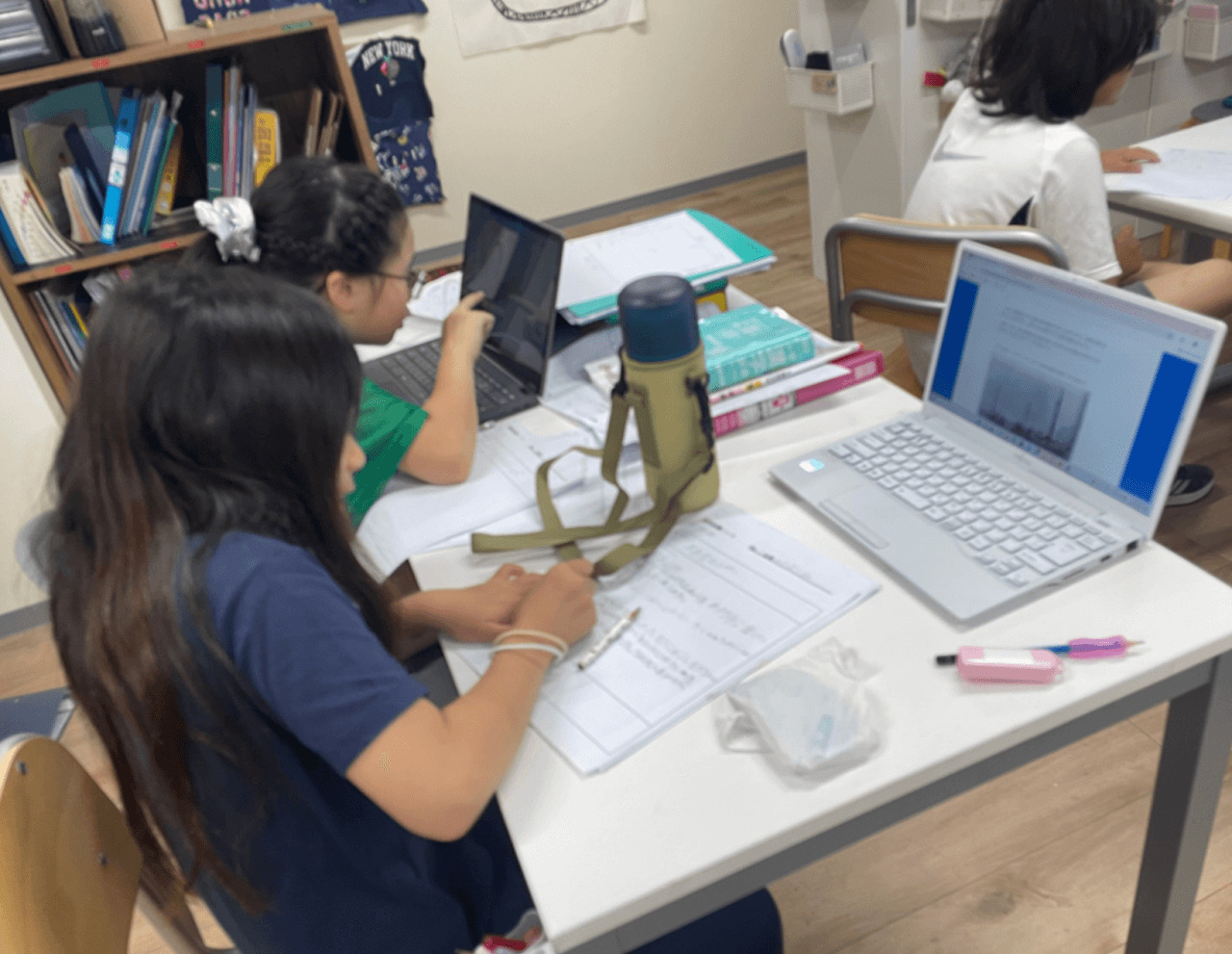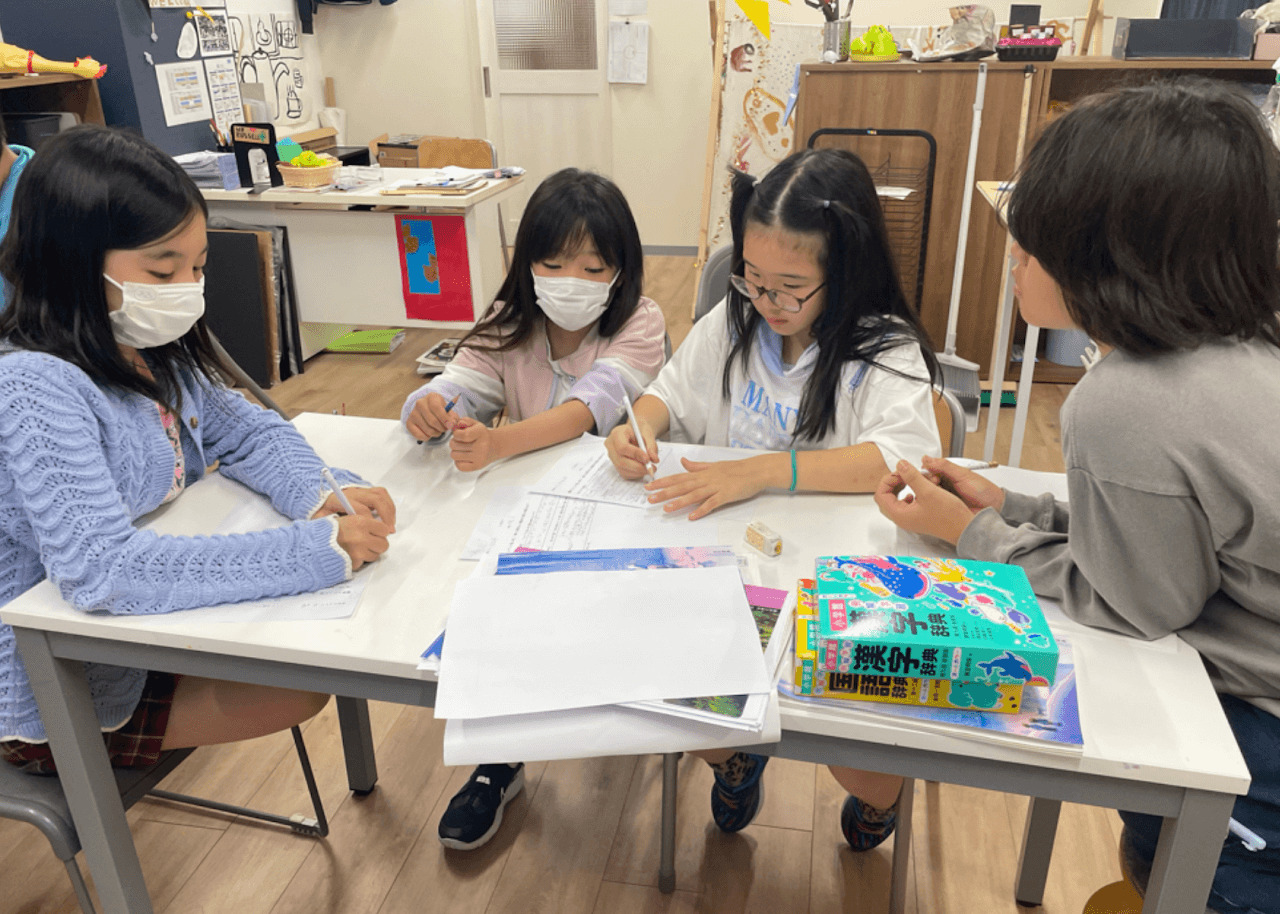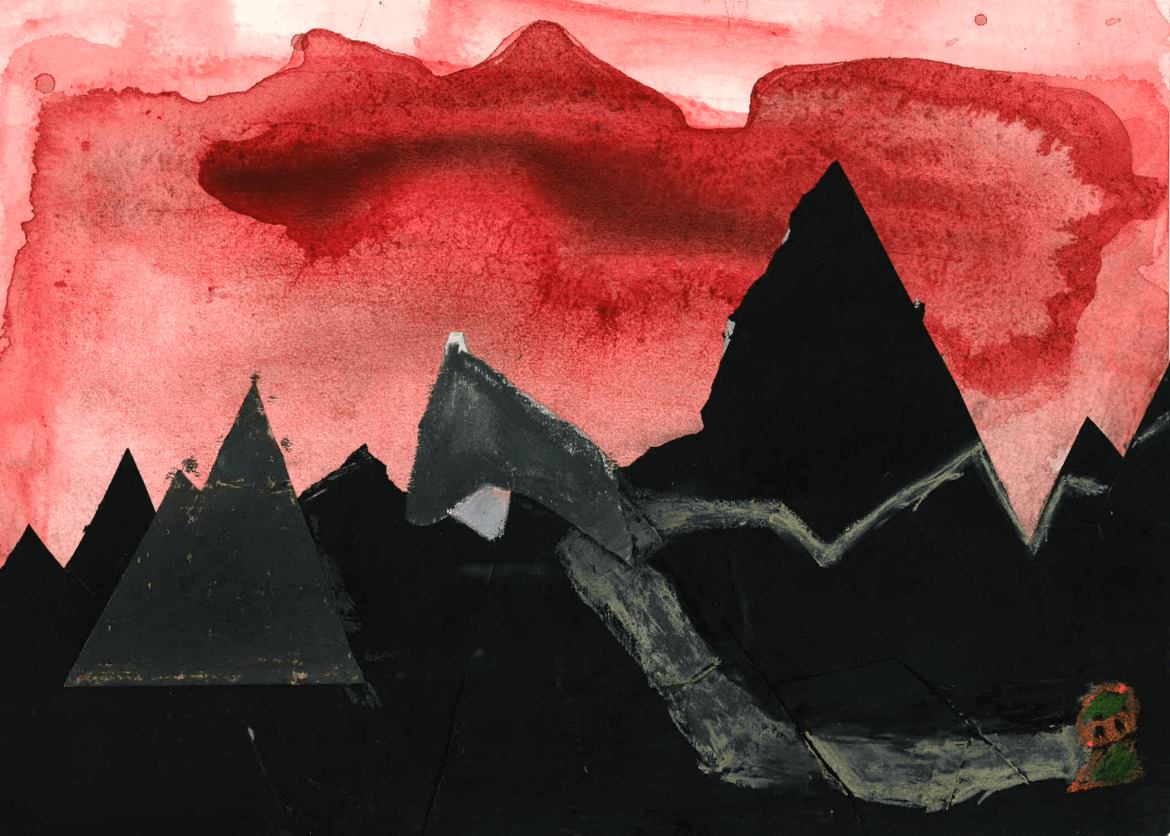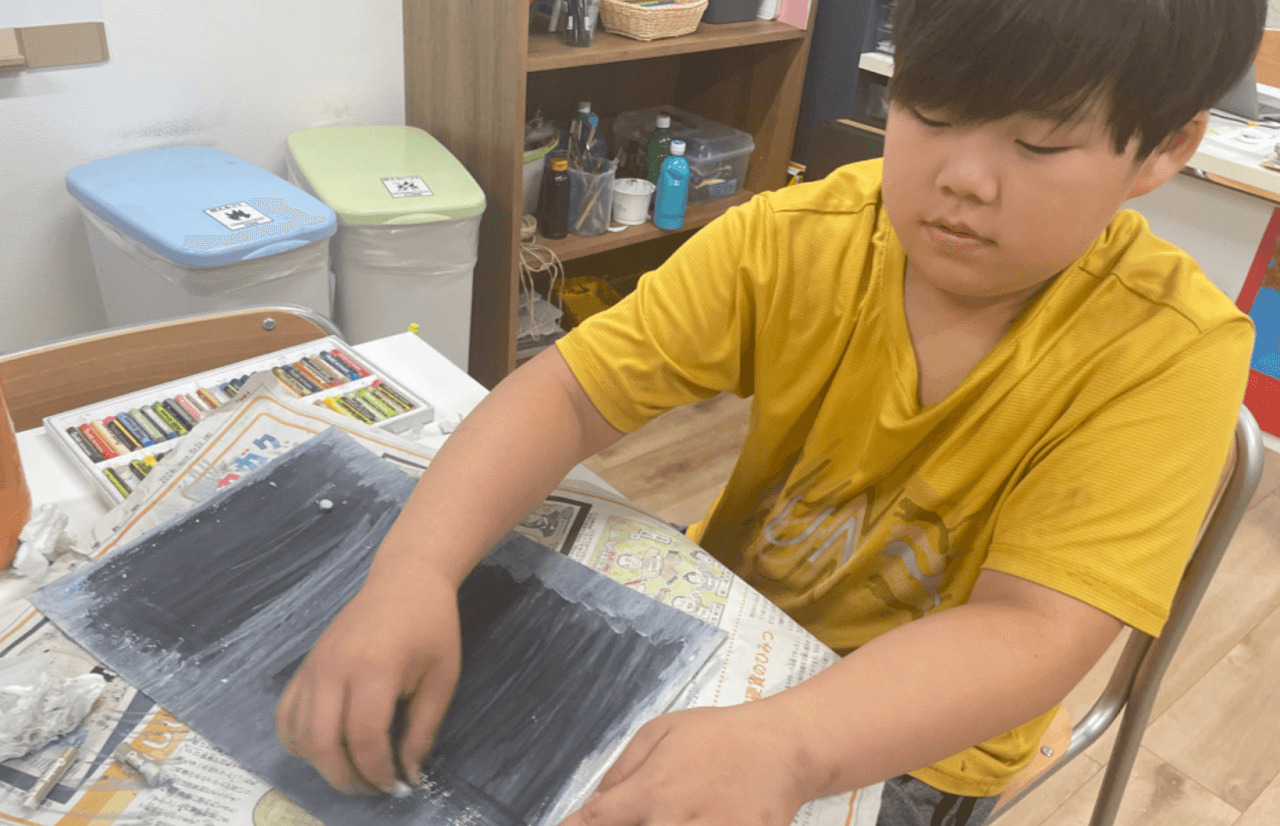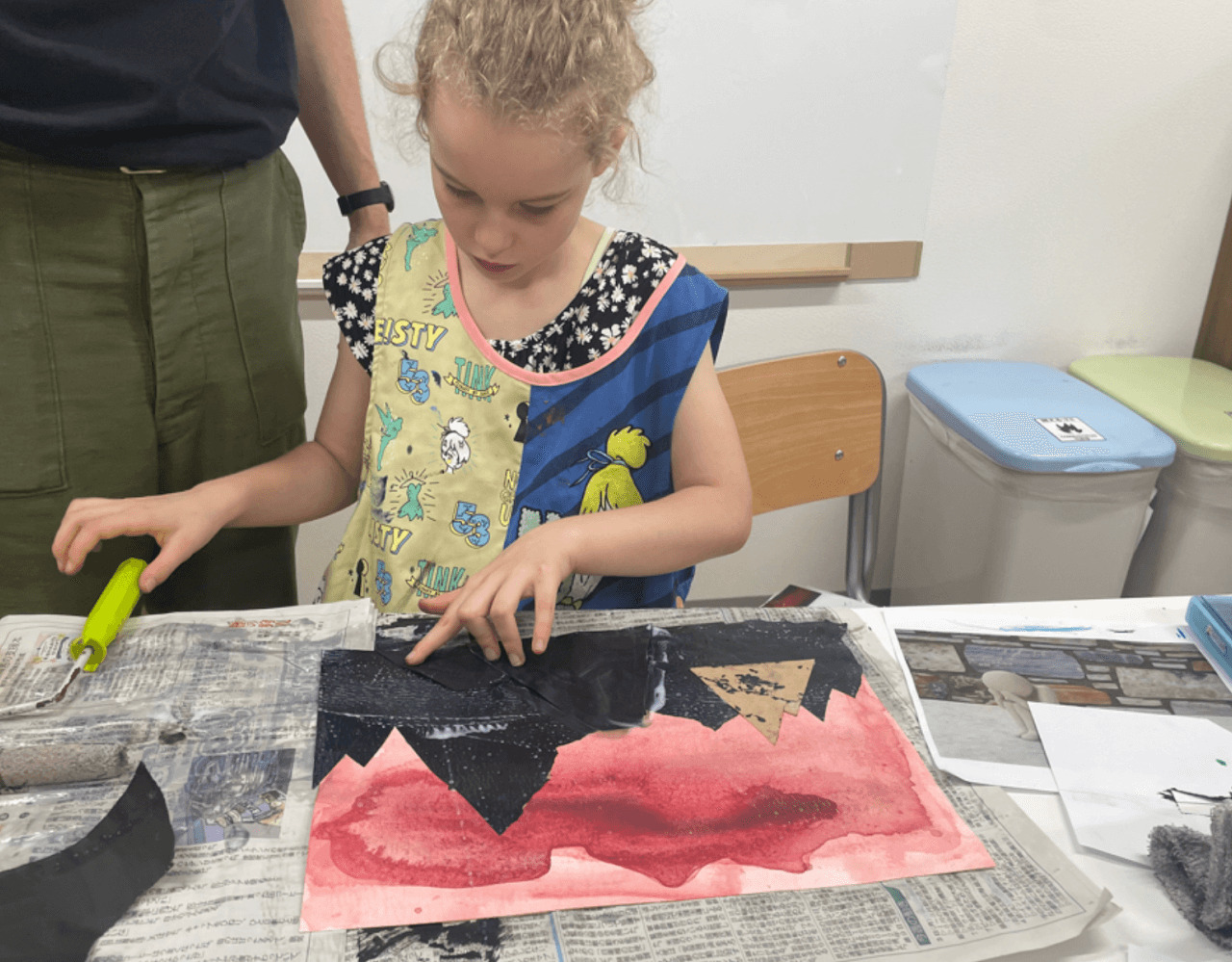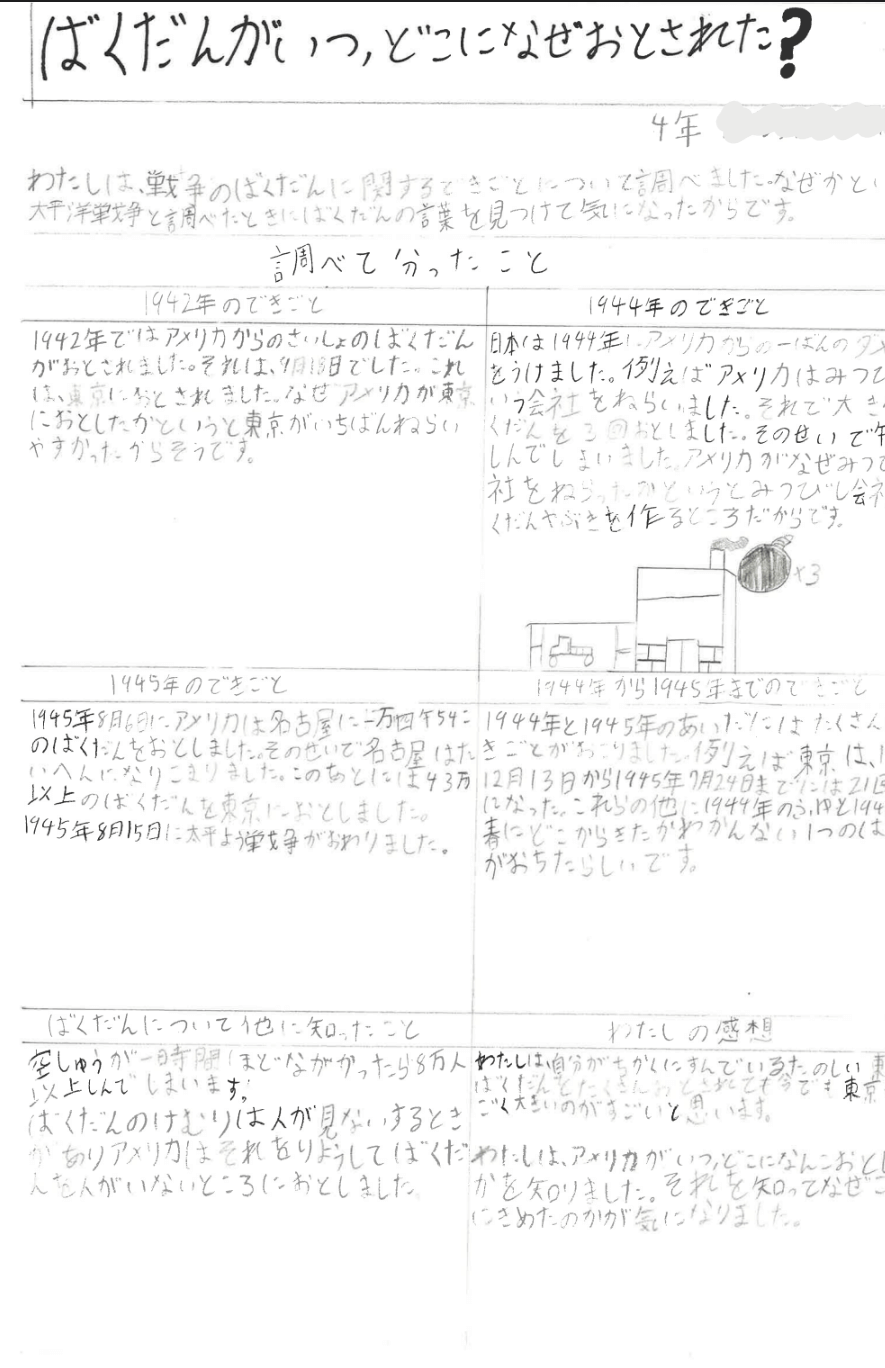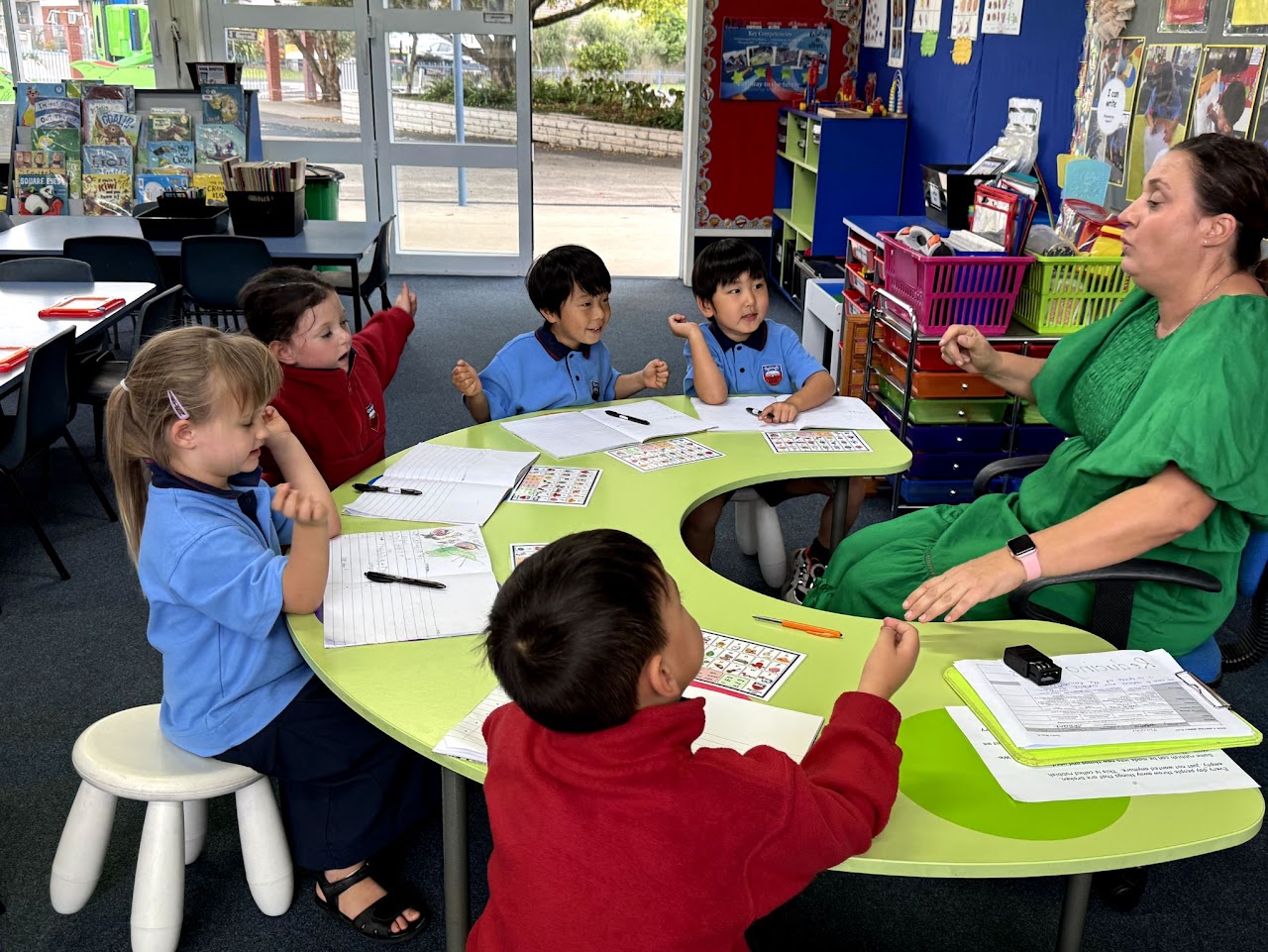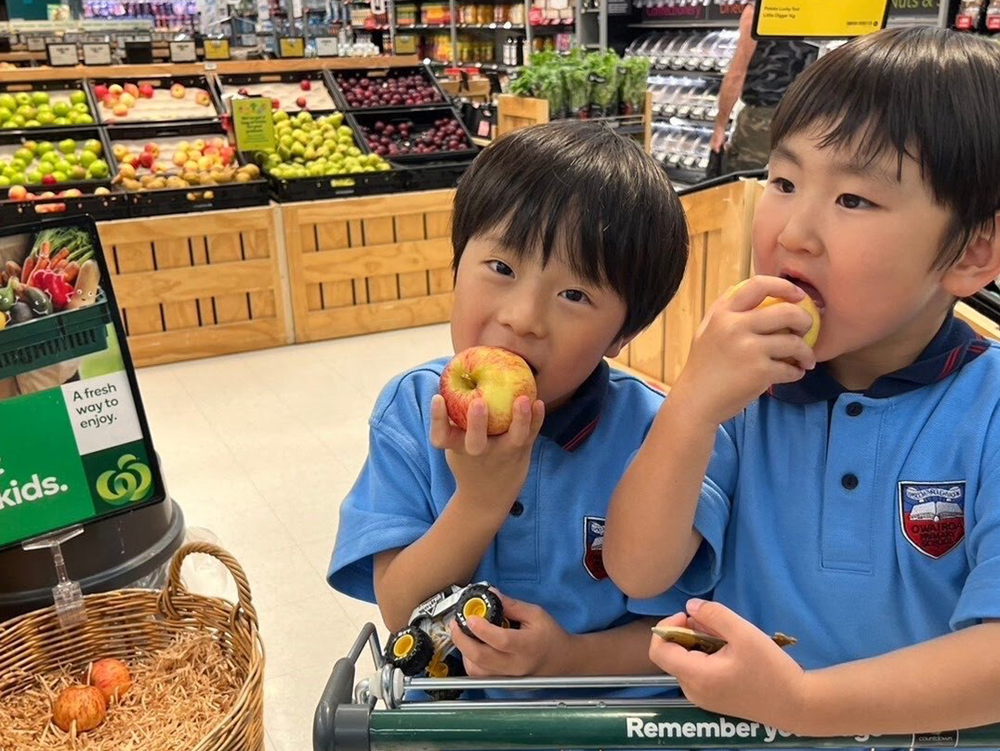CGK Times
A global learning community for discovering
and pursuing your happiness
July 2024
IB World School
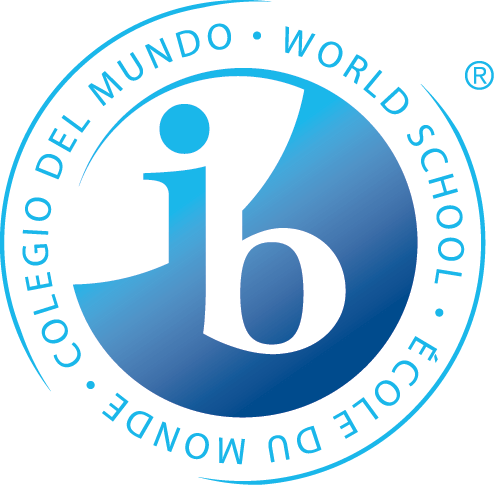



Dear CGK families,
We are very happy to share the news that we are officially an IB World School authorized to deliver the Primary Years Program! We want to thank you for your understanding, participation, and questions during this process.
Becoming an authorized school means we met all the required qualifications to deliver the PYP. Implementing the PYP at CGK has already improved teaching and learning. But this is only the beginning. We will continue to strengthen our teaching approaches and learning. Every year we will identify at least one specific area that we will work to improve as a school as well as individual goals for all staff. Teachers will also continue to receive professional development, either in-service from qualified staff or through official IB workshops. Our goal has always been not just to offer the PYP, MYP, DP, and CP, but to offer the best educational experience possible to all of our students.
We will continue to offer IB information sessions and publish writings about our school and lessons. We look forward to growing as an IB World School and community.
Thank you again for all of your support.
Sincerely,
CGK International School






Contents
Preschool
Talking 'bout Toddle



Since April 2023 when we began our IB journey, we have been using Toddle at CGK. Toddle is a purpose built platform for IB schools that helps teachers to plan, document, and share with families their children's learning and growth. As well, Toddle is also great for families to communicate with our teachers, too. But whether it's a portfolio message documenting a class' UOI, an announcement about an upcoming event, or a request for some school supplies on the family channel, the messages that the teachers send out via Toddle and Renraku App require your attention. We appreciate the time that you spend on reading these messages especially since a lot of our time is spent online and we recognise that the Toddle messages can add to that as well. But open communication ensures that information about the children is shared to help us work together for them. Similarly, our intention with the Toddle posts is to document the children's learning and share this with the families. The children's safety and welfare are our main priority when they are at school; we ask for your understanding and support as we balance our Toddle messages between specific documentations of your child's growth and every day summaries whilst taking care of the children's welfare.
All applications have their own learning curve or bugs and Toddle is no different. As you navigate your way around Toddle we encourage families to contact the classroom teachers on Toddle if there are any queries and we will reply as promptly as possible. We look forward to communicating and sharing with you the children's growth on Toddle.



Old Enough!
Two things that happened recently: first, during the recent Parents Discussions, some families asked us what they can do at home to continue the IB way of learning. The other thing that happened? There was new episode of Hajimete no Otsukai! For those who are not familiar with the show, Hajimete no Otsukai, also known as Old Enough in English and streaming on Netflix, is a long running Japanese reality TV show where preschoolers run errands on their own for the very first time. So how are these two two recent events related? Besides being entertaining and heart warming, in its controlled environment the children in Old Enough display some examples of the IB Learner Profile. The thing to remember though is that even though everything can be a learning experience, we want the children to just be children and have fun and explore and not just studying all the time.
Like the name of the show suggests, children take on new tasks because they are old enough. But age is not the only nor best indicator when a child can attempt something new. Children are knowledgeable and show us what prior knowledge they have or how their skills have developed; whether it's reading hiragana or knowing how to get somewhere, we can judge when the children are ready or if the leap is too big for them. Just by listening to them can tell us a lot because children love to share what they know. And a big way that children learn is through watching or helping us. Just like the dramatic play that we have at school, children learn new things by doing new things. This gets them ready for when they have to do the real thing on their own.
And when they're on their own, the children have to rely on their own skills and thinking to resolve problems. What happens when they can't get past the scary (to them) neighbourhood dog or can't find something at the shops? As risk-takers and thinkers they can find solutions to solve the current problem at hand (stir up the courage to walk past the dog or ask a shop staff for help). Everything can be a learning experience whether it's learning the differences between a cabbage or lettuce, knowing how to carry a heavy bag of shopping, or negotiating with a sibling. The examples given here may be practical but they help to develop the IB Learner Profile aspects. Everything seen on Hajimete no Otsukai happens with preparation. Similarly, we can prepare children for new learning experiences by helping them learn through everyday activities. Children will ask us for help when they need it. But when they're ready, they're ready!
CGK Awards
Welcome to the world renowned, highly respected, and much revered CGK Awards! Each month we would like to highlight the children from each class who have displayed qualities that are part of the IB Learner Profile. These are qualities that we want our children to have and to share with the world. With that, the recipients of the CGK Achievement Award for July are:
Jungle (3-year-olds)
A. - for being balanced and managing his emotions and for being better at communicating his feelings and opinions.
R. - for being an inquirer and a more confident communicator and sharing his knowledge of living things.
Mountain A (4-year-olds)
M. - for trying to do the right thing and being principled.
R. - for being open minded about his new adventure.
Mountain B (4-year-olds)
K. - for communicating with his friends, helping them to be positive and solve problems.
K. - for being kind and caring and always offering a helping hand to friends and teachers.
Sky (5-year-olds)
A. - for communicating more to friends in her special way and mimicking the teachers by repeating some phonemes.
R. - for trying new activities with no hesitation and reflecting on what he has learned during various activities and field trips.
Congratulations to this month’s recipients. Keep on sharing your awesomeness with the world!
Sky (5 year olds)
Galactic Explorers: An Outer Space Adventure!
Sky Class has been diligently working on UOI How the World Works with a focus on our solar system. This UOI has guided students through exploring complex concepts and fostering a deeper understanding of space. They've engaged in various hands-on activities, such as cutting and pasting planets to create a model of the solar system, which helped them visualize the positions and relationships between celestial bodies. They've also enhanced their vocabulary and knowledge of planet names through interactive word searches, making the learning process both fun and educational.
One of the highlights of the UOI has been observing materials that mimic those from outer space, like black slime. This sensory activity captivated the students' imagination and curiosity about the unknown. Additionally, the children crafted impressive planet models using paper clay, painting them in vibrant colors to represent the unique characteristics of each planet. This artistic endeavor allowed them to express their creativity while reinforcing their understanding of the solar system.
All of these activities culminated in our monthly Dramatic Play day, which was truly out of this world! Our little astronauts thoroughly enjoyed navigating through space at the control panel, building 3D structures with play sticks, and using magnifying glasses to examine moon rocks. They also had fun with colorful slime and identified different patterns on a light box using transparent pieces and numbers. This immersive experience not only brought the unit to life but also fostered collaboration, critical thinking, and problem-solving skills among the children . Sky Class's enthusiasm and hard work in this UOI have been truly stellar!
Making Predictions: Creating Slime and How Coins Change
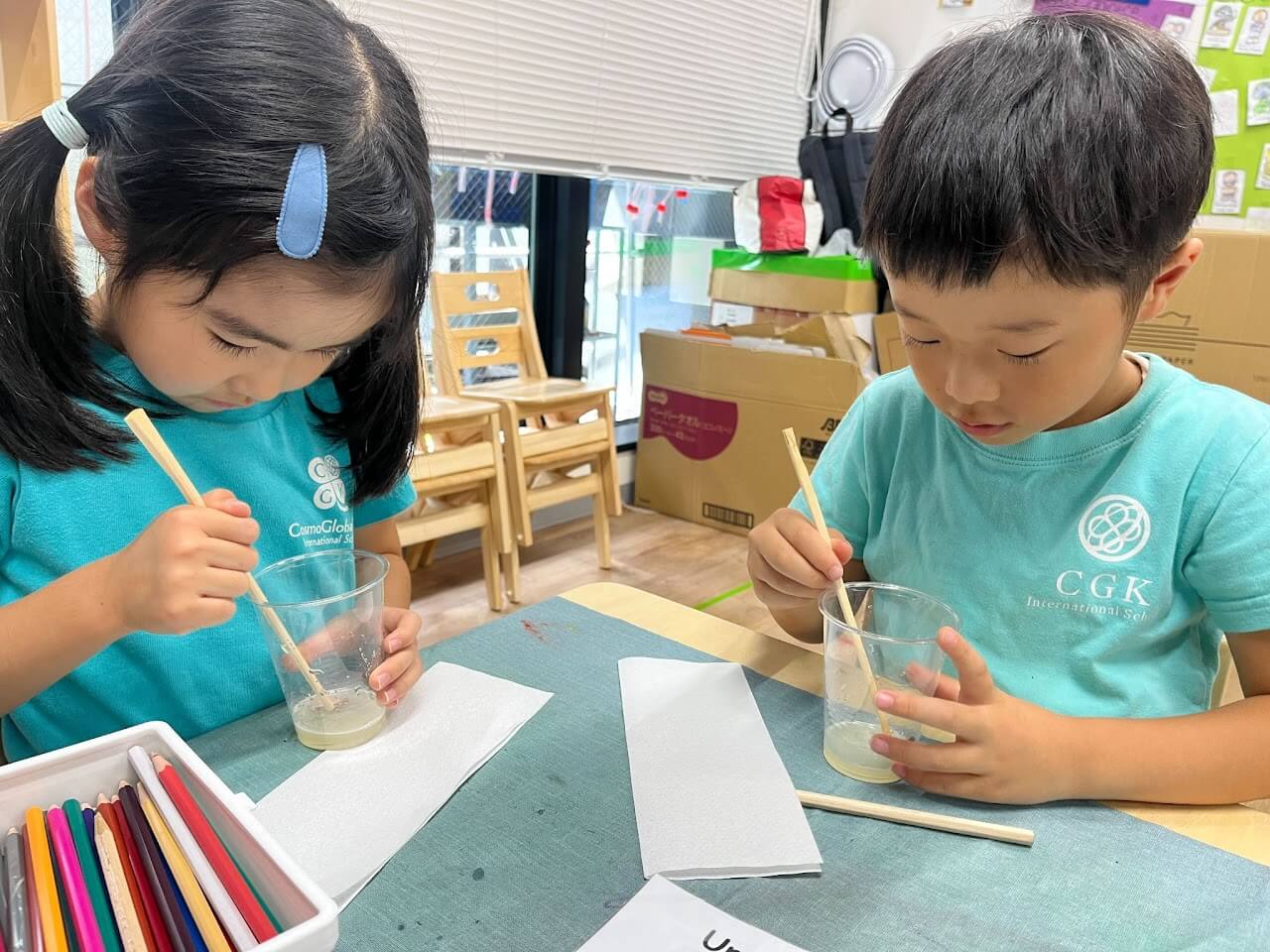

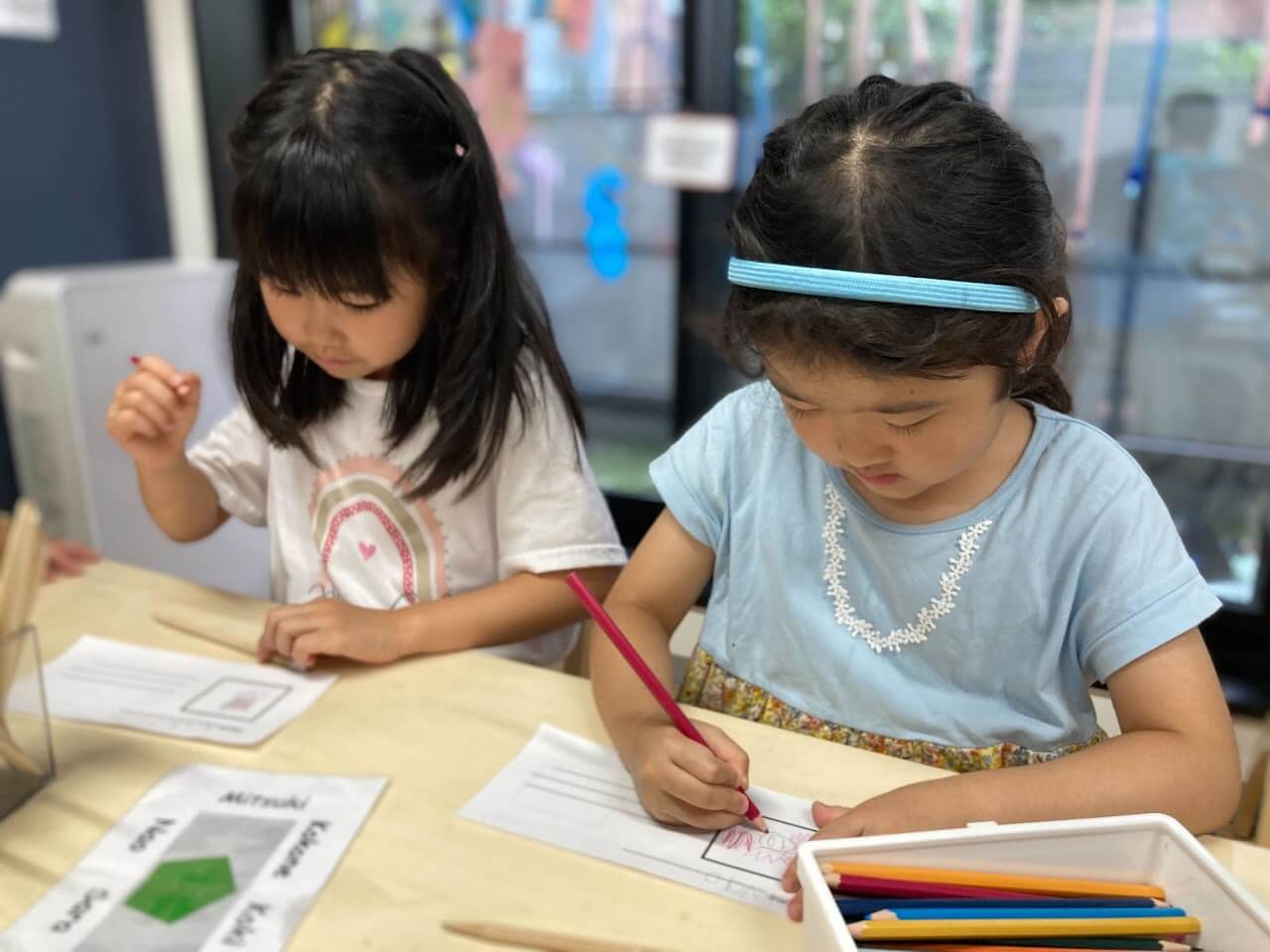


In Sky class this month, we have continued to explore the scientific process in our UOI, How the World Works. In these lessons, we focused on one of our IB Lines of Inquiry, materials and their properties and answering one of our Key Concepts questions: what causes materials and their properties to change?
As Sky is already knowledgeable about water, we reviewed this concept to introduce the approach of making predictions. We investigated about how water changes depending on the temperatures around it: if we freeze water, what do you think happens to it? What about when it's put onto a stove? Then, we moved onto a different material: 10 yen coins. Each child put a 10 yen coin into a glass of vinegar and wrote what their predictions would be - what would happen to the coin? Some predictions made about the coin included a change in texture, color, or even temperature.
Throughout the week, the children saw how the coins oxidized and continued with their experimentation: if you put oxidized coins into lemon juice and salt, what happens? To most of their surprise, it cleaned the coins! Again, we wrote down both our predictions and the results of how coins change depending on their environment. Moving on, the children made new predictions: if you mixed borax in hot water, glue, and paint, what do you think will happen? The result is slime, a new toy the children were excited to have.
Sky class showed multiple IB Learner Profile attributes through this process; they were inquirers by asking how and why the coins changed; by being knowledgeable they showed what they already knew about the process of creating slime; even though handling their experiments meant they had to get their hands dirty, they were risk-takers; by being balanced they were able to manage their time responsibly when conducting their experiments.
VISIT ICONIC STAGE: Children's learning and practice


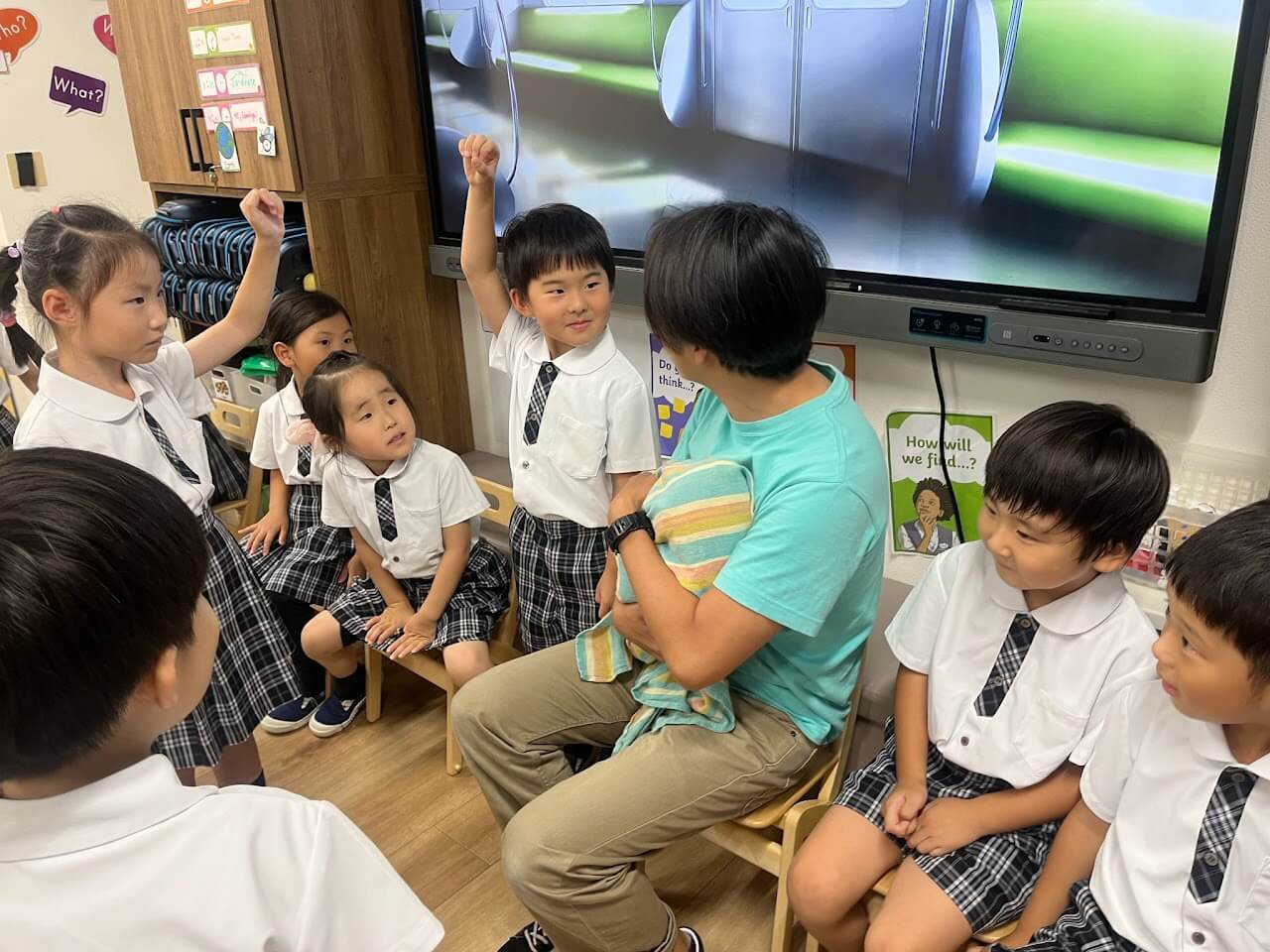


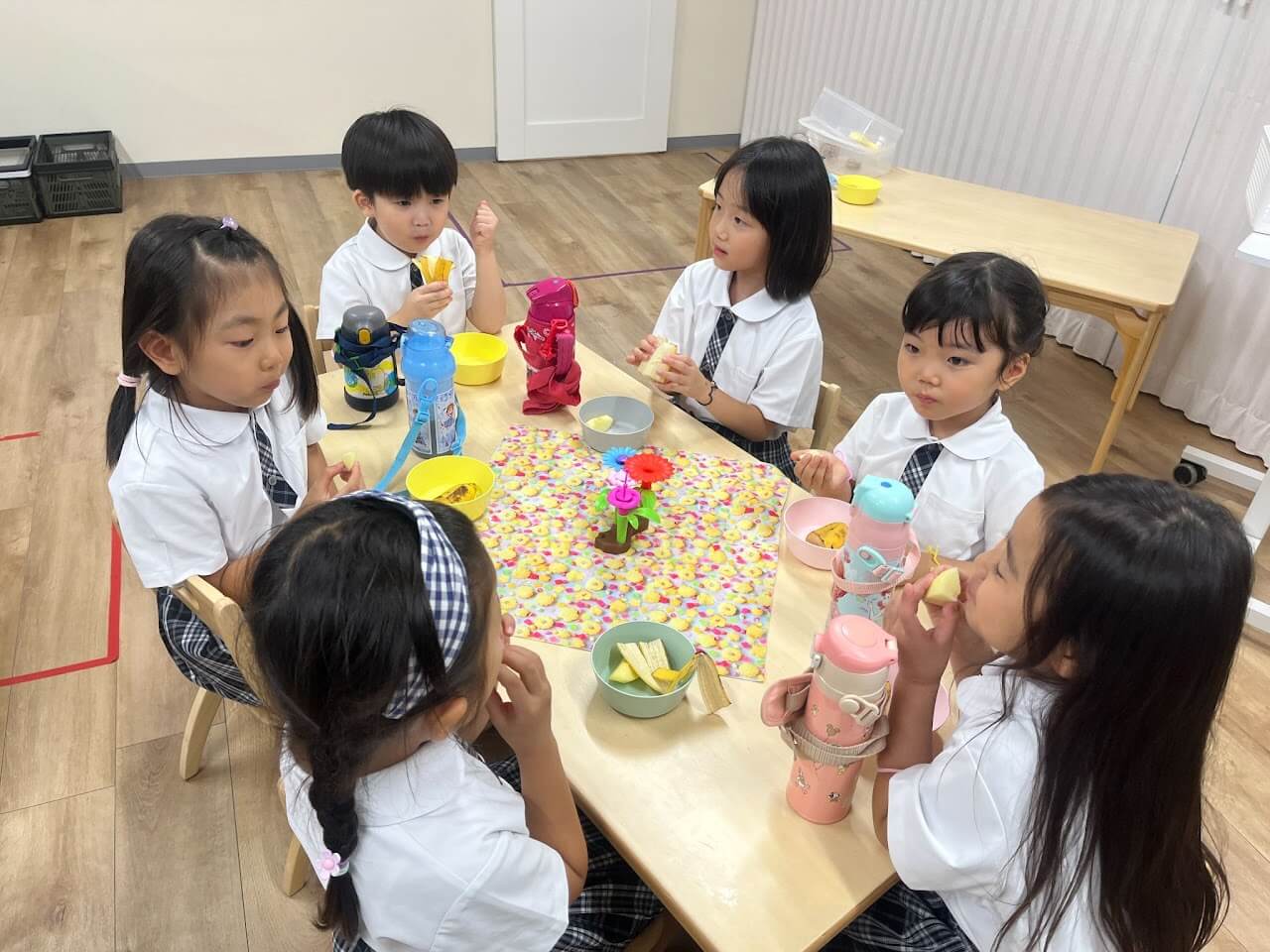
-

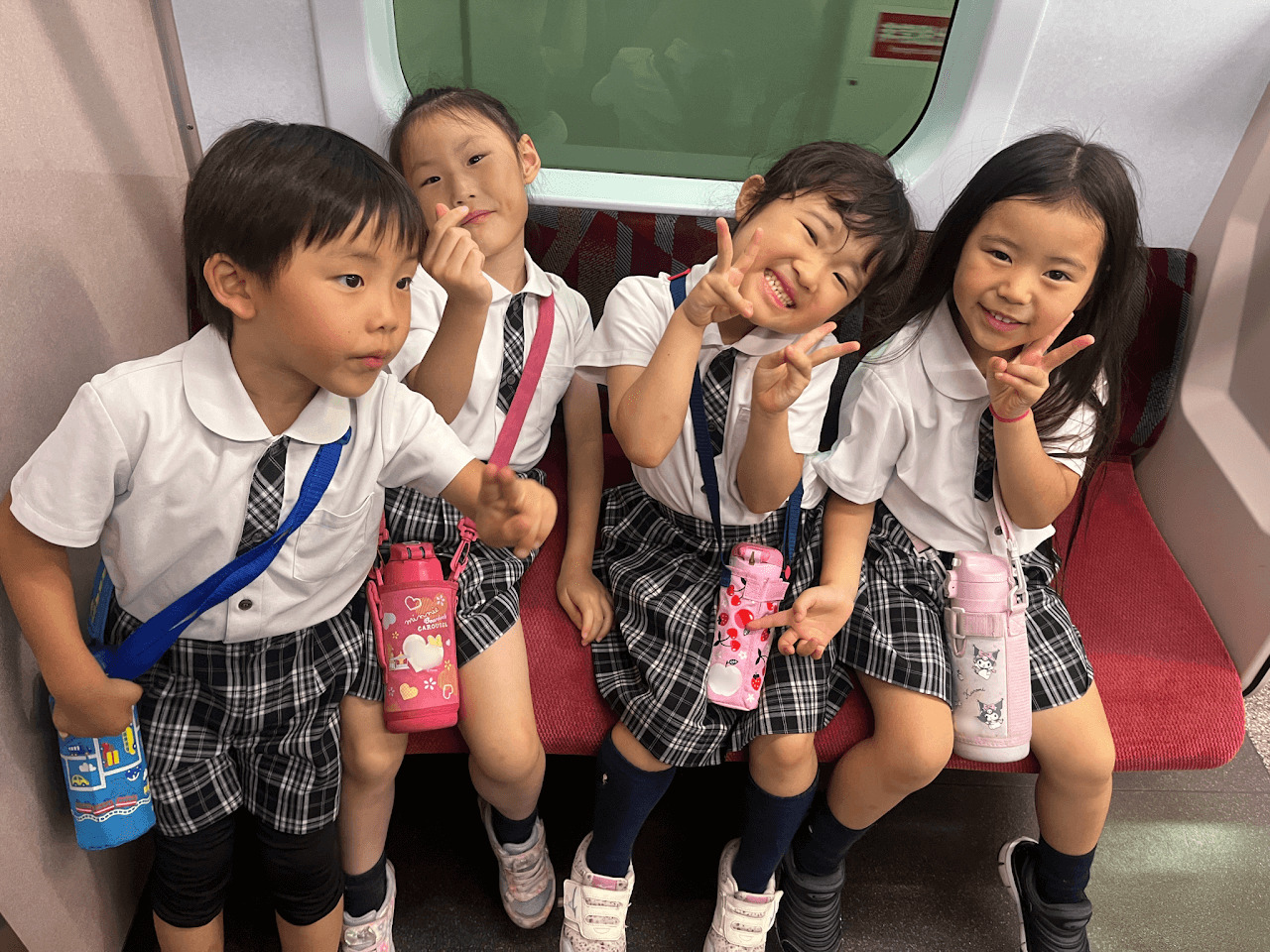

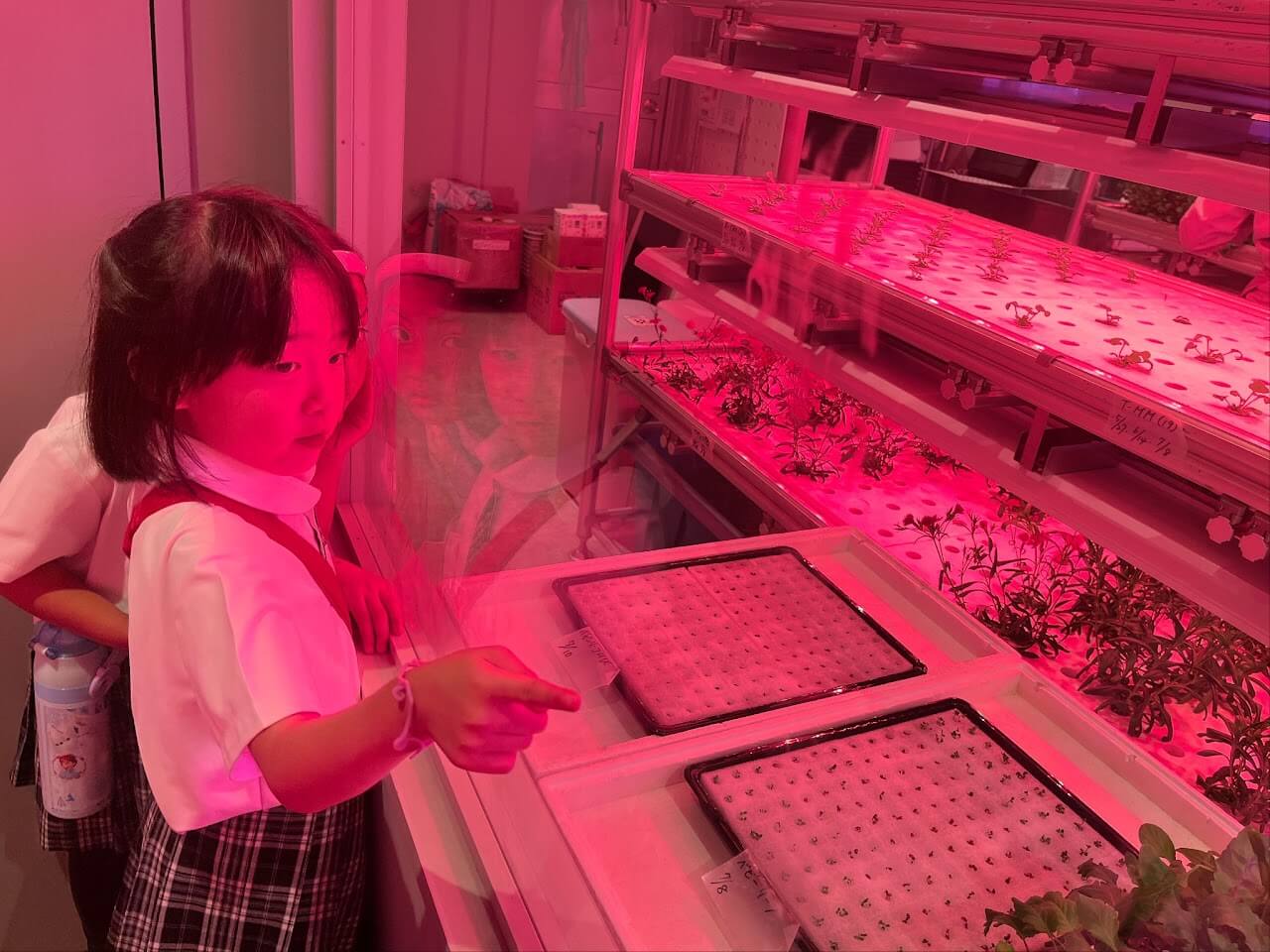

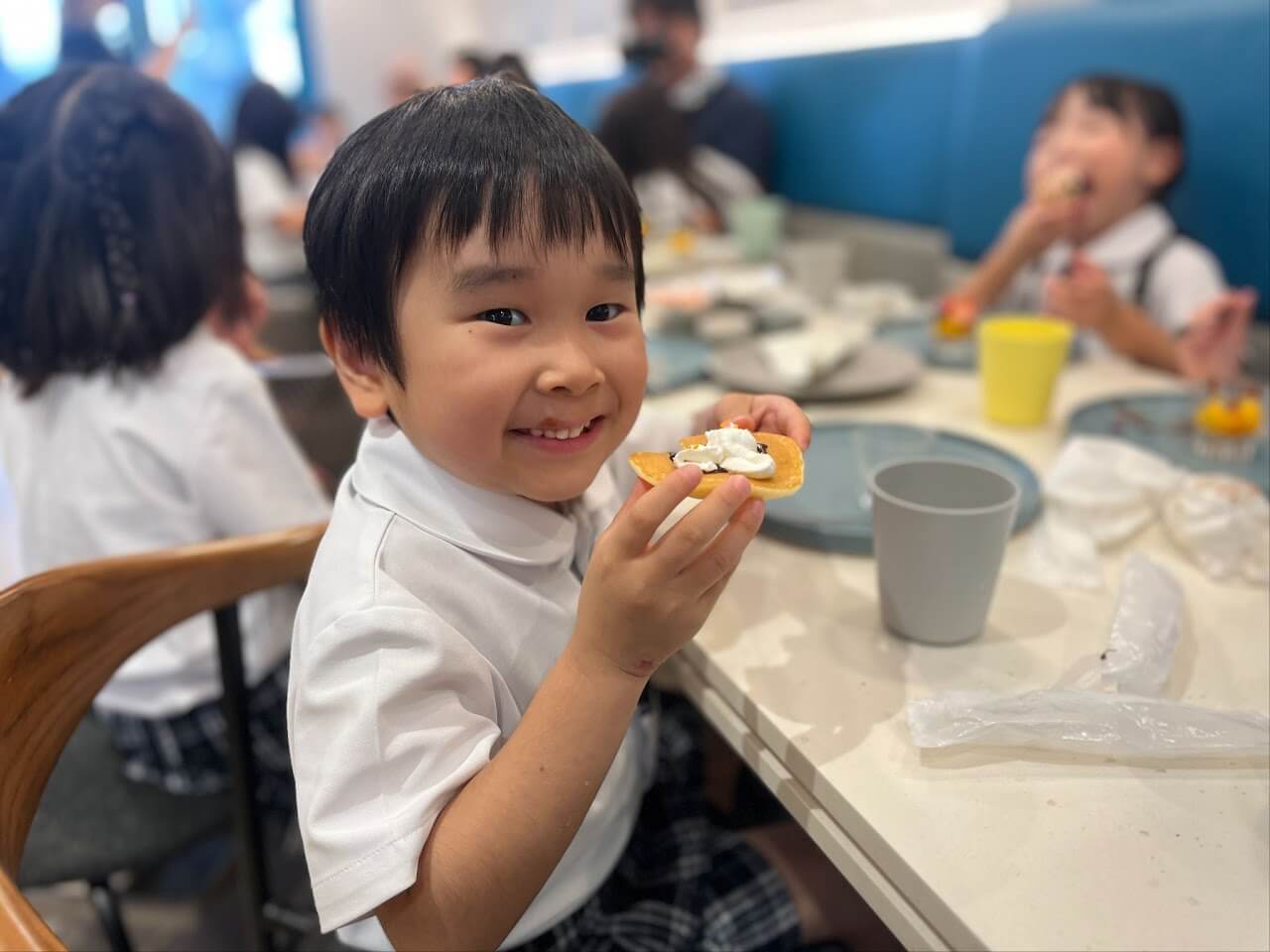
-
As part of our current Unit of Inquiry (UOI), "How the World Works," the Sky class visited the café ICONIC STAGE in Higashi-Hakuraku. This provided an opportunity for the children to see and learn firsthand about advanced agricultural methods inside urban buildings and the concepts behind them. At ICONIC STAGE, they use LED lights to cultivate vegetables and flowers within city buildings and serve them in the café. The day before the visit, we reviewed what to be mindful of when riding trains and table manners. The children enjoyed playing train and restaurant in the classroom, thinking and learning on their own about how to act in various situations.
> On the day of the visit, the children listened attentively and demonstrated the ability they developed during this UOI to "have questions, express them in words, and resolve them by asking." Each child was very curious, and many actively asked questions such as "Why did you decide to grow vegetables inside buildings?" and "Why are there so many different colors of light?"Furthermore, after carefully observing Ms. Emily planting lettuce seeds, the children engaged in discussions with great interest: "How do such tiny lettuce seeds grow big inside a building?", "Look, the color of the light just changed!", "I wonder how the taste of lettuce grown in a field differs from that grown inside a building?" During pancake time after the facility tour, they happily said, "This is the most delicious pancake in the world!!" while adding toppings to their liking. They also paid attention to the edible flowers served alongside, expressing their amazement by saying, "These flowers were also grown in that room earlier; that's amazing."
When we reflected with the children the day after the visit, various opinions emerged. There were many fun memories like "I was able to learn new things by seeing vegetables being grown inside buildings," and "Riding the train with everyone was exciting; I want to ride it again." Additionally, there were specific comments like "I wish I could have seen how they plant seeds of vegetables other than lettuce," and "I wanted to learn more about edible flowers." Not just "It was fun," but through such reflections, we realized that the children's ability to grasp the essence of things and think logically is being naturally nurtured.
From August, we will begin a new Unit of Inquiry, "Where We Are in Place and Time." We are very much looking forward to seeing how this opportunity to delve deeply into cultures and histories around the world will spark the children's interests.












Mountain A
(4 year olds)
Come Fly with Me!
Our focus for this month has mostly been on culture and traditions from around the world. To spark the children's interest we took a trip to Earth Plaza where they had the opportunity to explore new cultures through hands-on activities like playing instruments, trying on costumes, and seeing traditional houses from other countries. Being exposed to cultural differences at a young age will help to foster a sense of open mindedness and adventure which we hope the children will embrace throughout their educational journeys.
Around the World in Kannai!
-

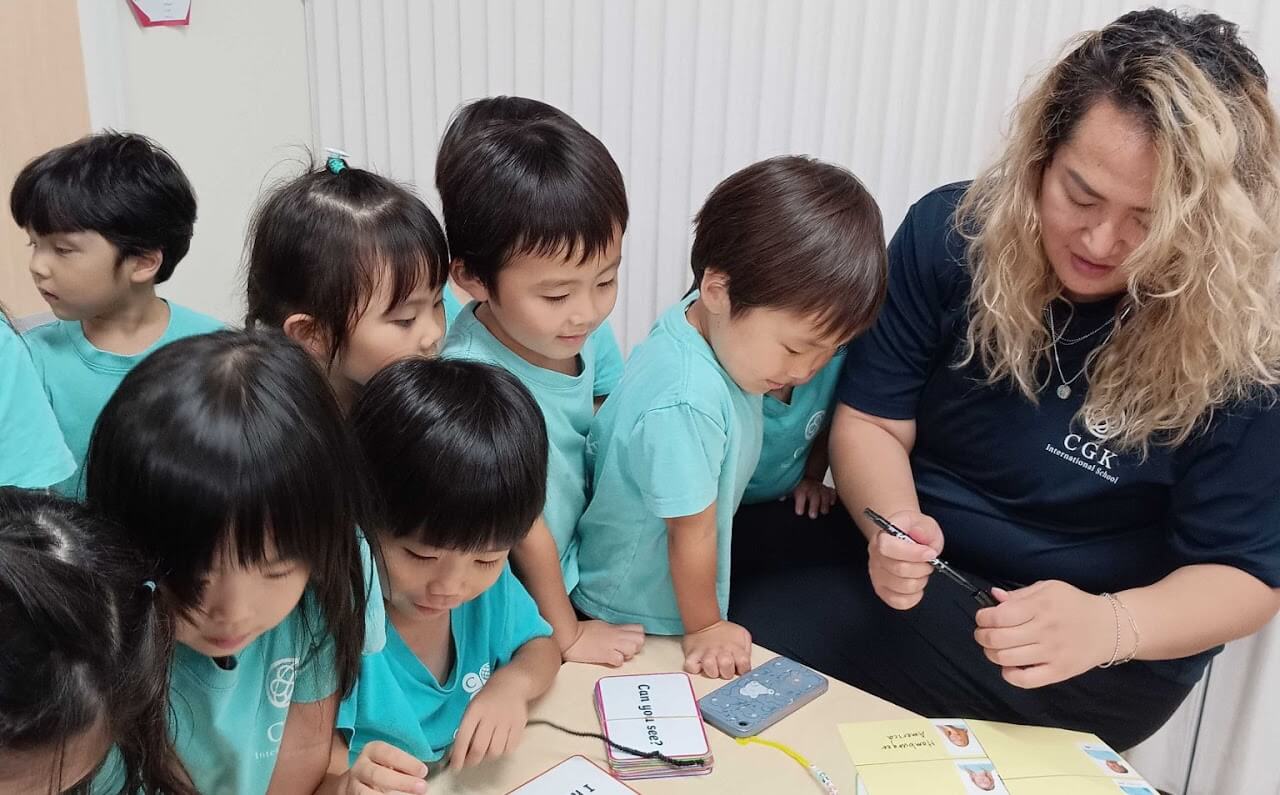

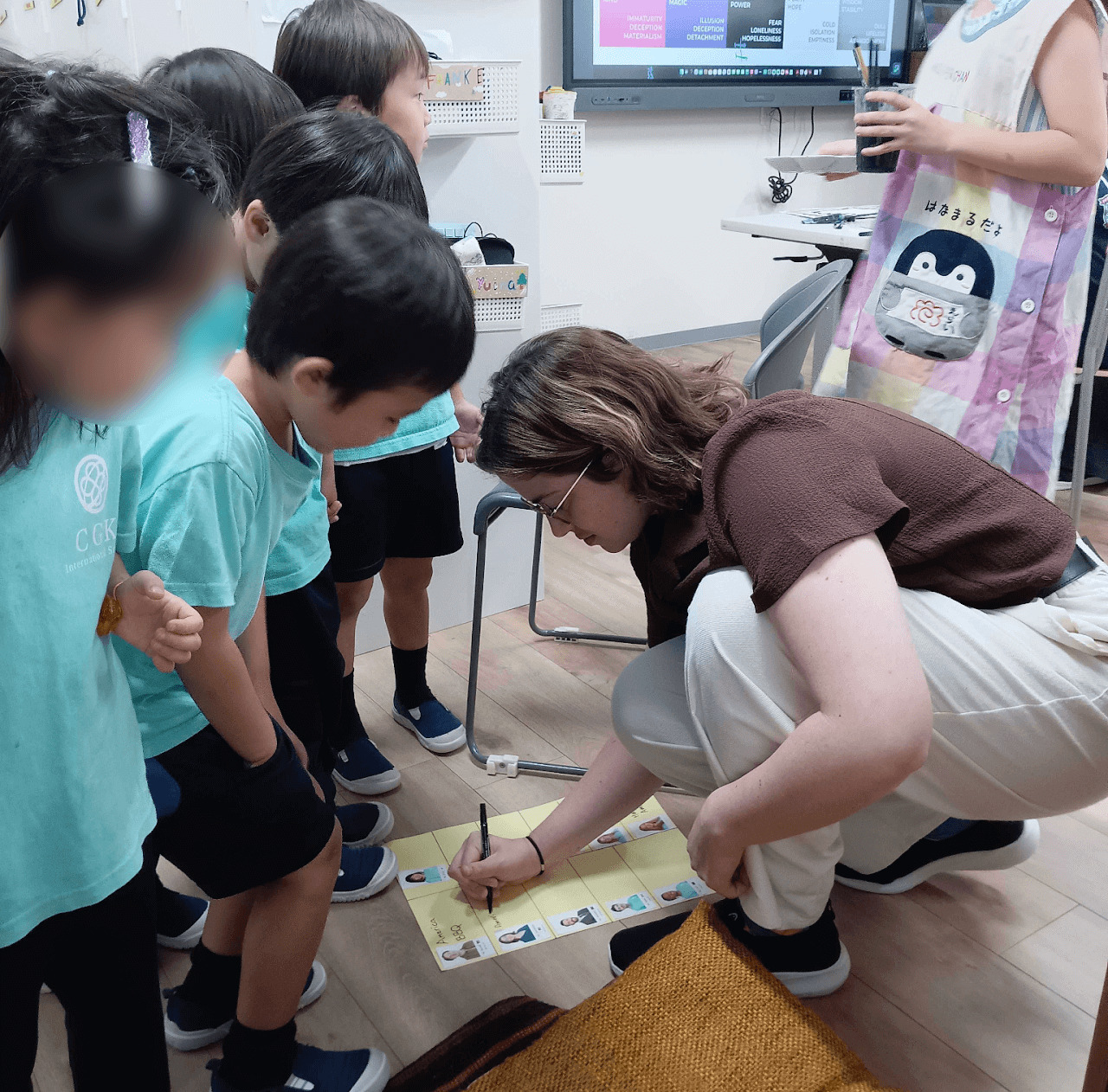
-

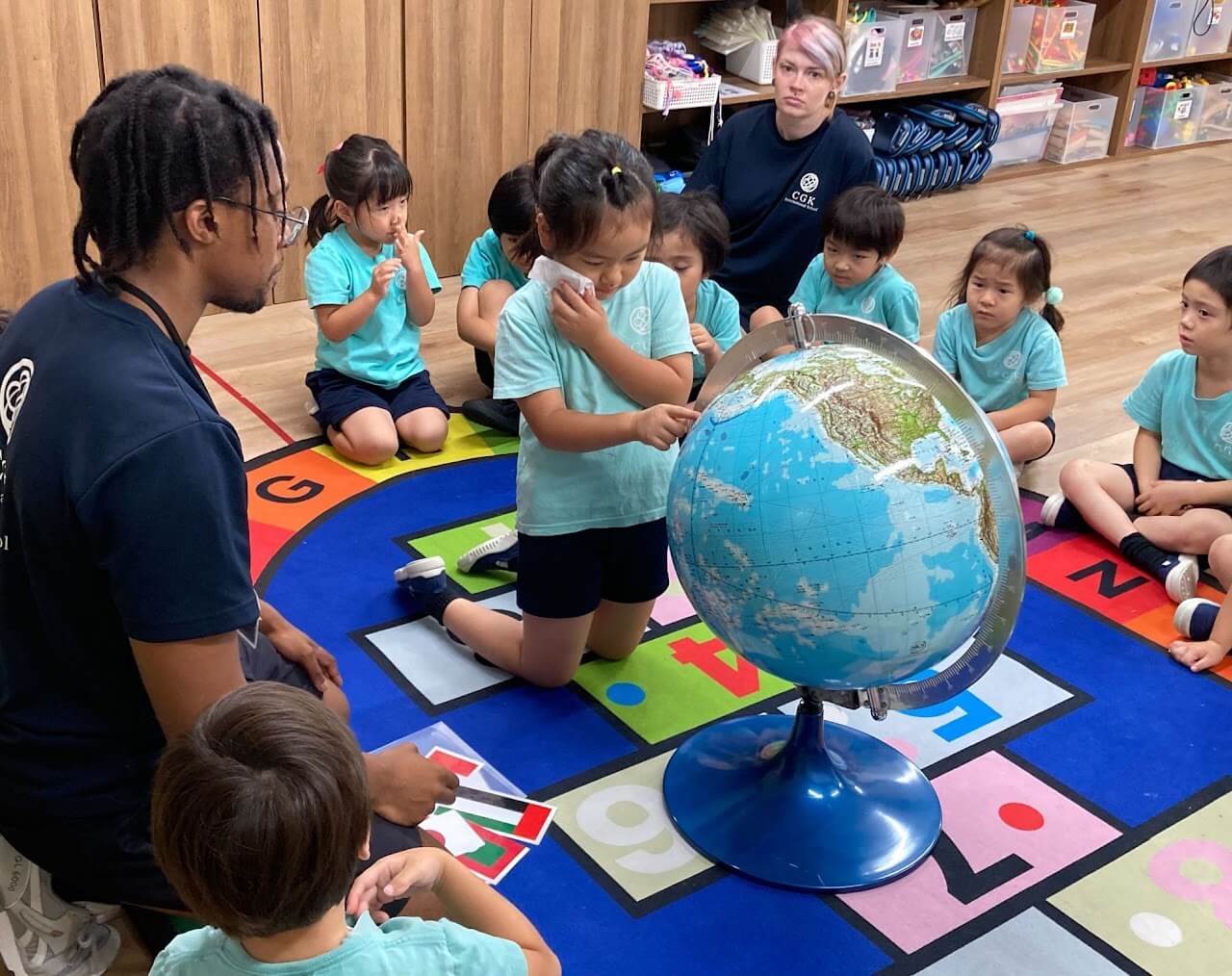
This month the children took part in two big experiments to flex their investigative skills and how well they understand the need to make the right choices for themselves based on the information they have.
The children did a survey of the teachers in the Kannai Campus to ask what country they are from, what their favourite food is, and any other questions that came to them at the time. We also had a luggage packing activity where the children had to pack suitcases based on which area and climate they were assigned to. They did great! We are pleased with the progress they have made and the choices they continue to make.
Let's Express Our Feelings!
This month, to celebrate Tanabata, we decorated bamboo branches with Tanabata ornaments and wishes made from origami.
In our Japanese class, we're creating many opportunities for the children to interact with hiragana. We sing songs, dance, and do coloring activities while looking at hiragana. Whenever we spot hiragana characters, we read them together. Although we frequently expose the children to hiragana, we aren't practicing memorization or writing. When a child becomes interested and says, "I want to read more!" or "I want to write!" we read and write together.
Since we're also learning about mail and delivery this month, we've had many opportunities to write letters. We visited the post office, mailed postcards that the children wrote themselves, and even sent letters overseas at the counter.
For both Tanabata wishes and letters, the children have so many things they want to write. They ask, "How do you write '◯◯?" "I want to try writing ◯◯!" "I want to write my own name!" "I want to be able to write my friend's name too!" They have an abundance of things they wish to express in writing.
When they receive letters from friends, their curiosity grows: "What does it say?" "I know this character!" Various interests begin to emerge.
Even children who aren't yet interested in characters are delighted to write and receive letters. They express themselves by drawing pictures, stamping, or placing stickers. Some incorporate letters into their drawings. There are children who become more enthusiastic than anyone else when playing games like karuta. Some are already adept at reading.
We hope that when their interest sparks, they'll have ample exposure to characters to deepen their learning. We aim to naturally incorporate plenty of characters into daily life so that reading and writing become enjoyable experiences!
Mountain B
(4 year olds)
A Month of Exciting Inquiries into Culture and Traditions


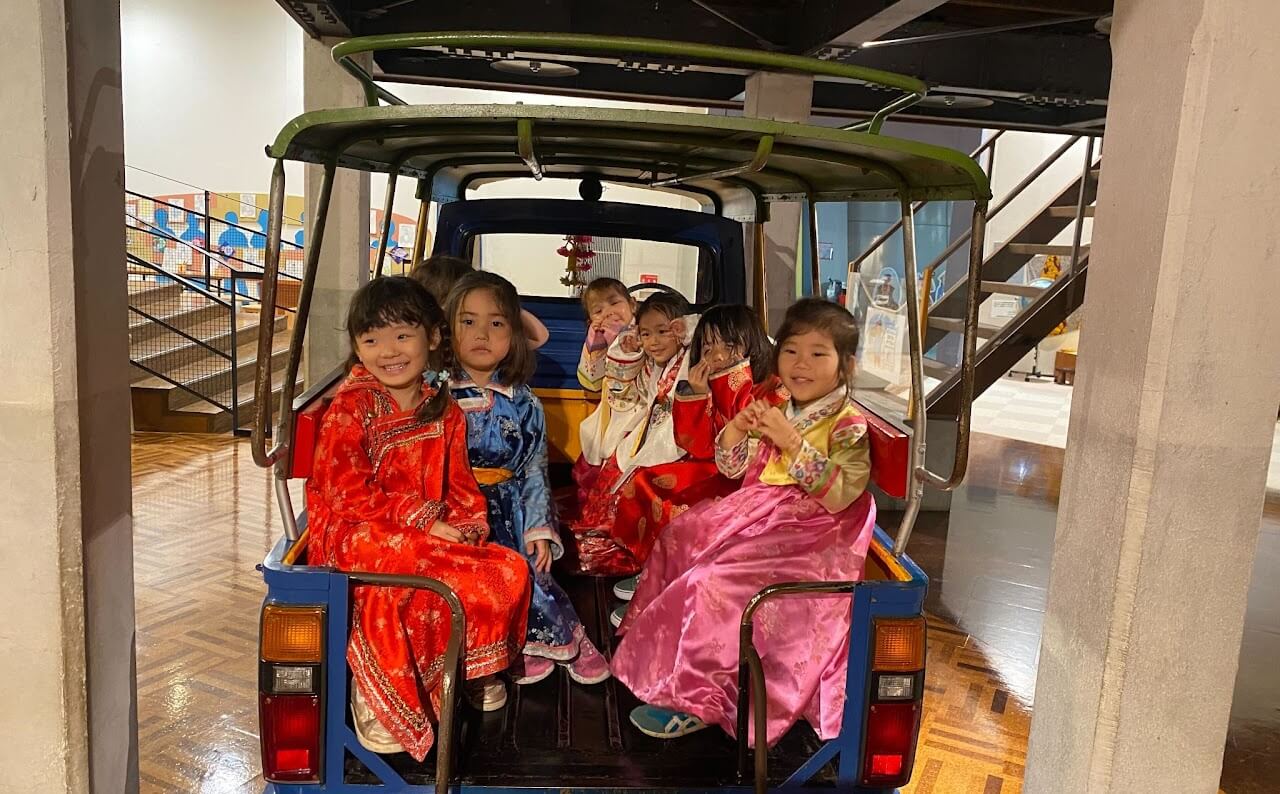


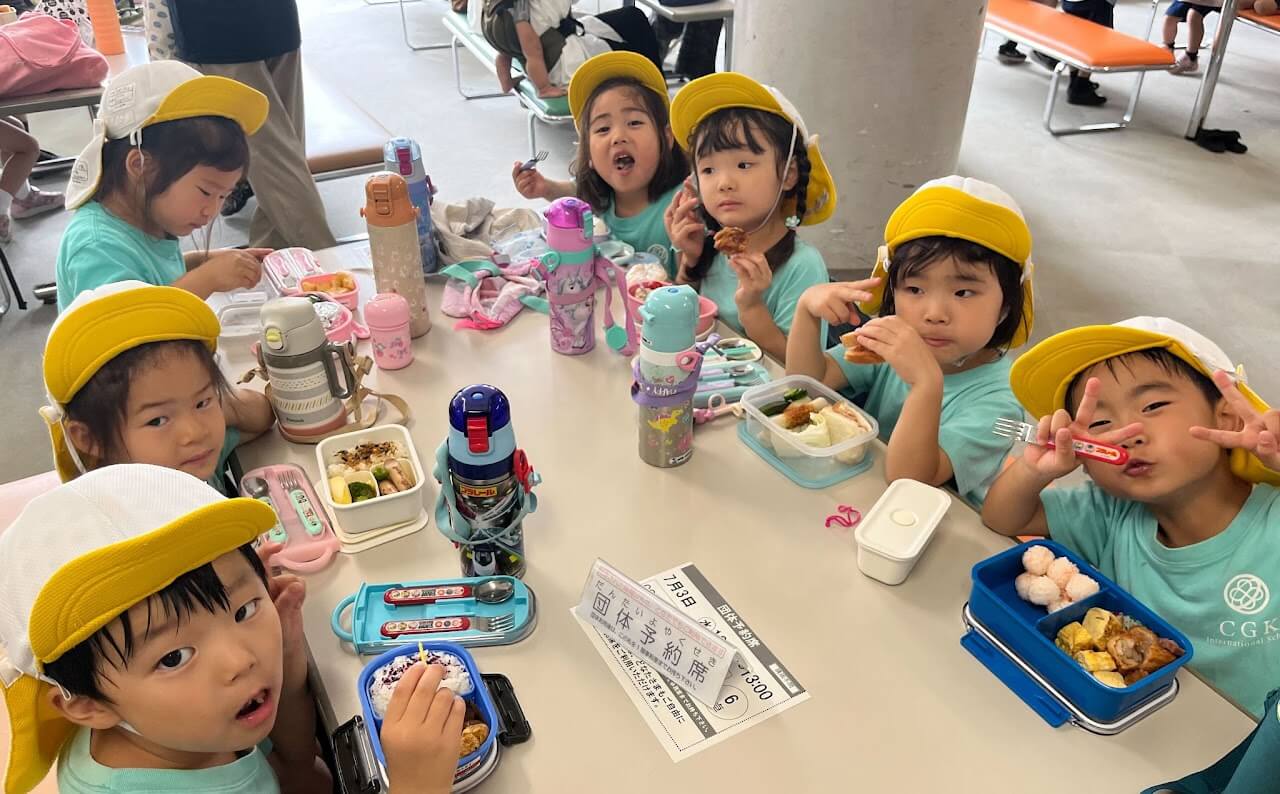


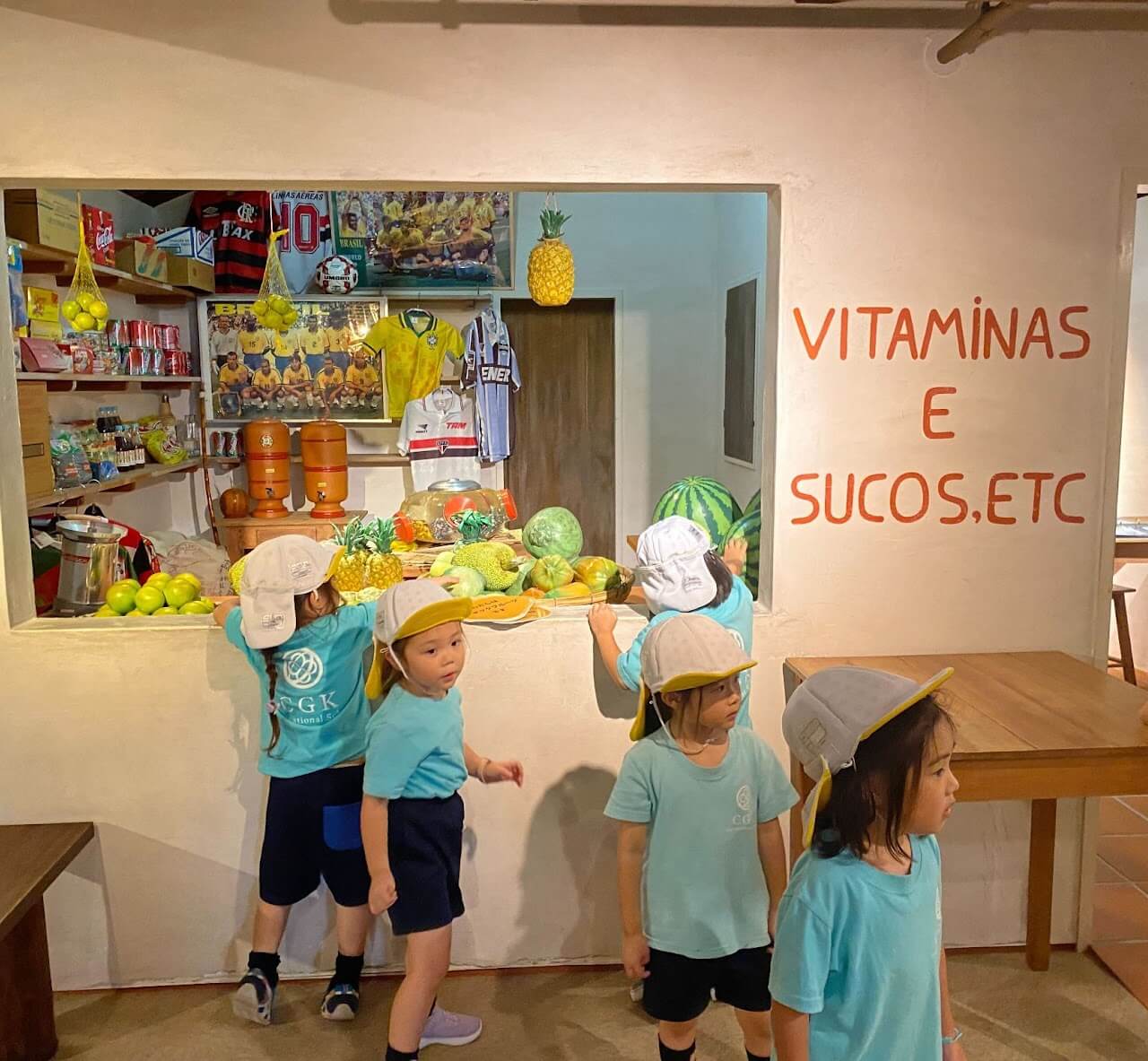
-
Last month, our UOI focused on An Inquiry into Technology. This month, we shifted our focus to An Inquiry into Culture and Traditions. To spark the children's curiosity, we went on an excursion to Earth Plaza as a provocation, encouraging the children to start asking questions and explore new ideas.
At Earth Plaza, the children had a fantastic time trying on costumes from around the world, playing various instruments, experiencing different types of transportation, and exploring different kinds of shops and houses. This hands-on activity allowed them to immerse themselves in diverse cultures and traditions in an engaging and interactive way.
Such experiences not only enrich our curriculum but also provide the children with unique learning opportunities. We were delighted to see how much they enjoyed the excursion, with many of them saying the time was too short and wishing for more!
We also had some time to play in the exciting indoor play area and ate lunch with Mountain A.









Around the World in Eight Lessons!
This month, our focus in Mountain B has been on exploring the rich tapestry of cultures worldwide, thinking about why people make choices based on their own cultures as well as the cultures of different countries.
As an international school, we are fortunate to have families and friends from all corners of the globe. Throughout the past few weeks, our students have embarked on exciting journeys to discover the vibrant cultures of Mexico, Australia, Ireland, New Zealand, South Africa, England, Hawaii and, of course, Japan!
It has been a joy to see our young explorers eagerly engage with each country, asking insightful questions and discovering all the different aspects of each culture. Although our encounters have been brief, we hope these introductions have planted seeds of curiosity in our Mountain friends which will encourage them to embark on their own adventures in the future.
Thank you Mountain B friends for being such excellent travel companions!
Exploring the world to expand children's curiosity
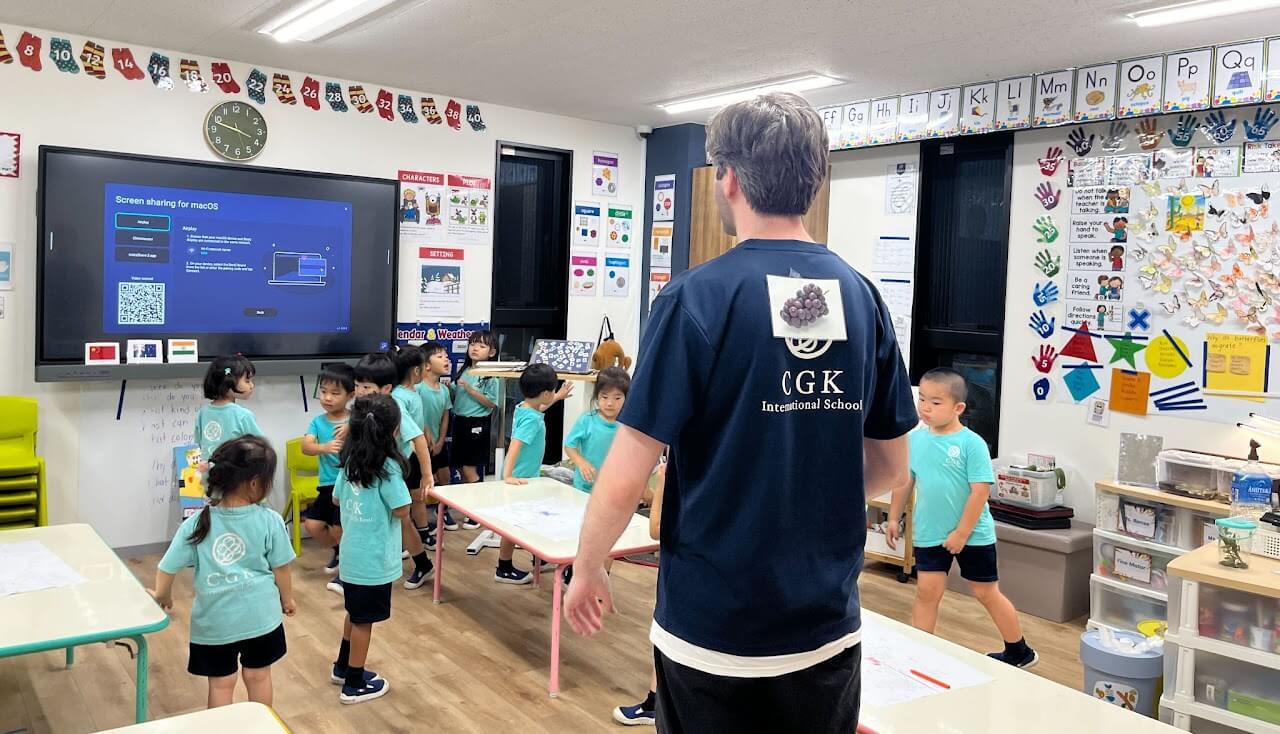


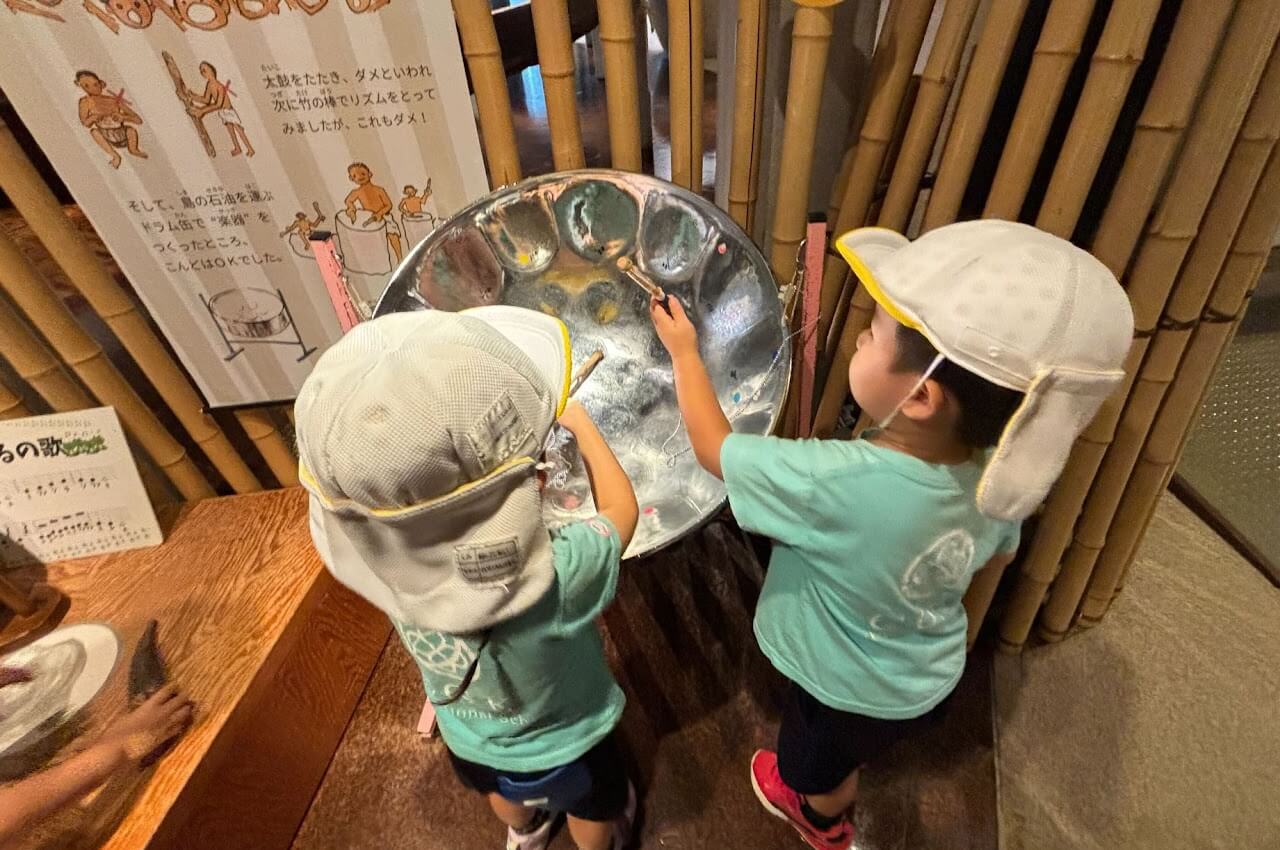


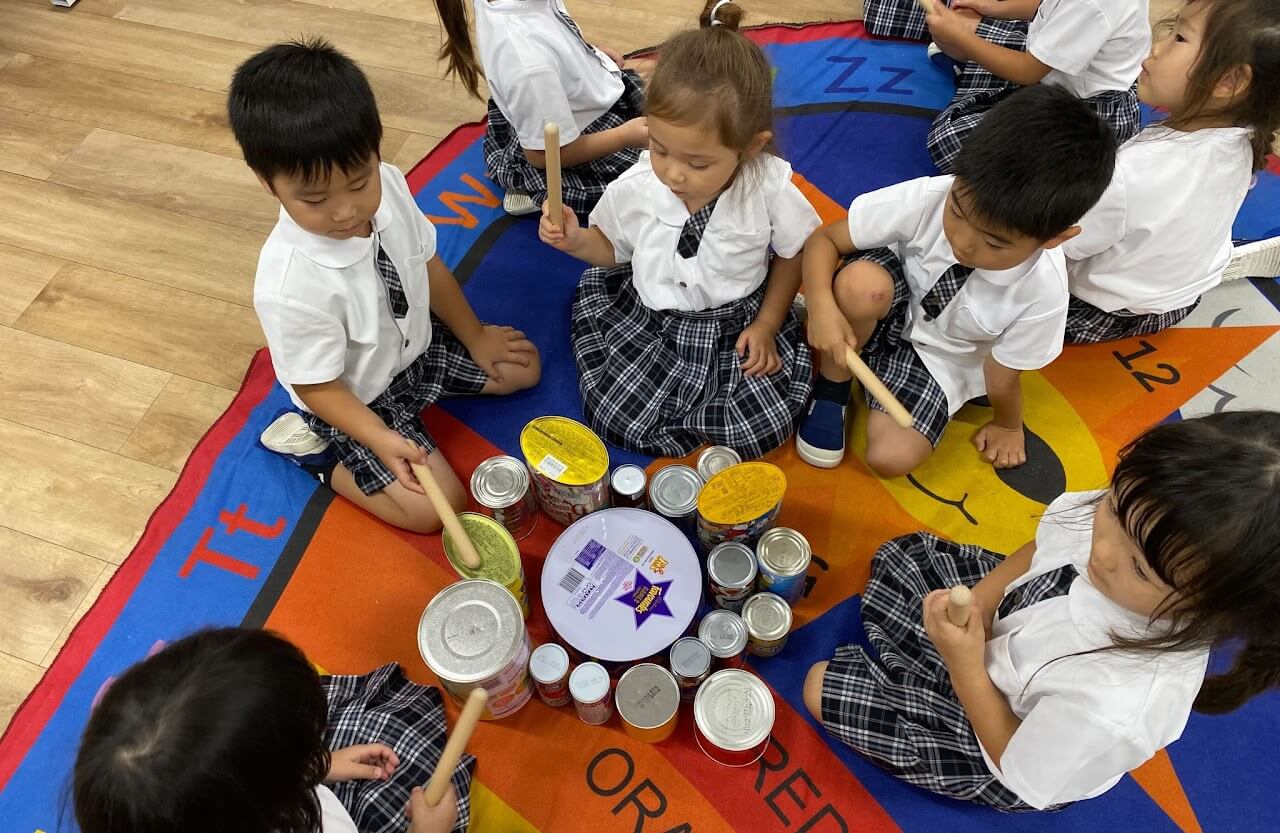


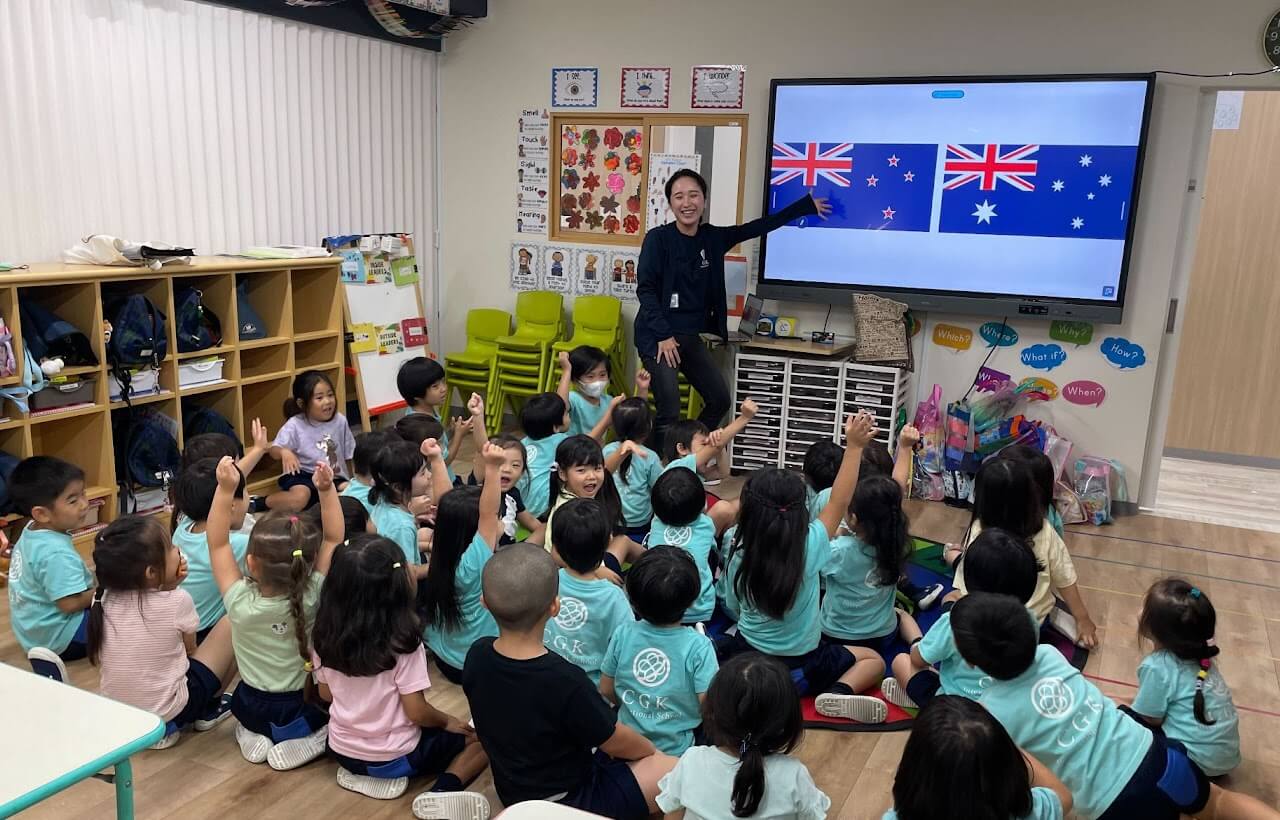

This month, the children learned about the world through hands-on experiences at Earth Plaza and by exploring the diverse roots of their teachers. Viewing the world based on what interests the children often becomes an intriguing experience for adults as well.
For example, recently many children have been interested in fruits, so we conducted a treasure hunt by hiding fruit cards in the classroom. On the back of each card were the flag and name of the country where the fruit is produced, and the children searched on a world map to find out from which country the fruit comes.
Also, we had the opportunity to experience an instrument called the steelpan at Earth Plaza, so we decided to challenge ourselves by making instruments in class. Families brought steel cans from home, and we collected many cans to create steel (can) pans. With steelpans, when you swirl the bottom with a stick, the pitch changes when you strike it. The children are currently learning about pitch in music, so they curiously tried it multiple times, saying, "Wow! Why does the pitch change?" Finally, we held a concert where everyone performed their favorite songs, joyfully playing music in rhythm.
When children take an interest in various things and explore them, it also involves adults, leading everyone on a journey of learning.











Jungle
(3 year olds)
With Great Weather, Comes Great Responsibility
With the weather heating up, our chances to play outside are limited. But this is the perfect opportunity to focus on the key concept of "responsibility" for our Who We Are UOI. So far, we have learnt about many different ways in which we are different from each of the members in our family, our friends, and even from other living things like sea animals! We have also looked at how we have grown and how we continue to grow, by eating many different types of food. However, with the temperature continuing to rise, we are making decisions about how we can take responsibility for our well-being in order to continue growing up. These decisions range from drinking more water as we sweat, keeping cool by playing with water outside, spending less time out in the hot sun, or even staying inside altogether.
But whatever the case may be, we continue having fun, we stay healthy, and we keep growing up!
Senses & Sensibility:
Uncovering Who We Are with Our Five Super Senses!
-

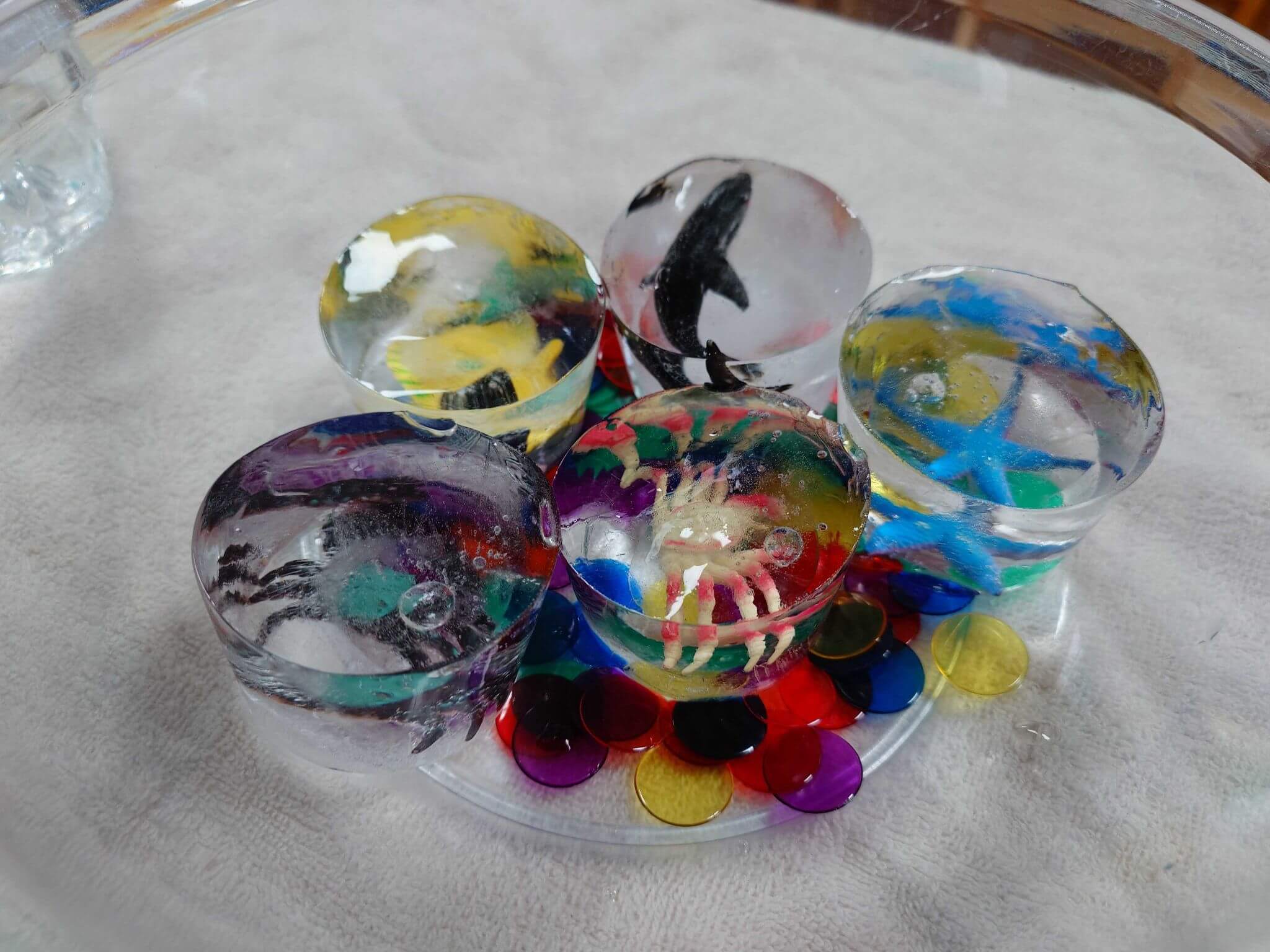
UOI Station play (senses): Touch & Sight
-

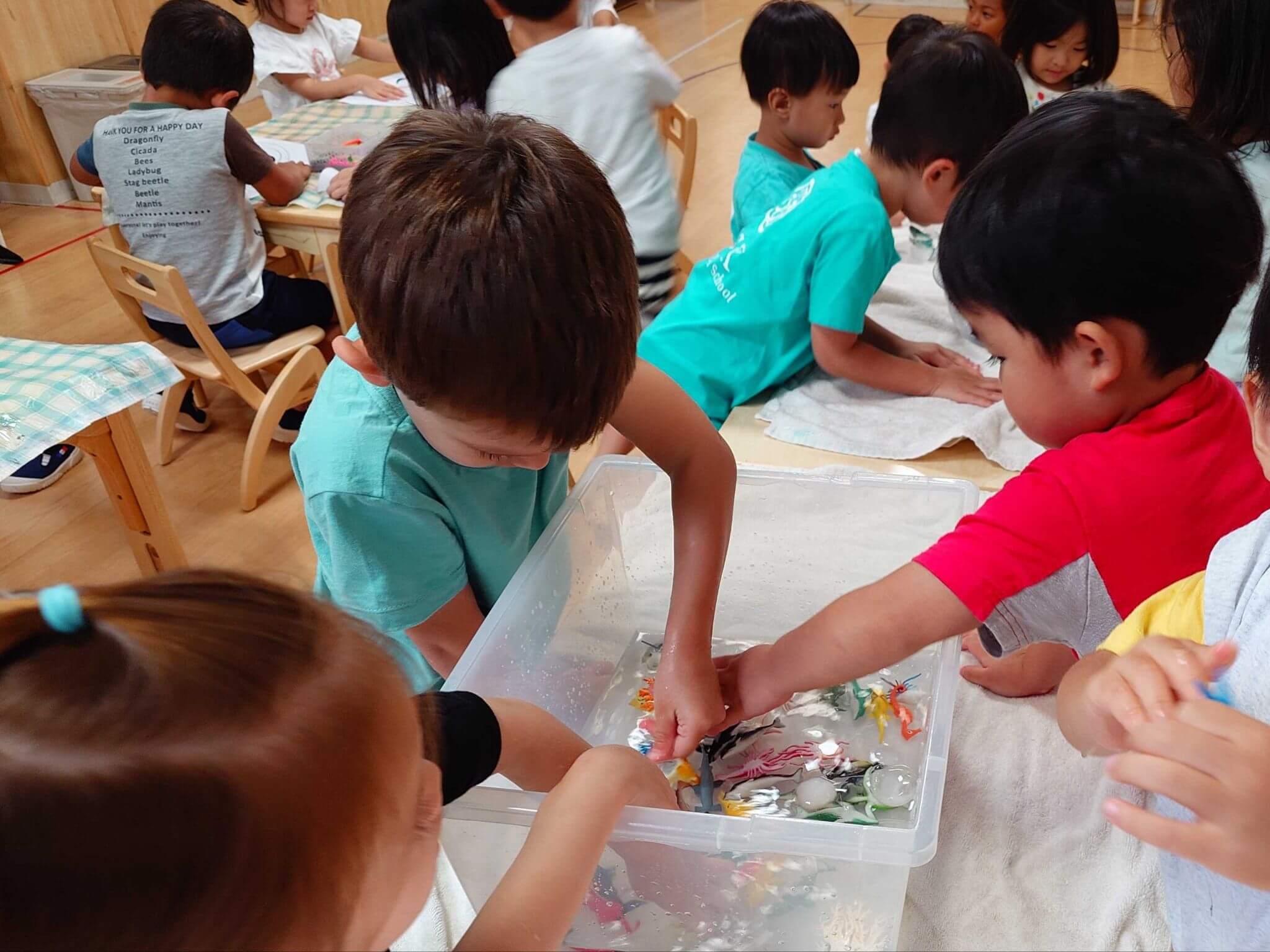
UOI station play (senses): Touch & Sight
-

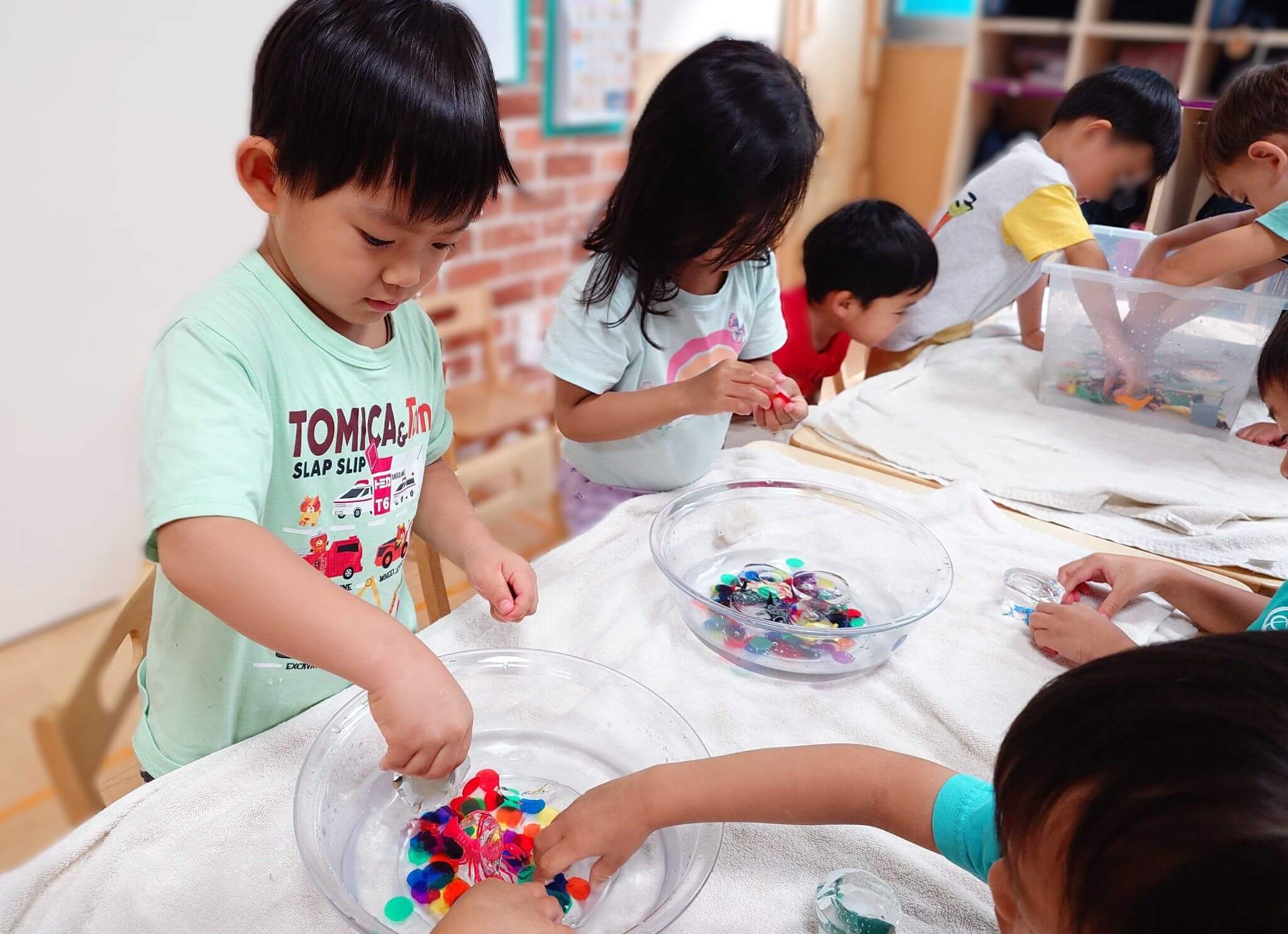
UOI station play (senses): Touch & Sight
-

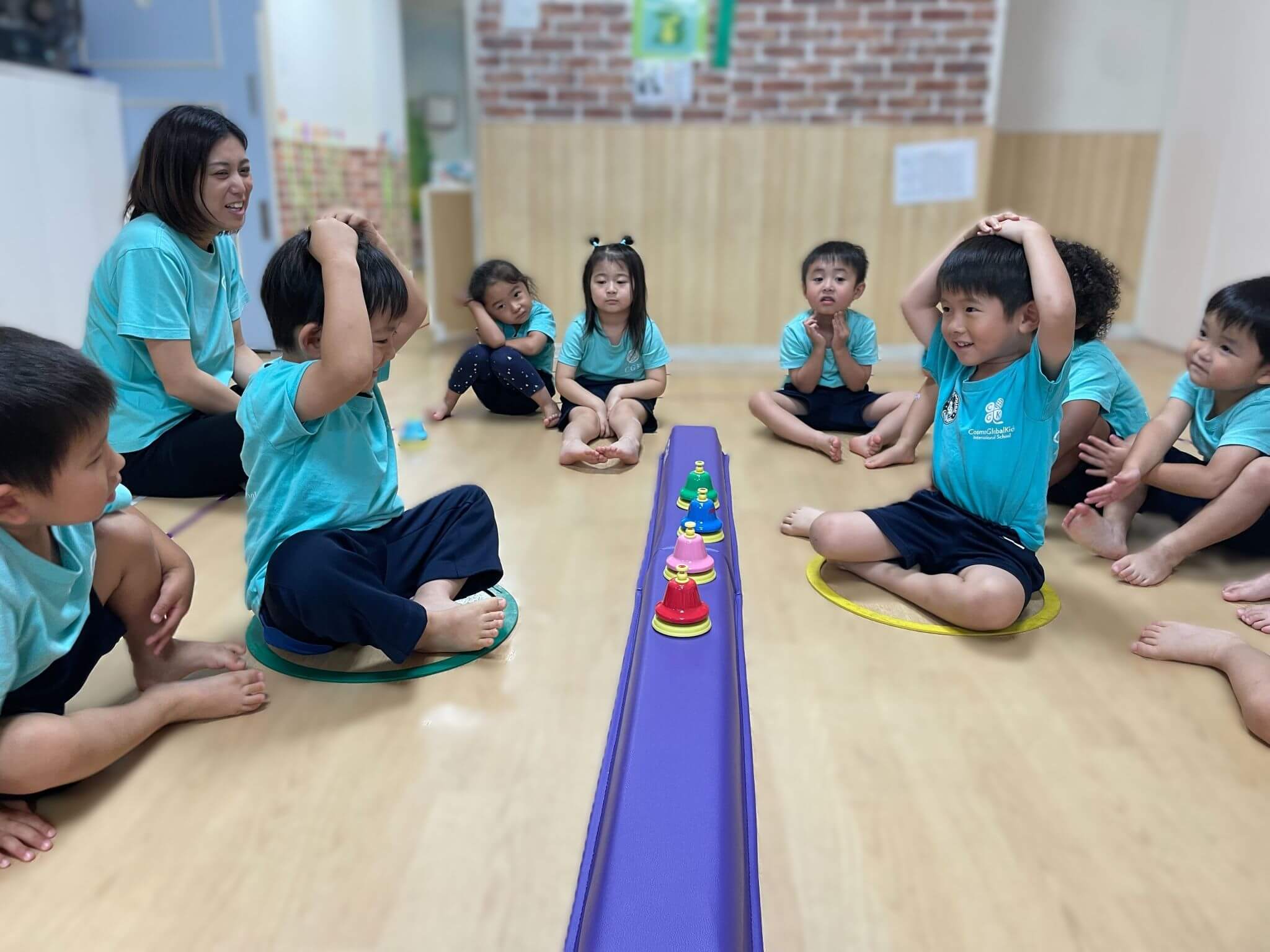
UOI activity (senses): Hearing & Sight
-

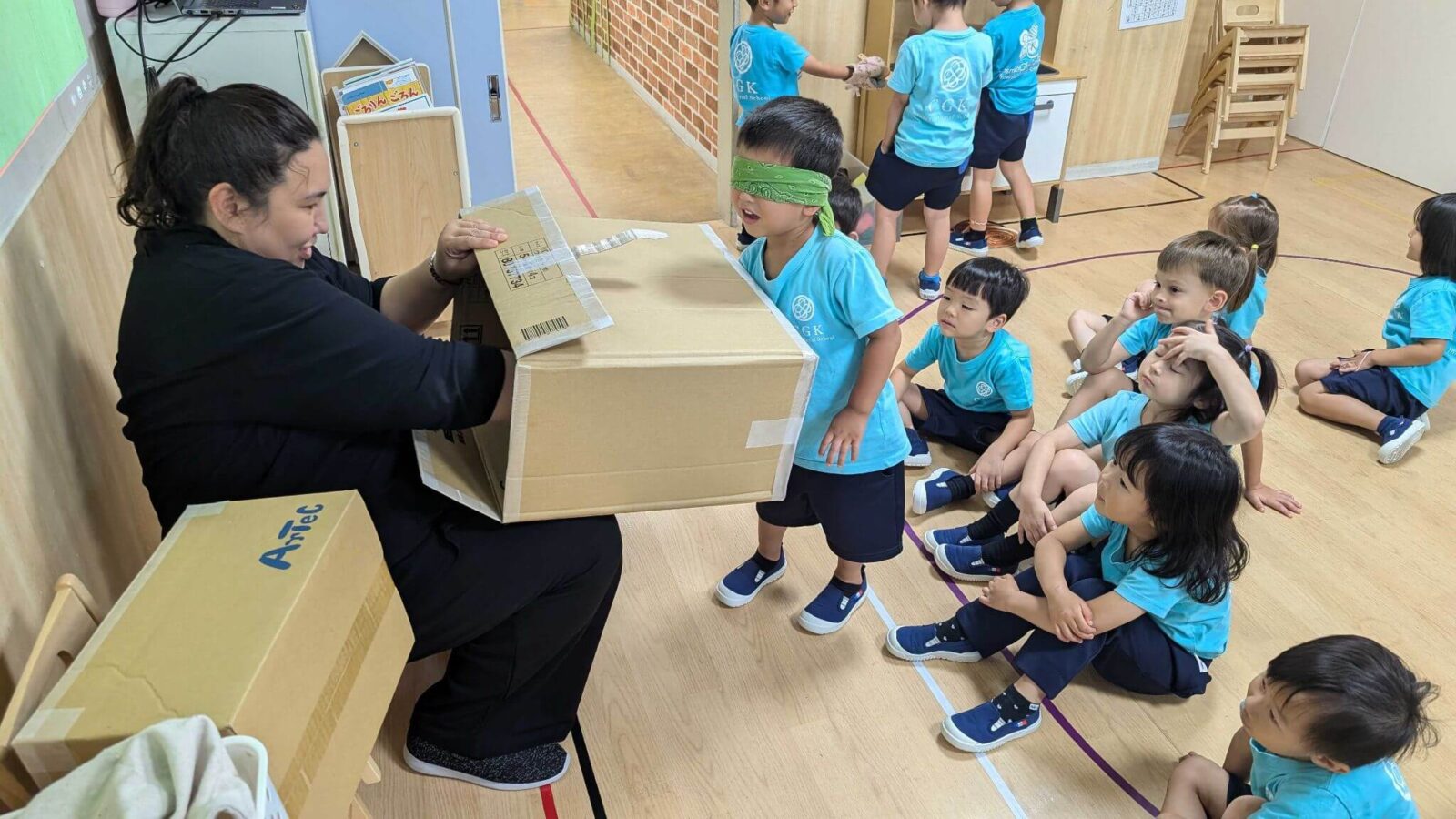
UOI activity (senses): Touch
-

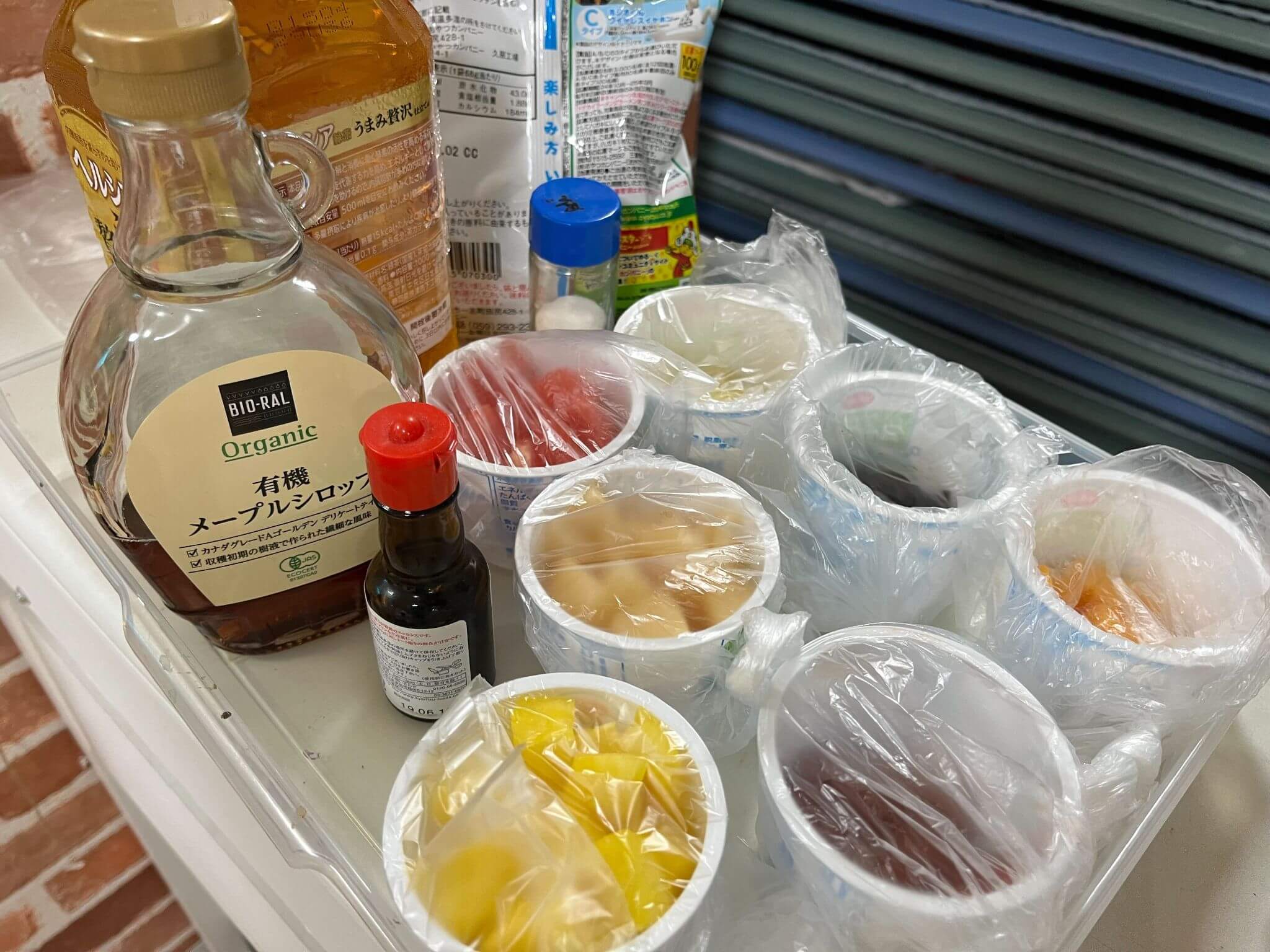
Let the tasting begin!!!
-

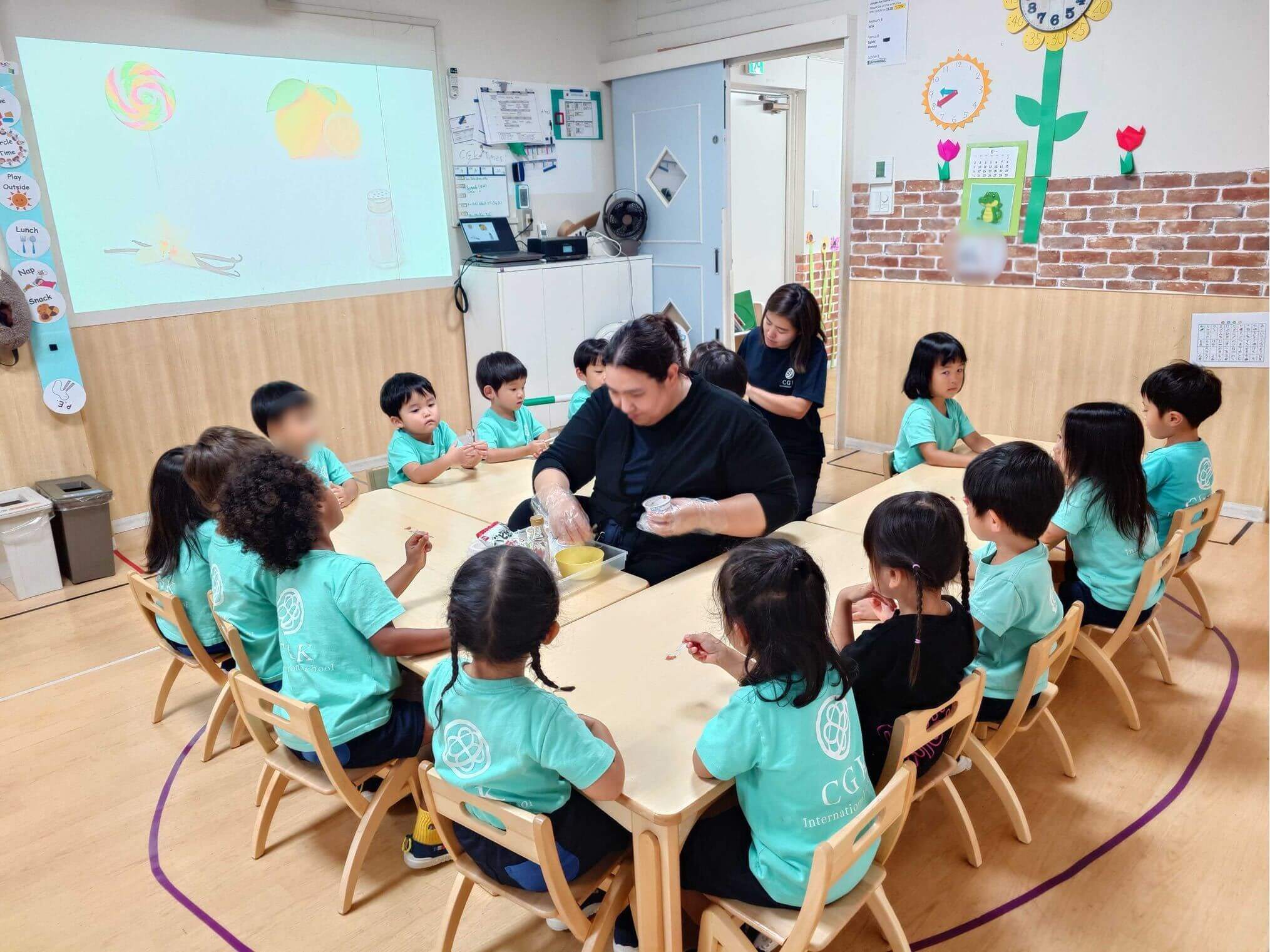
UOI food tasting activity (senses): Taste and Smell
This month as part of the Who We Are UOI, Jungle friends embarked on an exciting sensory journey focusing on self-awareness and our connection to the world. We explored our bodies, how we grow, and our five senses. Hands-on learning experiences are vital for young learners, especially in understanding themselves and the world around them.
To deepen our understanding, we organised several sensory activities such as a blindfolded 'mystery sensory box', a game of 'guess the sound', and a 'food-tasting' activity that turned into a delicious educational adventure!
We look forward to more exciting adventures in our UOI sessions and are excited to see our students continue to grow and learn through engaging real-world experiences.
-

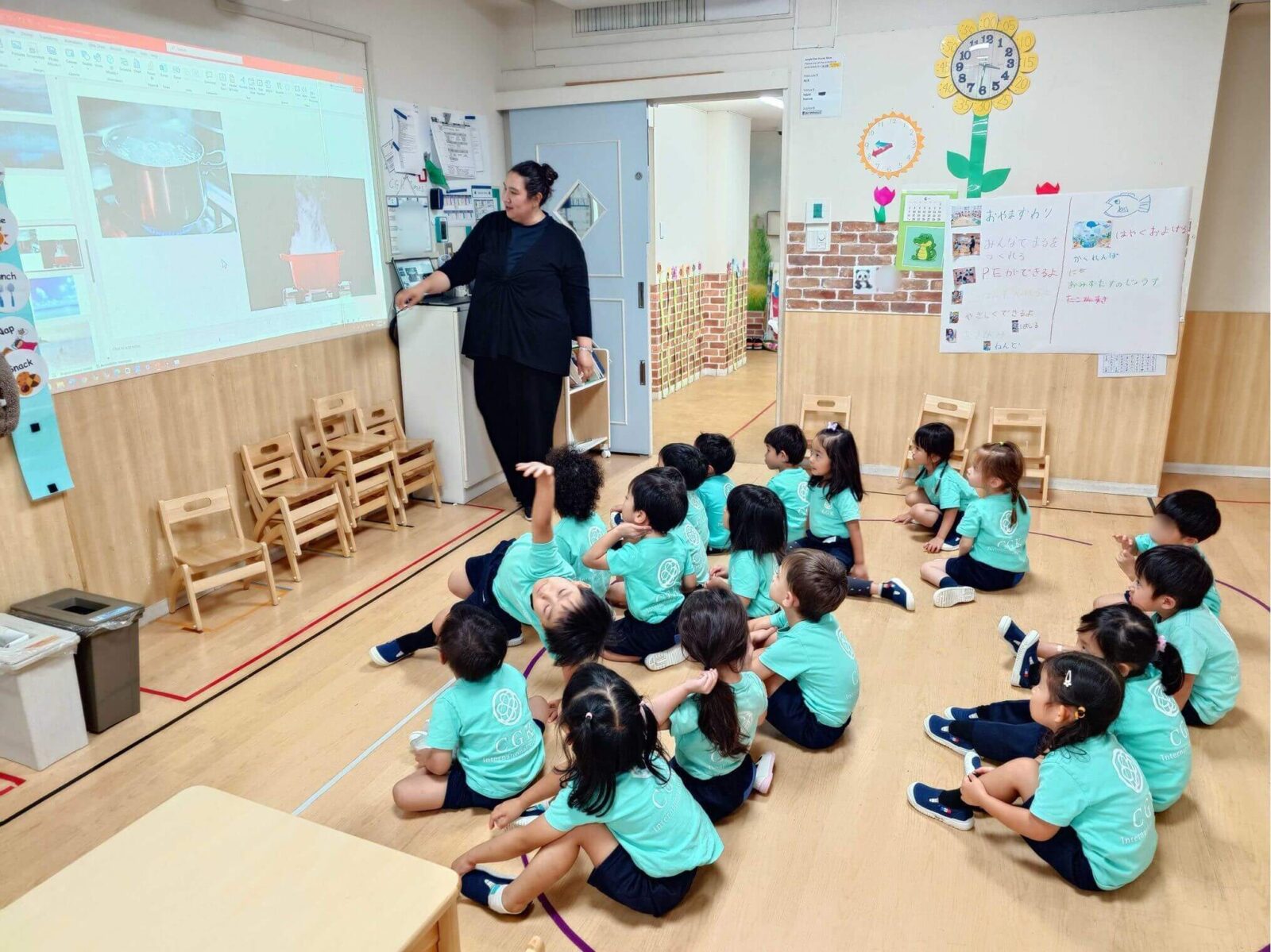
Learning about the water cycle
-

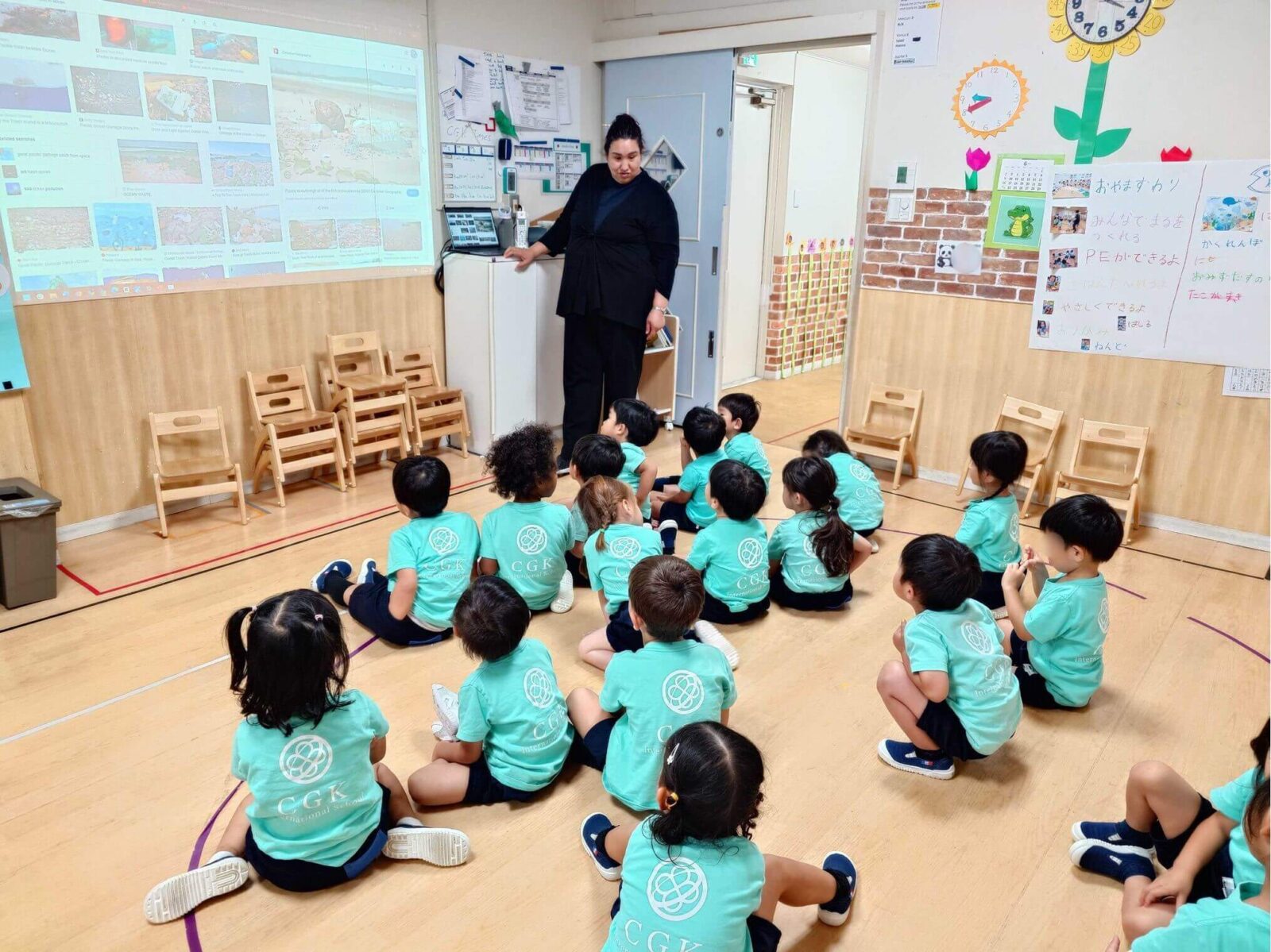
Learning and discussing sea pollution
-

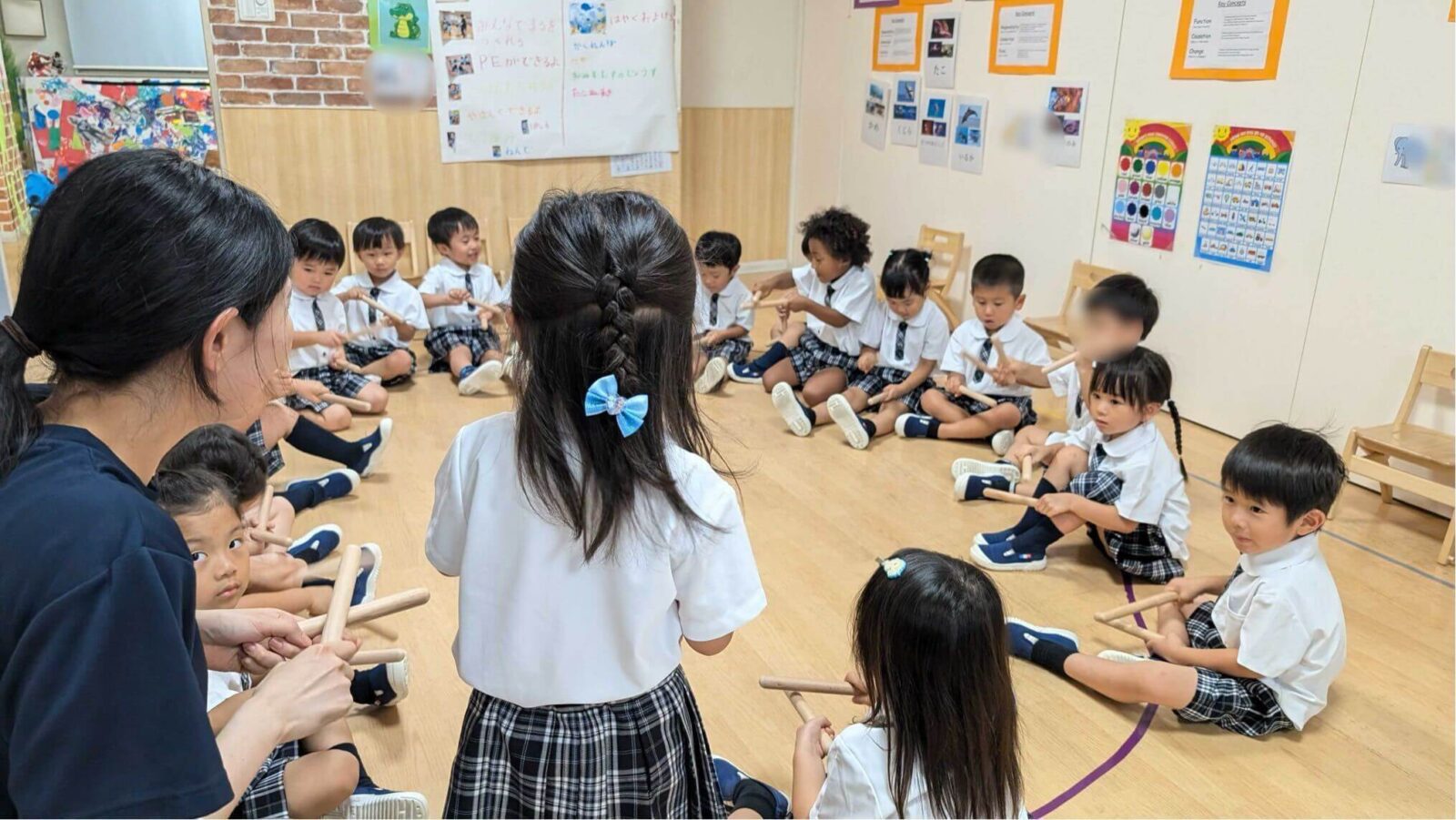
Learning and discussing sea pollution
-

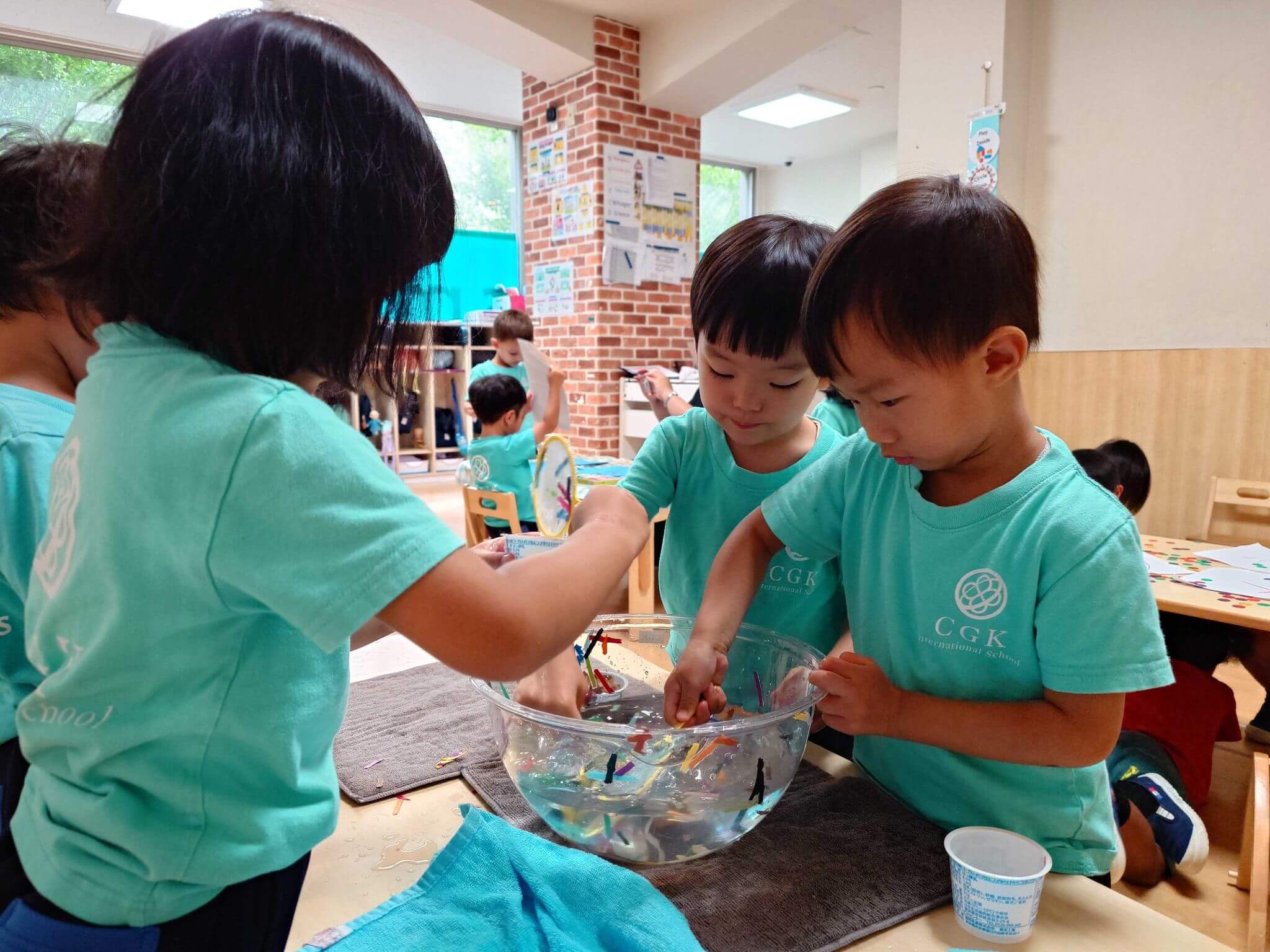
UOI station play: cleaning the ocean
-

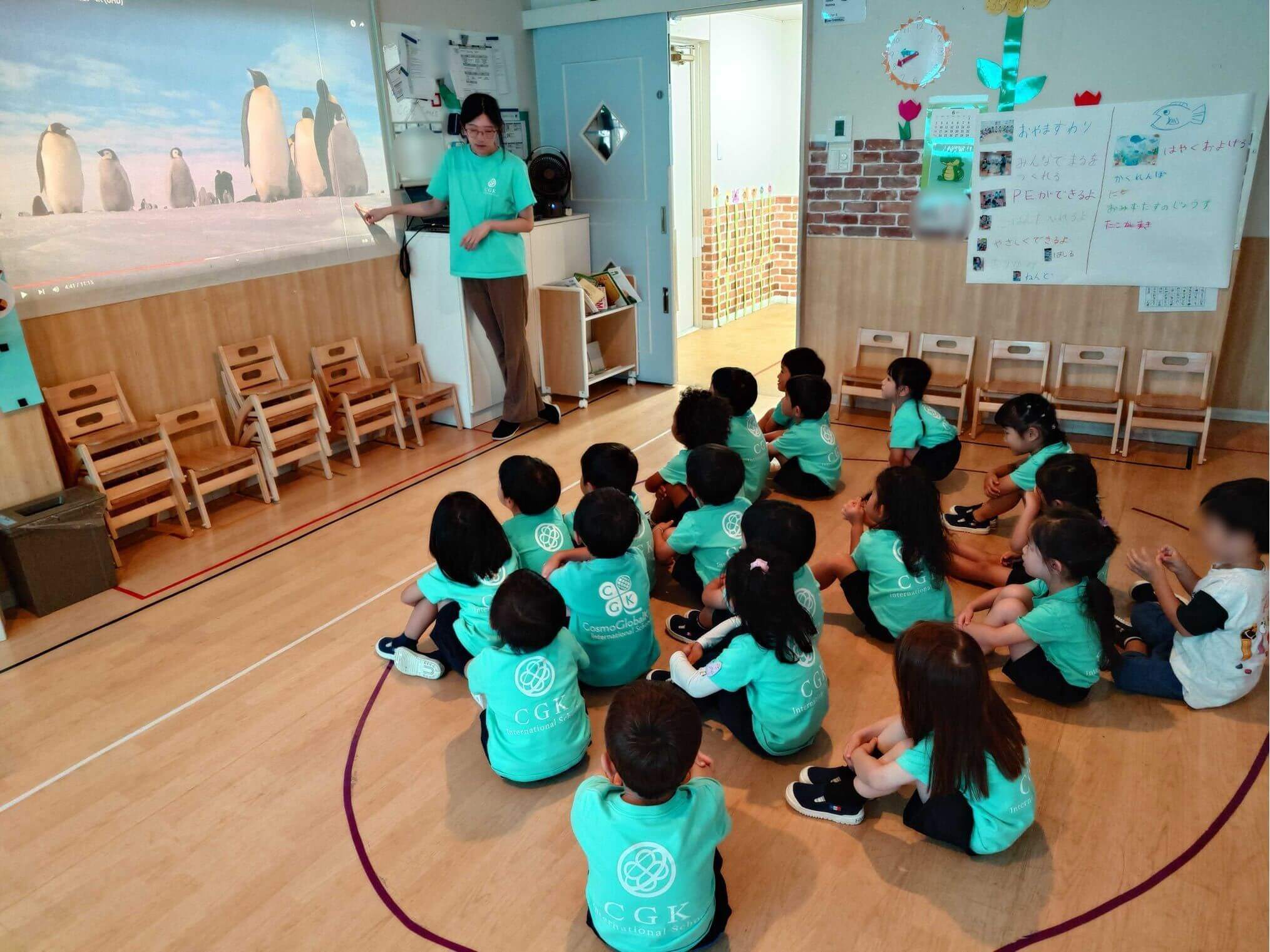
Learning about different types of creatures
-

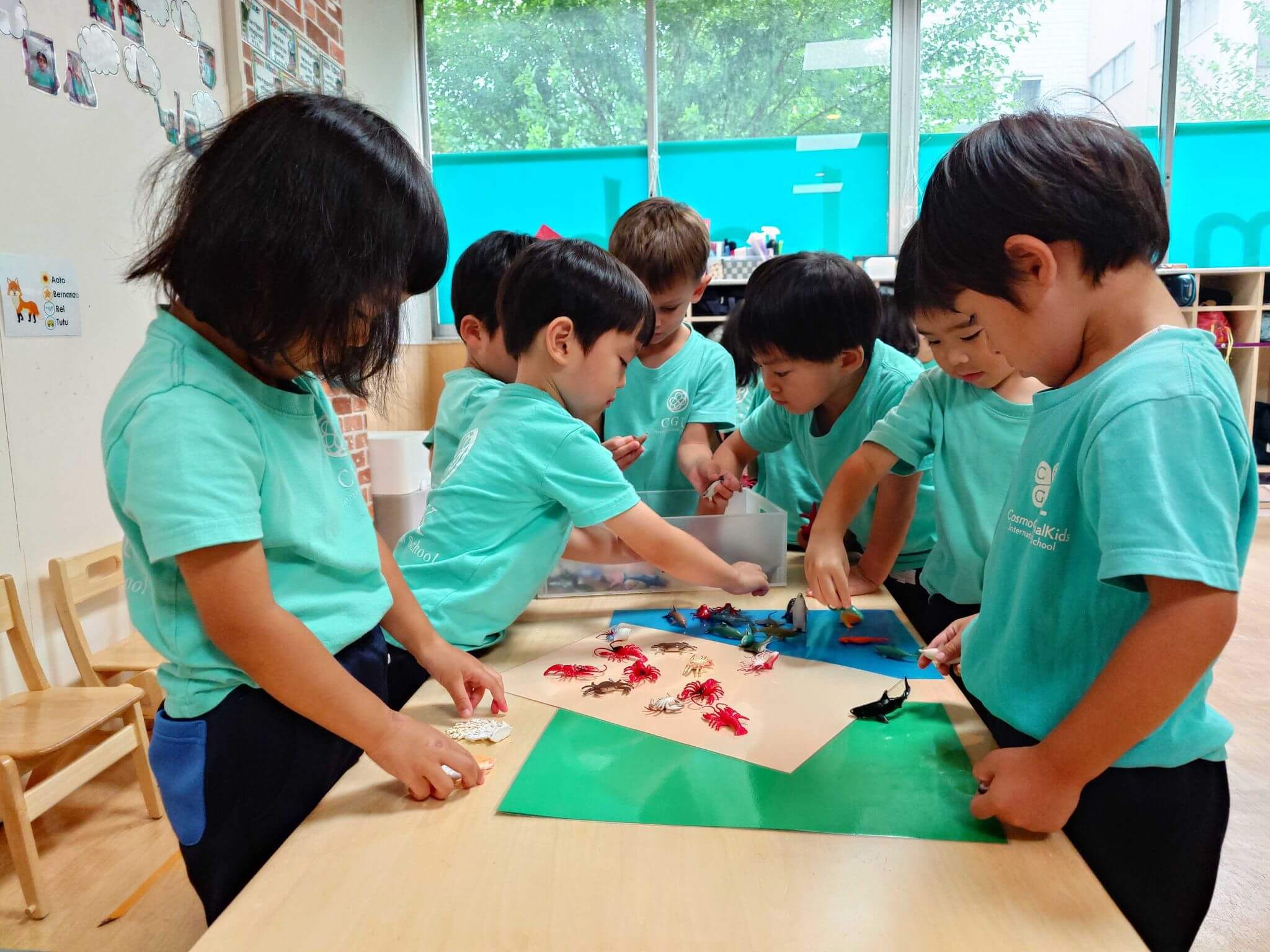
UOI station play: Sea creatures
-

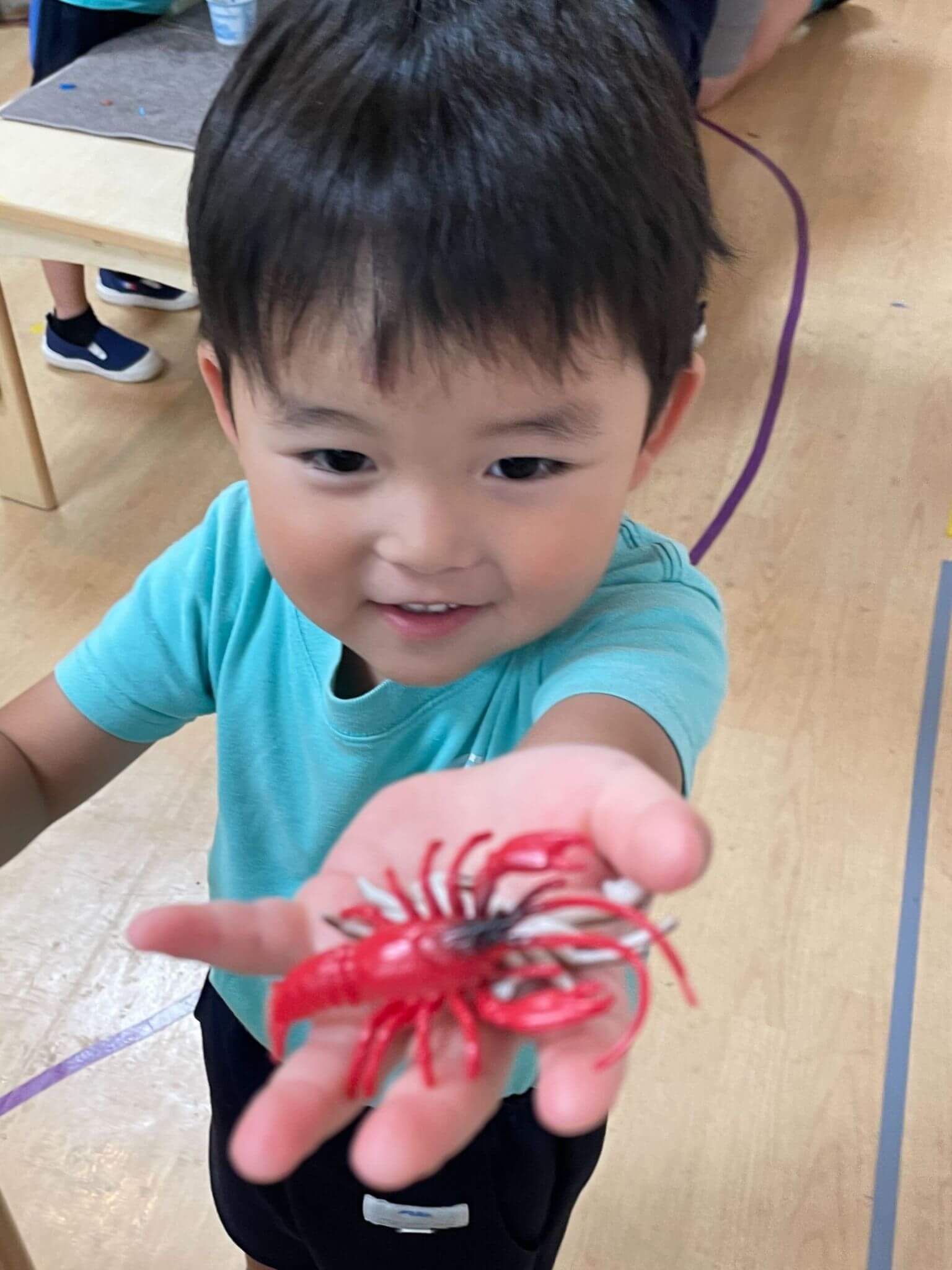
UOI station play: Sea creatures
-

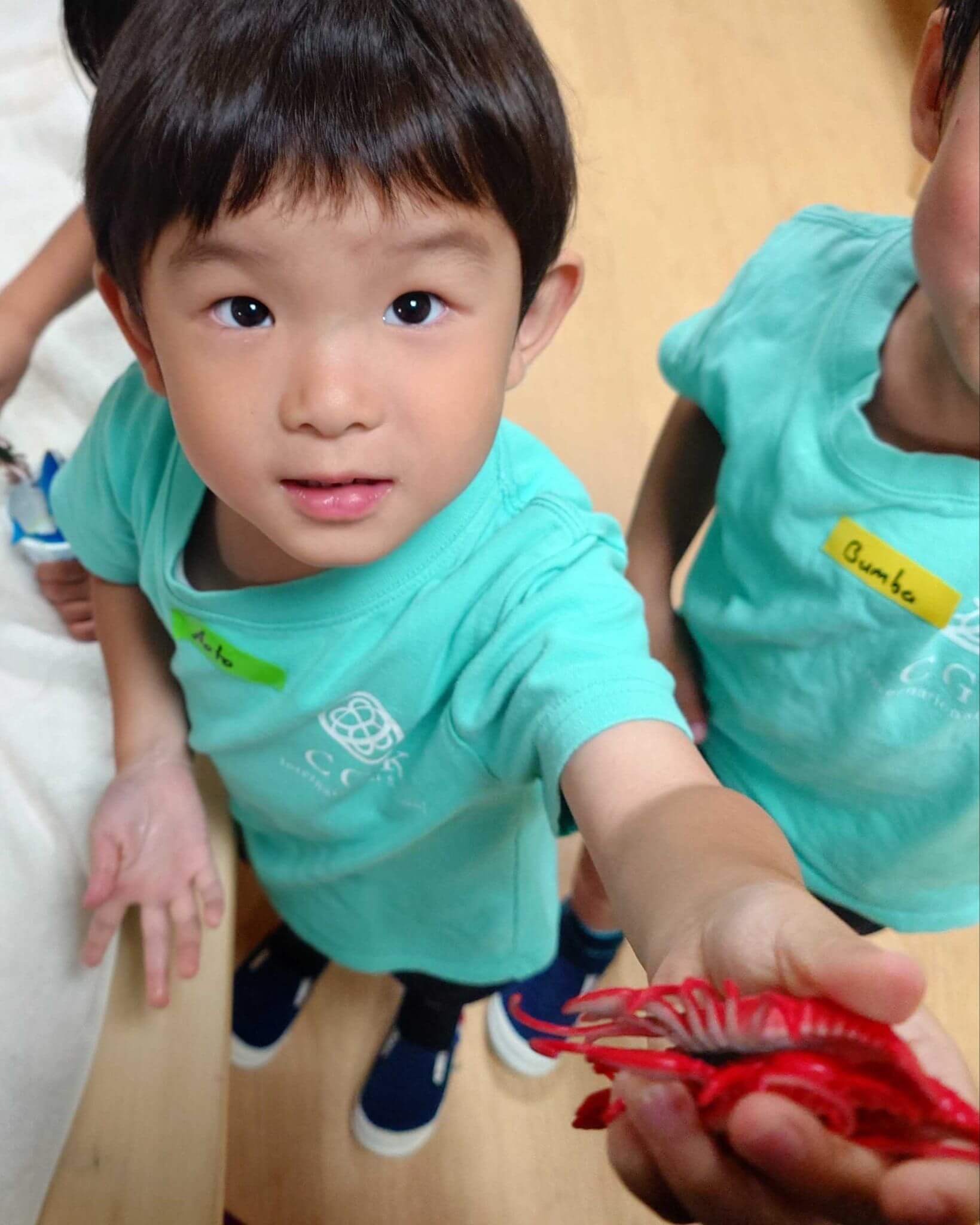
UOI station play: Sea creatures
-

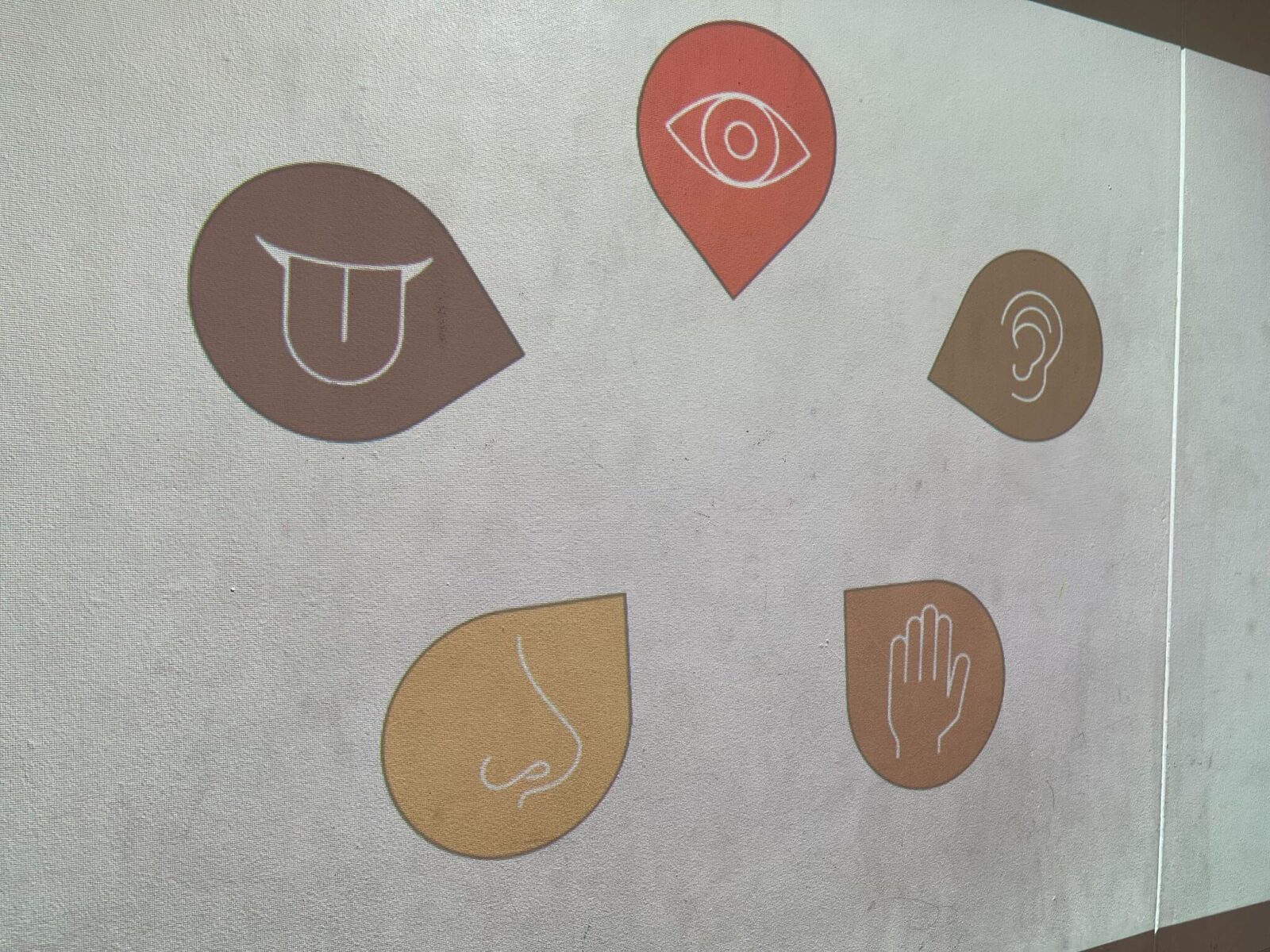
Sensory activity (touch): mystery box
-

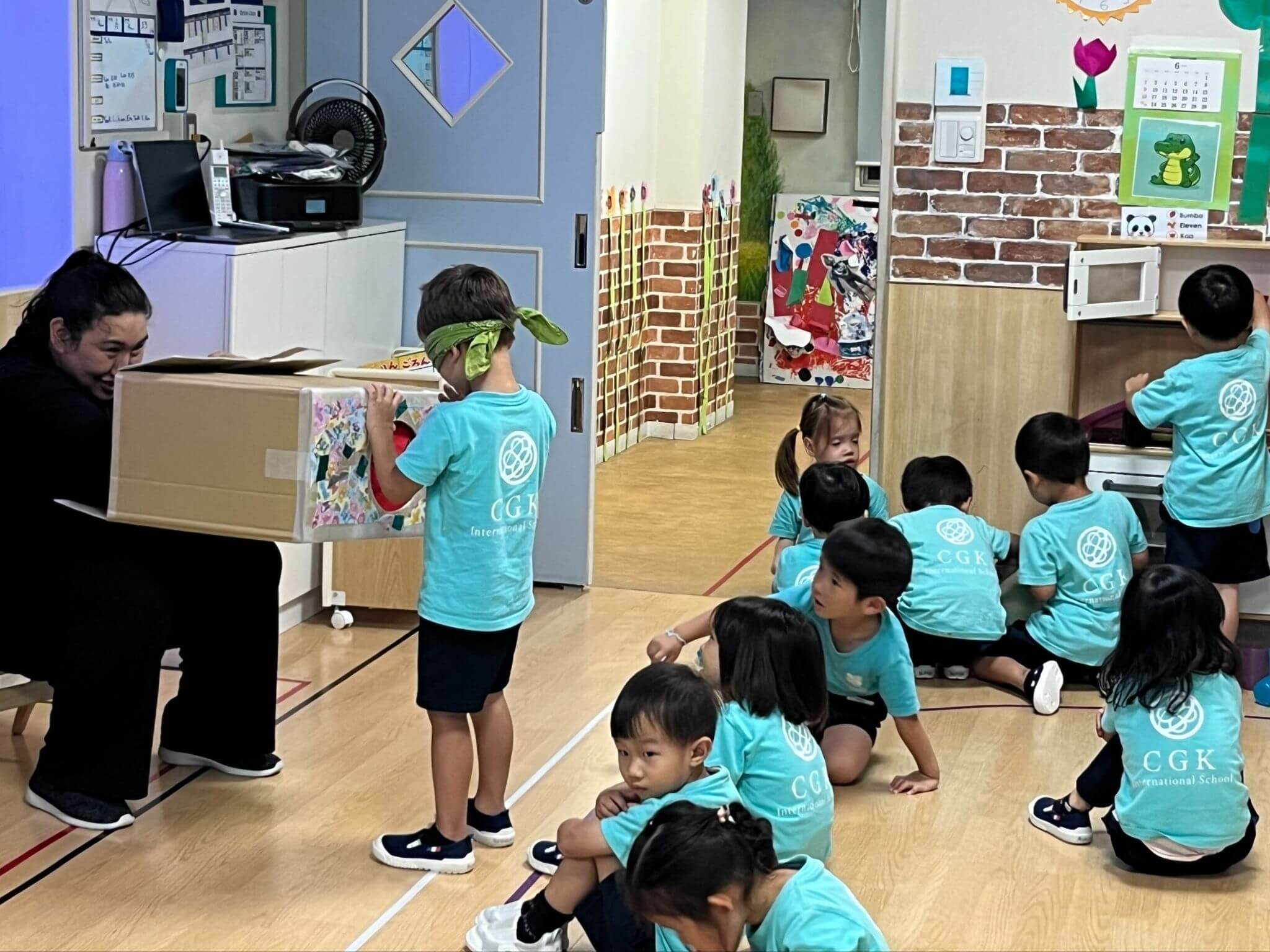
Sensory activity (touch): mystery box
-

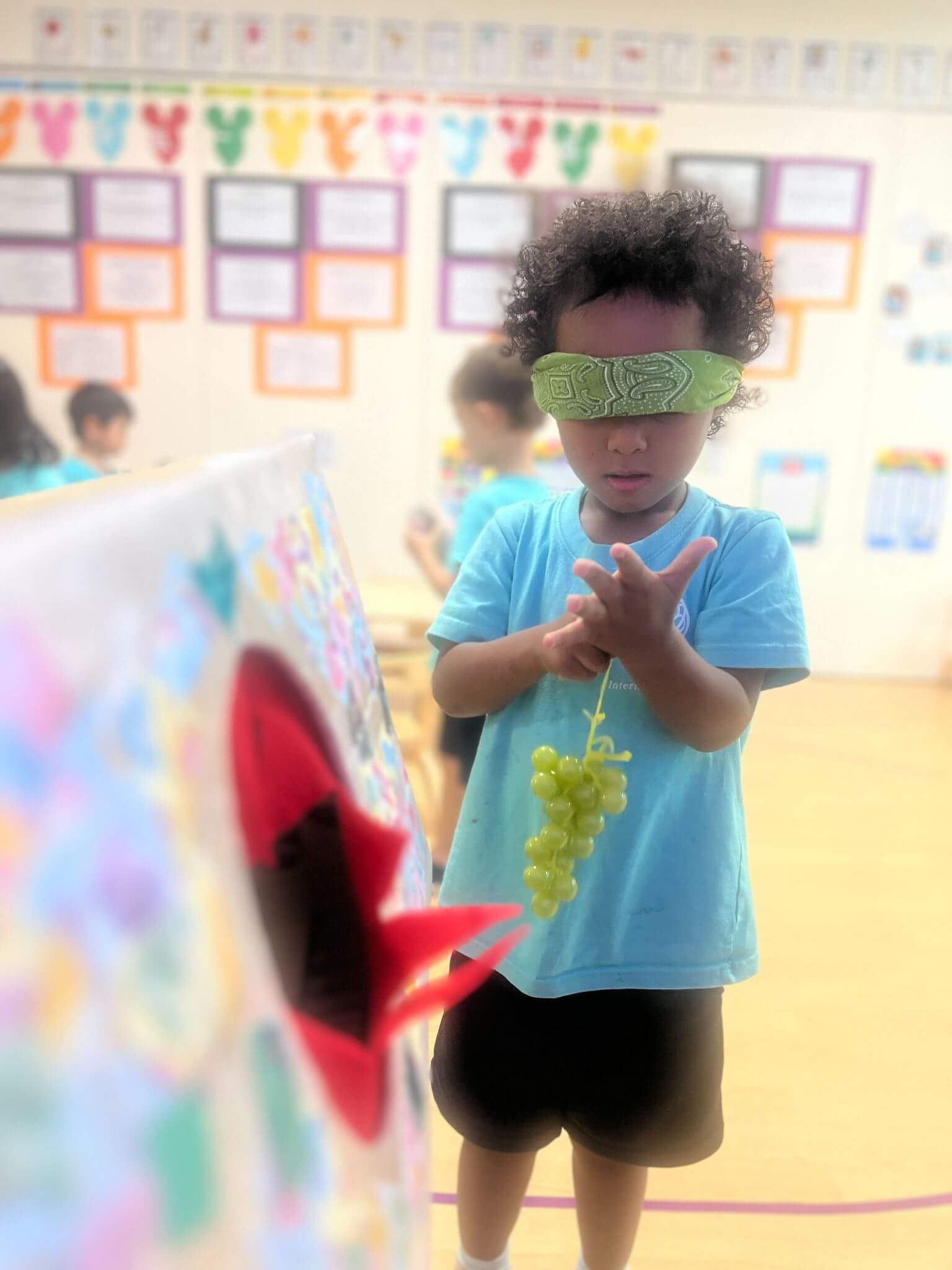
Sensory activity (touch): mystery box
-

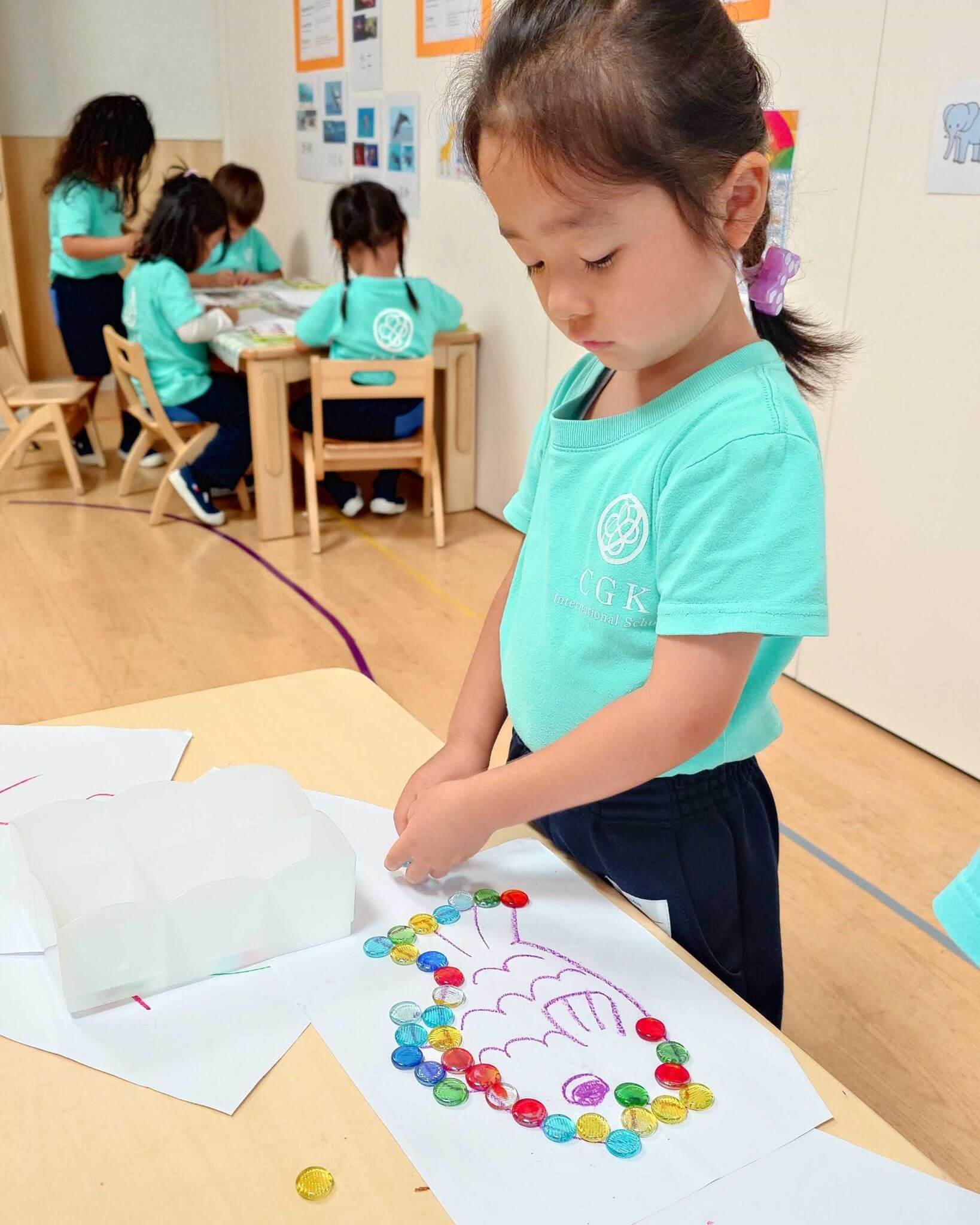
Sensory activity (sight): colours and shapes
-

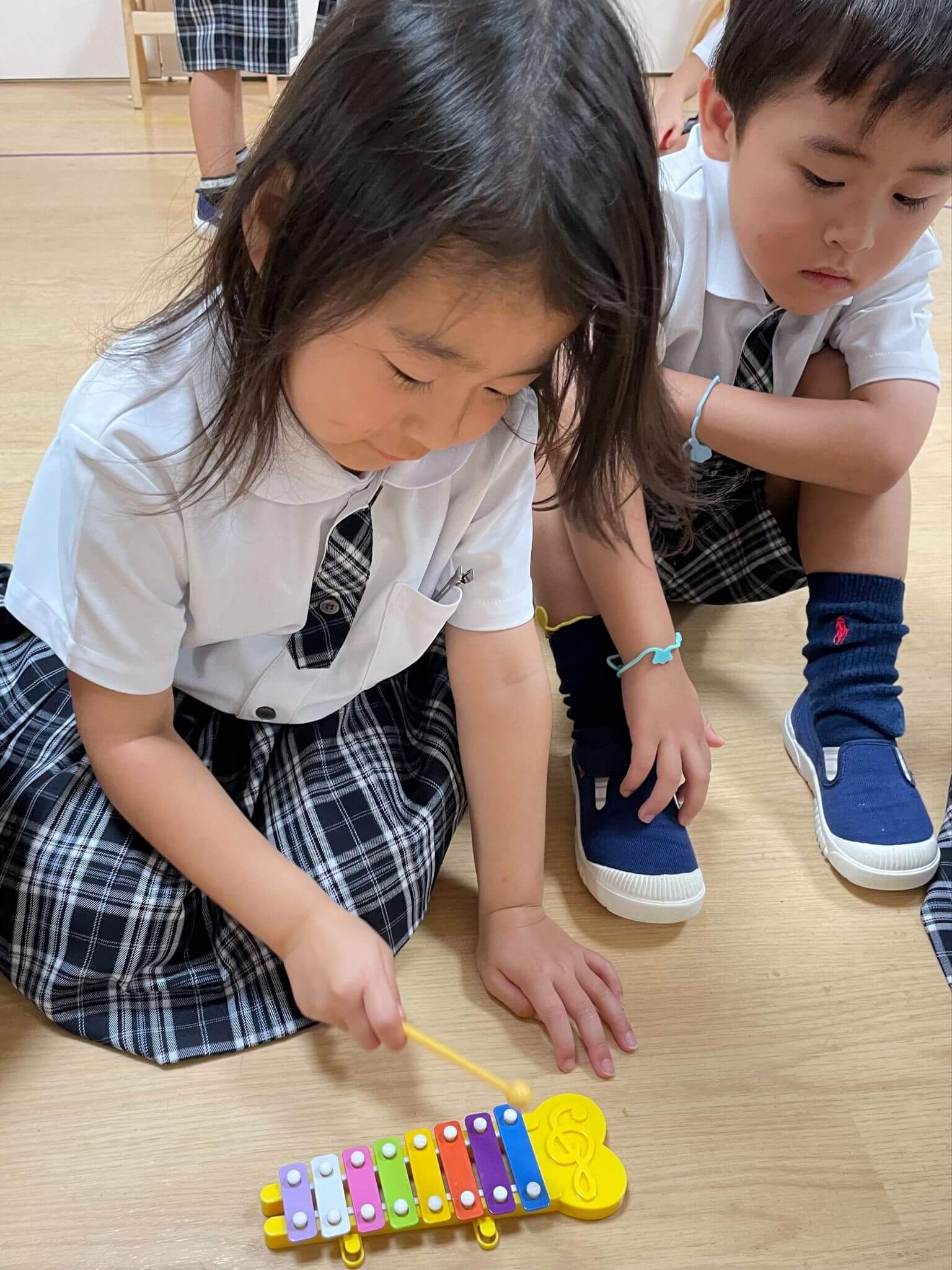
Sensory activity (hearing): Instruments and sounds
-


Sensory activity (hearing): Instruments and sounds
-

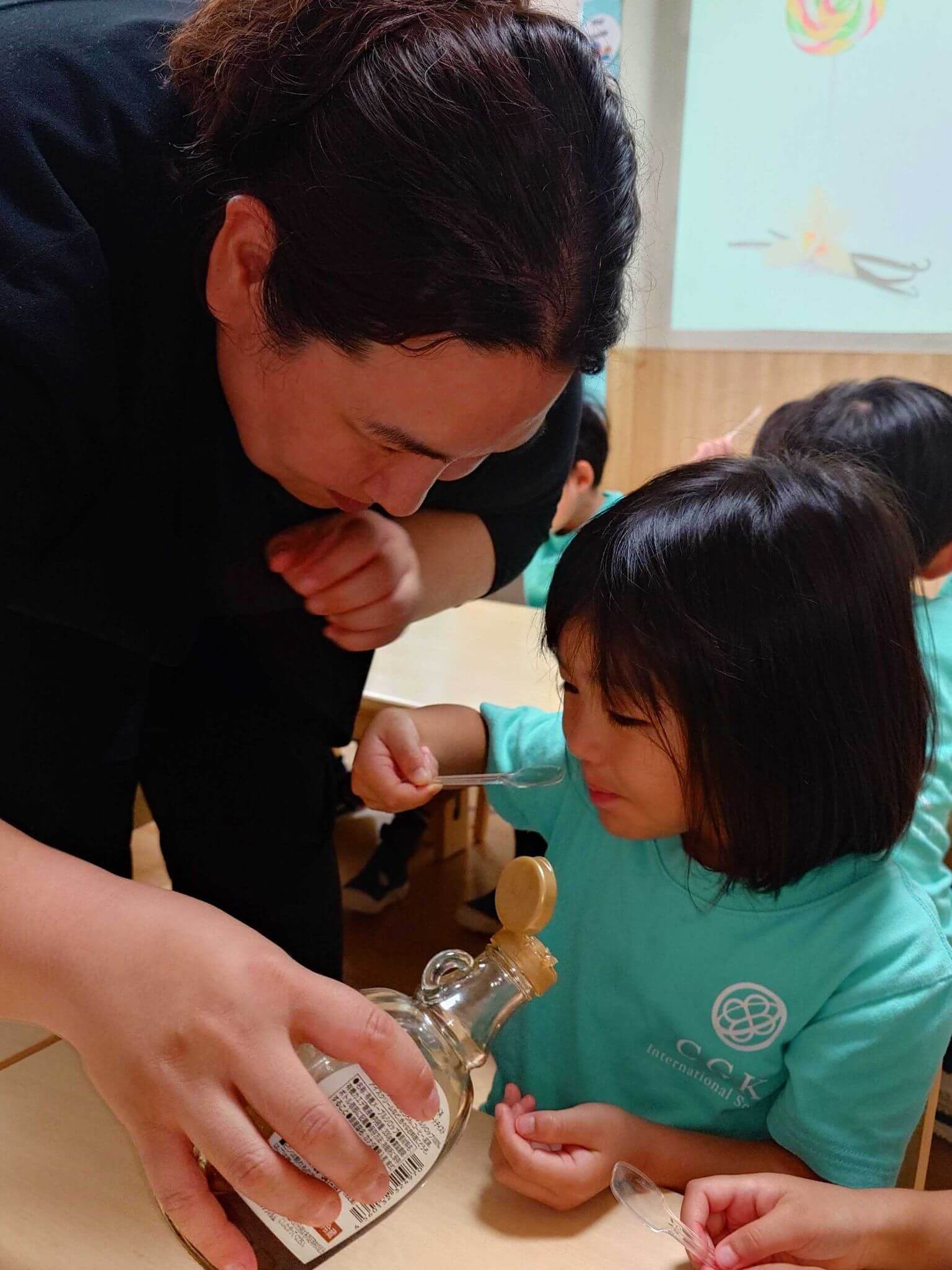
Sensory activity (taste): Food tasting
-

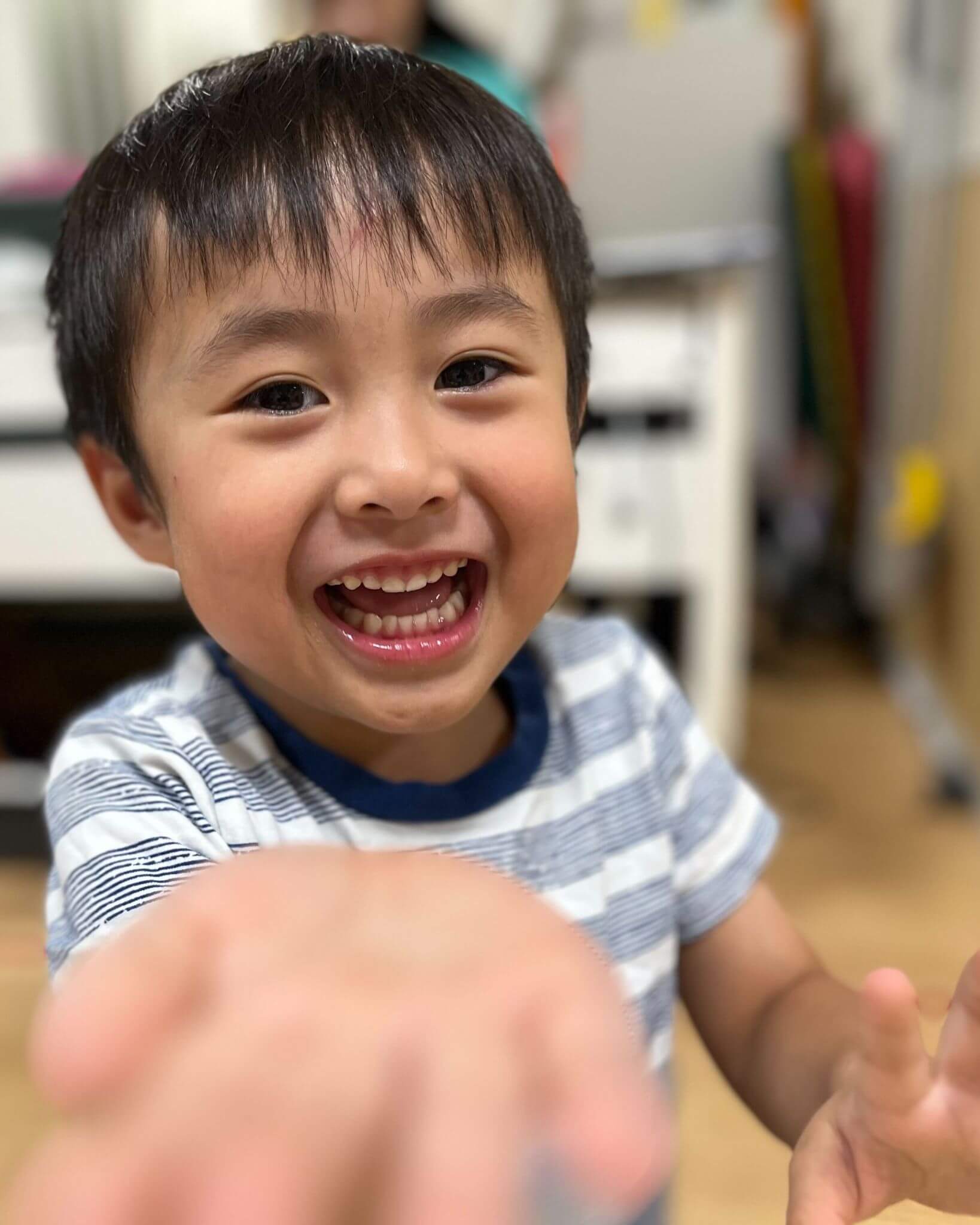
Sensory activity (taste): Food tasting, the excitement!
-

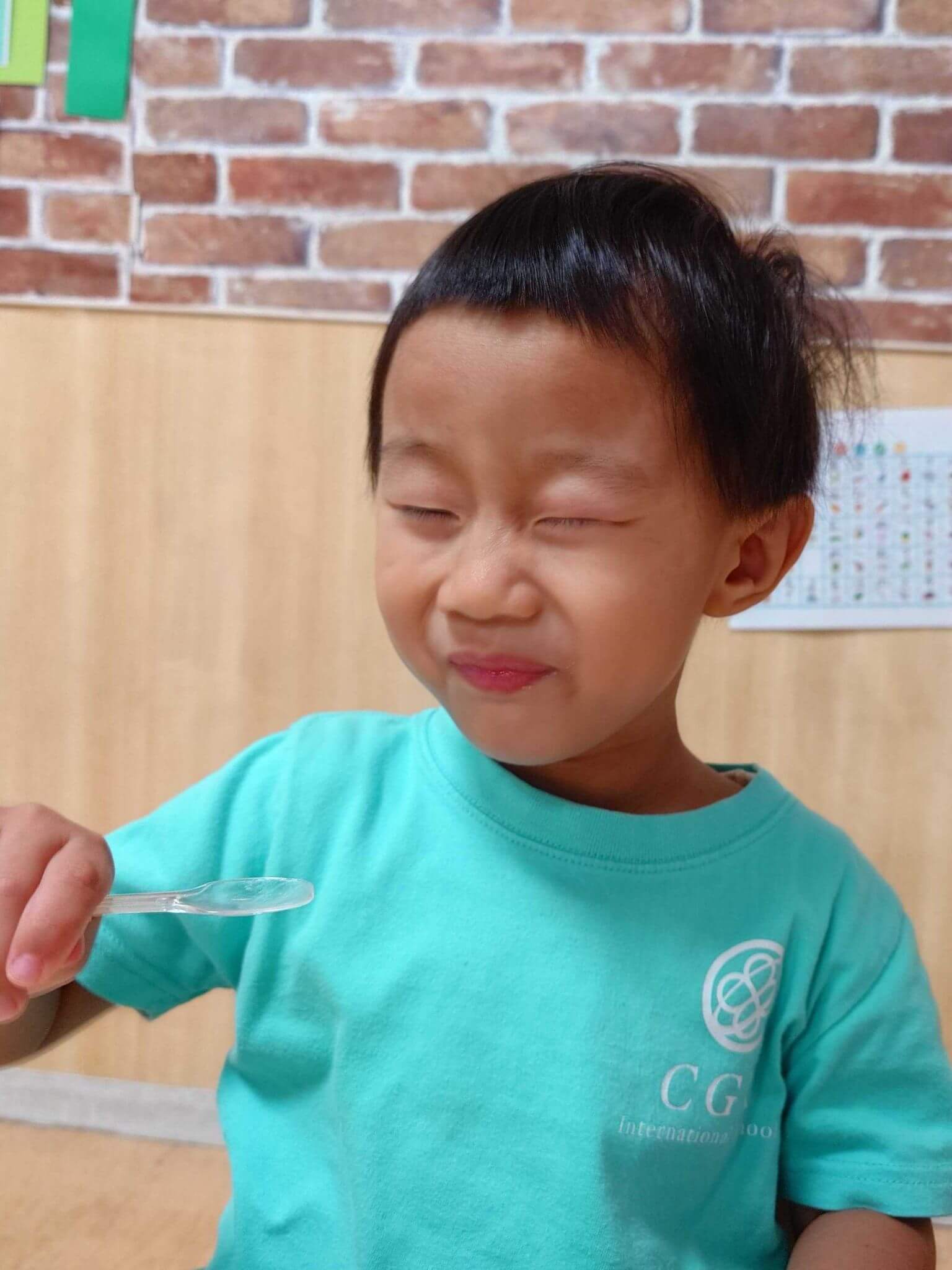
Sensory activity (taste): Food tasting, SOUR! >.<
-

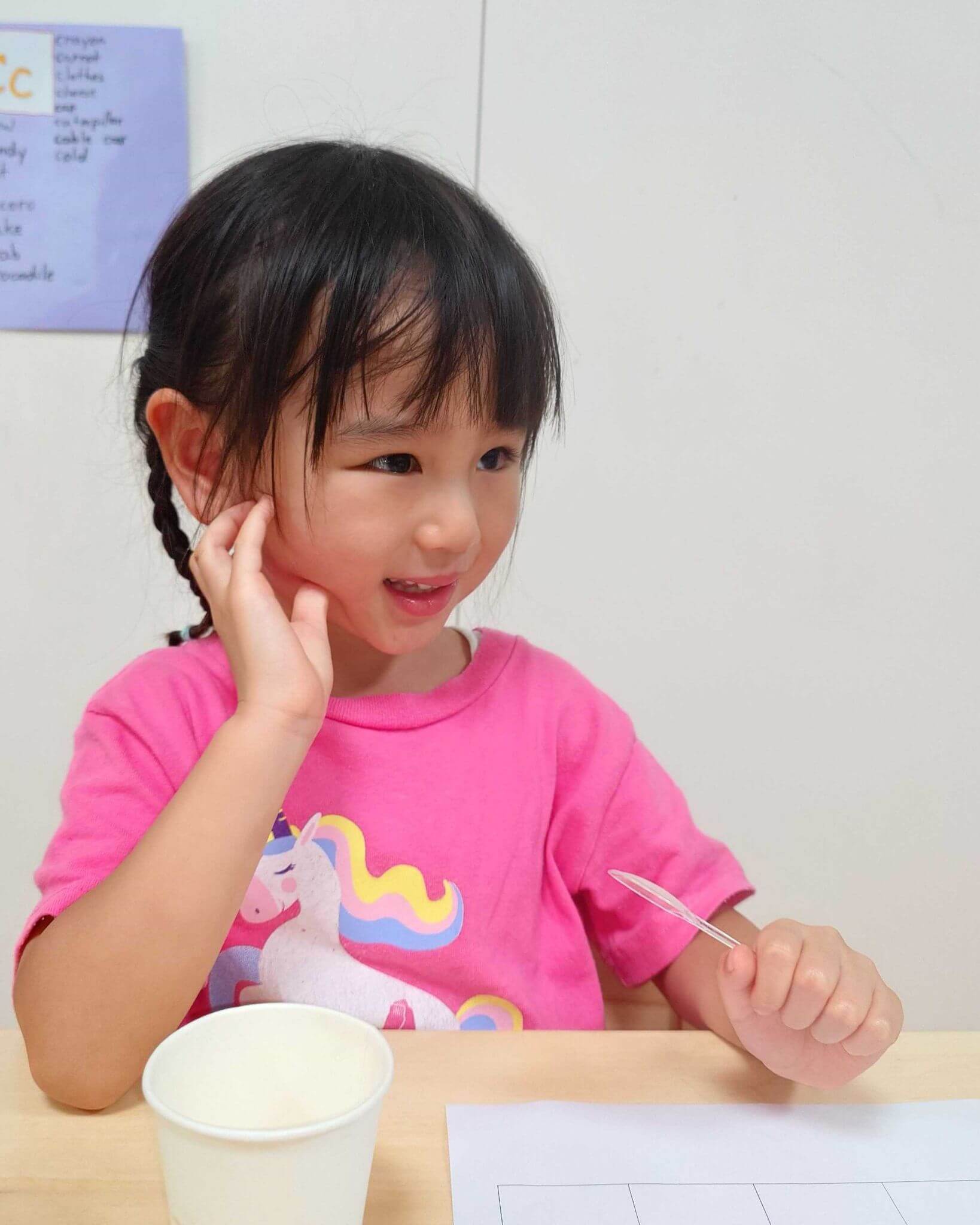
Sensory activity (taste): Food tasting, salty!
-

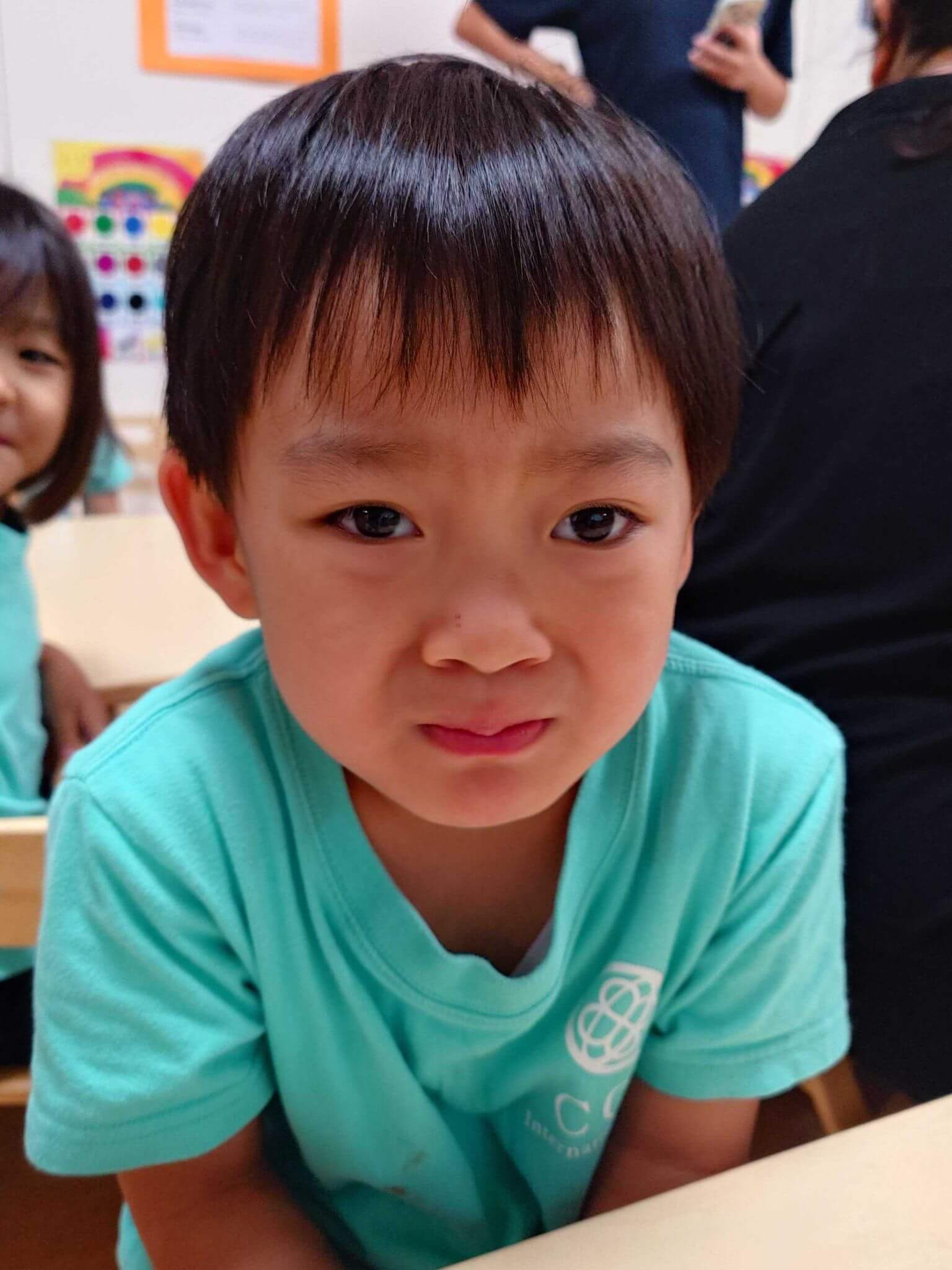
Sensory activity (taste): Food tasting, Bitter >-<
-

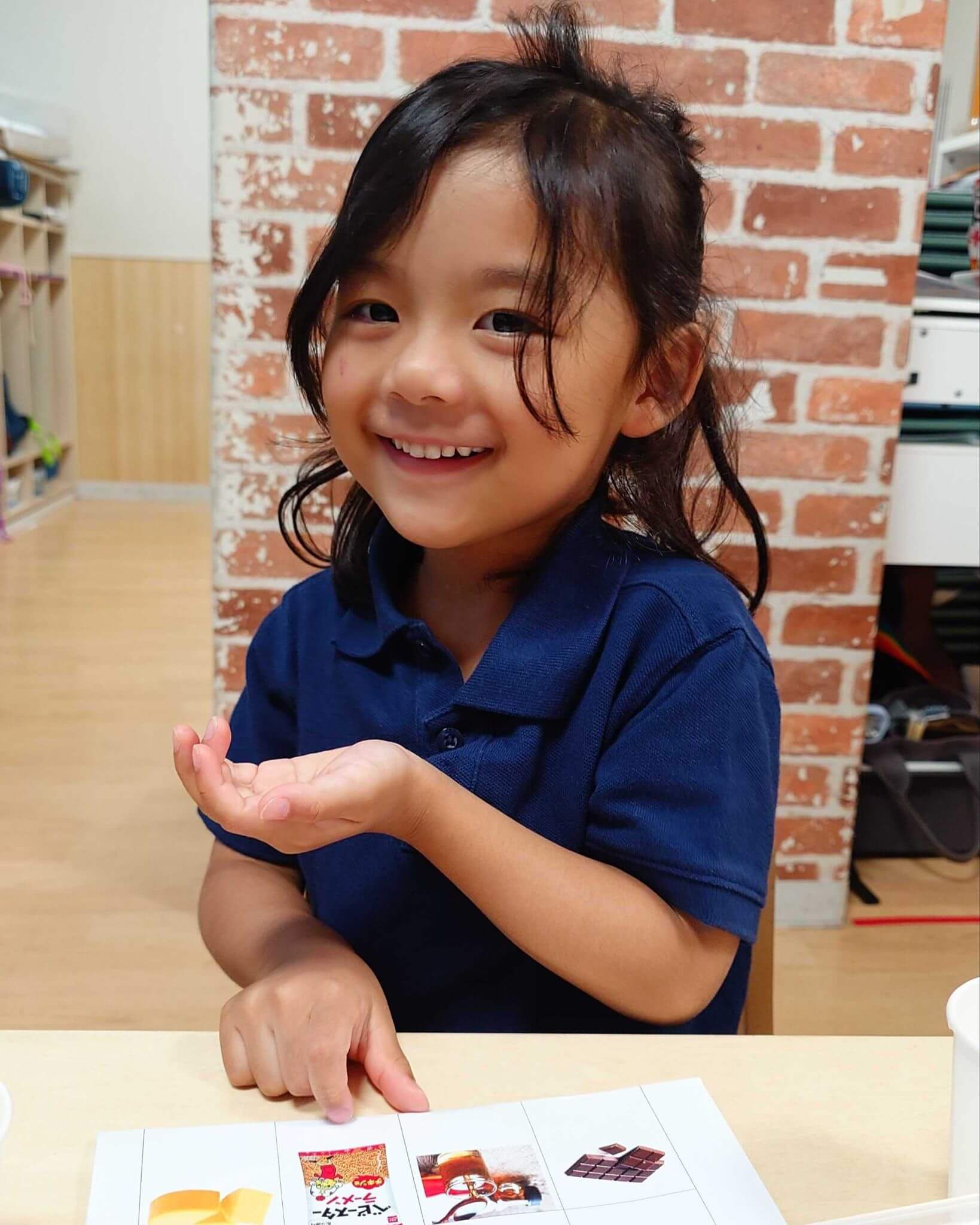
In our learning experiences, continuing our activities from the previous month, we transitioned from rainy season-themed learning experiences to an ocean-themed one, driven by student inquiries in true IB style.
Our Jungle Class friends have shown great interest in sea creatures and asked many impressive questions about ocean and related environmental issues. To ensure a smooth transition, we learned about the water cycle, where rain comes from, and where it goes. The students were thrilled to learn about sea creatures, starting from calling every fish Nemo😂(from the Pixar film, Finding Nemo).
The children asked intriguing questions like, "Why do we have so many oceans?" and noticed water pollution in both the nearby river and from the ocean videos that we watched during our lessons. This led to discussions on how water pollution affects wildlife, how we can help reduce it, and how it impacts us. We established that one way pollution affects us is through our food, as fish is a staple in our diet, which naturally led to discussions about our bodies and what it can do.
The Wonders of Living Creatures
-
-
-
The children are currently fascinated by marine life. The unknown world beneath the sea seems to captivate their interest!
Therefore, during Japanese class, we are conducting activities themed around sea creatures. Counting the number of creatures with the teacher, sketching them, folding origami into fish shapes... Throughout these various activities, we often see the children coming up with their own creative ways to play. For example, they would hide two creatures in their hands and quiz friends or teachers by asking, "What do you think is inside?!" They sorted creatures by color, or filled construction paper with drawings of various creatures to create their own personal aquariums. As we progressed with the activities, they began to actively ask questions like, "Teacher, where are a starfish's eyes?" and "Why do baby penguins and adults have different body colors?"
Also, this month we had a holiday (Marine Day), and we talked about the importance of caring for the sea and the creatures that live there. Not only did they learn from the teacher's talk, but we also conducted an activity where the children used tools to clean pieces of paper (trash) from a bowl filled with water. The children earnestly gathered the "trash" floating in the "sea," and once the bowl was clean, they felt relieved, saying, "Now the fish can live here!" It seems that an awareness of wanting to protect the habitats where creatures live is beginning to sprout within them.
Our current Unit of Inquiry (UOI) is "Who We Are," aiming to "learn about ourselves." We discussed the differences between sea creatures and ourselves (humans). Various opinions emerged, such as "Fish can swim fast, but humans can run!" and "Humans don't have tails." Moreover, the Jungle class was able to rediscover the amazing things about themselves that they hadn't noticed before, such as "We can use spoons to eat by ourselves," and "We can use our hands to create things like drawings and clay models."
-
-
The Importance of "Resting"
-

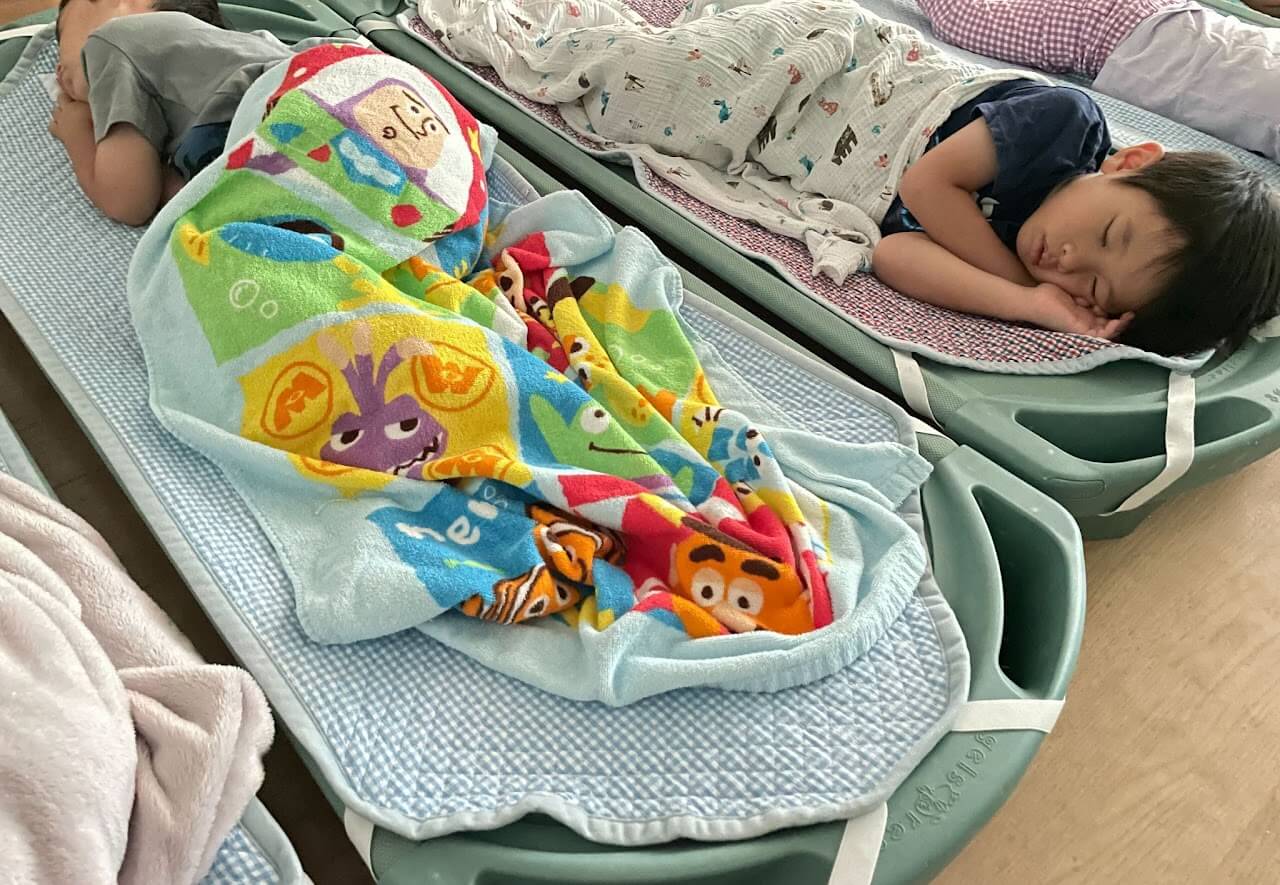

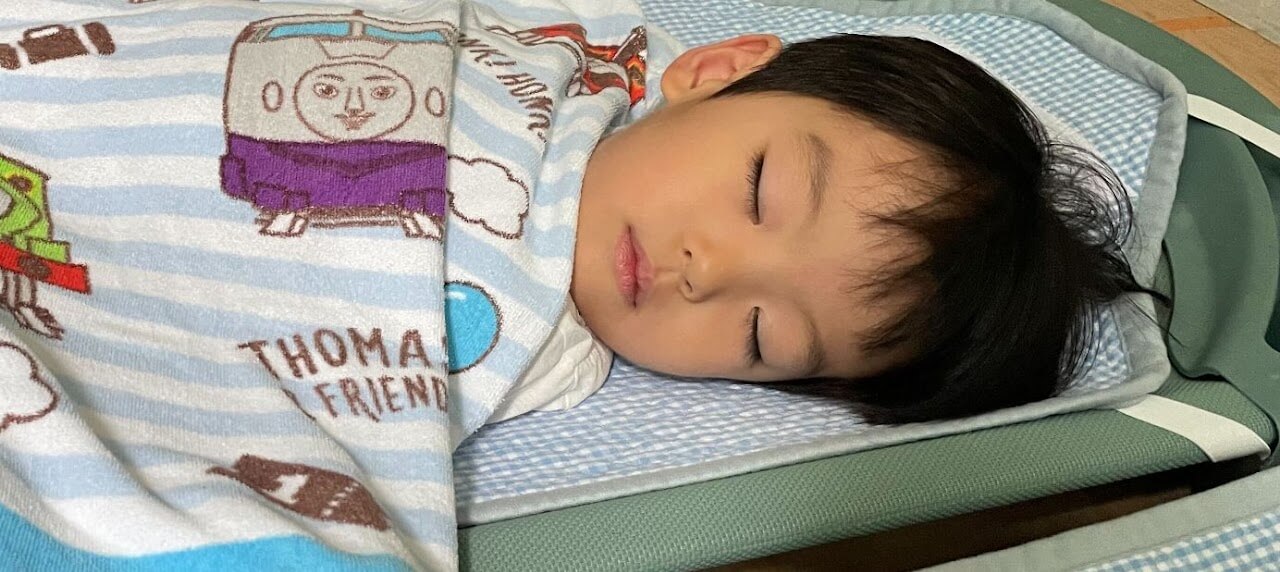
-

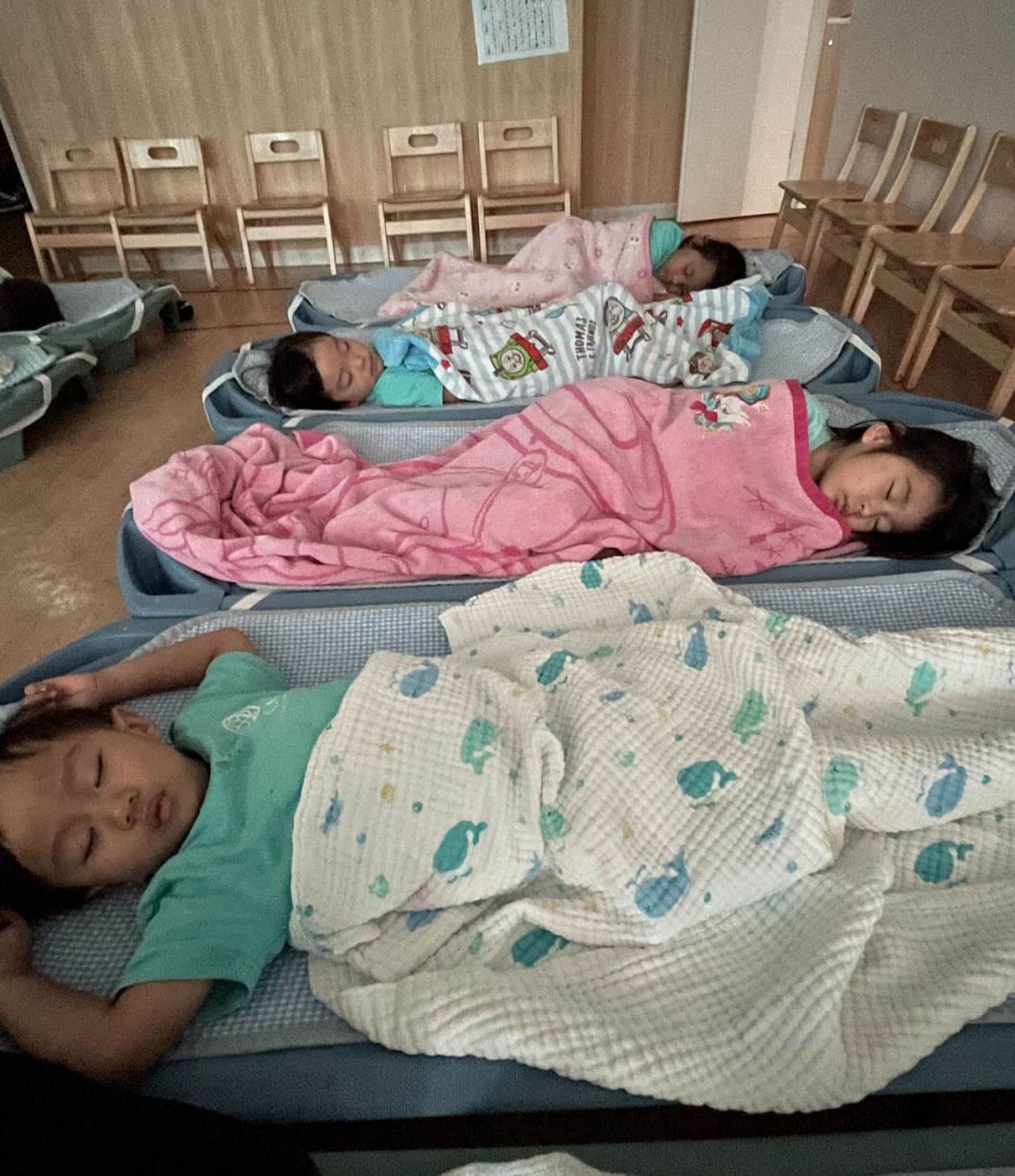
-
One of our daily routines is nap time. When it's nap time, the children are now able to lie down and prepare for sleep on their own.
By giving their tired bodies proper rest, not only does it enhance their concentration during afternoon activities, but ensuring adequate sleep time is also important for maintaining their health. We tell the children every day, "It's important to lie down quietly and rest your body."
Since the necessary rest time varies for each child, we adjust nap times based on their sleep hours and activities noted in the Renraku app every morning.
Ocean A
(2 year olds)
How Are Vegetables Grown?


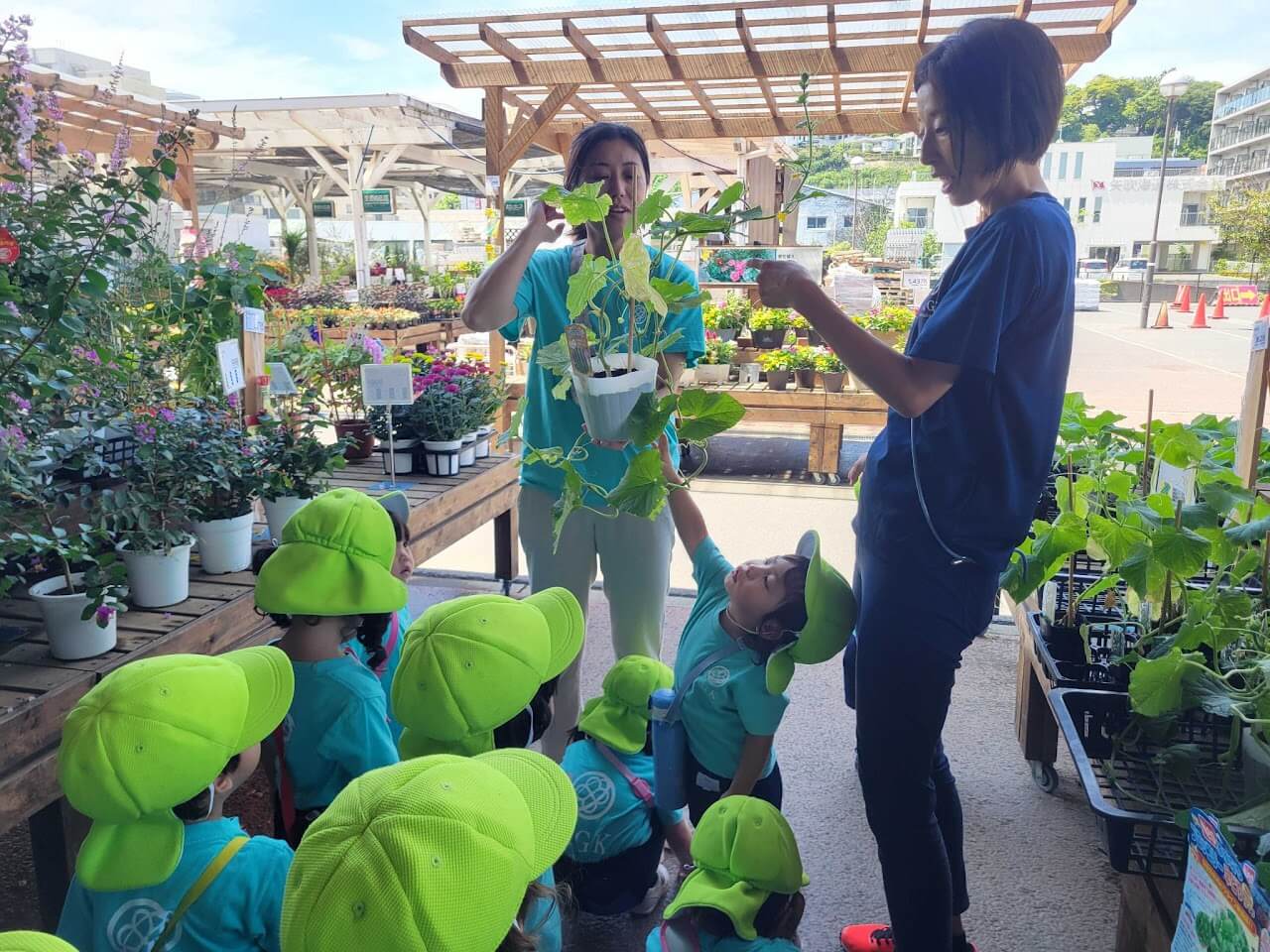


Where and how are vegetables grown? This is the question that Ocean A has been exploring this month. Firstly, we looked at the different vegetables that we may see and eat every day at school or at home. After learning about what are vegetables and the names of vegetables, we started taking a look at how they are grown. Ocean A friends took a mini trip to Shimachu Homeware Store. Everyone was very excited to visit the homeware store and find the different vegetables. Ocean A was very curious to see all the plant pots displayed outside and loved finding one with little baby cucumbers on the vines. It was also interesting to see so many vegetable seed packets displayed at the entrance. Ocean A friends were calling out so many vegetable names that they could recognize. It was like a fun vegetable museum for everyone! We all had a lot of fun visiting the Shimachu homeware store.
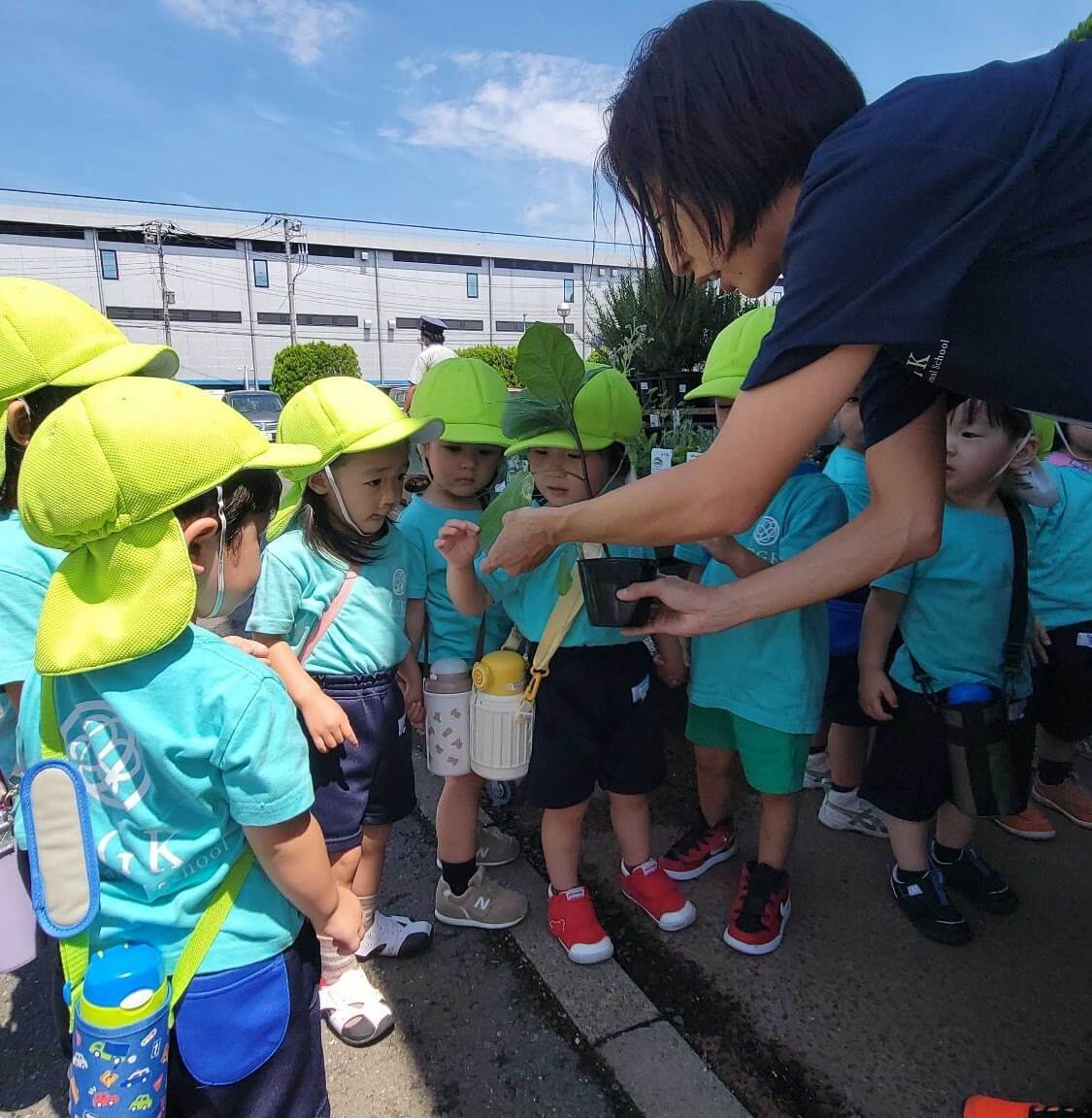

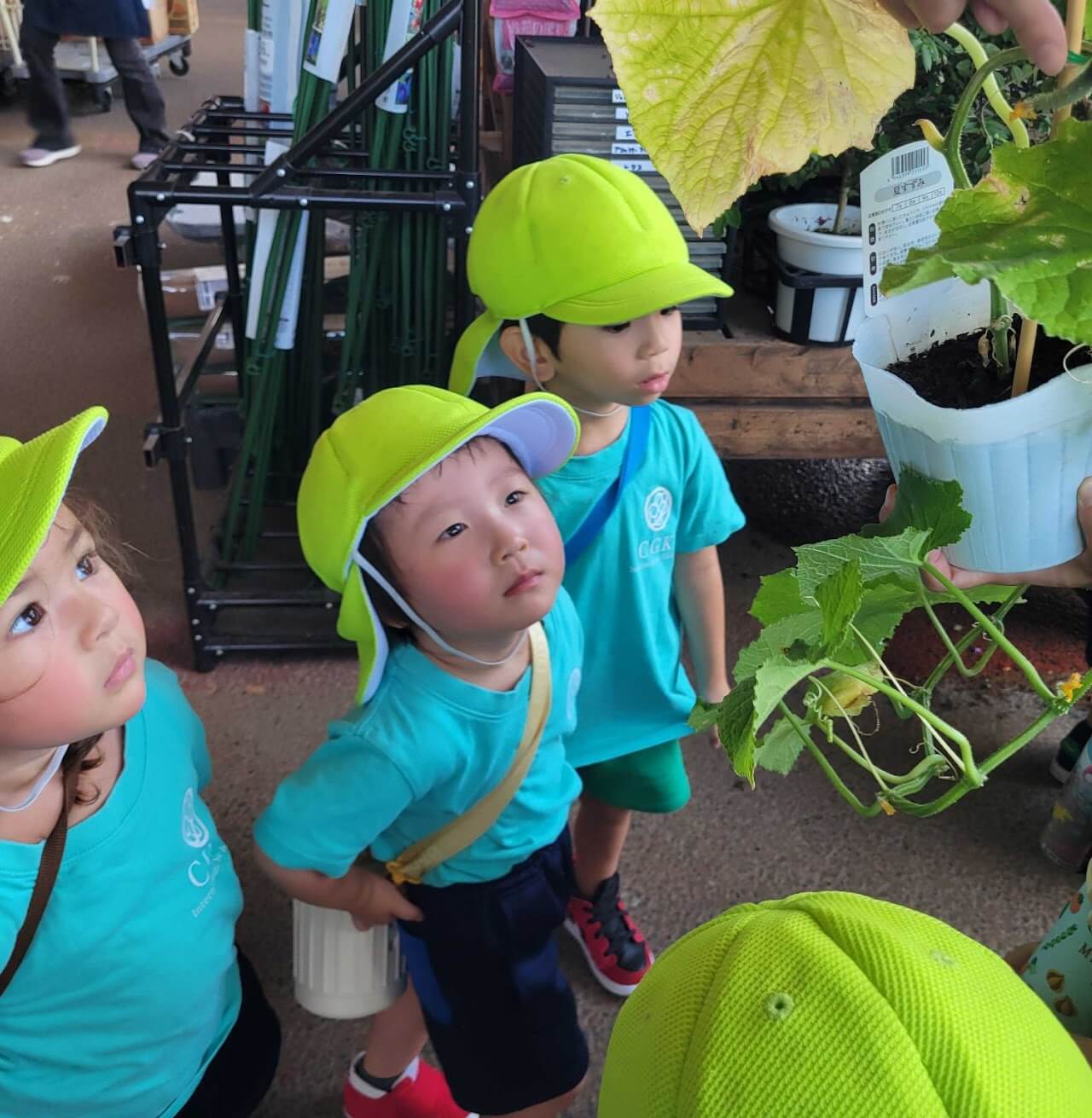

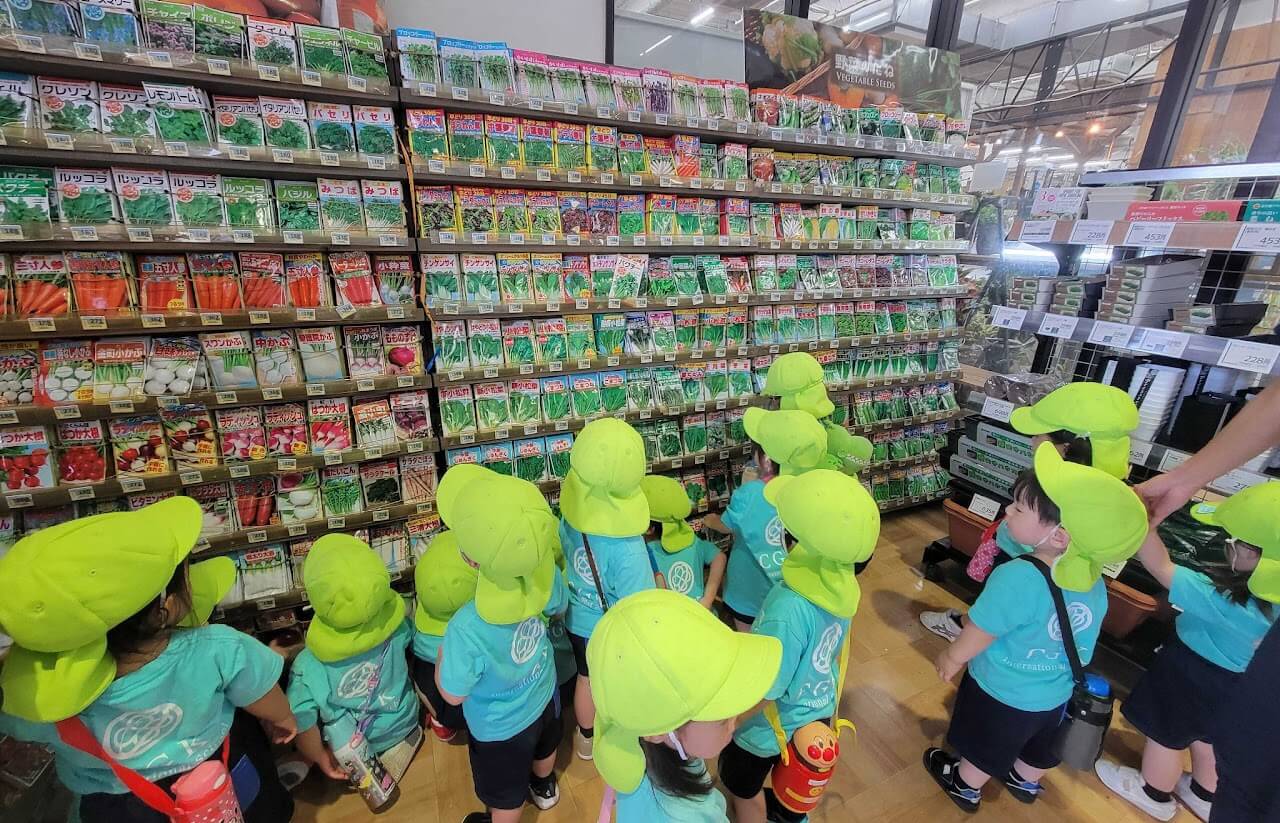

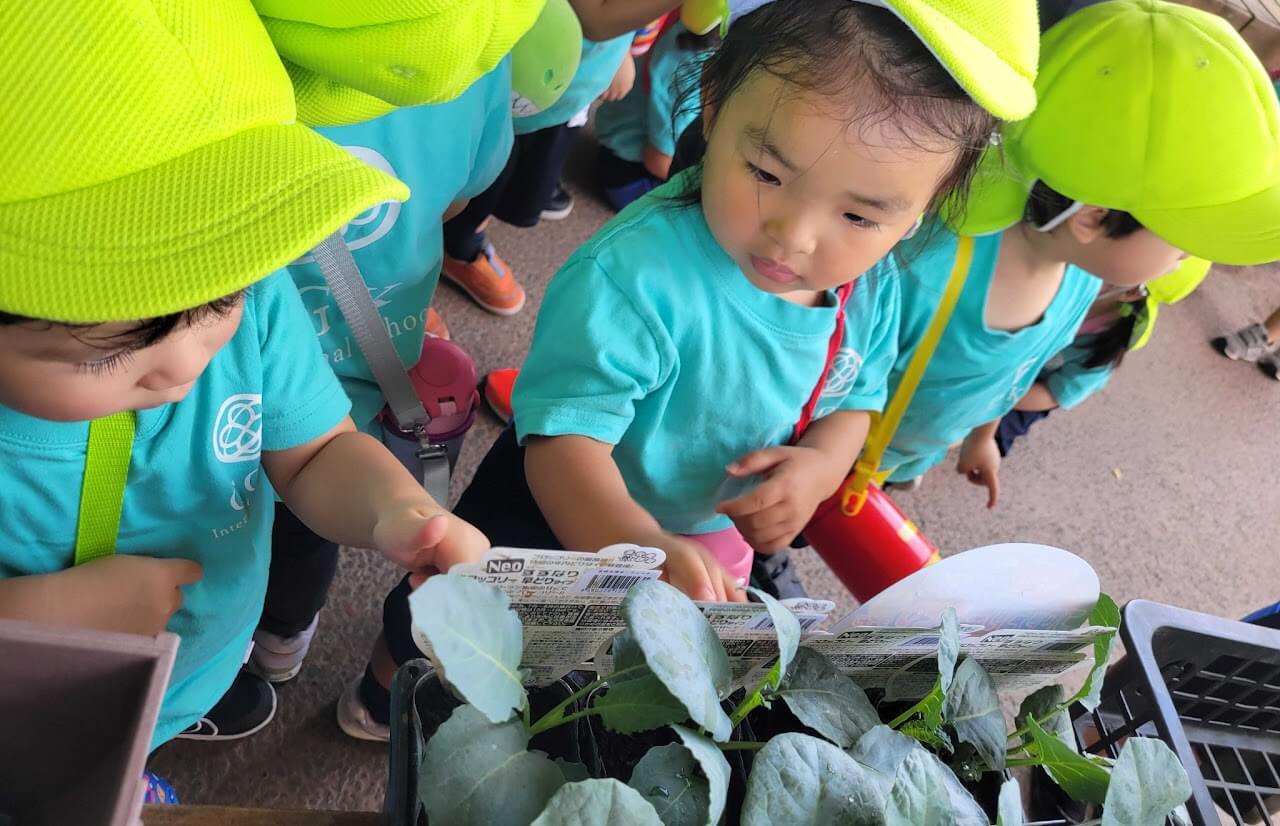

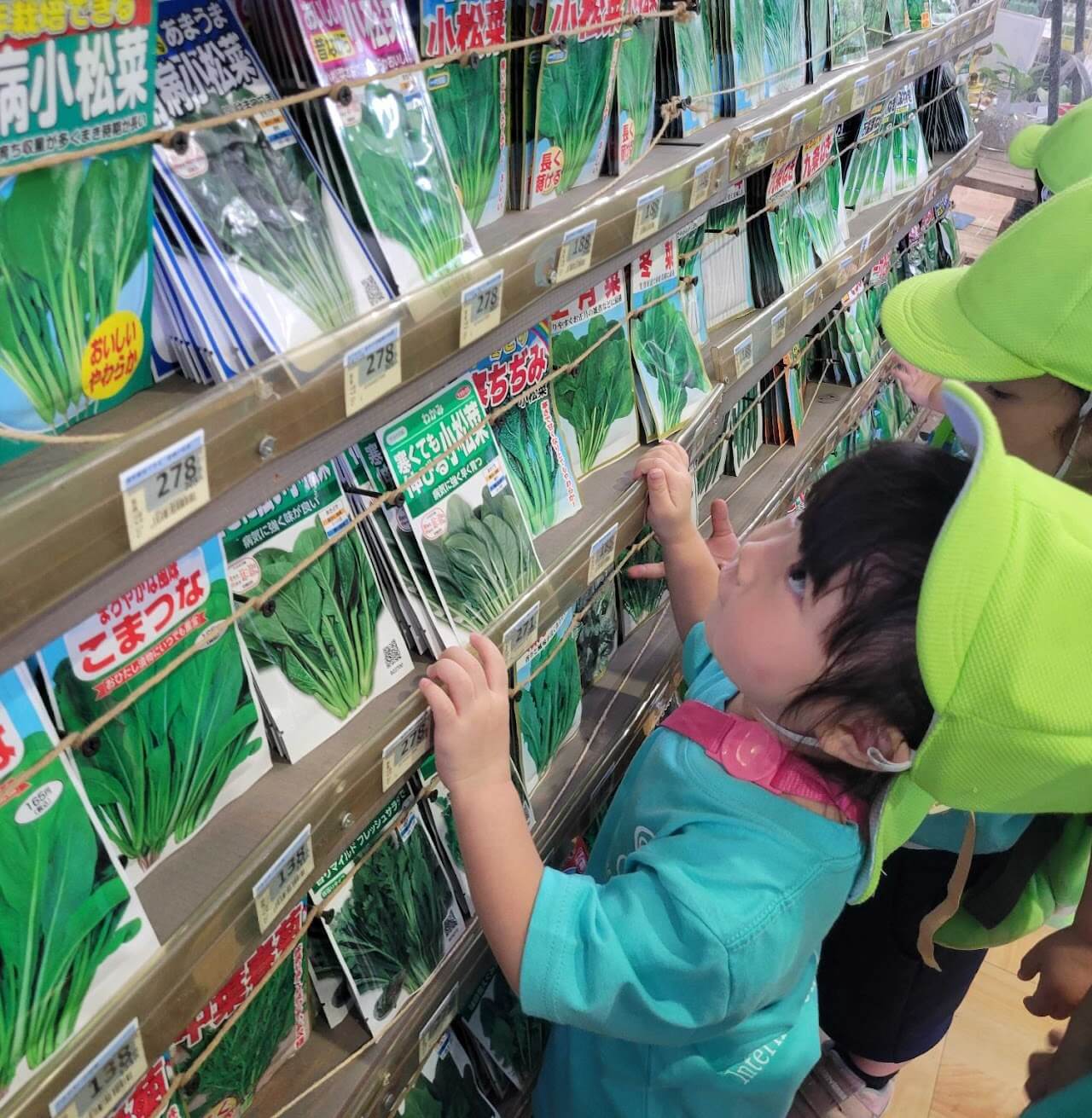




Water Play Summer Fun!
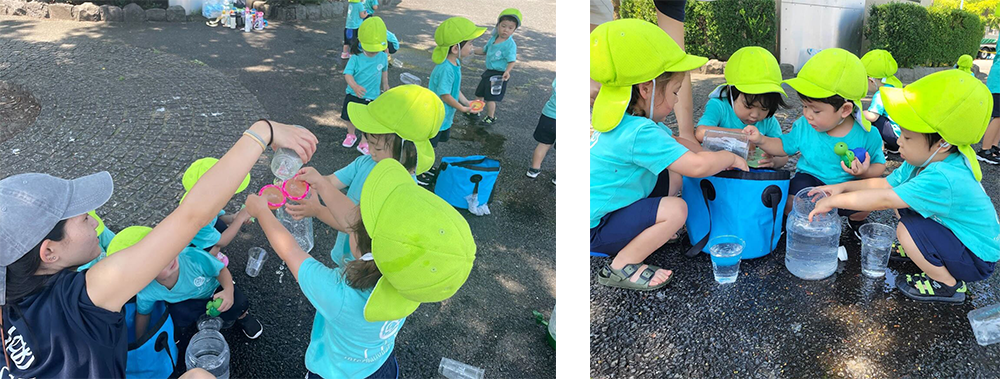

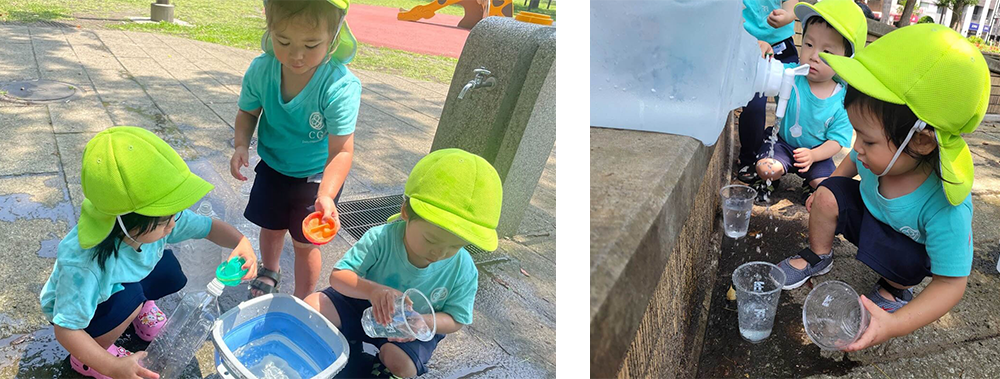

The weather has been so hot this summer! To keep cool but still have fun outside, Ocean A friends are enjoying their time splashing and pouring water In the beginning, some children were not so fond of getting wet. Later, they realized how much fun it was and refreshing while exploring on their own how they wanted to play with water. Ocean A especially loved it when they could splash water on teachers and laugh a lot together. Water play is always one of Ocean A's favourite things to do now during outside time and and everyone is having a great time together. Not only is it fun, but water play can encourage both fine and gross motor skill development by providing various materials like buckets, containers, or plastic bottles. Playing together through water play can also allow the opportunities to develop their turn-taking, problem-solving, and cooperation skills. Let's have more water play fun together, Ocean A!
Encounter with Insects
As the seasons change from spring to summer, the children are expanding their circle of friends and the range of their play, enjoying fulfilling outdoor time.
The children of Ocean A have been interested in insects since the beginning of the school year. Every time we go to the park, they search for and observe pill bugs and ants, run around trying to catch butterflies, and enjoy interacting with them. The other day, they quickly noticed a ladybug that had landed on a friend's hat, and everyone gazed lovingly at the tiny ladybug. Even children who were initially afraid of insects they saw for the first time seem to be gradually becoming interested by watching their friends interact with them, making insects feel more familiar.
Did you know that we are currently taking care of a stag beetle named "Kuwana" in the Ocean A classroom? Every morning when the children enter the classroom, they call out "Beetle please!" or "I want to touch Kuwana!" They actively help in taking care of it by moistening the soil with water, changing its food, and relocating leaves. Through interacting with insects, they are getting to know living creatures other than themselves, realizing feelings of love and kindness, and it seems they are connecting through play and experiences with "Who We Are," the Unit of Inquiry (UOI) they are learning in the IB program.
Vegetables and Fruits: Here's Another Way to Play!
-
-
Fruits and vegetables are very familiar to children. In their daily lives, through meals and pretend play, they expand their interest in the names and characteristics of fruits and vegetables. During Japanese class, we encouraged them to broaden their interests even further by enjoying various methods. The children especially seemed to enjoy activities that involved physical movement. For example, the vegetable harvesting game. Physical challenges like balancing on beams, rolling on mats, crawling, and going under obstacles became exciting challenges for the children, and the sense of accomplishment in harvesting vegetables afterward was even greater. Then, we filled large bags with balls to create giant vegetables. Wondering excitedly, "What will this become?", the children carried out the activity themselves and were able to see it through to the end.
Through these activities, the children discovered more about the colors and shapes of vegetables and how they grow. We began to see them trying to express these characteristics in their own words. I was reminded that learning through play is exactly this. At the same time, the children's love for fun—asking "What are we doing next?", "What's that?", "I want to try it too!"—is growing more and more. I felt that this increasing curiosity leads to discovering new things and finding insights from different perspectives within the activities.
Ocean B
(2 year olds)
Splash: Water Play Adventures
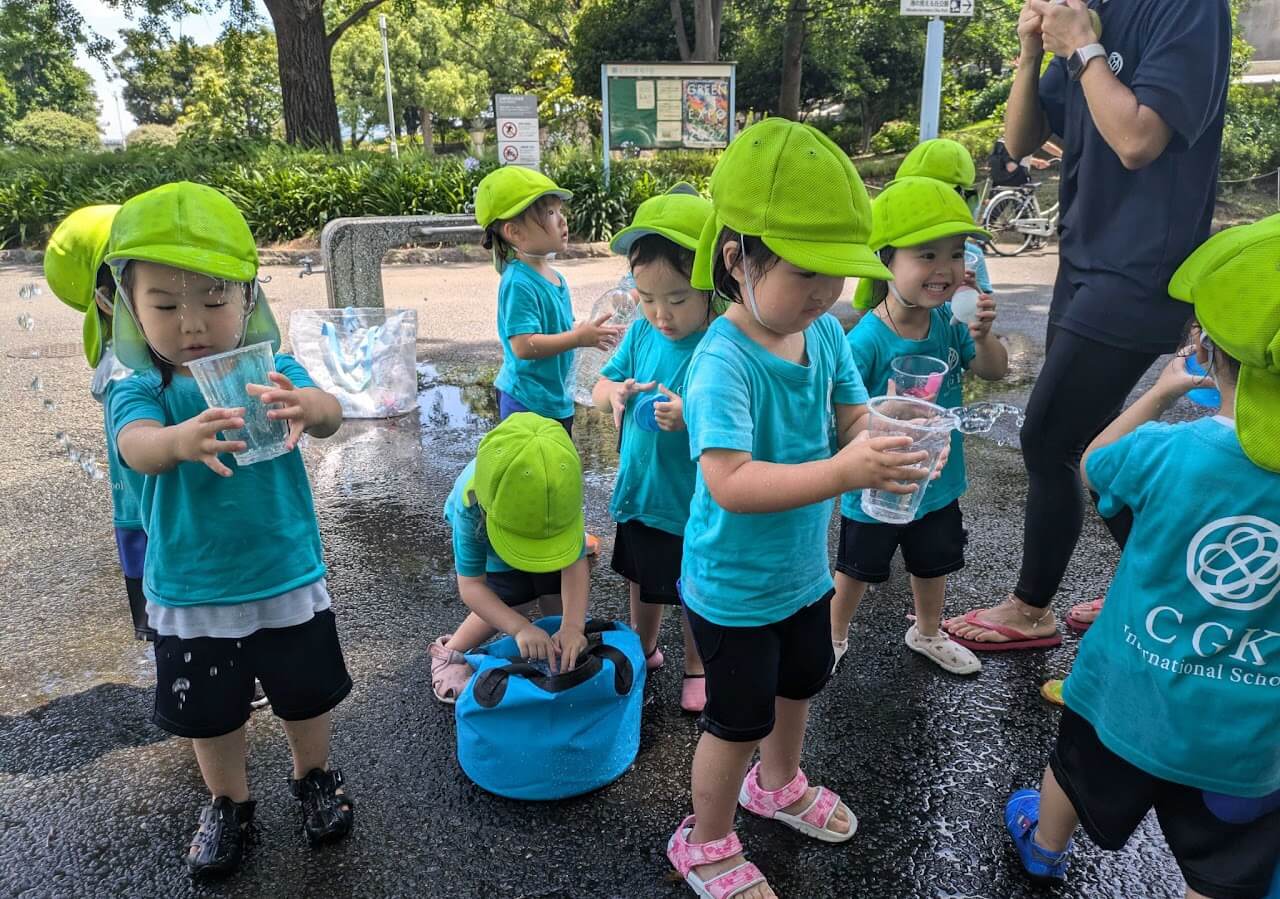
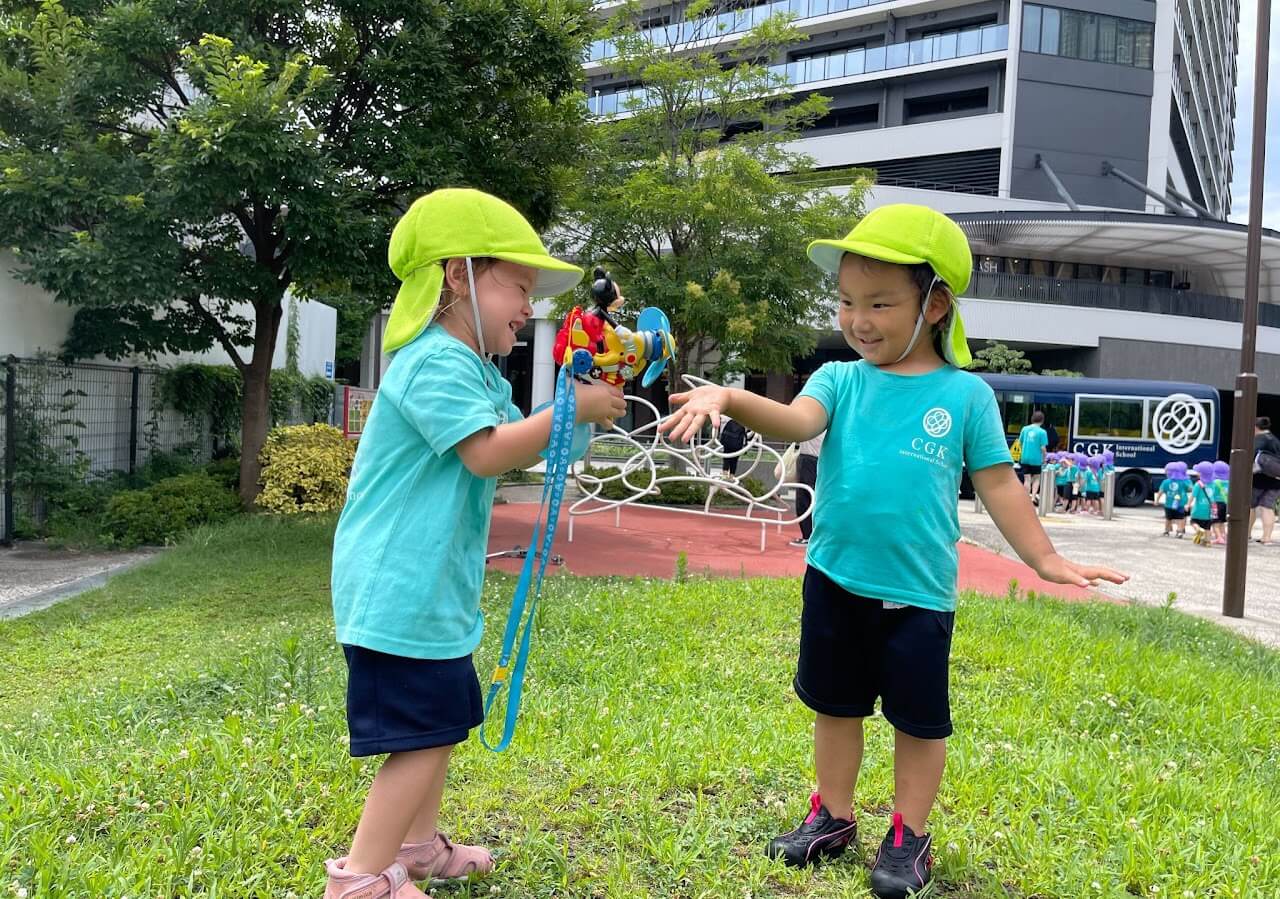


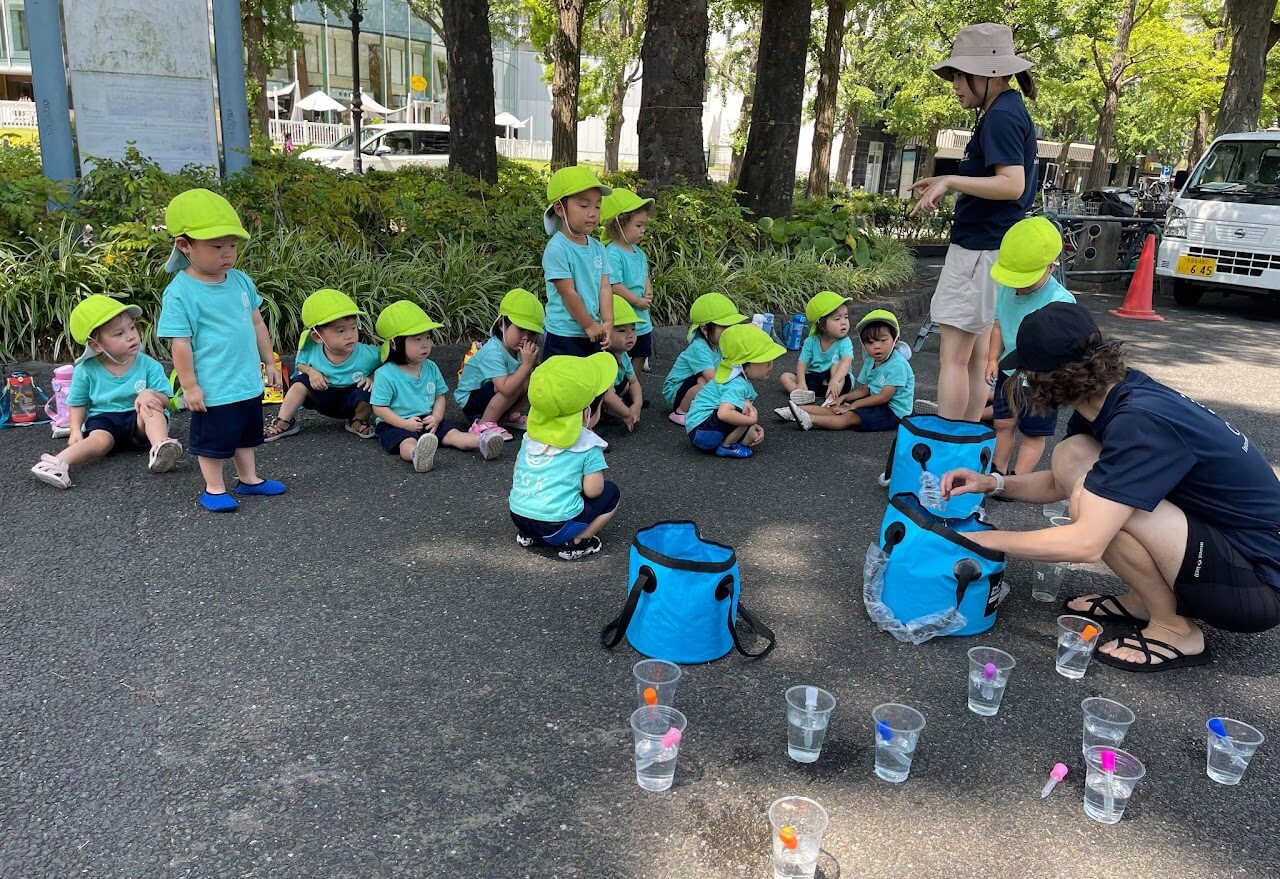
-
Can you imagine how hot it is outside? To help Ocean B friends enjoy the summer season, we have enjoyed various water play activities to keep them engaged, learning, and having fun.
Water Play, a refreshing and enjoyable experience for everyone. At first, some students preferred using droppers and cups to transfer water as they wanted to stay dry. Later on, everyone was really excited about water play. We splashed and splashed and laughed together, making wonderful memories and enjoying the fun of playing with water.
Additionally, water play is great for their development. It enhances their fine motor skills as they pour, splash, and manipulate water with different tools like water painting. It also encourages creativity as they invent scenarios and stories involving water. Overall, it is a well-spent time together. Hooooooooray!





A... A... Apple, Please!


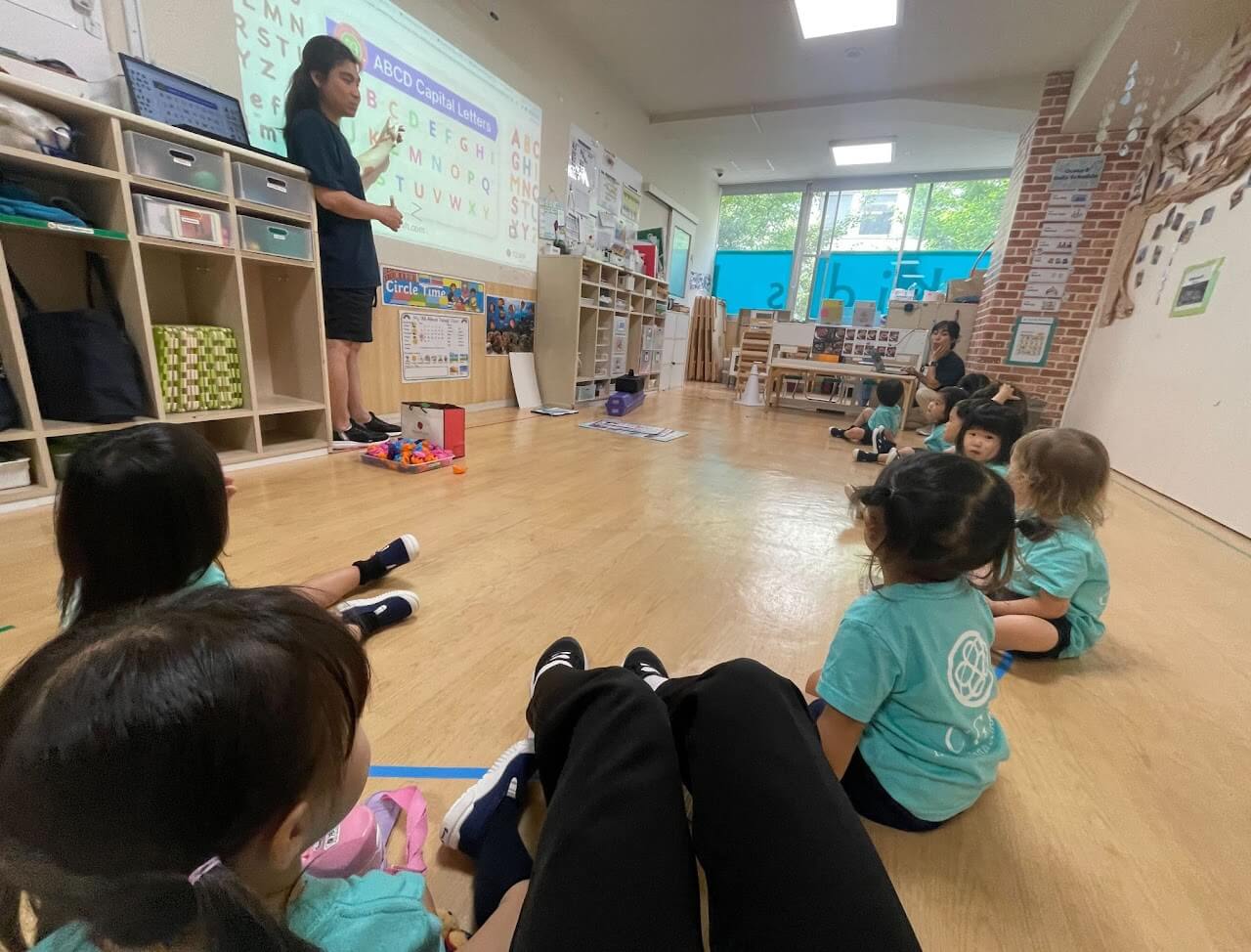
-
The ABC Song and phonics have become part of our routine with Ocean B friends, serving as a joyful and effective tool for transitioning from one activity to another. Their interest in these songs is truly one of a kind; they often take the initiative to ask us to sing these songs, demonstrating their eagerness to learn. Good job, Ocean B friends!
We believe that at this age, children are highly receptive to music and rhythm, making the ABC Song an ideal introduction to the alphabet. The catchy tune, combined with engaging actions, captures their attention and encourages active participation. They enjoy singing along, clapping, and dancing to the melody, which makes learning fun and helps them internalize the sequence of letters through repetition and play.
While they may not fully grasp the concept of letter-sound relationships yet, they are deeply engaged in activities that involve sounds and simple words. To support their phonemic awareness, we incorporate interactive games, picture books, and playful exercises into our daily routine. These activities stimulate their curiosity and prepare them for future literacy skills. Recently, we have started including the first letter of their name in the ABC Song and phonics exercises. This personalized touch makes the learning experience even more meaningful and enjoyable for them. Through these engaging activities, we are creatin a language-filled environment that supports their early literacy development in a natural and enjoyable way.
ABC... one more time, please!



Peaceful Nap Time: Recharging Energy!
-

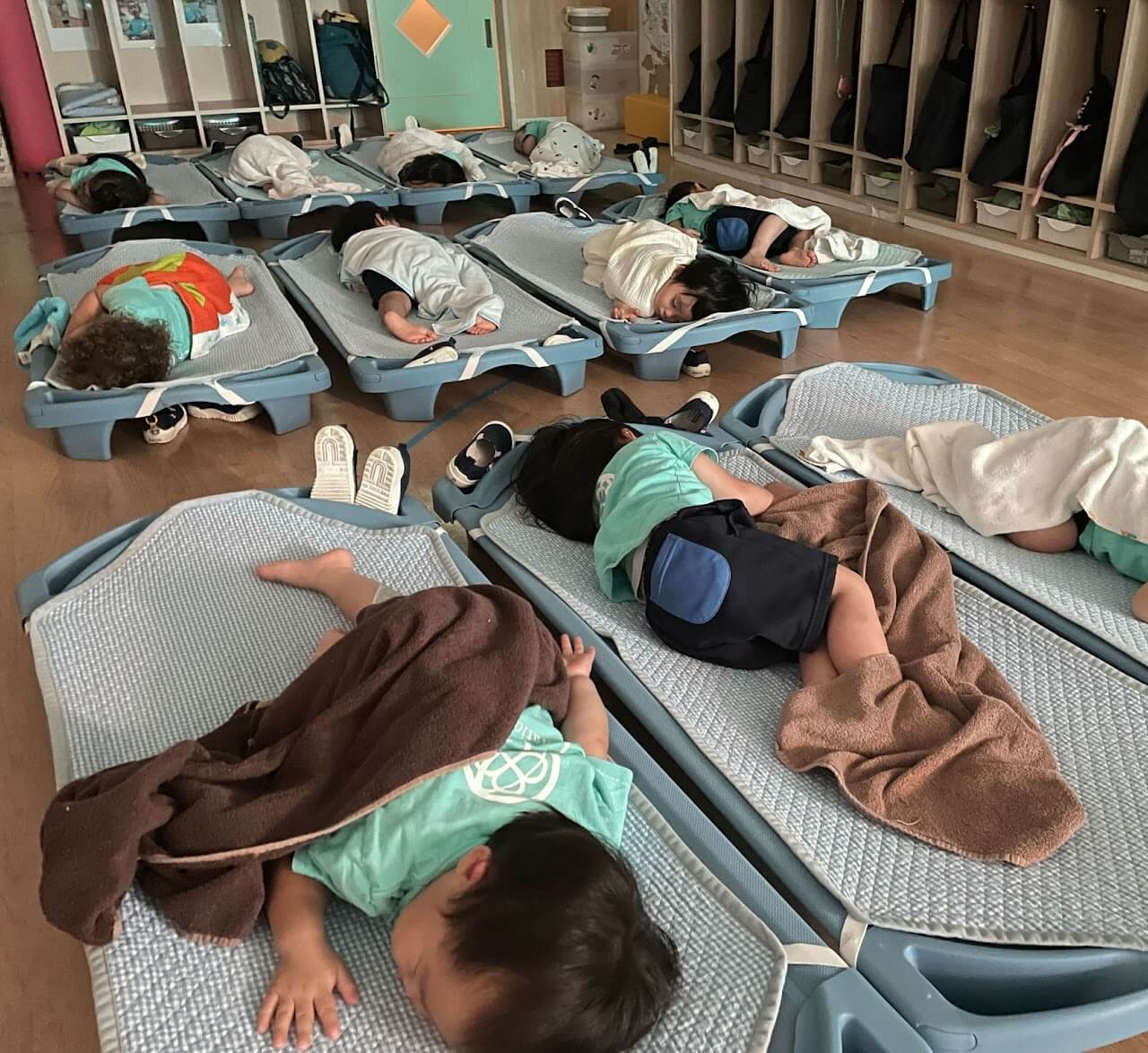


-



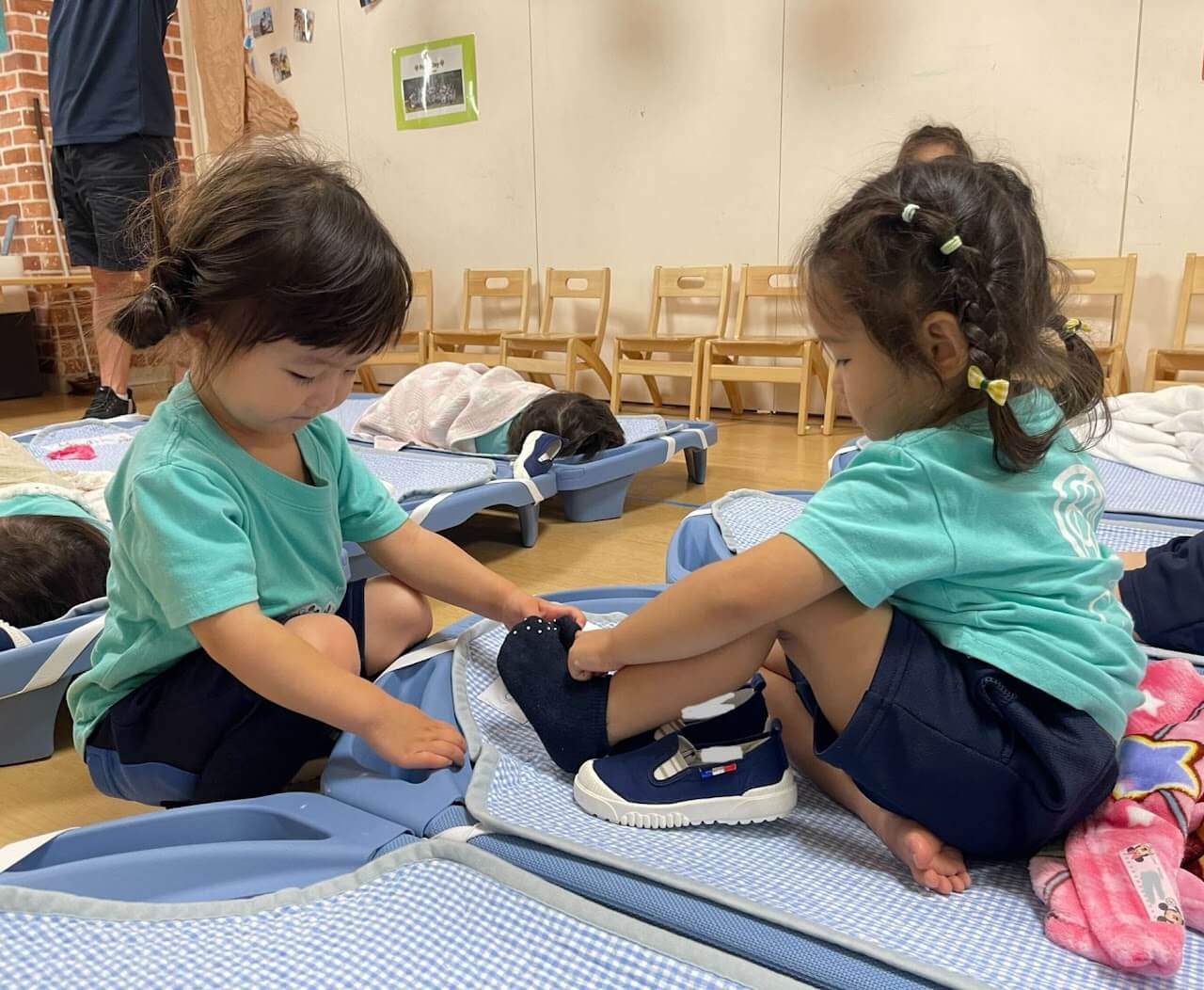
-
After lunch, we gargle, go to the restroom, and then it's nap time. When the children first started attending CGK, they often missed their families and felt restless, making it hard for them to fall asleep. Now, they've become quite accustomed to life in the Ocean B class, and we often see them lying down on their beds on their own!
We gently watch over the children who can fall asleep on their own, and when needed, we pat their backs or sit next to them to help them sleep comfortably and peacefully. Currently, we're allowing them to nap for about an hour and a half to two hours, but we plan to gradually shorten nap time according to their developmental stages.
After waking up from their naps, the children are working hard on the routine of putting on their socks and shoes, with some assistance from the teachers. Sometimes, they even help friends who aren't quite motivated!
After nap time, the children are fully recharged and full of energy! They happily enjoy their snacks with big smiles and then move on to the afternoon activities.
お昼寝後はエナジーチャージをして元気いっぱいの子どもたち!ニコニコで楽しくおやつを食べ、午後の活動へ移っていきます。
Our First Smoothie-Making Experience
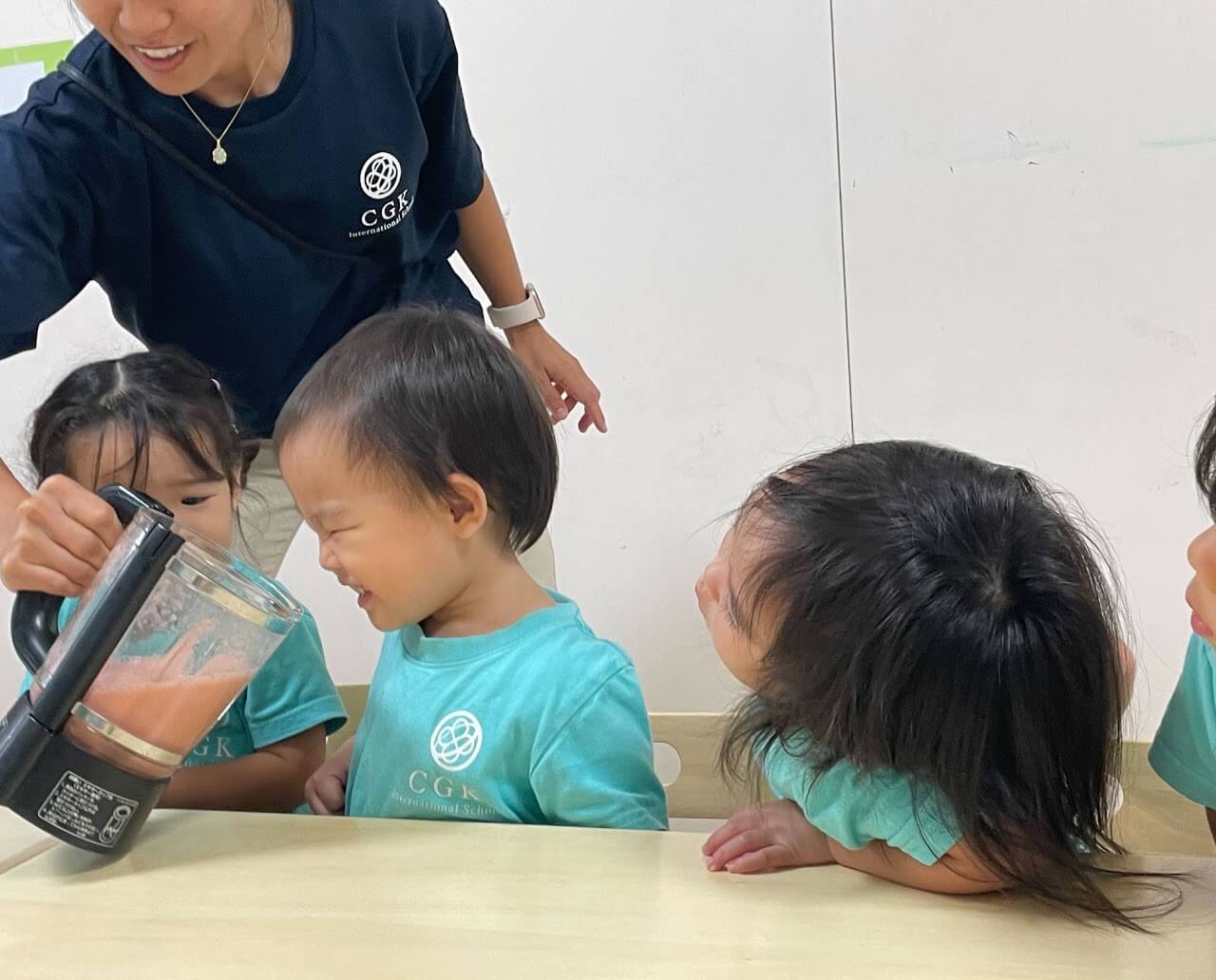


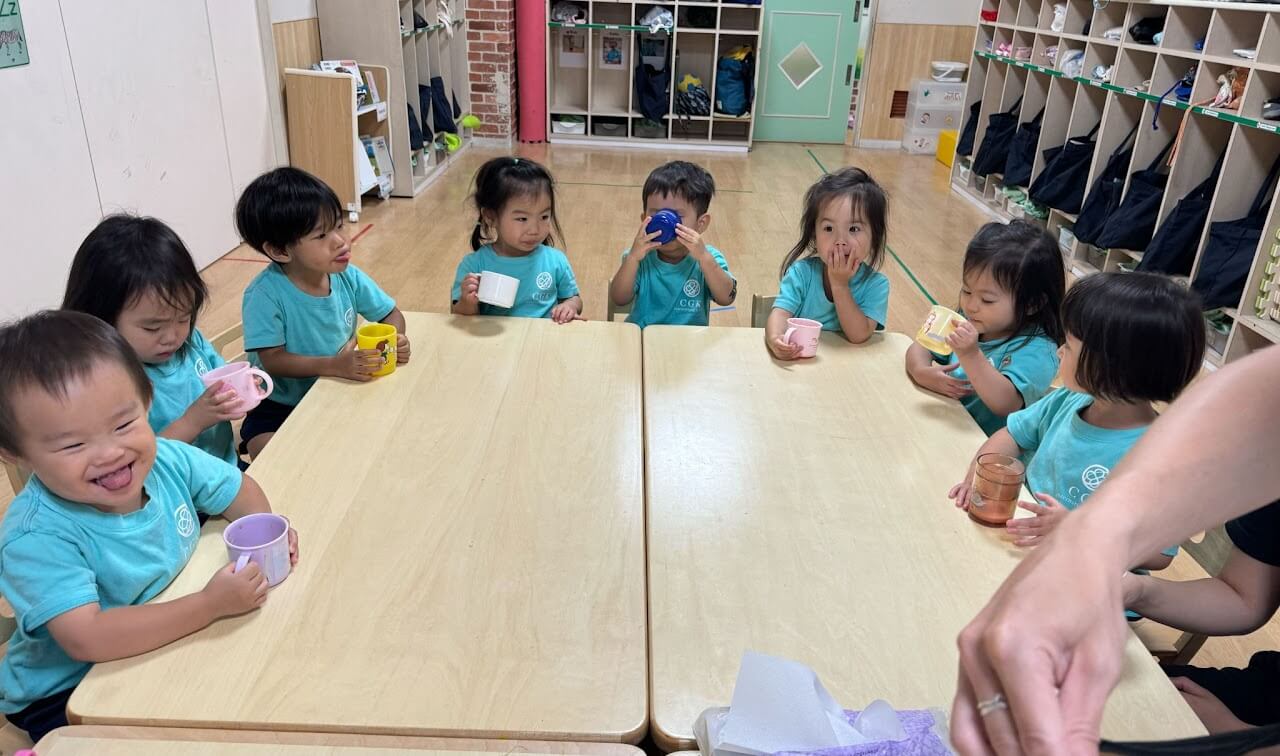


This month, the Ocean B class has been focusing their inquiry activities on fruits. They've learned about the names and characteristics of fruits, shared their preferences, and become more familiar with them. To take it a step further and directly engage with fruits, we planned a smoothie-making activity and went shopping at a supermarket for that purpose. Beforehand, we started with pretend shopping in class to experience where and how to buy fruits through play. As their interest and curiosity in actually going shopping grew, we visited the supermarket. Together, we cooperated to purchase our target fruits: bananas, lemons, and watermelon. Amidst a variety of products, they diligently found the fruits they wanted, energetically expressing their joy by exclaiming, "We found them!" They also enjoyed selecting fruits by discussing and considering their colors and shapes, wondering which ones looked the most delicious.
The next day was the much-anticipated smoothie-making day! The children touched, smelled, and tasted each fruit to experience their characteristics and differences firsthand. They freely expressed their impressions, saying things like "Sour!", "Sweet!", and "Cold!" When we asked, "What do you think will happen if we mix three different fruits?" they let their imaginations run wild, and then we turned on the blender! They immediately noticed the color change and excitedly told us, "It turned pink!" The pleasant aroma of fruits filled the room, and they had delighted expressions on their faces. Some children took a sip of the smoothie nervously and then broke into smiles instantly; others looked puzzled, and some found it so delicious that they drank it all at once. When we asked, "What does it taste like?" their opinions varied: "Banana," "Watermelon," "Lemon." Even though they were all drinking the same thing, each person's perception of the taste was different, which was very interesting. Exploring one thing together while sharing various opinions, thoughts, and feelings became a valuable experience for the children!
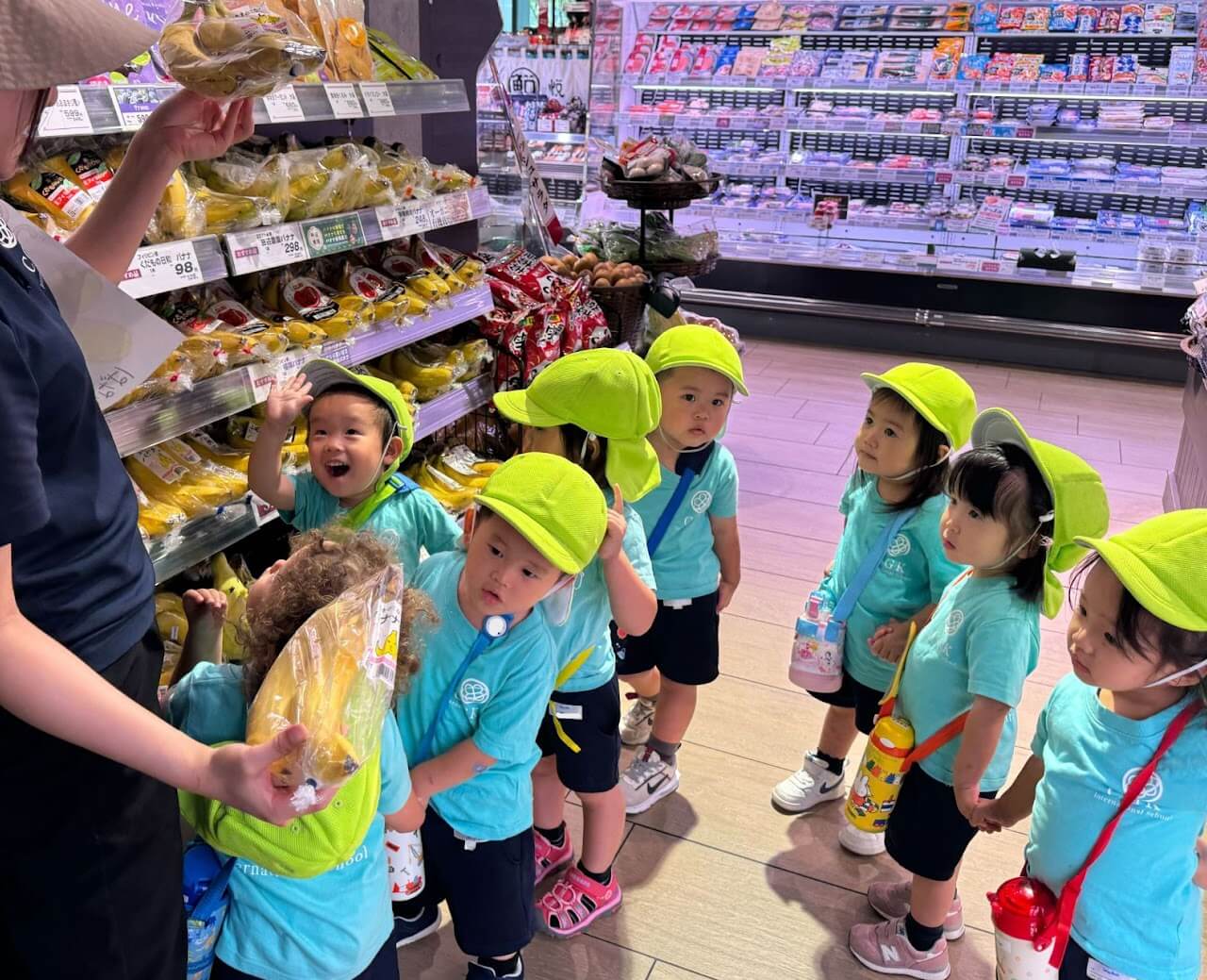


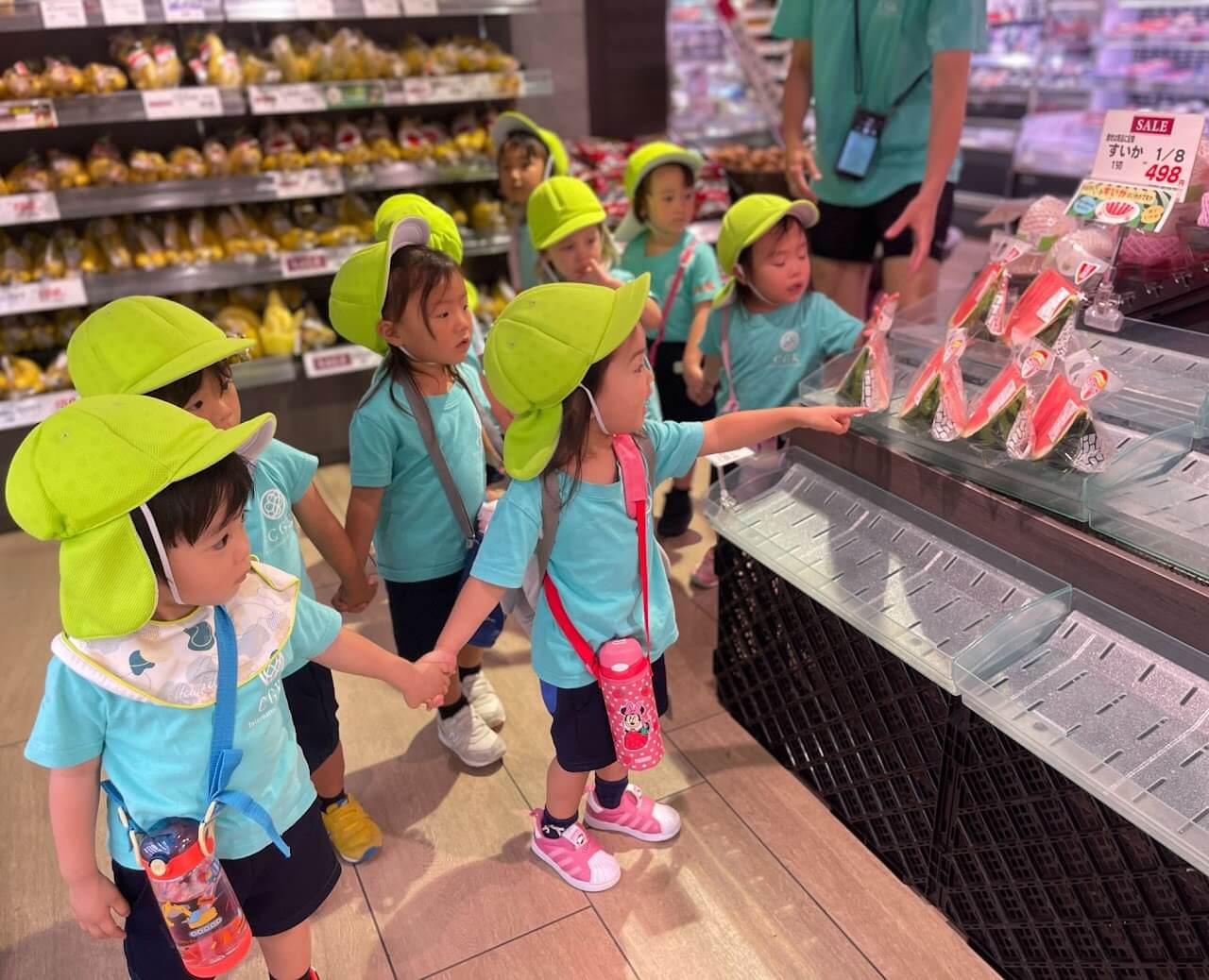


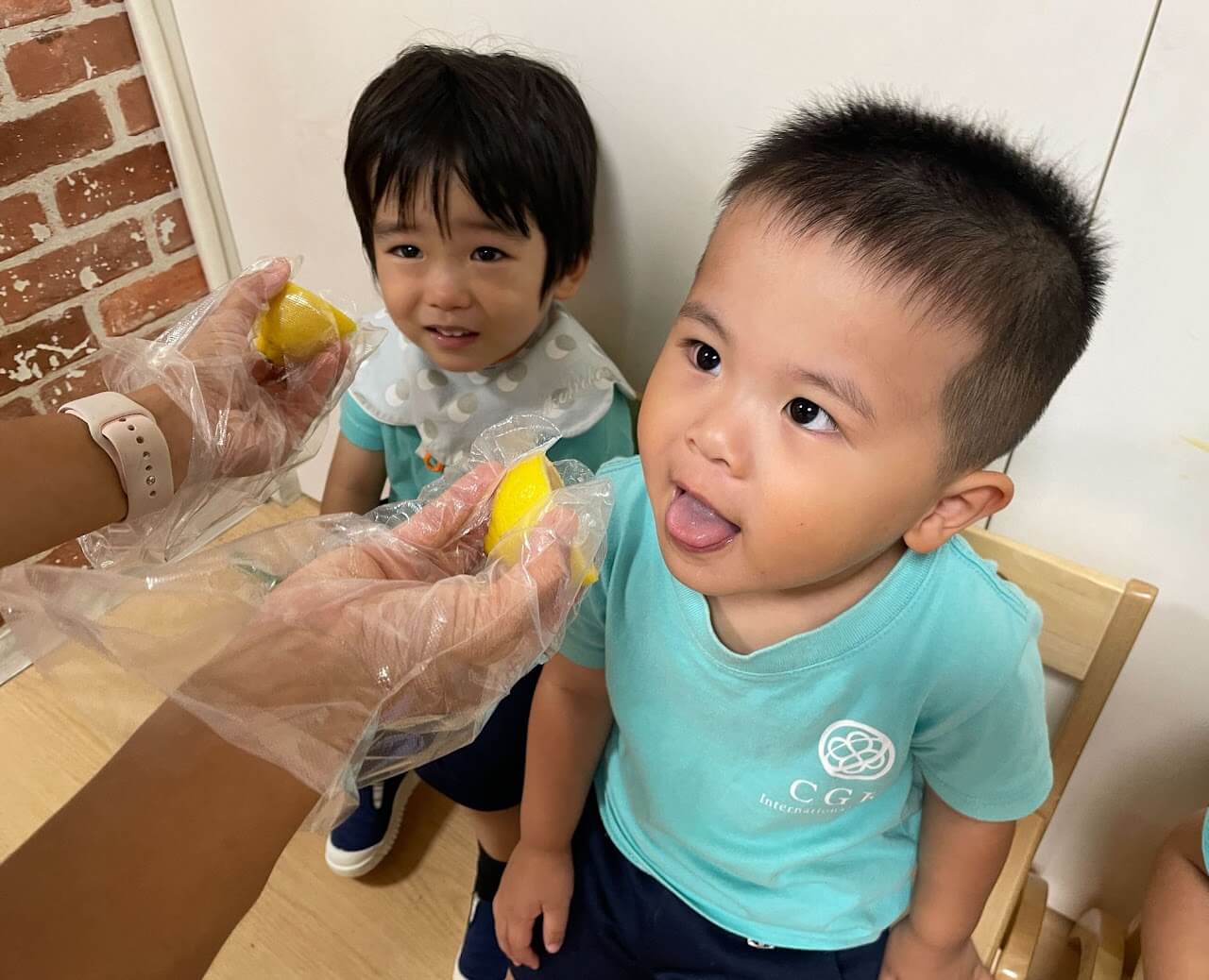








Elementary School
Grade 4/5 UOI in Japanese lesson - UOI Themed on 'War'
We would like to introduce the Unit of Inquiry (UOI) on the theme of "War" undertaken by 4th and 5th graders in the elementary school Japanese language classes. This course went beyond the framework of Japanese language education, incorporating a wide range of activities such as learning history from an international perspective, developing critical thinking skills, and expressing emotions through art.
- Transdisciplinary Theme: Where we are in place and time
- Central Idea: Reflecting on people's lives and history helps us live in harmony with others, the environment, and ourselves.
- Key Concepts: "Perspective" and "Causation"
The course integrated Social Studies and Art, and included the following activities:
1. Exploration of War Literature:
Students analyzed two war-themed literary works from their textbooks, "Hitotsu no Hana" (A Single Flower) and "Tazunebito" (The Visitor), using a three-stage reading process. They progressed through structural comprehension, figurative understanding, and content examination, developing critical reading skills by interpreting the author's intentions from detailed descriptions. Class-wide discussions based on individual questions allowed students to share diverse interpretations. This process deepened their understanding of the works and helped some students realize that a single description can be interpreted in various ways through their classmates' opinions. The focus was on thinking about war through literature and fostering critical thinking skills and multiple perspectives.
2. Student-led War Study Project:
The inquiry activities were developed based on students' questions and interests about war. During this process, students used both Japanese and English resources to gather information from multiple perspectives, learning unbiased research methods. They also analyzed the causes and effects of war from various angles, enhancing their critical thinking skills.
When compiling research results into reports, emphasis was placed on clearly distinguishing between "facts" and "opinions," aiming to develop objective report writing skills. Furthermore, completed reports were presented in class, improving presentation skills while promoting a deeper understanding of war by sharing diverse interpretations and views with classmates.
Through this project, students were able to comprehensively develop information literacy, analytical skills, and expressive abilities.
3. Field Trip:
We took a field trip to the Showa-kan in Tokyo where students learned about the daily lives of Japanese people during and after the war through real artifacts and exhibits. In the post-trip learning session, students reconsidered the causes of the Pacific War. They consciously incorporated perspectives from other countries as well as the Japanese viewpoint to cultivate a multifaceted historical view.
4. Artistic Expression:
Based on their war-related studies, students verbalized their impressions and emotions using adjectives and nouns. They then visually expressed these as abstract paintings, depicting subtle nuances of emotions through colors and forms. Through an in-class art appreciation session, they learned about diverse interpretations and emotional expressions. This process deepened their understanding of the complex theme of war, allowed them to experience both linguistic and visual approaches, and simultaneously fostered an attitude of understanding and respecting others' expressions.
By developing critical thinking skills and empathy, and deepening international understanding, students laid the foundation for creating a peaceful and harmonious society that respects diversity. It also provided a valuable opportunity to realize the importance of peace. The Japanese language classes at CGK International School's elementary division aim to provide skills necessary for global society while integrating with other subjects.
We are committed to practicing a global education that combines the Japanese curriculum guidelines with IB principles, and create lessons that allow students to acquire knowledge and skills beyond what is expected for each grade level under a student-led learning environment.
Afterschool
Upper Grades - "What Is It Like In...?"

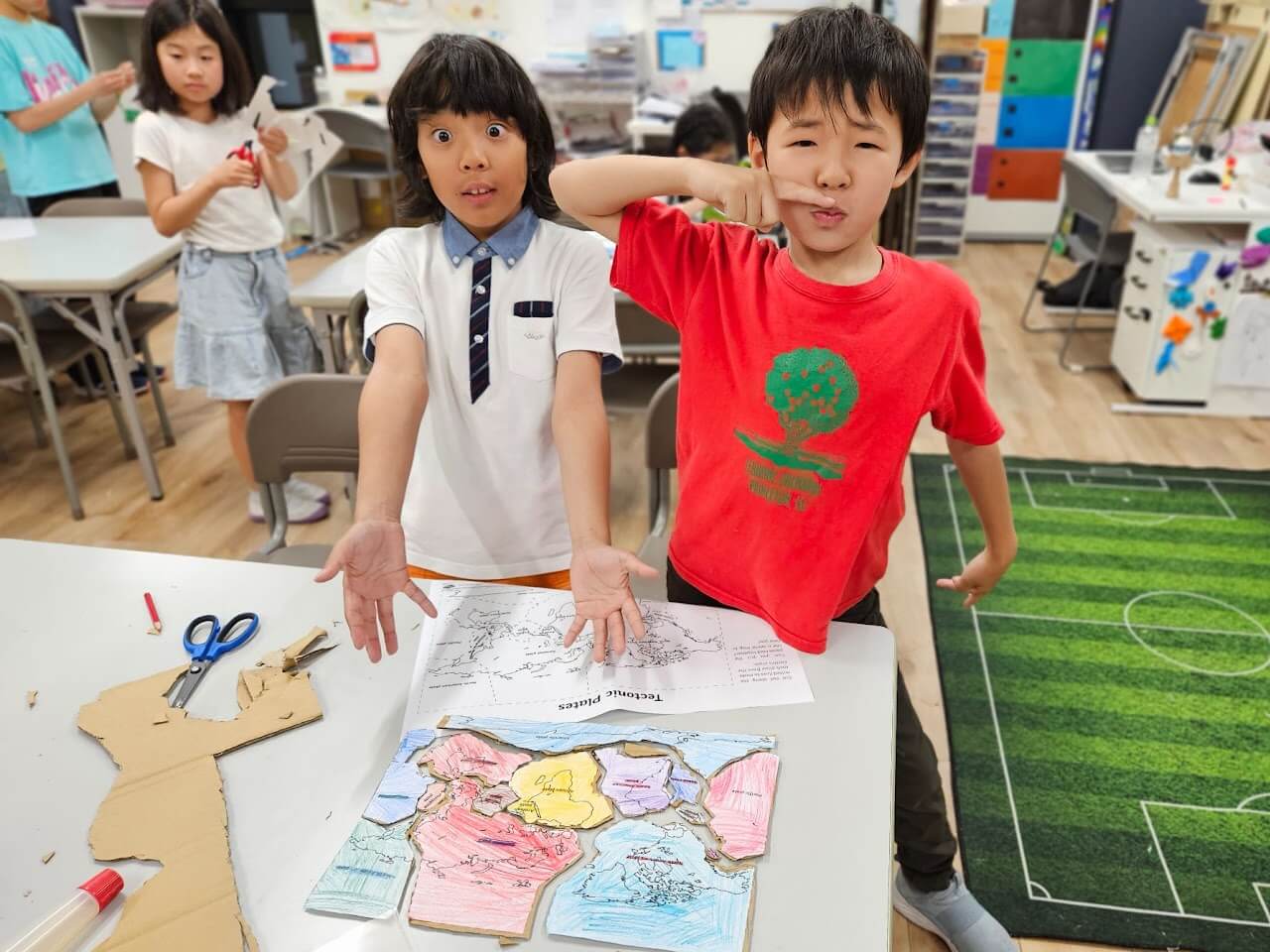


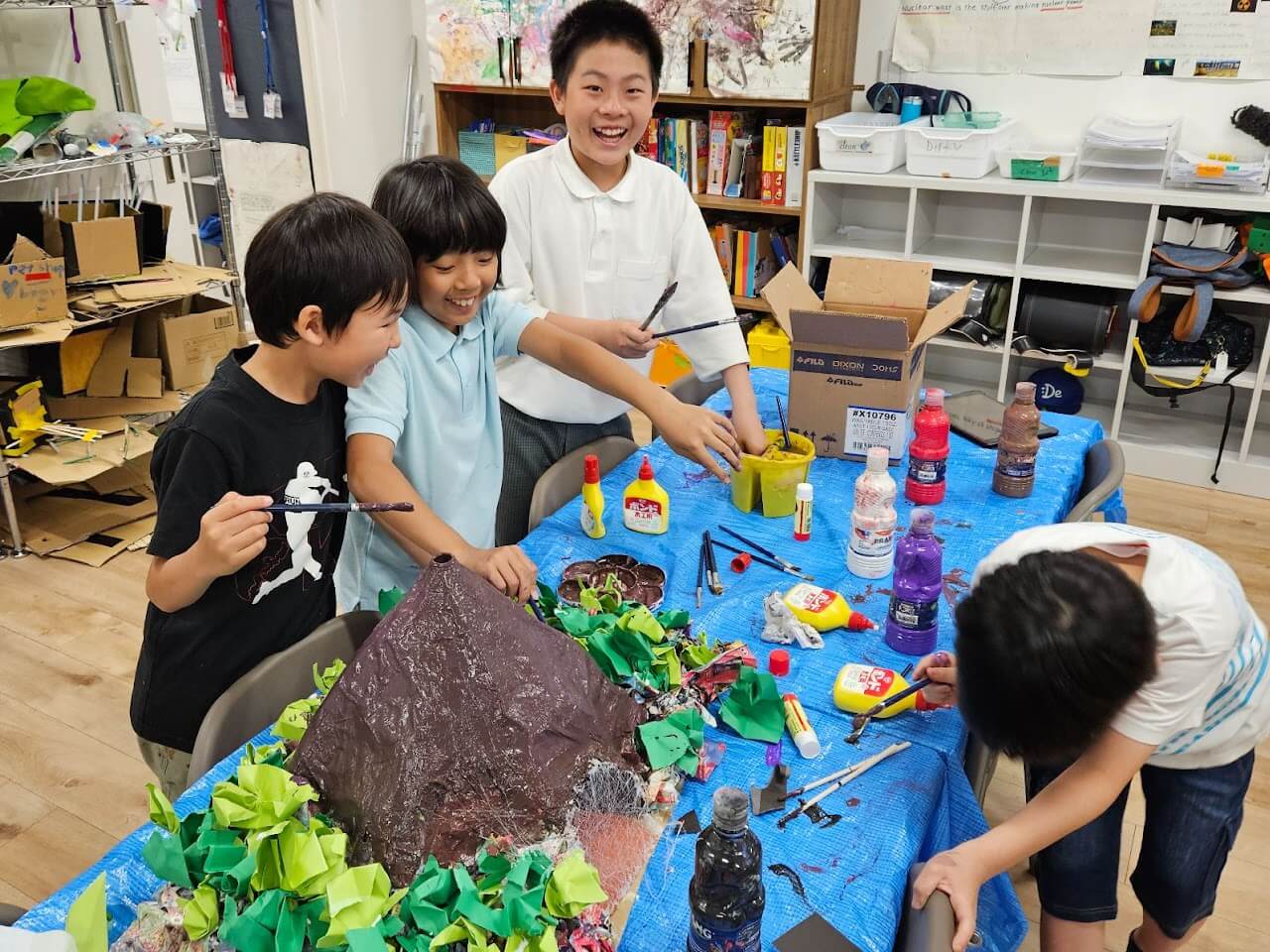


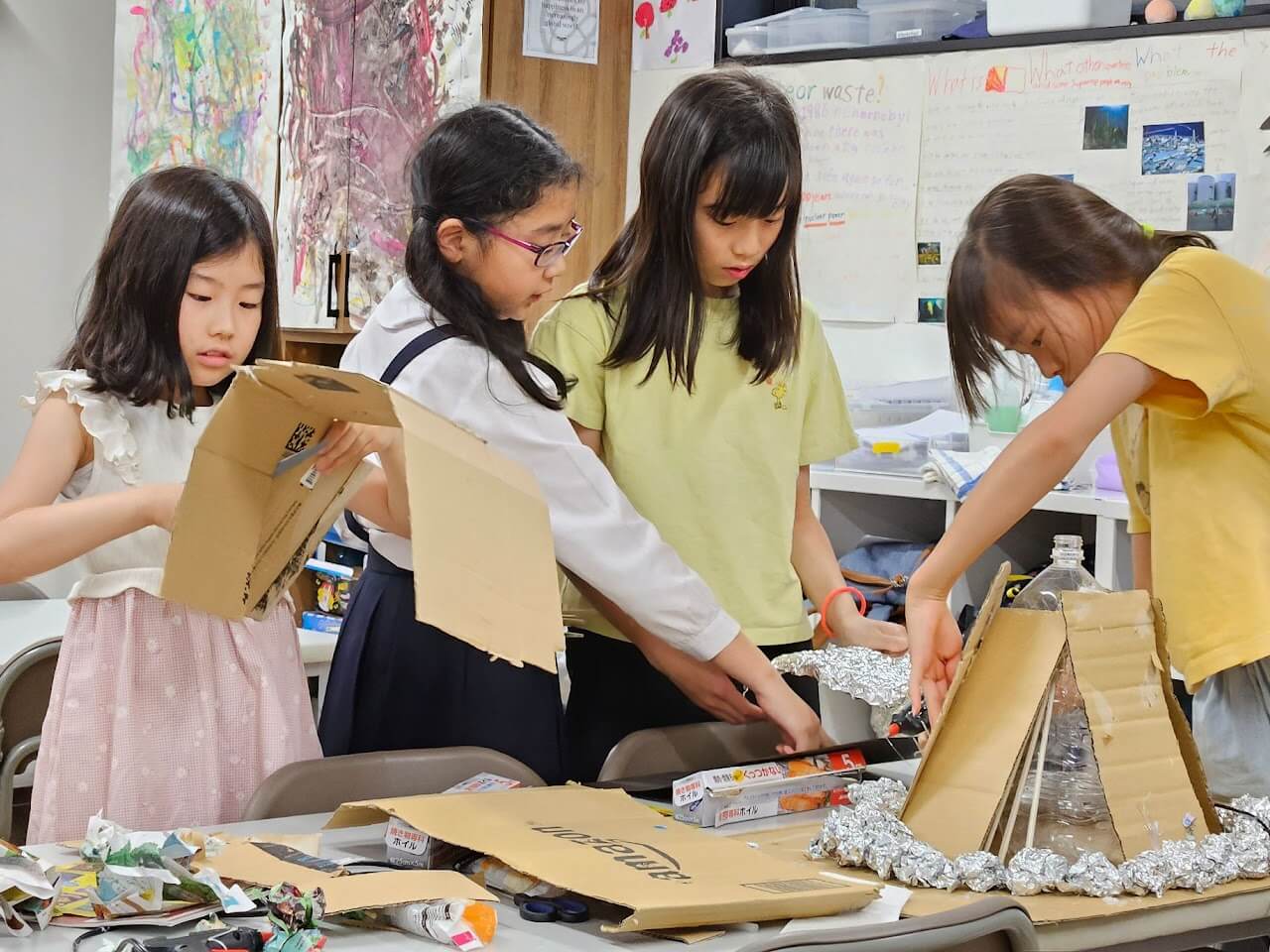


Over the last few months the upper grade class has been looking into the driving question ‘What’s It Like In……..?’. This driving question was left deliberately very open so students could decide the direction of this project through presentations, debates, and several rounds of voting. The winning idea that the students chose was ‘What’s It Like In Volcanoes?’ with ‘’What Was It Like In Japan in 1992?” coming in second place.
After deciding on the driving question the students worked together with Mr Dan to plan out their project. To find out what it's like in volcanoes we first had to understand where volcanoes come from. To understand where volcanoes come from we needed to understand the different layers of the Earth. To understand the different layers of the Earth we needed to understand how the Earth was made. By working backwards we were able to work together to plan out different areas of investigation for this project that would culminate in two groups creating their own erupting volcano models.
Before we investigated how the Earth was formed, students had the chance to come up to the front of class and using the BenQ board as an aid, explained the theories they had and answered questions from their peers. After this great discussion students watched a video about the Earth's formation and compared their ideas to what they learned from the video. Using this information as a base, students decided that they wanted to work as one big group to create an information poster and a mini book about how the Earth was formed.
Similarly, when students moved onto investigating the various layers of the Earth they had the chance to share and discuss their ideas with their peers. After looking at various resources together and engaging in some physical activities to deepen their understanding of various tectonic boundaries, students broke into groups to work on creating their own tectonic plate puzzles.
Now students had thoroughly researched the formation of volcanoes they split into two groups to create their own large erupting model volcanoes. Both teams approached this very differently and it was very interesting to see the different approaches each team took. After the volcanoes had been completed students worked on creating a presentation video about their volcanoes and also what they had learned over the course of the project. After they had finished the presentation we invited grade two to come and watch and the students used a chemical reaction to erupt their volcanoes!
It was really great to see the variety of different ways students researched and used their creativity throughout this project, and erupting their volcanoes as the grand finale was something special!
Sincerely,










CGK Extra
Accepting short-term international students from overseas - Wanted host families
-



-
CGK has a positive stance on accepting international students from abroad with a view to encouraging multicultural cooperation. Students from different cultures and backgrounds can interact with and help each other at CGK, bringing rich diversity to the classroom. This environment of diversity provides each student with a valuable opportunity to learn different viewpoints and increase mutual understanding.
At CGK, we believe that diversity improves educational development. By learning and working together, students from different backgrounds will grow into leaders with global perspective. In addition, experiencing diverse opinions and values will help them develop tolerance and empathy.
In order to create an environment conducive to hosting short-term students, we are looking for host families; if you are a CGK family interested in registering as a host family, please contact Mayu at the Office (Toddle is OK).
-



Upcoming CGK Study Abroad Information Session
CGK Study Abroad Information Session
September 16 (Mon./Public Holiday) Time TBD
- About study abroad experiences in New Zealand and Summer Camps in Canada
October 12 (Sat.) Time TBD
- About study abroad in Australia (preschool, elementary school, middle school, etc.)
Details/Registration: Information will be sent via Toddle at a later date.
Currently recruiting participants for study abroad programs
-


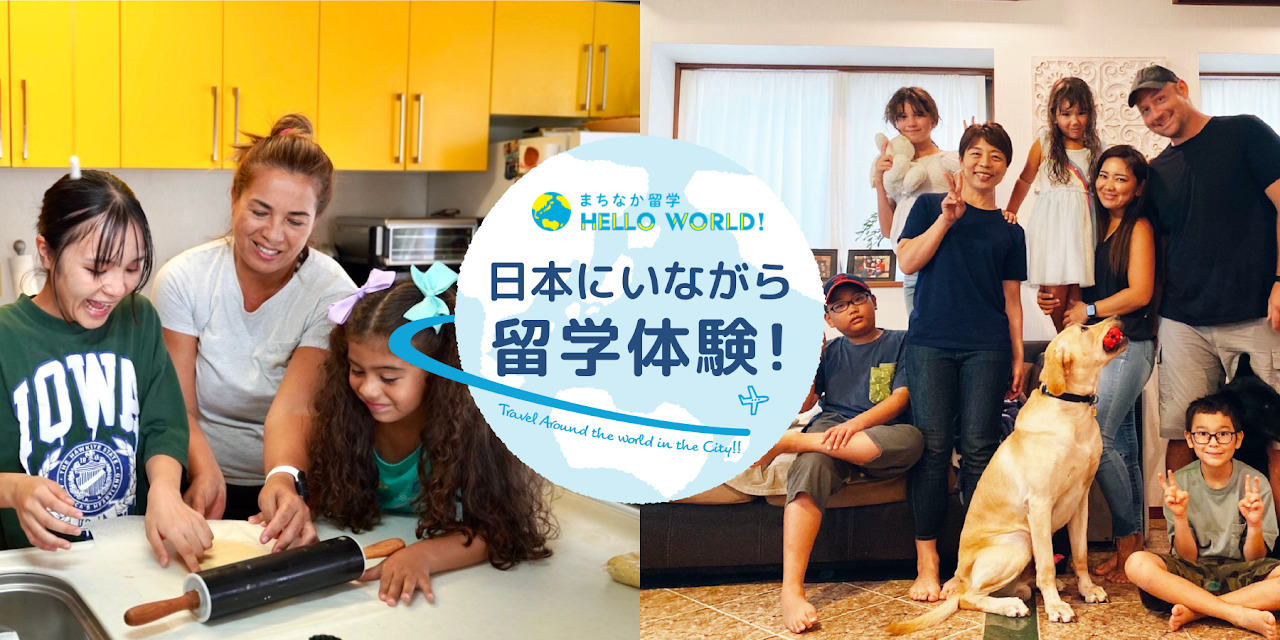



-
- Throughout the year (on weekends or during long breaks, either for day trips or overnight stays)
- You can experience a homestay with a foreign family residing in Japan.
- Deadline: Approximately one month prior to your desired dates
- For details/application, please contact Mayu at the Office.
Spring 2025 Elementary School Study Abroad in New Zealand
- Participate in classes at a local elementary school in Auckland.
- Mountain and Sky class students are encouraged to participate.
- Basic duration: 4 weeks [March 16 (Sun.) - April 12 (Sat.)]
- 2 or 3 weeks may be arranged upon request.
- Minimum duration: 2 weeks [March 16 (Sun.) - March 29 (Sat.)]
- Deadline: September 1 (Sun.)
- Details/Application: Please check the Toddle announcement that has been sent for more information.
CGK offers study abroad programs that are also convenient for preschool students and their parents to participate in.Please feel free to contact Mayu at the Office with any feedback or questions (Toddle is OK).
-


























